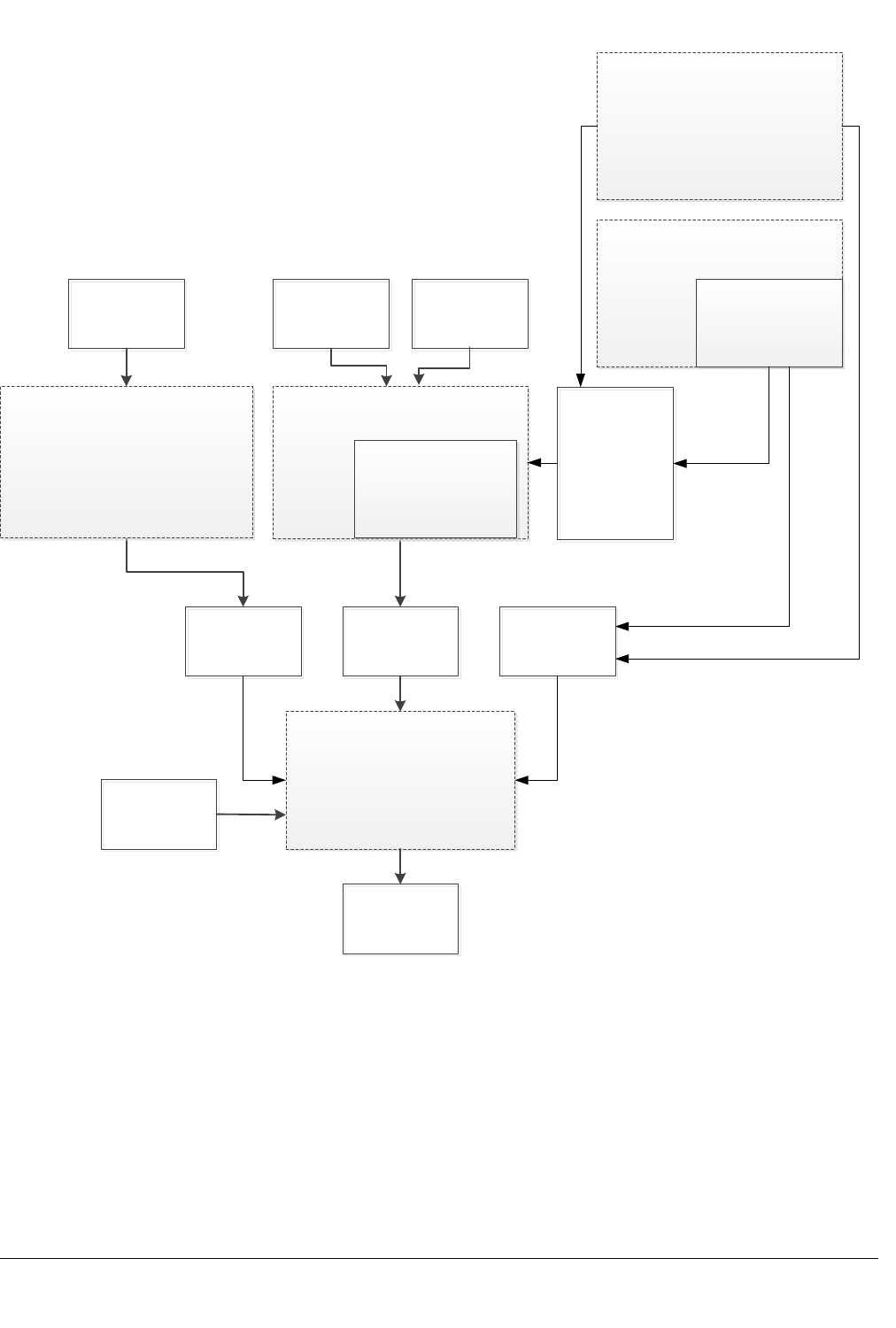
Arm
®
Compiler
Version 6.6
armclang Reference Guide
Copyright © 2014–2017, 2019, 2020 Arm Limited or its affiliates. All rights reserved.
DUI0774K

Arm
®
Compiler
armclang Reference Guide
Copyright © 2014–2017, 2019, 2020 Arm Limited or its affiliates. All rights reserved.
Release Information
Document History
Issue Date Confidentiality Change
A 14 March 2014 Non-Confidential Arm Compiler v6.00 Release
B 15 December 2014 Non-Confidential Arm Compiler v6.01 Release
C 30 June 2015 Non-Confidential Arm Compiler v6.02 Release
D 18 November 2015 Non-Confidential Arm Compiler v6.3 Release
E 24 February 2016 Non-Confidential Arm Compiler v6.4 Release
F 29 June 2016 Non-Confidential Arm Compiler v6.5 Release
G 04 November 2016 Non-Confidential Arm Compiler v6.6 Release
H 08 May 2017 Non-Confidential Arm Compiler v6.6.1 Release
I 29 November 2017 Non-Confidential Arm Compiler v6.6.2 Release
J 28 August 2019 Non-Confidential Arm Compiler v6.6.3 Release
K 26 August 2020 Non-Confidential Arm Compiler v6.6.4 Release
Non-Confidential Proprietary Notice
This document is protected by copyright and other related rights and the practice or implementation of the information contained in
this document may be protected by one or more patents or pending patent applications. No part of this document may be
reproduced in any form by any means without the express prior written permission of Arm. No license, express or implied, by
estoppel or otherwise to any intellectual property rights is granted by this document unless specifically stated.
Your access to the information in this document is conditional upon your acceptance that you will not use or permit others to use
the information for the purposes of determining whether implementations infringe any third party patents.
THIS DOCUMENT IS PROVIDED “AS IS”. ARM PROVIDES NO REPRESENTATIONS AND NO WARRANTIES,
EXPRESS, IMPLIED OR STATUTORY, INCLUDING, WITHOUT LIMITATION, THE IMPLIED WARRANTIES OF
MERCHANTABILITY, SATISFACTORY QUALITY, NON-INFRINGEMENT OR FITNESS FOR A PARTICULAR PURPOSE
WITH RESPECT TO THE DOCUMENT. For the avoidance of doubt, Arm makes no representation with respect to, and has
undertaken no analysis to identify or understand the scope and content of, third party patents, copyrights, trade secrets, or other
rights.
This document may include technical inaccuracies or typographical errors.
TO THE EXTENT NOT PROHIBITED BY LAW, IN NO EVENT WILL ARM BE LIABLE FOR ANY DAMAGES,
INCLUDING WITHOUT LIMITATION ANY DIRECT, INDIRECT, SPECIAL, INCIDENTAL, PUNITIVE, OR
CONSEQUENTIAL DAMAGES, HOWEVER CAUSED AND REGARDLESS OF THE THEORY OF LIABILITY, ARISING
OUT OF ANY USE OF THIS DOCUMENT, EVEN IF ARM HAS BEEN ADVISED OF THE POSSIBILITY OF SUCH
DAMAGES.
This document consists solely of commercial items. You shall be responsible for ensuring that any use, duplication or disclosure of
this document complies fully with any relevant export laws and regulations to assure that this document or any portion thereof is
not exported, directly or indirectly, in violation of such export laws. Use of the word “partner” in reference to Arm’s customers is
not intended to create or refer to any partnership relationship with any other company. Arm may make changes to this document at
any time and without notice.
If any of the provisions contained in these terms conflict with any of the provisions of any click through or signed written
agreement covering this document with Arm, then the click through or signed written agreement prevails over and supersedes the
conflicting provisions of these terms. This document may be translated into other languages for convenience, and you agree that if
Arm
®
Compiler
DUI0774K Copyright © 2014–2017, 2019, 2020 Arm Limited or its affiliates. All
rights reserved.
2
Non-Confidential

there is any conflict between the English version of this document and any translation, the terms of the English version of the
Agreement shall prevail.
The Arm corporate logo and words marked with
®
or ™ are registered trademarks or trademarks of Arm Limited (or its
subsidiaries) in the US and/or elsewhere. All rights reserved. Other brands and names mentioned in this document may be the
trademarks of their respective owners. Please follow Arm’s trademark usage guidelines at http://www.arm.com/company/policies/
trademarks.
Copyright © 2014–2017, 2019, 2020 Arm Limited (or its affiliates). All rights reserved.
Arm Limited. Company 02557590 registered in England.
110 Fulbourn Road, Cambridge, England CB1 9NJ.
(LES-PRE-20349)
Additional Notices
Some material in this document is based on IEEE 754-1985 IEEE Standard for Binary Floating-Point Arithmetic. The IEEE
disclaims any responsibility or liability resulting from the placement and use in the described manner.
Confidentiality Status
This document is Non-Confidential. The right to use, copy and disclose this document may be subject to license restrictions in
accordance with the terms of the agreement entered into by Arm and the party that Arm delivered this document to.
Unrestricted Access is an Arm internal classification.
Product Status
The information in this document is Final, that is for a developed product.
Web Address
developer.arm.com
Arm
®
Compiler
DUI0774K Copyright © 2014–2017, 2019, 2020 Arm Limited or its affiliates. All
rights reserved.
3
Non-Confidential

Contents
Arm
®
Compiler armclang Reference Guide
Preface
About this book ..................................................... ..................................................... 14
Chapter 1 Compiler Command-line Options
1.1 Support level definitions .......................................................................................... 1-19
1.2 Summary of armclang command-line options ............................ ............................ 1-23
1.3 -c .............................................................................................................................. 1-28
1.4 -D .............................................................. .............................................................. 1-29
1.5 -E .............................................................. .............................................................. 1-30
1.6 -e .............................................................. .............................................................. 1-31
1.7 -fbare-metal-pie ................................................... ................................................... 1-32
1.8 -fbracket-depth=N .................................................................................................... 1-33
1.9 -fcommon, -fno-common ............................................ ............................................ 1-34
1.10 -fdata-sections, -fno-data-sections .......................................................................... 1-35
1.11 -ffast-math, -fno-fast-math ........................................... ........................................... 1-36
1.12 -ffp-mode ........................................................ ........................................................ 1-37
1.13 -ffunction-sections, -fno-function-sections ............................... ............................... 1-39
1.14 @file ........................................................................................................................ 1-40
1.15 -fldm-stm, -fno-ldm-stm ............................................. ............................................. 1-41
1.16 -fno-builtin ................................................................................................................ 1-42
1.17 -fno-inline-functions ................................................ ................................................ 1-44
1.18 -flto, -fno-lto ...................................................... ...................................................... 1-45
1.19 -fexceptions, -fno-exceptions ......................................... ......................................... 1-46
DUI0774K Copyright © 2014–2017, 2019, 2020 Arm Limited or its affiliates. All
rights reserved.
4
Non-Confidential

1.20 -fomit-frame-pointer, -fno-omit-frame-pointer .......................................................... 1-47
1.21 -fropi, -fno-ropi .................................................... .................................................... 1-48
1.22 -fropi-lowering, -fno-ropi-lowering ............................................................................ 1-49
1.23 -frwpi, -fno-rwpi ................................................... ................................................... 1-50
1.24 -frwpi-lowering, -fno-rwpi-lowering .......................................................................... 1-51
1.25 -fshort-enums, -fno-short-enums ...................................... ...................................... 1-52
1.26 -fshort-wchar, -fno-short-wchar ................................................................................ 1-54
1.27 -fstack-protector, -fstack-protector-all, -fstack-protector-strong, -fno-stack-protector ....
.................................................................................................................................. 1-55
1.28 -fstrict-aliasing, -fno-strict-aliasing ..................................... ..................................... 1-57
1.29 -fvectorize, -fno-vectorize ........................................................................................ 1-58
1.30 -ftrapv ...................................................................................................................... 1-59
1.31 -fwrapv .......................................................... .......................................................... 1-60
1.32 -g, -gdwarf-2, -gdwarf-3, -gdwarf-4 .................................... .................................... 1-61
1.33 -I .............................................................................................................................. 1-62
1.34 -include .................................................................................................................... 1-63
1.35 -L .............................................................. .............................................................. 1-64
1.36 -l ............................................................... ............................................................... 1-65
1.37 -M, -MM ......................................................... ......................................................... 1-66
1.38 -MD, -MMD .............................................................................................................. 1-67
1.39 -MF .......................................................................................................................... 1-68
1.40 -MG .......................................................................................................................... 1-69
1.41 -MP .......................................................................................................................... 1-70
1.42 -MT .......................................................................................................................... 1-71
1.43 -march .......................................................... .......................................................... 1-72
1.44 -marm ...................................................................................................................... 1-74
1.45 -mbig-endian ............................................................................................................ 1-75
1.46 -mcmse .................................................................................................................... 1-76
1.47 -mcpu ........................................................... ........................................................... 1-78
1.48 -mexecute-only ........................................................................................................ 1-82
1.49 -mfloat-abi ................................................................................................................ 1-83
1.50 -mfpu ........................................................... ........................................................... 1-84
1.51 -mimplicit-it ....................................................... ....................................................... 1-86
1.52 -mlittle-endian .......................................................................................................... 1-87
1.53 -munaligned-access, -mno-unaligned-access ............................ ............................ 1-88
1.54 -mthumb .................................................................................................................. 1-89
1.55 -nostdlib ......................................................... ......................................................... 1-90
1.56 -nostdlibinc .............................................................................................................. 1-91
1.57 -o .............................................................. .............................................................. 1-92
1.58 -O .............................................................. .............................................................. 1-93
1.59 -pedantic .................................................................................................................. 1-95
1.60 -pedantic-errors ................................................... ................................................... 1-96
1.61 -Rpass .......................................................... .......................................................... 1-97
1.62 -S .............................................................. .............................................................. 1-99
1.63 -save-temps ..................................................... ..................................................... 1-100
1.64 -std ............................................................ ............................................................ 1-101
1.65 --target ......................................................... ......................................................... 1-103
1.66 -U ............................................................. ............................................................. 1-104
1.67 -u ............................................................. ............................................................. 1-105
1.68 -v ............................................................................................................................ 1-106
DUI0774K Copyright © 2014–2017, 2019, 2020 Arm Limited or its affiliates. All
rights reserved.
5
Non-Confidential

1.69 --version ........................................................ ........................................................ 1-107
1.70 --version_number ................................................. ................................................. 1-108
1.71 --vsn ........................................................... ........................................................... 1-109
1.72 -W .......................................................................................................................... 1-110
1.73 -Wl .......................................................................................................................... 1-111
1.74 -Xlinker ......................................................... ......................................................... 1-112
1.75 -x ............................................................................................................................ 1-113
1.76 -### ........................................................................................................................ 1-114
Chapter 2 Compiler-specific Keywords and Operators
2.1 Compiler-specific keywords and operators ............................................................ 2-116
2.2 __alignof__ ............................................................................................................ 2-117
2.3 __asm .................................................................................................................... 2-119
2.4 __declspec attributes .............................................. .............................................. 2-121
2.5 __declspec(noinline) .............................................................................................. 2-122
2.6 __declspec(noreturn) .............................................. .............................................. 2-123
2.7 __declspec(nothrow) .............................................. .............................................. 2-124
2.8 __inline .................................................................................................................. 2-125
2.9 __unaligned ..................................................... ..................................................... 2-126
2.10 __promise .............................................................................................................. 2-127
Chapter 3 Compiler-specific Function, Variable, and Type Attributes
3.1 Function attributes ................................................ ................................................ 3-130
3.2 __attribute__((always_inline)) function attribute .................................................... 3-132
3.3 __attribute__((cmse_nonsecure_call)) function attribute ................... ................... 3-133
3.4 __attribute__((cmse_nonsecure_entry)) function attribute .................................... 3-134
3.5 __attribute__((const)) function attribute ................................ ................................ 3-135
3.6 __attribute__((constructor(priority))) function attribute .......................................... 3-136
3.7 __attribute__((format_arg(string-index))) function attribute ................. ................. 3-137
3.8 __attribute__((interrupt("type"))) function attribute ................................................ 3-138
3.9 __attribute__((malloc)) function attribute ............................... ............................... 3-139
3.10 __attribute__((naked)) function attribute ............................... ............................... 3-140
3.11 __attribute__((noinline)) function attribute .............................. .............................. 3-141
3.12 __attribute__((nonnull)) function attribute .............................................................. 3-142
3.13 __attribute__((noreturn)) function attribute ............................................................ 3-143
3.14 __attribute__((nothrow)) function attribute .............................. .............................. 3-144
3.15 __attribute__((pcs("calling_convention"))) function attribute ................ ................ 3-145
3.16 __attribute__((pure)) function attribute .................................................................. 3-146
3.17 __attribute__((section("name"))) function attribute ................................................ 3-147
3.18 __attribute__((used)) function attribute ................................ ................................ 3-148
3.19 __attribute__((unused)) function attribute .............................. .............................. 3-149
3.20 __attribute__((value_in_regs)) function attribute ......................... ......................... 3-150
3.21 __attribute__((visibility("visibility_type"))) function attribute ................. ................. 3-151
3.22 __attribute__((weak)) function attribute ................................ ................................ 3-152
3.23 __attribute__((weakref("target"))) function attribute ....................... ....................... 3-153
3.24 Type attributes ................................................... ................................................... 3-154
3.25 __attribute__((aligned)) type attribute ................................. ................................. 3-155
3.26 __attribute__((packed)) type attribute ................................. ................................. 3-156
3.27 __attribute__((transparent_union)) type attribute .................................................. 3-157
3.28 Variable attributes .................................................................................................. 3-158
DUI0774K Copyright © 2014–2017, 2019, 2020 Arm Limited or its affiliates. All
rights reserved.
6
Non-Confidential

3.29 __attribute__((alias)) variable attribute .................................................................. 3-159
3.30 __attribute__((aligned)) variable attribute .............................................................. 3-160
3.31 __attribute__((deprecated)) variable attribute ........................... ........................... 3-161
3.32 __attribute__((packed)) variable attribute .............................................................. 3-162
3.33 __attribute__((section("name"))) variable attribute ................................................ 3-163
3.34 __attribute__((used)) variable attribute ................................ ................................ 3-164
3.35 __attribute__((unused)) variable attribute .............................. .............................. 3-165
3.36 __attribute__((weak)) variable attribute ................................ ................................ 3-166
3.37 __attribute__((weakref("target"))) variable attribute ....................... ....................... 3-167
Chapter 4 Compiler-specific Intrinsics
4.1 __breakpoint intrinsic .............................................. .............................................. 4-169
4.2 __current_pc intrinsic ............................................................................................ 4-170
4.3 __current_sp intrinsic ............................................................................................ 4-171
4.4 __disable_fiq intrinsic ............................................................................................ 4-172
4.5 __disable_irq intrinsic ............................................................................................ 4-173
4.6 __enable_fiq intrinsic .............................................. .............................................. 4-174
4.7 __enable_irq intrinsic .............................................. .............................................. 4-175
4.8 __force_stores intrinsic .......................................................................................... 4-176
4.9 __memory_changed intrinsic ........................................ ........................................ 4-177
4.10 __schedule_barrier intrinsic ......................................... ......................................... 4-178
4.11 __semihost intrinsic ............................................... ............................................... 4-179
4.12 __vfp_status intrinsic .............................................. .............................................. 4-181
Chapter 5 Compiler-specific Pragmas
5.1 #pragma clang system_header ...................................... ...................................... 5-183
5.2 #pragma clang diagnostic ...................................................................................... 5-184
5.3 #pragma clang section .......................................................................................... 5-186
5.4 #pragma once ........................................................................................................ 5-188
5.5 #pragma pack(...) .................................................................................................. 5-189
5.6 #pragma unroll[(n)], #pragma unroll_completely ......................... ......................... 5-191
5.7 #pragma weak symbol, #pragma weak symbol1 = symbol2 ................ ................ 5-192
Chapter 6 Other Compiler-specific Features
6.1 ACLE support ........................................................................................................ 6-194
6.2 Predefined macros ................................................................................................ 6-195
6.3 Inline functions ................................................... ................................................... 6-200
6.4 Volatile variables .................................................................................................... 6-201
6.5 Half-precision floating-point number format ............................. ............................. 6-202
6.6 TT instruction intrinsics .......................................................................................... 6-203
6.7 Non-secure function pointer intrinsics ................................. ................................. 6-206
Chapter 7 Standard C Implementation Definition
7.1 Implementation definition ........................................... ........................................... 7-208
7.2 Translation ...................................................... ...................................................... 7-209
7.3 Translation limits .................................................................................................... 7-210
7.4 Environment .......................................................................................................... 7-212
7.5 Identifiers ....................................................... ....................................................... 7-214
7.6 Characters ...................................................... ...................................................... 7-215
7.7 Integers .................................................................................................................. 7-217
7.8 Floating-point .................................................... .................................................... 7-218
DUI0774K Copyright © 2014–2017, 2019, 2020 Arm Limited or its affiliates. All
rights reserved.
7
Non-Confidential

7.9 Arrays and pointers ............................................... ............................................... 7-219
7.10 Hints ...................................................................................................................... 7-220
7.11 Structures, unions, enumerations, and bitfields .......................... .......................... 7-221
7.12 Qualifiers ....................................................... ....................................................... 7-222
7.13 Preprocessing directives ........................................... ........................................... 7-223
7.14 Library functions .................................................................................................... 7-225
7.15 Architecture ..................................................... ..................................................... 7-230
Chapter 8 Standard C++ Implementation Definition
8.1 Implementation definition ........................................... ........................................... 8-237
8.2 General .................................................................................................................. 8-238
8.3 Lexical conventions ............................................... ............................................... 8-239
8.4 Basic concepts ...................................................................................................... 8-240
8.5 Standard conversions ............................................................................................ 8-241
8.6 Expressions ..................................................... ..................................................... 8-242
8.7 Declarations ..................................................... ..................................................... 8-244
8.8 Declarators ............................................................................................................ 8-245
8.9 Templates .............................................................................................................. 8-246
8.10 Exception handling ................................................................................................ 8-247
8.11 Preprocessing directives ........................................... ........................................... 8-248
8.12 Library introduction ................................................................................................ 8-249
8.13 Language support library ........................................... ........................................... 8-250
8.14 General utilities library ............................................. ............................................. 8-251
8.15 Strings library .................................................... .................................................... 8-252
8.16 Localization library ................................................ ................................................ 8-253
8.17 Containers library .................................................................................................. 8-254
8.18 Input/output library ................................................ ................................................ 8-255
8.19 Regular expressions library ......................................... ......................................... 8-256
8.20 Atomic operations library ........................................... ........................................... 8-257
8.21 Thread support library ............................................. ............................................. 8-258
8.22 Implementation quantities ...................................................................................... 8-259
Chapter 9 armclang Integrated Assembler
9.1 Syntax of assembly files for integrated assembler ................................................ 9-263
9.2 Assembly expressions ............................................. ............................................. 9-265
9.3 Alignment directives ............................................... ............................................... 9-270
9.4 Data definition directives ........................................... ........................................... 9-272
9.5 String definition directives ...................................................................................... 9-275
9.6 Floating-point data definition directives ................................ ................................ 9-277
9.7 Section directives .................................................................................................. 9-278
9.8 Conditional assembly directives ............................................................................ 9-283
9.9 Macro directives .................................................................................................... 9-285
9.10 Symbol binding directives ...................................................................................... 9-287
9.11 Org directive .......................................................................................................... 9-289
9.12 AArch32 Target selection directives ................................... ................................... 9-290
9.13 AArch64 Target selection directives ................................... ................................... 9-292
9.14 Space-filling directives ............................................. ............................................. 9-293
9.15 Type directive .................................................... .................................................... 9-294
DUI0774K Copyright © 2014–2017, 2019, 2020 Arm Limited or its affiliates. All
rights reserved.
8
Non-Confidential

Chapter 10 armclang Inline Assembler
10.1 Inline Assembly ................................................. ................................................. 10-296
10.2 File-scope inline assembly ......................................... ......................................... 10-297
10.3 Inline assembly statements within a function ........................... ........................... 10-298
10.4 Inline assembly constraint strings ........................................................................ 10-302
10.5 Inline assembly template modifiers .................................. .................................. 10-307
10.6 Forcing inline assembly operands into specific registers .................. .................. 10-310
10.7 Symbol references and branches into and out of inline assembly ........... ........... 10-311
10.8 Duplication of labels in inline assembly statements ...................... ...................... 10-312
Appendix A armclang Reference Guide Changes
A.1 Changes for the armclang Reference Guide ....................... ....................... Appx-A-314
DUI0774K Copyright © 2014–2017, 2019, 2020 Arm Limited or its affiliates. All
rights reserved.
9
Non-Confidential

List of Figures
Arm
®
Compiler armclang Reference Guide
Figure 1-1 Integration boundaries in Arm Compiler 6. ............................................................................ 1-21
Figure 5-1 Nonpacked structure S ........................................................................................................ 5-190
Figure 5-2 Packed structure SP ............................................................................................................ 5-190
Figure 6-1 IEEE half-precision floating-point format ............................................................................. 6-202
DUI0774K Copyright © 2014–2017, 2019, 2020 Arm Limited or its affiliates. All
rights reserved.
10
Non-Confidential

List of Tables
Arm
®
Compiler armclang Reference Guide
Table 1-1 armclang command-line options ............................................................................................ 1-23
Table 1-2 Floating-point library variants ................................................................................................ 1-36
Table 1-3 Floating-point library variant selection ................................................................................... 1-38
Table 1-4 Compiling without the -o option ............................................................................................. 1-92
Table 3-1 Function attributes that the compiler supports, and their equivalents ................................. 3-130
Table 4-1 Modifying the FPSCR flags ................................................................................................. 4-181
Table 6-1 Predefined macros .............................................................................................................. 6-195
Table 7-1 Translation limits .................................................................................................................. 7-210
Table 9-1 Modifiers .............................................................................................................................. 9-265
Table 9-2 Unary operators ................................................................................................................... 9-266
Table 9-3 Binary operators .................................................................................................................. 9-266
Table 9-4 Binary logical operators ....................................................................................................... 9-266
Table 9-5 Binary bitwise operators ...................................................................................................... 9-266
Table 9-6 Binary comparison operators ............................................................................................... 9-267
Table 9-7 Relocation specifiers for AArch32 state ............................................................................... 9-267
Table 9-8 Relocation specifiers for AArch64 state ............................................................................... 9-268
Table 9-9 Data definition directives ..................................................................................................... 9-272
Table 9-10 Expression types supported by the data definition directives .............................................. 9-273
Table 9-11 Aliases for the data definition directives .............................................................................. 9-273
Table 9-12 Escape characters for the string definition directives .......................................................... 9-275
Table 9-13 Aliases for the floating-point data definition directives ......................................................... 9-277
Table 9-14 Section flags ........................................................................................................................ 9-279
Table 9-15 Section Type ........................................................................................................................ 9-280
DUI0774K Copyright © 2014–2017, 2019, 2020 Arm Limited or its affiliates. All
rights reserved.
11
Non-Confidential

Table 9-16 Sections with implicit flags and default types ...................................................................... 9-281
Table 9-17 .if condition modifiers ........................................................................................................... 9-283
Table 9-18 Macro parameter qualifier .................................................................................................... 9-285
Table 10-1 Constraint modifiers ........................................................................................................... 10-302
Table A-1 Changes between 6.6.4 (revision K) and 6.6.3 (revision J) ....................................... Appx-A-314
DUI0774K Copyright © 2014–2017, 2019, 2020 Arm Limited or its affiliates. All
rights reserved.
12
Non-Confidential

About this book
The Arm
®
Compiler armclang Reference Guide provides user information for the Arm compiler,
armclang. armclang is an optimizing C and C++ compiler that compiles Standard C and Standard C++
source code into machine code for Arm architecture-based processors.
Using this book
This book is organized into the following chapters:
Chapter 1 Compiler Command-line Options
This chapter summarizes the supported options used with armclang.
Chapter 2 Compiler-specific Keywords and Operators
Summarizes the compiler-specific keywords and operators that are extensions to the C and C++
Standards.
Chapter 3 Compiler-specific Function, Variable, and Type Attributes
Summarizes the compiler-specific function, variable, and type attributes that are extensions to the
C and C++ Standards.
Chapter 4 Compiler-specific Intrinsics
Summarizes the Arm compiler-specific intrinsics that are extensions to the C and C++ Standards.
Chapter 5 Compiler-specific Pragmas
Summarizes the Arm compiler-specific pragmas that are extensions to the C and C++ Standards.
Chapter 6 Other Compiler-specific Features
Summarizes compiler-specific features that are extensions to the C and C++ Standards, such as
predefined macros.
Chapter 7 Standard C Implementation Definition
Provides information required by the ISO C standard for conforming C implementations.
Chapter 8 Standard C++ Implementation Definition
Provides information required by the ISO C++ Standard for conforming C++ implementations.
Chapter 9 armclang Integrated Assembler
Provides information on integrated assembler features, such as the directives you can use when
writing assembly language source files in the armclang integrated assembler syntax.
Chapter 10 armclang Inline Assembler
Provides reference information on writing inline assembly.
Appendix A armclang Reference Guide Changes
Describes the technical changes that have been made to the armclang Reference Guide.
Glossary
The Arm
®
Glossary is a list of terms used in Arm documentation, together with definitions for those
terms. The Arm Glossary does not contain terms that are industry standard unless the Arm meaning
differs from the generally accepted meaning.
See the Arm
®
Glossary for more information.
Typographic conventions
italic
Introduces special terminology, denotes cross-references, and citations.
bold
Highlights interface elements, such as menu names. Denotes signal names. Also used for terms
in descriptive lists, where appropriate.
Preface
About this book
DUI0774K Copyright © 2014–2017, 2019, 2020 Arm Limited or its affiliates. All
rights reserved.
14
Non-Confidential

monospace
Denotes text that you can enter at the keyboard, such as commands, file and program names,
and source code.
monospace
Denotes a permitted abbreviation for a command or option. You can enter the underlined text
instead of the full command or option name.
monospace italic
Denotes arguments to monospace text where the argument is to be replaced by a specific value.
monospace bold
Denotes language keywords when used outside example code.
<and>
Encloses replaceable terms for assembler syntax where they appear in code or code fragments.
For example:
MRC p15, 0, <Rd>, <CRn>, <CRm>, <Opcode_2>
SMALL CAPITALS
Used in body text for a few terms that have specific technical meanings, that are defined in the
Arm
®
Glossary. For example, IMPLEMENTATION DEFINED, IMPLEMENTATION SPECIFIC, UNKNOWN, and
UNPREDICTABLE.
Feedback
Feedback on this product
If you have any comments or suggestions about this product, contact your supplier and give:
• The product name.
• The product revision or version.
• An explanation with as much information as you can provide. Include symptoms and diagnostic
procedures if appropriate.
Feedback on content
If you have comments on content then send an e-mail to [email protected]. Give:
• The title Arm Compiler armclang Reference Guide.
• The number DUI0774K.
• If applicable, the page number(s) to which your comments refer.
• A concise explanation of your comments.
Arm also welcomes general suggestions for additions and improvements.
Note
Arm tests the PDF only in Adobe Acrobat and Acrobat Reader, and cannot guarantee the quality of the
represented document when used with any other PDF reader.
Other information
• Arm
®
Developer.
• Arm
®
Information Center.
• Arm
®
Technical Support Knowledge Articles.
• Technical Support.
• Arm
®
Glossary.
Preface
About this book
DUI0774K Copyright © 2014–2017, 2019, 2020 Arm Limited or its affiliates. All
rights reserved.
15
Non-Confidential

Chapter 1
Compiler Command-line Options
This chapter summarizes the supported options used with armclang.
armclang provides many command-line options, including most Clang command-line options in addition
to a number of Arm-specific options. Additional information about community feature command-line
options is available in the Clang and LLVM documentation on the LLVM Compiler Infrastructure
Project web site, http://llvm.org.
Note
Be aware of the following:
• Generated code might be different between two Arm Compiler releases.
• For a feature release, there might be significant code generation differences.
It contains the following sections:
• 1.1 Support level definitions on page 1-19.
• 1.2 Summary of armclang command-line options on page 1-23.
• 1.3 -c on page 1-28.
• 1.4 -D on page 1-29.
• 1.5 -E on page 1-30.
• 1.6 -e on page 1-31.
• 1.7 -fbare-metal-pie on page 1-32.
• 1.8 -fbracket-depth=N on page 1-33.
• 1.9 -fcommon, -fno-common on page 1-34.
• 1.10 -fdata-sections, -fno-data-sections on page 1-35.
• 1.11 -ffast-math, -fno-fast-math on page 1-36.
• 1.12 -ffp-mode on page 1-37.
• 1.13 -ffunction-sections, -fno-function-sections on page 1-39.
DUI0774K
Copyright © 2014–2017, 2019, 2020 Arm Limited or its affiliates. All
rights reserved.
1-16
Non-Confidential

• 1.14 @file on page 1-40.
• 1.15 -fldm-stm, -fno-ldm-stm on page 1-41.
• 1.16 -fno-builtin on page 1-42.
• 1.17 -fno-inline-functions on page 1-44.
• 1.18 -flto, -fno-lto on page 1-45.
• 1.19 -fexceptions, -fno-exceptions on page 1-46.
• 1.20 -fomit-frame-pointer, -fno-omit-frame-pointer on page 1-47.
• 1.21 -fropi, -fno-ropi on page 1-48.
• 1.22 -fropi-lowering, -fno-ropi-lowering on page 1-49.
• 1.23 -frwpi, -fno-rwpi on page 1-50.
• 1.24 -frwpi-lowering, -fno-rwpi-lowering on page 1-51.
• 1.25 -fshort-enums, -fno-short-enums on page 1-52.
• 1.26 -fshort-wchar, -fno-short-wchar on page 1-54.
• 1.27 -fstack-protector, -fstack-protector-all, -fstack-protector-strong, -fno-stack-protector
on page 1-55.
• 1.28 -fstrict-aliasing, -fno-strict-aliasing on page 1-57.
• 1.29 -fvectorize, -fno-vectorize on page 1-58.
• 1.30 -ftrapv on page 1-59.
• 1.31 -fwrapv on page 1-60.
• 1.32 -g, -gdwarf-2, -gdwarf-3, -gdwarf-4 on page 1-61.
• 1.33 -I on page 1-62.
• 1.34 -include on page 1-63.
• 1.35 -L on page 1-64.
• 1.36 -l on page 1-65.
• 1.37 -M, -MM on page 1-66.
• 1.38 -MD, -MMD on page 1-67.
• 1.39 -MF on page 1-68.
• 1.40 -MG on page 1-69.
• 1.41 -MP on page 1-70.
• 1.42 -MT on page 1-71.
• 1.43 -march on page 1-72.
• 1.44 -marm on page 1-74.
• 1.45 -mbig-endian on page 1-75.
• 1.46 -mcmse on page 1-76.
• 1.47 -mcpu on page 1-78.
• 1.48 -mexecute-only on page 1-82.
• 1.49 -mfloat-abi on page 1-83.
• 1.50 -mfpu on page 1-84.
• 1.51 -mimplicit-it on page 1-86.
• 1.52 -mlittle-endian on page 1-87.
• 1.53 -munaligned-access, -mno-unaligned-access on page 1-88.
• 1.54 -mthumb on page 1-89.
• 1.55 -nostdlib on page 1-90.
• 1.56 -nostdlibinc on page 1-91.
• 1.57 -o on page 1-92.
• 1.58 -O on page 1-93.
• 1.59 -pedantic on page 1-95.
• 1.60 -pedantic-errors on page 1-96.
• 1.61 -Rpass on page 1-97.
• 1.62 -S on page 1-99.
• 1.63 -save-temps on page 1-100.
• 1.64 -std on page 1-101.
• 1.65 --target on page 1-103.
• 1.66 -U on page 1-104.
• 1.67 -u on page 1-105.
• 1.68 -v on page 1-106.
1 Compiler Command-line Options
DUI0774K Copyright © 2014–2017, 2019, 2020 Arm Limited or its affiliates. All
rights reserved.
1-17
Non-Confidential

• 1.69 --version on page 1-107.
• 1.70 --version_number on page 1-108.
• 1.71 --vsn on page 1-109.
• 1.72 -W on page 1-110.
• 1.73 -Wl on page 1-111.
• 1.74 -Xlinker on page 1-112.
• 1.75 -x on page 1-113.
• 1.76 -### on page 1-114.
1 Compiler Command-line Options
DUI0774K Copyright © 2014–2017, 2019, 2020 Arm Limited or its affiliates. All
rights reserved.
1-18
Non-Confidential

1.1 Support level definitions
This describes the levels of support for various Arm Compiler 6 features.
Arm Compiler 6 is built on Clang and LLVM technology. Therefore it has more functionality than the set
of product features described in the documentation. The following definitions clarify the levels of
support and guarantees on functionality that are expected from these features.
Arm welcomes feedback regarding the use of all Arm Compiler 6 features, and endeavors to support
users to a level that is appropriate for that feature. You can contact support at https://developer.arm.com/
support.
Identification in the documentation
All features that are documented in the Arm Compiler 6 documentation are product features, except
where explicitly stated. The limitations of non-product features are explicitly stated.
Product features
Product features are suitable for use in a production environment. The functionality is well-tested, and is
expected to be stable across feature and update releases.
• Arm endeavors to give advance notice of significant functionality changes to product features.
• If you have a support and maintenance contract, Arm provides full support for use of all product
features.
• Arm welcomes feedback on product features.
• Any issues with product features that Arm encounters or is made aware of are considered for fixing in
future versions of Arm Compiler.
In addition to fully supported product features, some product features are only alpha or beta quality.
Beta product features
Beta product features are implementation complete, but have not been sufficiently tested to be
regarded as suitable for use in production environments.
Beta product features are indicated with [BETA].
• Arm endeavors to document known limitations on beta product features.
• Beta product features are expected to eventually become product features in a future release
of Arm Compiler 6.
• Arm encourages the use of beta product features, and welcomes feedback on them.
• Any issues with beta product features that Arm encounters or is made aware of are
considered for fixing in future versions of Arm Compiler.
Alpha product features
Alpha product features are not implementation complete, and are subject to change in future
releases, therefore the stability level is lower than in beta product features.
Alpha product features are indicated with [ALPHA].
• Arm endeavors to document known limitations of alpha product features.
• Arm encourages the use of alpha product features, and welcomes feedback on them.
• Any issues with alpha product features that Arm encounters or is made aware of are
considered for fixing in future versions of Arm Compiler.
Community features
Arm Compiler 6 is built on LLVM technology and preserves the functionality of that technology where
possible. This means that there are additional features available in Arm Compiler that are not listed in the
documentation. These additional features are known as Community features. For information on these
Community features, see the documentation for the Clang/LLVM project.
1 Compiler Command-line Options
1.1 Support level definitions
DUI0774K Copyright © 2014–2017, 2019, 2020 Arm Limited or its affiliates. All
rights reserved.
1-19
Non-Confidential

Where Community features are referenced in the documentation, they are indicated with
[COMMUNITY].
• Arm makes no claims about the quality level or the degree of functionality of these features, except
when explicitly stated in this documentation.
• Functionality might change significantly between feature releases.
• Arm makes no guarantees that Community features will remain functional across update releases,
although changes are expected to be unlikely.
Some Community features might become product features in the future, but Arm provides no roadmap
for this. Arm is interested in understanding your use of these features, and welcomes feedback on them.
Arm supports customers using these features on a best-effort basis, unless the features are unsupported.
Arm accepts defect reports on these features, but does not guarantee that these issues will be fixed in
future releases.
Guidance on use of Community features
There are several factors to consider when assessing the likelihood of a Community feature being
functional:
• The following figure shows the structure of the Arm Compiler 6 toolchain:
1 Compiler Command-line Options
1.1 Support level definitions
DUI0774K Copyright © 2014–2017, 2019, 2020 Arm Limited or its affiliates. All
rights reserved.
1-20
Non-Confidential

armasm
armclang
Arm C library
Arm C++ library
armlink
LLVM Project
clang
armasm syntax
assembly
armasm syntax
assembly
C/C++
Source code
C/C++
Source code
GNU syntax
Assembly
GNU syntax
Assembly
Source code
headers
Source code
headers
Objects
Objects
Objects
Objects
Objects
Objects
Scatter/Steering/
Symdefs file
Scatter/Steering/
Symdefs file
Image
Image
LLVM Project
libc++
Figure 1-1 Integration boundaries in Arm Compiler 6.
The dashed boxes are toolchain components, and any interaction between these components is an
integration boundary. Community features that span an integration boundary might have significant
limitations in functionality. The exception to this is if the interaction is codified in one of the
standards supported by Arm Compiler 6. See Application Binary Interface (ABI) for the Arm
®
Architecture. Community features that do not span integration boundaries are more likely to work as
expected.
• Features primarily used when targeting hosted environments such as Linux or BSD might have
significant limitations, or might not be applicable, when targeting bare-metal environments.
• The Clang implementations of compiler features, particularly those that have been present for a long
time in other toolchains, are likely to be mature. The functionality of new features, such as support
1 Compiler Command-line Options
1.1 Support level definitions
DUI0774K Copyright © 2014–2017, 2019, 2020 Arm Limited or its affiliates. All
rights reserved.
1-21
Non-Confidential

for new language features, is likely to be less mature and therefore more likely to have limited
functionality.
Unsupported features
With both the product and Community feature categories, specific features and use-cases are known not
to function correctly, or are not intended for use with Arm Compiler 6.
Limitations of product features are stated in the documentation. Arm cannot provide an exhaustive list of
unsupported features or use-cases for Community features. The known limitations on Community
features are listed in Community features on page 1-19.
List of known unsupported features
The following is an incomplete list of unsupported features, and might change over time:
• The Clang option -stdlib=libstdc++ is not supported.
• C++ static initialization of local variables is not thread-safe when linked against the standard C++
libraries. For thread-safety, you must provide your own implementation of thread-safe functions as
described in Standard C++ library implementation definition.
Note
This restriction does not apply to the [ALPHA]-supported multi-threaded C++ libraries.
• Use of C11 library features is unsupported.
• Any Community feature that exclusively pertains to non-Arm architectures is not supported.
• Compilation for targets that implement architectures older than Armv7 or Armv6‑M is not supported.
• The long double data type is not supported for AArch64 state because of limitations in the current
Arm C library.
• Complex numbers are not supported because of limitations in the current Arm C library.
1 Compiler Command-line Options
1.1 Support level definitions
DUI0774K Copyright © 2014–2017, 2019, 2020 Arm Limited or its affiliates. All
rights reserved.
1-22
Non-Confidential

1.2 Summary of armclang command-line options
This provides a summary of the armclang command-line options that Arm Compiler 6 supports.
The command-line options either affect both compilation and assembly, or only affect compilation. The
command-line options that only affect compilation without affecting armclang integrated assembler are
shown in the table as Compilation only. The command-line options that affect both compilation and
assembly are shown in the table as Compilation and assembly.
Note
The command-line options that affect assembly are for the armclang integrated assembler, and do not
apply to armasm. These options affect both inline assembly and assembly language source files.
Note
Assembly language source files are assembled using the armclang integrated assembler. C and C++
language source files, which can contain inline assembly code, are compiled using the armclang
compiler. Command-line options that are shown as Compilation only do not affect the integrated
assembler, but they can affect inline assembly code.
Table 1-1 armclang command-line options
Option Description Compilation or
Assembly
-c
Only perform the compile step, do not invoke armlink. Compilation and
assembly.
-D
Defines a preprocessor macro. Compilation and
assembly.
-E
Only perform the preprocess step, do not compile or link. Compilation and
assembly.
-e
Specifies the unique initial entry point of the image. Compilation and
assembly.
-fbare-metal-pie
Generates position-independent code. Compilation only.
-fbracket-depth
Sets the limit for nested parentheses, brackets, and braces. Compilation and
assembly.
-fcommon,
-fno-common
Generates common zero-initialized values for tentative
definitions.
Compilation only.
-fdata-sections,
-fno-data-sections
Enables or disables the generation of one ELF section for each
variable in the source file.
Compilation only.
-ffast-math,
-fno-fast-math
Enables or disables the use of aggressive floating-point
optimizations.
Compilation only.
-ffp-mode
Specifies floating-point standard conformance. Compilation only.
-ffunction-sections,
-fno-function-sections
Enables or disables the generation of one ELF section for each
function in the source file.
Compilation only.
1 Compiler Command-line Options
1.2 Summary of armclang command-line options
DUI0774K Copyright © 2014–2017, 2019, 2020 Arm Limited or its affiliates. All
rights reserved.
1-23
Non-Confidential

Table 1-1 armclang command-line options (continued)
Option Description Compilation or
Assembly
@file
Reads a list of command-line options from a file. Compilation and
assembly.
-fldm-stm,
-fno-ldm-stm
Enable or disable the generation of LDM and STM instructions.
AArch32 only.
Compilation only.
-fno-inline-functions
Disables the automatic inlining of functions at optimization
levels -O2 and -O3.
Compilation only.
-flto
Enables link time optimization, and outputs bitcode wrapped in
an ELF file for link time optimization.
Compilation only.
-fexceptions,
-fno-exceptions
Enables or disables the generation of code needed to support C
++ exceptions.
Compilation only.
-fomit-frame-pointer,
-fno-omit-frame-pointer
Enables or disables the storage of stack frame pointers during
function calls.
Compilation only.
-fno-builtin
Disables special handling and optimizations of standard C
library functions.
Compilation only.
-fropi,
-fno-ropi
Enables or disables the generation of Read-Only Position-
Independent (ROPI) code.
Compilation only.
-fropi-lowering,
-fno-ropi-lowering
Enables or disables runtime static initialization when
generating Read-Only Position-Independent (ROPI) code.
Compilation only.
-frwpi,
-fno-rwpi
Enables or disables the generation of Read-Write Position-
Independent (RWPI) code.
Compilation only.
-frwpi-lowering,
-fno-rwpi-lowering
Enables or disables runtime static initialization when
generating Read-Write Position-Independent (RWPI) code.
Compilation only.
-fshort-enums,
-fno-short-enums
Allows or disallows the compiler to set the size of an
enumeration type to the smallest data type that can hold all
enumerator values.
Compilation only.
-fshort-wchar,
-fno-short-wchar
Sets the size of wchar_t to 2 or 4 bytes. Compilation only.
-fstack-protector,
-fstack-protector-strong,
-fstack-protector-all,
-fno-stack-protector
Inserts a guard variable onto the stack frame for each
vulnerable function or for all functions.
Compilation only.
-fstrict-aliasing,
-fno-strict-aliasing
Instructs the compiler to apply or not apply the strictest aliasing
rules available.
Compilation only.
1 Compiler Command-line Options
1.2 Summary of armclang command-line options
DUI0774K Copyright © 2014–2017, 2019, 2020 Arm Limited or its affiliates. All
rights reserved.
1-24
Non-Confidential

Table 1-1 armclang command-line options (continued)
Option Description Compilation or
Assembly
-fvectorize,
-fno-vectorize
Enables or disables the generation of Advanced SIMD vector
instructions directly from C or C++ code at optimization levels
-O1 and higher.
Compilation only.
-ftrapv
Instructs the compiler to generate traps for signed arithmetic
overflow on addition, subtraction, and multiplication
operations.
Compilation only.
-fwrapv
Instructs the compiler to assume that signed arithmetic
overflow of addition, subtraction, and multiplication, wraps
using two's-complement representation.
Compilation only.
-g,
-gdwarf-2,
-gdwarf-3,
-gdwarf-4
Adds debug tables for source-level debugging. Compilation and
assembly.
-I
Adds the specified directory to the list of places that are
searched to find include files.
Compilation and
assembly.
-include
Includes the source code of the specified file at the beginning of
the compilation.
Compilation only.
-L
Specifies a list of paths that the linker searches for user
libraries.
Compilation only.
-l
Add the specified library to the list of searched libraries. Compilation only.
-M,
-MM
Produces a list of makefile dependency rules suitable for use by
a make utility.
Compilation and
assembly.
-MD,
-MMD
Compiles or assembles source files and produces a list of
makefile dependency rules suitable for use by a make utility.
Compilation and
assembly.
-MF
Specifies a filename for the makefile dependency rules
produced by the -M and -MD options.
Compilation only.
-MG
Prints dependency lines for header files even if the header files
are missing.
Compilation only.
-MP
Emits dummy dependency rules that work around make errors
that are generated if you remove header files without a
corresponding update to the makefile.
Compilation only.
-MT
Changes the target of the makefile dependency rule produced
by dependency generating options.
Compilation and
assembly.
-march
Targets an architecture profile, generating generic code that
runs on any processor of that architecture.
Compilation and
assembly.
-marm
Requests that the compiler targets the A32 instruction set. Compilation only.
-mbig-endian
Generates code suitable for an Arm processor using byte-
invariant big-endian (BE‑8) data.
Compilation and
assembly.
1 Compiler Command-line Options
1.2 Summary of armclang command-line options
DUI0774K Copyright © 2014–2017, 2019, 2020 Arm Limited or its affiliates. All
rights reserved.
1-25
Non-Confidential

Table 1-1 armclang command-line options (continued)
Option Description Compilation or
Assembly
-mcmse
Enables the generation of code for the Secure state of the
Armv8‑M Security Extensions.
Compilation only.
-mcpu
Targets a specific processor, generating optimized code for that
specific processor.
Compilation and
assembly.
-mexecute-only
Generates execute-only code, and prevents the compiler from
generating any data accesses to code sections.
Compilation only.
-mfloat-abi
Specifies whether to use hardware instructions or software
library functions for floating-point operations, and which
registers are used to pass floating-point parameters and return
values.
Compilation and
assembly.
-mfpu
Specifies the target FPU architecture, that is the floating-point
hardware available on the target.
Compilation and
assembly.
-mimplicit-it
Specifies the behavior of the integrated assembler if there are
conditional instructions outside IT blocks.
Compilation and
assembly.
-mlittle-endian
Generates code suitable for an Arm processor using little-
endian data.
Compilation and
assembly.
-munaligned-access,
-mno-unaligned-access
Enables or disables unaligned accesses to data on Arm
processors.
Compilation only.
-mthumb
Requests that the compiler targets the T32 instruction set. Compilation only.
-nostdlib
Tells the compiler to not use the Arm standard C and C++
libraries.
Compilation only.
-nostdlibinc
Tells the compiler to exclude the Arm standard C and C++
library header files.
Compilation only.
-o
Specifies the name of the output file. Compilation and
assembly.
-O
Specifies the level of optimization to use when compiling
source files.
Compilation only.
-pedantic
Generate warnings if code violates strict ISO C and ISO C++. Compilation only.
-pedantic-errors
Generate errors if code violates strict ISO C and ISO C++. Compilation only.
-Rpass [COMMUNITY] Outputs remarks from the optimization passes made by
armclang. You can output remarks for all optimizations, or
remarks for a specific optimization.
Compilation only.
-S
Outputs the disassembly of the machine code generated by the
compiler.
Compilation only.
-save-temps
Instructs the compiler to generate intermediate assembly files
from the specified C/C++ file.
Compilation only.
-std
Specifies the language standard to compile for. Compilation only.
--target
Generate code for the specified target triple. Compilation and
assembly.
1 Compiler Command-line Options
1.2 Summary of armclang command-line options
DUI0774K Copyright © 2014–2017, 2019, 2020 Arm Limited or its affiliates. All
rights reserved.
1-26
Non-Confidential

Table 1-1 armclang command-line options (continued)
Option Description Compilation or
Assembly
-U
Removes any initial definition of the specified preprocessor
macro.
Compilation only.
-u
Prevents the removal of a specified symbol if it is undefined. Compilation and
assembly.
-v
Displays the commands that invoke the compiler and sub-tools,
such as armlink, and executes those commands.
Compilation and
assembly.
--version
Displays the same information as --vsn. Compilation and
assembly.
--version_number
Displays the version of armclang you are using. Compilation and
assembly.
--vsn
Displays the version information and the license details. Compilation and
assembly.
-W
Controls diagnostics. Compilation only.
-Wl
Specifies linker command-line options to pass to the linker
when a link step is being performed after compilation.
Compilation only.
-Xlinker
Specifies linker command-line options to pass to the linker
when a link step is being performed after compilation.
Compilation only.
-x
Specifies the language of source files. Compilation and
assembly.
-###
Displays the commands that invoke the compiler and sub-tools,
such as armlink, without executing those commands.
Compilation and
assembly.
1 Compiler Command-line Options
1.2 Summary of armclang command-line options
DUI0774K Copyright © 2014–2017, 2019, 2020 Arm Limited or its affiliates. All
rights reserved.
1-27
Non-Confidential

1.3 -c
Instructs the compiler to perform the compilation step, but not the link step.
Usage
Arm recommends using the -c option in projects with more than one source file.
The compiler creates one object file for each source file, with a .o file extension replacing the file
extension on the input source file. For example, the following creates object files test1.o, test2.o, and
test3.o:
armclang --target=aarch64-arm-none-eabi -mcpu=cortex-a53 -c test1.c test2.c test3.c
Note
If you specify multiple source files with the -c option, the -o option results in an error. For example:
armclang --target=aarch64-arm-none-eabi -mcpu=cortex-a53 -c test1.c test2.c -o test.o
armclang: error: cannot specify -o when generating multiple output files
1 Compiler Command-line Options
1.3 -c
DUI0774K Copyright © 2014–2017, 2019, 2020 Arm Limited or its affiliates. All
rights reserved.
1-28
Non-Confidential

1.4 -D
Defines a macro name.
Syntax
-Dname[(parm-list)][=def]
Where:
name
Is the name of the macro to be defined.
parm-list
Is an optional list of comma-separated macro parameters. By appending a macro parameter list
to the macro name, you can define function-style macros.
The parameter list must be enclosed in parentheses. When specifying multiple parameters, do
not include spaces between commas and parameter names in the list.
Note
Parentheses might require escaping on UNIX systems.
=def
Is an optional macro definition.
If =def is omitted, the compiler defines name as the value 1.
To include characters recognized as tokens on the command line, enclose the macro definition in
double quotes.
Usage
Specifying -Dname has the same effect as placing the text #define name at the head of each source file.
Example
Specifying this option:
-DMAX(X,Y)="((X > Y) ? X : Y)"
is equivalent to defining the macro:
#define MAX(X, Y) ((X > Y) ? X : Y)
at the head of each source file.
Related references
1.34 -include on page 1-63
1.66 -U on page 1-104
1.75 -x on page 1-113
Related information
Preprocessing assembly code
1 Compiler Command-line Options
1.4 -D
DUI0774K Copyright © 2014–2017, 2019, 2020 Arm Limited or its affiliates. All
rights reserved.
1-29
Non-Confidential

1.5 -E
Executes the preprocessor step only.
By default, output from the preprocessor is sent to the standard output stream and can be redirected to a
file using standard UNIX and MS-DOS notation.
You can also use the -o option to specify a file for the preprocessed output.
By default, comments are stripped from the output. Use the -C option to keep comments in the
preprocessed output.
Examples
Use -E -dD to generate interleaved macro definitions and preprocessor output:
armclang --target=aarch64-arm-none-eabi -mcpu=cortex-a53 -E -dD source.c > raw.c
Use -E -dM to list all the macros that are defined at the end of the translation unit, including the
predefined macros:
armclang --target=arm-arm-none-eabi -mcpu=cortex-m3 -E -dM source.c
Related references
1.65 --target on page 1-103
1 Compiler Command-line Options
1.5 -E
DUI0774K Copyright © 2014–2017, 2019, 2020 Arm Limited or its affiliates. All
rights reserved.
1-30
Non-Confidential

1.6 -e
Specifies the unique initial entry point of the image.
If linking, armclang translates this option to --entry and passes it to armlink. If the link step is not
being performed, this option is ignored.
See the Arm
®
Compiler toolchain Linker Reference for information about the --entry linker options.
Related information
armlink User Guide
1 Compiler Command-line Options
1.6 -e
DUI0774K Copyright © 2014–2017, 2019, 2020 Arm Limited or its affiliates. All
rights reserved.
1-31
Non-Confidential

1.7 -fbare-metal-pie
Generates position independent code.
This option causes the compiler to invoke armlink with the –-bare_metal_pie option when performing
the link step.
Note
• This option is unsupported for AArch64 state.
• Bare-metal PIE support is deprecated in this release.
Related references
1.21 -fropi, -fno-ropi on page 1-48
1.23 -frwpi, -fno-rwpi on page 1-50
Related information
Bare-metal Position Independent Executables
--fpic armlink option
--pie armlink option
--bare_metal_pie armlink option
--ref_pre_init armlink option
1 Compiler Command-line Options
1.7 -fbare-metal-pie
DUI0774K Copyright © 2014–2017, 2019, 2020 Arm Limited or its affiliates. All
rights reserved.
1-32
Non-Confidential

1.8 -fbracket-depth=N
Sets the limit for nested parentheses, brackets, and braces to N in blocks, declarators, expressions, and
struct or union declarations.
Syntax
-fbracket-depth=N
Usage
You can increase the depth limit N.
Default
The default depth limit is 256.
Related references
7.3 Translation limits on page 7-210
1 Compiler Command-line Options
1.8 -fbracket-depth=N
DUI0774K Copyright © 2014–2017, 2019, 2020 Arm Limited or its affiliates. All
rights reserved.
1-33
Non-Confidential

1.9 -fcommon, -fno-common
Generates common zero-initialized values for tentative definitions.
Tentative definitions are declarations of variables with no storage class and no initializer.
The -fcommon option places the tentative definitions in a common block. This common definition is not
associated with any particular section or object, so multiple definitions resolve to a single symbol
definition at link time.
The -fno-common option generates individual zero-initialized definitions for tentative definitions. These
zero-initialized definitions are placed in a ZI section in the generated object. Multiple definitions of the
same symbol in different files can cause a L6200E: Symbol multiply defined linker error, because the
individual definitions clash with each other.
Default
The default is -fno-common.
1 Compiler Command-line Options
1.9 -fcommon, -fno-common
DUI0774K Copyright © 2014–2017, 2019, 2020 Arm Limited or its affiliates. All
rights reserved.
1-34
Non-Confidential

1.10 -fdata-sections, -fno-data-sections
Enables or disables the generation of one ELF section for each variable in the source file. The default is -
fdata-sections.
Note
If you want to place specific data items or structures in separate sections, mark them individually with
__attribute__((section("name"))).
Example
volatile int a = 9;
volatile int c = 10;
volatile int d = 11;
int main(void){
static volatile int b = 2;
return a == b;
}
Compile this code with:
armclang --target=arm-arm-none-eabi -march=armv8-a -fdata-sections -c -O3 main.c
Use fromelf to see the data sections:
fromelf -cds main.o
...
Symbol table .symtab (17 symbols, 11 local)
# Symbol Name Value Bind Sec Type Vis Size
========================================================================
10 .L_MergedGlobals 0x00000000 Lc 10 Data De 0x8
11 main.b 0x00000004 Lc 10 Data De 0x4
12 ...
13 ...
14 a 0x00000000 Gb 10 Data De 0x4
15 c 0x00000000 Gb 7 Data Hi 0x4
16 d 0x00000000 Gb 8 Data Hi 0x4
...
If you compile this code with -fno-data-sections, you get:
Symbol table .symtab (15 symbols, 10 local)
# Symbol Name Value Bind Sec Type Vis Size
========================================================================
8 .L_MergedGlobals 0x00000008 Lc 7 Data De 0x8
9 main.b 0x0000000c Lc 7 Data De 0x4
10 ...
11 ...
12 a 0x00000008 Gb 7 Data De 0x4
13 c 0x00000000 Gb 7 Data Hi 0x4
14 d 0x00000004 Gb 7 Data Hi 0x4
...
If you compare the two Sec columns, you can see that when -fdata-sections is used, the variables are
put into different sections. When -fno-data-sections is used, all the variables are put into the same
section.
Related references
1.13 -ffunction-sections, -fno-function-sections on page 1-39
3.33 __attribute__((section("name"))) variable attribute on page 3-163
1 Compiler Command-line Options
1.10 -fdata-sections, -fno-data-sections
DUI0774K Copyright © 2014–2017, 2019, 2020 Arm Limited or its affiliates. All
rights reserved.
1-35
Non-Confidential

1.11 -ffast-math, -fno-fast-math
-ffast-math tells the compiler to perform more aggressive floating-point optimizations.
-ffast-math results in behavior that is not fully compliant with the ISO C or C++ standard. However,
numerically robust floating-point programs are expected to behave correctly. Arm recommends that you
use the alias option -ffp-mode=fast instead of -ffast-math.
Using -fno-fast-math disables aggressive floating-point optimizations. Arm recommends that you use
the alias option -ffp-mode=full instead of -fno-fast-math.
Note
Arm Compiler 6 uses neither -ffast-math nor -fno-fast-math by default. For the default behavior,
specify -ffp-mode=std.
These options control which floating-point library the compiler uses. For more information, see the
library variants in Arm
®
C and C++ Libraries and Floating-Point Support User Guide.
Table 1-2 Floating-point library variants
armclang option Floating-point library variant Description
Default
fz
IEEE-compliant library with fixed
rounding mode and support for certain
IEEE exceptions, and flushing to zero.
-ffast-math fz
IEEE-compliant library with fixed
rounding mode and support for certain
IEEE exceptions, and flushing to zero.
However, because armclang performs
aggressive floating-point optimizations that
might cause a small loss of accuracy, the
generated files are not IEEE-compliant.
-fno-fast-math g
IEEE-compliant library with configurable
rounding mode and support for all IEEE
exceptions, and flushing to zero. This
library is a software floating-point
implementation, and can result in extra
code size and lower performance.
Related references
1.12 -ffp-mode on page 1-37
1 Compiler Command-line Options
1.11 -ffast-math, -fno-fast-math
DUI0774K Copyright © 2014–2017, 2019, 2020 Arm Limited or its affiliates. All
rights reserved.
1-36
Non-Confidential

1.12 -ffp-mode
-ffp-mode specifies floating-point standard conformance. This option controls which floating-point
optimizations the compiler can perform, and also influences library selection.
Syntax
-ffp-mode=model
Where model is one of the following:
std
IEEE finite values with denormals flushed to zero, Round to Nearest, and no exceptions. This
model is compatible with standard C and C++ and is the default option.
Normal finite values are as predicted by the IEEE standard. However:
• NaNs and infinities might not be produced in all circumstances defined by the IEEE model.
When they are produced, they might not have the same sign.
• The sign of zero might not be that predicted by the IEEE model.
• Using NaNs in arithmetic operations with -ffp-mode=std causes undefined behavior.
fast
Perform more aggressive floating-point optimizations that might cause a small loss of accuracy
to provide a significant performance increase. This option defines the symbol __ARM_FP_FAST.
This option results in behavior that is not fully compliant with the ISO C or C++ standard.
However, numerically robust floating-point programs are expected to behave correctly.
Various transformations might be performed, including:
• Double-precision floating-point expressions that are narrowed to single-precision are
evaluated in single-precision when it is beneficial to do so. For example, float y =
(float)(x + 1.0) is evaluated as float y = (float)x + 1.0f.
• Division by a floating-point constant is replaced by multiplication with its reciprocal. For
example, x / 3.0 is evaluated as x * (1.0 / 3.0).
• It is not guaranteed that the value of errno is compliant with the ISO C or C++ standard
after math functions have been called. This enables the compiler to inline the VFP square
root instructions in place of calls to sqrt() or sqrtf().
Using a NaN with -ffp-mode=fast can produce undefined behavior.
full
All facilities, operations, and representations, except for floating-point exceptions, are available
in single and double-precision. Modes of operation can be selected dynamically at runtime.
These options control which floating-point library the compiler uses. For more information, see the
library variants in the Arm
®
C and C++ Libraries and Floating-Point Support User Guide.
Note
When using the std or fast modes, the binary representation of a floating-point number that cannot be
represented exactly by its type can differ depending on whether it is evaluated by the compiler at compile
time or generated at run time using one of the following string to floating-point conversion functions:
• atof().
• strtod().
• strtof().
• strtold().
• A member of the scanf() family of functions using a floating-point conversion specifier.
1 Compiler Command-line Options
1.12 -ffp-mode
DUI0774K Copyright © 2014–2017, 2019, 2020 Arm Limited or its affiliates. All
rights reserved.
1-37
Non-Confidential

Table 1-3 Floating-point library variant selection
armclang option Floating-point library variant Description
-ffp-mode=std fz
IEEE-compliant library with fixed
rounding mode and support for certain
IEEE exceptions, and flushing to zero.
-ffp-mode=fast fz
IEEE-compliant library with fixed
rounding mode and support for certain
IEEE exceptions, and flushing to zero.
However, because armclang performs
aggressive floating-point optimizations that
might cause a small loss of accuracy, the
generated files are not IEEE-compliant.
-ffp-mode=full g
IEEE-compliant library with configurable
rounding mode and support for all IEEE
exceptions, and flushing to zero. This
library is a software floating-point
implementation, and can result in extra
code size and lower performance.
Default
The default is -ffp-mode=std.
1 Compiler Command-line Options
1.12 -ffp-mode
DUI0774K Copyright © 2014–2017, 2019, 2020 Arm Limited or its affiliates. All
rights reserved.
1-38
Non-Confidential

1.13 -ffunction-sections, -fno-function-sections
-ffunction-sections generates a separate ELF section for each function in the source file. The unused
section elimination feature of the linker can then remove unused functions at link time.
The output section for each function has the same name as the function that generates the section, but
with a .text. prefix. To disable this, use -fno-function-sections.
Note
If you want to place specific data items or structures in separate sections, mark them individually with
__attribute__((section("name"))).
Default
-ffunction-sections is set by default.
Restrictions
-ffunction-sections reduces the potential for sharing addresses, data, and string literals between
functions. Consequently, it might increase code size slightly for some functions.
Example
int function1(int x)
{
return x+1;
}
int function2(int x)
{
return x+2;
}
Compiling this code with -ffunction-sections produces:
armclang --target=arm-arm-none-eabi -march=armv8-a -ffunction-sections -S -O3 -o- main.c
...
.section .text.function1,"ax",%progbits
.globl function1
.p2align 2
.type function1,%function
function1: @ @function1
.fnstart
@ BB#0:
add r0, r0, #1
bx lr
.Lfunc_end0:
.size function1, .Lfunc_end0-function1
.cantunwind
.fnend
.section .text.function2,"ax",%progbits
.globl function2
.p2align 2
.type function2,%function
function2: @ @function2
.fnstart
@ BB#0:
add r0, r0, #2
bx lr
.Lfunc_end1:
.size function2, .Lfunc_end1-function2
.cantunwind
.fnend
...
Related references
3.17 __attribute__((section("name"))) function attribute on page 3-147
1.10 -fdata-sections, -fno-data-sections on page 1-35
1 Compiler Command-line Options
1.13 -ffunction-sections, -fno-function-sections
DUI0774K Copyright © 2014–2017, 2019, 2020 Arm Limited or its affiliates. All
rights reserved.
1-39
Non-Confidential

1.14 @file
Reads a list of armclang options from a file.
Syntax
@file
Where file is the name of a file containing armclang options to include on the command line.
Usage
The options in the specified file are inserted in place of the @file option.
Use whitespace or new lines to separate options in the file. Enclose strings in single or double quotes to
treat them as a single word.
You can specify multiple @file options on the command line to include options from multiple files. Files
can contain more @file options.
If any @file option specifies a non-existent file or circular dependency, armclang exits with an error.
Note
To use Windows-style file paths on the command-line, you must escape the backslashes. For example:
-I"..\\my libs\\".
Example
Consider a file options.txt with the following content:
-I"../my libs/"
--target=aarch64-arm-none-eabi -mcpu=cortex-a57
Compile a source file main.c with the following command line:
armclang @options.txt main.c
This command is equivalent to the following:
armclang -I"../my libs/" --target=aarch64-arm-none-eabi -mcpu=cortex-a57 main.c
1 Compiler Command-line Options
1.14 @file
DUI0774K Copyright © 2014–2017, 2019, 2020 Arm Limited or its affiliates. All
rights reserved.
1-40
Non-Confidential

1.15 -fldm-stm, -fno-ldm-stm
Enable or disable the generation of LDM and STM instructions. AArch32 only.
Usage
The -fno-ldm-stm option can reduce interrupt latency on systems that:
• Do not have a cache or a write buffer.
• Use zero-wait-state, 32-bit memory.
Note
Using -fno-ldm-stm might slightly increase code size and decrease performance.
Restrictions
Existing LDM and STM instructions (for example, in assembly code you are assembling with armclang) are
not removed.
Default
The default is -fldm-stm. That is, by default armclang can generate LDM and STM instructions.
1 Compiler Command-line Options
1.15 -fldm-stm, -fno-ldm-stm
DUI0774K Copyright © 2014–2017, 2019, 2020 Arm Limited or its affiliates. All
rights reserved.
1-41
Non-Confidential

1.16 -fno-builtin
Disables special handling and optimization of standard C library functions, for example for printf(),
strlen(), and malloc().
When compiling without -fno-builtin, the compiler can replace calls to certain standard C library
functions with inline code or with calls to other library functions. Subsequently, your re-implementations
of the standard C library functions might not be used, and might be removed by the linker. Run-time ABI
for the Arm
®
Architecture lists the library functions available.
Default
-fno-builtin is disabled by default.
Example
This example shows the result of compiling the following program with and without -fno-builtin:
#include "stdio.h"
void foo( void )
{
printf("Hello\n");
}
1. Compile without -fno-builtin:
armclang -c -O2 -g --target=arm-arm-none-eabi -mcpu=cortex-a9 -mfpu=none -nostdlib foo.c -
o foo.o
2. Run the following fromelf command to show the disassembled output:
fromelf --disassemble foo.o -o foo.s
...
||foo|| PROC
ADR r0,|L3.8|
B puts
|L3.8|
DCD 0x6c6c6548
DCD 0x0000006f
ENDP
...
Note
The compiler has replaced the printf() function with the puts() function.
3. Compile with -fno-builtin:
armclang -c -O2 -g --target=arm-arm-none-eabi -mcpu=cortex-a9 -mfpu=none -nostdlib -fno-
builtin foo.c -o foo.o
4. Run the following fromelf command to show the disassembled output:
fromelf --disassemble foo.o -o foo.s
...
||foo|| PROC
ADR r0,|L3.8|
B printf
|L3.8|
DCD 0x6c6c6548
DCD 0x00000a6f
ENDP
...
Note
The compiler has not replaced the printf() function with the puts() function when using the -fno-
builtin option.
1 Compiler Command-line Options
1.16 -fno-builtin
DUI0774K Copyright © 2014–2017, 2019, 2020 Arm Limited or its affiliates. All
rights reserved.
1-42
Non-Confidential

1.17 -fno-inline-functions
Disabling the inlining of functions can help to improve the debug experience.
The compiler attempts to automatically inline functions at optimization levels -O2 and -O3. When these
levels are used with -fno-inline-functions, automatic inlining is disabled.
When optimization levels -O0 and -O1 are used with -fno-inline-functions, no automatic inlining is
attempted, and only functions that are tagged with __attribute__((always_inline)) are inlined.
Related concepts
6.3 Inline functions on page 6-200
Related references
1.58 -O on page 1-93
1 Compiler Command-line Options
1.17 -fno-inline-functions
DUI0774K Copyright © 2014–2017, 2019, 2020 Arm Limited or its affiliates. All
rights reserved.
1-44
Non-Confidential

1.18 -flto, -fno-lto
Enables or disables link time optimization. -flto outputs bitcode wrapped in an ELF file for link time
optimization.
The primary use for files containing bitcode is for link time optimization. See Optimizing across modules
with link time optimization in the Software Development Guide for more information about link time
optimization.
Usage
The compiler creates one file for each source file, with a .o file extension replacing the file extension on
the input source file.
The -flto option passes the --lto option to armlink to enable link time optimization, unless the -c
option is specified.
-flto is automatically enabled when you specify the armclang -Omax option.
Note
Object files produced with -flto contain bitcode, which cannot be disassembled into meaningful
disassembly using the -S option or the fromelf tool.
Caution
Object files generated using the -flto option are not suitable for creating static libraries, or ROPI or
RWPI images.
Caution
Link Time Optimization performs aggressive optimizations by analyzing the dependencies between
bitcode format objects. This can result in the removal of unused variables and functions in the source
code.
Note
LTO does not honor the armclang -mexecute-only option. If you use the armclang -flto or -Omax
options, then the compiler cannot generate execute-only code.
Default
The default is -fno-lto, except when you specify the optimization level -Omax.
Related references
1.3 -c on page 1-28
Related information
Optimizing across modules with link time optimization
Restrictions with link time optimization
--lto armlink option
1 Compiler Command-line Options
1.18 -flto, -fno-lto
DUI0774K Copyright © 2014–2017, 2019, 2020 Arm Limited or its affiliates. All
rights reserved.
1-45
Non-Confidential

1.19 -fexceptions, -fno-exceptions
Enables or disables the generation of code needed to support C++ exceptions.
Default
The default is -fexceptions for C++ sources. The default is -fno-exceptions for C sources.
Usage
Compiling with -fno-exceptions disables exceptions support and uses the variant of C++ libraries
without exceptions. Use of try, catch, or throw results in an error message.
Linking objects that have been compiled with -fno-exceptions automatically selects the libraries
without exceptions. You can use the linker option --no_exceptions to diagnose whether the objects
being linked contain exceptions.
Note
If an exception propagates into a function that has been compiled without exceptions support, then the
program terminates.
Related information
Standard C++ library implementation definition
1 Compiler Command-line Options
1.19 -fexceptions, -fno-exceptions
DUI0774K Copyright © 2014–2017, 2019, 2020 Arm Limited or its affiliates. All
rights reserved.
1-46
Non-Confidential

1.20 -fomit-frame-pointer, -fno-omit-frame-pointer
-fomit-frame-pointer omits the storing of stack frame pointers during function calls.
The -fomit-frame-pointer option instructs the compiler to not store stack frame pointers if the
function does not need it. You can use this option to reduce the code image size.
The -fno-omit-frame-pointer option instructs the compiler to store the stack frame pointer in a
register. In AArch32, the frame pointer is stored in register R11 for A32 code or register R7 for T32 code.
In AArch64, the frame pointer is stored in register X29. The register that is used as a frame pointer is not
available for use as a general-purpose register. It is available as a general-purpose register if you compile
with -fomit-frame-pointer.
Frame pointer limitations for stack unwinding
Frame pointers enable the compiler to insert code to remove the automatic variables from the stack when
C++ exceptions are thrown. This is called stack unwinding. However, there are limitations on how the
frame pointers are used:
• By default, there are no guarantees on the use of the frame pointers.
• There are no guarantees about the use of frame pointers in the C or C++ libraries.
• If you specify -fno-omit-frame-pointer, then any function which uses space on the stack creates a
frame record, and changes the frame pointer to point to it. There is a short time period at the
beginning and end of a function where the frame pointer points to the frame record in the caller's
frame.
• If you specify -fno-omit-frame-pointer, then the frame pointer always points to the lowest
address of a valid frame record. A frame record consists of two words:
— the value of the frame pointer at function entry in the lower-addressed word.
— the value of the link register at function entry in the higher-addressed word.
• A function that does not use any stack space does not need to create a frame record, and leaves the
frame pointer pointing to the caller's frame.
• In AArch32 state, there is currently no reliable way to unwind mixed A32 and T32 code using frame
pointers.
• The behavior of frame pointers in AArch32 state is not part of the ABI and therefore might change in
the future. The behavior of frame pointers in AArch64 state is part of the ABI and is therefore
unlikely to change.
Default
The default is -fomit-frame-pointer.
1 Compiler Command-line Options
1.20 -fomit-frame-pointer, -fno-omit-frame-pointer
DUI0774K Copyright © 2014–2017, 2019, 2020 Arm Limited or its affiliates. All
rights reserved.
1-47
Non-Confidential

1.21 -fropi, -fno-ropi
Enables or disables the generation of Read-Only Position-Independent (ROPI) code.
Usage
When generating ROPI code, the compiler:
• Addresses read-only code and data PC-relative.
• Sets the Position Independent (PI) attribute on read-only output sections.
Note
• This option is independent from -frwpi, meaning that these two options can be used individually or
together.
• When using -fropi, -fropi-lowering is automatically enabled.
Default
The default is -fno-ropi.
Restrictions
The following restrictions apply:
• This option is not supported in AArch64 state.
• This option cannot be used with C++ code.
• This option is not compatible with -fpic, -fpie, or -fbare-metal-pie options.
Related references
1.23 -frwpi, -fno-rwpi on page 1-50
1.24 -frwpi-lowering, -fno-rwpi-lowering on page 1-51
1.22 -fropi-lowering, -fno-ropi-lowering on page 1-49
1 Compiler Command-line Options
1.21 -fropi, -fno-ropi
DUI0774K Copyright © 2014–2017, 2019, 2020 Arm Limited or its affiliates. All
rights reserved.
1-48
Non-Confidential

1.22 -fropi-lowering, -fno-ropi-lowering
Enables or disables runtime static initialization when generating Read-Only Position-Independent
(ROPI) code.
If you compile with -fropi-lowering, then the static initialization is done at runtime. It is done by the
same mechanism that is used to call the constructors of static C++ objects that must run before main().
This enables these static initializations to work with ROPI code.
Default
The default is -fno-ropi-lowering. If -fropi is used, then the default is -fropi-lowering. If -frwpi
is used without -fropi, then the default is -fropi-lowering.
1 Compiler Command-line Options
1.22 -fropi-lowering, -fno-ropi-lowering
DUI0774K Copyright © 2014–2017, 2019, 2020 Arm Limited or its affiliates. All
rights reserved.
1-49
Non-Confidential

1.23 -frwpi, -fno-rwpi
Enables or disables the generation of Read-Write Position-Independent (RWPI) code.
Usage
When generating RWPI code, the compiler:
• Addresses the writable data using offsets from the static base register sb. This means that:
— The base address of the RW data region can be fixed at runtime.
— Data can have multiple instances.
— Data can be, but does not have to be, position-independent.
• Sets the PI attribute on read/write output sections.
Note
• This option is independent from -fropi, meaning that these two options can be used individually or
together.
• When using -frwpi, -frwpi-lowering and -fropi-lowering are automatically enabled.
Restrictions
The following restrictions apply:
• This option is not supported in AArch64 state.
• This option is not compatible with -fpic, -fpie, or -fbare-metal-pie options.
Default
The default is -fno-rwpi.
Related references
1.21 -fropi, -fno-ropi on page 1-48
1.22 -fropi-lowering, -fno-ropi-lowering on page 1-49
1.24 -frwpi-lowering, -fno-rwpi-lowering on page 1-51
1 Compiler Command-line Options
1.23 -frwpi, -fno-rwpi
DUI0774K Copyright © 2014–2017, 2019, 2020 Arm Limited or its affiliates. All
rights reserved.
1-50
Non-Confidential

1.24 -frwpi-lowering, -fno-rwpi-lowering
Enables or disables runtime static initialization when generating Read-Write Position-Independent
(RWPI) code.
If you compile with -frwpi-lowering, then the static initialization is done at runtime by the C++
constructor mechanism for both C and C++ code. This enables these static initializations to work with
RWPI code.
Default
The default is -fno-rwpi-lowering. If -frwpi is used, then the default is -frwpi-lowering.
1 Compiler Command-line Options
1.24 -frwpi-lowering, -fno-rwpi-lowering
DUI0774K Copyright © 2014–2017, 2019, 2020 Arm Limited or its affiliates. All
rights reserved.
1-51
Non-Confidential

1.25 -fshort-enums, -fno-short-enums
Allows the compiler to set the size of an enumeration type to the smallest data type that can hold all
enumerator values.
The -fshort-enums option can improve memory usage, but might reduce performance because narrow
memory accesses can be less efficient than full register-width accesses.
Note
All linked objects, including libraries, must make the same choice. It is not possible to link an object file
compiled with -fshort-enums, with another object file that is compiled without -fshort-enums.
Note
The -fshort-enums option is not supported for AArch64. The Procedure Call Standard for the Arm
®
64-
bit Architecture states that the size of enumeration types must be at least 32 bits.
Default
The default is -fno-short-enums. That is, the size of an enumeration type is at least 32 bits regardless
of the size of the enumerator values.
Example
This example shows the size of four different enumeration types: 8-bit, 16-bit, 32-bit, and 64-bit integers.
#include <stdio.h>
// Largest value is 8-bit integer
enum int8Enum {int8Val1 =0x01, int8Val2 =0x02, int8Val3 =0xF1 };
// Largest value is 16-bit integer
enum int16Enum {int16Val1=0x01, int16Val2=0x02, int16Val3=0xFFF1 };
// Largest value is 32-bit integer
enum int32Enum {int32Val1=0x01, int32Val2=0x02, int32Val3=0xFFFFFFF1 };
// Largest value is 64-bit integer
enum int64Enum {int64Val1=0x01, int64Val2=0x02, int64Val3=0xFFFFFFFFFFFFFFF1 };
int main(void)
{
printf("size of int8Enum is %zd\n", sizeof (enum int8Enum));
printf("size of int16Enum is %zd\n", sizeof (enum int16Enum));
printf("size of int32Enum is %zd\n", sizeof (enum int32Enum));
printf("size of int64Enum is %zd\n", sizeof (enum int64Enum));
}
When compiled without the -fshort-enums option, all enumeration types are 32 bits (4 bytes) except for
int64Enum which requires 64 bits (8 bytes):
armclang --target=arm-arm-none-eabi -march=armv8-a enum_test.cpp
size of int8Enum is 4
size of int16Enum is 4
size of int32Enum is 4
size of int64Enum is 8
When compiled with the -fshort-enums option, each enumeration type has the smallest size possible to
hold the largest enumerator value:
armclang -fshort-enums --target=arm-arm-none-eabi -march=armv8-a enum_test.cpp
size of int8Enum is 1
size of int16Enum is 2
size of int32Enum is 4
size of int64Enum is 8
1 Compiler Command-line Options
1.25 -fshort-enums, -fno-short-enums
DUI0774K Copyright © 2014–2017, 2019, 2020 Arm Limited or its affiliates. All
rights reserved.
1-52
Non-Confidential

Note
ISO C restricts enumerator values to the range of int. By default armclang does not issue warnings
about enumerator values that are too large, but with -Wpedantic a warning is displayed.
Related information
Procedure Call Standard for the Arm 64-bit Architecture (AArch64)
1 Compiler Command-line Options
1.25 -fshort-enums, -fno-short-enums
DUI0774K Copyright © 2014–2017, 2019, 2020 Arm Limited or its affiliates. All
rights reserved.
1-53
Non-Confidential

1.26 -fshort-wchar, -fno-short-wchar
-fshort-wchar sets the size of wchar_t to 2 bytes. -fno-short-wchar sets the size of wchar_t to 4
bytes.
The -fshort-wchar option can improve memory usage, but might reduce performance because narrow
memory accesses can be less efficient than full register-width accesses.
Note
All linked objects must use the same wchar_t size, including libraries. It is not possible to link an object
file compiled with -fshort-wchar, with another object file that is compiled without -fshort-wchar.
Default
The default is -fno-short-wchar.
Example
This example shows the size of the wchar_t type:
#include <stdio.h>
#include <wchar.h>
int main(void)
{
printf("size of wchar_t is %zd\n", sizeof (wchar_t));
return 0;
}
When compiled without the -fshort-wchar option, the size of wchar_t is 4 bytes:
armclang --target=aarch64-arm-none-eabi -mcpu=cortex-a53 wchar_test.c
size of wchar_t is 4
When compiled with the -fshort-wchar option, the size of wchar_t is 2 bytes:
armclang -fshort-wchar --target=aarch64-arm-none-eabi -mcpu=cortex-a53 wchar_test.c
size of wchar_t is 2
1 Compiler Command-line Options
1.26 -fshort-wchar, -fno-short-wchar
DUI0774K Copyright © 2014–2017, 2019, 2020 Arm Limited or its affiliates. All
rights reserved.
1-54
Non-Confidential

1.27 -fstack-protector, -fstack-protector-all, -fstack-protector-strong, -fno-stack-
protector
Inserts a guard variable onto the stack frame for each vulnerable function or for all functions.
The prologue of a function stores a guard variable onto the stack frame. Before returning from the
function, the function epilogue checks the guard variable to make sure that it has not been overwritten. A
guard variable that is overwritten indicates a buffer overflow, and the checking code alerts the run-time
environment.
Default
The default is -fno-stack-protector.
Syntax
-fstack-protector
-fstack-protector-all
-fstack-protector-strong
-fno-stack-protector
Parameters
None
Operation
-fno-stack-protector disables stack protection.
-fstack-protector enables stack protection for vulnerable functions that contain:
• A character array larger than 8 bytes.
• An 8-bit integer array larger than 8 bytes.
• A call to alloca() with either a variable size or a constant size bigger than 8 bytes.
-fstack-protector-all adds stack protection to all functions regardless of their vulnerability.
-fstack-protector-strong enables stack protection for vulnerable functions that contain:
• An array of any size and type.
• A call to alloca().
• A local variable that has its address taken.
Note
If you specify more than one of these options, the last option that is specified takes effect.
When a vulnerable function is called with stack protection enabled, the initial value of its guard variable
is taken from a global variable:
void *__stack_chk_guard;
You must provide this variable with a suitable value. For example, a suitable implementation might set
this variable to a random value when the program is loaded, and before the first protected function is
entered. The value must remain unchanged during the life of the program.
When the checking code detects that the guard variable on the stack has been modified, it notifies the
run-time environment by calling the function:
void __stack_chk_fail(void);
1 Compiler Command-line Options
1.27 -fstack-protector, -fstack-protector-all, -fstack-protector-strong, -fno-stack-protector
DUI0774K Copyright © 2014–2017, 2019, 2020 Arm Limited or its affiliates. All
rights reserved.
1-55
Non-Confidential

You must provide a suitable implementation for this function. Normally, such a function terminates the
program, possibly after reporting a fault.
Optimizations can affect the stack protection. The following are simple examples:
• Inlining can affect whether a function is protected.
• Removal of an unused variable can prevent a function from being protected.
Example: Stack protection
Create the following main.c and get.c files:
// main.c
#include <stdio.h>
#include <stdlib.h>
void *__stack_chk_guard = (void *)0xdeadbeef;
void __stack_chk_fail(void)
{
fprintf(stderr, "Stack smashing detected.\n");
exit(1);
}
void get_input(char *data);
int main(void)
{
char buffer[8];
get_input(buffer);
return buffer[0];
}
// get.c
#include <string.h>
void get_input(char *data)
{
strcpy(data, "01234567");
}
When main.c and get.c are compiled with -fstack-protector, the array buffer is considered
vulnerable and stack protection gets applied the function main(). The checking code recognizes the
overflow of buffer that occurs in get_input():
armclang --target=arm-arm-none-eabi -march=armv8-a -fstack-protector main.c get.c
Running the image displays the following message:
Stack smashing detected.
1 Compiler Command-line Options
1.27 -fstack-protector, -fstack-protector-all, -fstack-protector-strong, -fno-stack-protector
DUI0774K Copyright © 2014–2017, 2019, 2020 Arm Limited or its affiliates. All
rights reserved.
1-56
Non-Confidential

1.28 -fstrict-aliasing, -fno-strict-aliasing
Instructs the compiler to apply the strictest aliasing rules available.
Usage
-fstrict-aliasing is implicitly enabled at -O1 or higher. It is disabled at -O0, or when no optimization
level is specified.
When optimizing at -O1 or higher, this option can be disabled with -fno-strict-aliasing.
Note
Specifying -fstrict-aliasing on the command-line has no effect, since it is either implicitly enabled,
or automatically disabled, depending on the optimization level that is used.
Examples
In the following example, -fstrict-aliasing is enabled:
armclang --target=aarch64-arm-none-eabi -O2 -c hello.c
In the following example, -fstrict-aliasing is disabled:
armclang --target=aarch64-arm-none-eabi -O2 -fno-strict-aliasing -c hello.c
In the following example, -fstrict-aliasing is disabled:
armclang --target=aarch64-arm-none-eabi -c hello.c
1 Compiler Command-line Options
1.28 -fstrict-aliasing, -fno-strict-aliasing
DUI0774K Copyright © 2014–2017, 2019, 2020 Arm Limited or its affiliates. All
rights reserved.
1-57
Non-Confidential

1.29 -fvectorize, -fno-vectorize
Enables or disables the generation of Advanced SIMD vector instructions directly from C or C++ code at
optimization levels -O1 and higher.
Default
The default depends on the optimization level in use.
At optimization level -O0 (the default optimization level), armclang never performs automatic
vectorization. The -fvectorize and -fno-vectorize options are ignored.
At optimization level -O1, the default is -fno-vectorize. Use -fvectorize to enable automatic
vectorization. When using -fvectorize with -O1, vectorization might be inhibited in the absence of
other optimizations which might be present at -O2 or higher.
At optimization level -O2 and above, the default is -fvectorize. Use -fno-vectorize to disable
automatic vectorization.
Using -fno-vectorize does not necessarily prevent the compiler from emitting Advanced SIMD
instructions. The compiler or linker might still introduce Advanced SIMD instructions, such as when
linking libraries that contain these instructions.
Examples
This example enables automatic vectorization with optimization level -O1:
armclang --target=arm-arm-none-eabi -march=armv8-a -fvectorize -O1 -c file.c
To prevent the compiler from emitting Advanced SIMD instructions for AArch64 targets, specify
+nosimd using -march or -mcpu. For example:
armclang --target=aarch64-arm-none-eabi -march=armv8-a+nosimd -O2 file.c -c -S -o file.s
To prevent the compiler from emitting Advanced SIMD instructions for AArch32 targets, set the option -
mfpu to the correct value that does not include Advanced SIMD, for example fp-armv8:
armclang --target=aarch32-arm-none-eabi -march=armv8-a -mfpu=fp-armv8 -O2 file.c -c -S -o
file.s
Related references
1.3 -c on page 1-28
1.58 -O on page 1-93
1 Compiler Command-line Options
1.29 -fvectorize, -fno-vectorize
DUI0774K Copyright © 2014–2017, 2019, 2020 Arm Limited or its affiliates. All
rights reserved.
1-58
Non-Confidential

1.30 -ftrapv
Instructs the compiler to generate traps for signed arithmetic overflow on addition, subtraction, and
multiplication operations.
Usage
Where an overflow is detected, an undefined instruction is inserted into the assembly code. In order for
the overflow to get caught, an undefined instruction handler must be provided.
Note
When both -fwrapv and -ftrapv are used in a single command, the furthest-right option overrides the
other.
For example, here -ftrapv overrides -fwrapv:
armclang --target=aarch64-arm-none-eabi -fwrapv -c -ftrapv hello.c
1 Compiler Command-line Options
1.30 -ftrapv
DUI0774K Copyright © 2014–2017, 2019, 2020 Arm Limited or its affiliates. All
rights reserved.
1-59
Non-Confidential

1.31 -fwrapv
Instructs the compiler to assume that signed arithmetic overflow of addition, subtraction, and
multiplication, wraps using two's-complement representation.
Note
When both -fwrapv and -ftrapv are used in a single command, the furthest-right option overrides the
other.
For example, here -fwrapv overrides -ftrapv:
armclang --target=aarch64-arm-none-eabi -ftrapv -c -fwrapv hello.c
1 Compiler Command-line Options
1.31 -fwrapv
DUI0774K Copyright © 2014–2017, 2019, 2020 Arm Limited or its affiliates. All
rights reserved.
1-60
Non-Confidential

1.32 -g, -gdwarf-2, -gdwarf-3, -gdwarf-4
Adds debug tables for source-level debugging.
Syntax
-g
-gdwarf-version
Where:
version
is the DWARF format to produce. Valid values are 2, 3, and 4.
The -g option is a synonym for -gdwarf-4.
Usage
The compiler produces debug information that is compatible with the specified DWARF standard.
Use a compatible debugger to load, run, and debug images. For example, Arm DS-5 Debugger is
compatible with DWARF 4. Compile with the -g or -gdwarf-4 options to debug with Arm DS-5
Debugger.
Legacy and third-party tools might not support DWARF 4 debug information. In this case you can
specify the level of DWARF conformance required using the -gdwarf-2 or -gdwarf-3 options.
Because the DWARF 4 specification supports language features that are not available in earlier versions
of DWARF, the -gdwarf-2 and -gdwarf-3 options should only be used for backwards compatibility.
Default
By default, armclang does not produce debug information. When using -g, the default level is DWARF
4.
Examples
If you specify multiple options, the last option specified takes precedence. For example:
• -gdwarf-3 -gdwarf-2 produces DWARF 2 debug, because -gdwarf-2 overrides -gdwarf-3.
• -g -gdwarf-2 produces DWARF 2 debug, because -gdwarf-2 overrides the default DWARF level
implied by -g.
• -gdwarf-2 -g produces DWARF 4 debug, because -g (a synonym for -gdwarf-4) overrides -
gdwarf-2.
1 Compiler Command-line Options
1.32 -g, -gdwarf-2, -gdwarf-3, -gdwarf-4
DUI0774K Copyright © 2014–2017, 2019, 2020 Arm Limited or its affiliates. All
rights reserved.
1-61
Non-Confidential

1.33 -I
Adds the specified directory to the list of places that are searched to find include files.
If you specify more than one directory, the directories are searched in the same order as the -I options
specifying them.
Syntax
-Idir
Where:
dir
is a directory to search for included files.
Use multiple -I options to specify multiple search directories.
1 Compiler Command-line Options
1.33 -I
DUI0774K Copyright © 2014–2017, 2019, 2020 Arm Limited or its affiliates. All
rights reserved.
1-62
Non-Confidential

1.34 -include
Includes the source code of the specified file at the beginning of the compilation.
Syntax
-include filename
Where filename is the name of the file whose source code is to be included.
Note
Any -D, -I, and -U options on the command line are always processed before -include filename.
Related references
1.4 -D on page 1-29
1.33 -I on page 1-62
1.66 -U on page 1-104
1 Compiler Command-line Options
1.34 -include
DUI0774K Copyright © 2014–2017, 2019, 2020 Arm Limited or its affiliates. All
rights reserved.
1-63
Non-Confidential

1.35 -L
Specifies a list of paths that the linker searches for user libraries.
Syntax
-L dir[,dir,...]
Where:
dir[,dir,...]
is a comma-separated list of directories to be searched for user libraries.
At least one directory must be specified.
When specifying multiple directories, do not include spaces between commas and directory
names in the list.
armclang translates this option to --userlibpath and passes it to armlink.
See the Arm
®
Compiler armlink User Guide for information about the --userlibpath linker option.
Note
The -L option has no effect when used with the -c option, that is when not linking.
Related information
armlink User Guide
1 Compiler Command-line Options
1.35 -L
DUI0774K Copyright © 2014–2017, 2019, 2020 Arm Limited or its affiliates. All
rights reserved.
1-64
Non-Confidential

1.36 -l
Add the specified library to the list of searched libraries.
Syntax
-l name
Where name is the name of the library.
armclang translates this option to --library and passes it to armlink.
See the Arm
®
Compiler toolchain Linker Reference for information about the --library linker option.
Note
The -l option has no effect when used with the -c option, that is when not linking.
Related information
armlink User Guide
1 Compiler Command-line Options
1.36 -l
DUI0774K Copyright © 2014–2017, 2019, 2020 Arm Limited or its affiliates. All
rights reserved.
1-65
Non-Confidential

1.37 -M, -MM
Produces a list of makefile dependency rules suitable for use by a make utility.
armclang executes only the preprocessor step of the compilation or assembly. By default, output is on
the standard output stream.
If you specify multiple source files, a single dependency file is created.
-M lists both system header files and user header files.
-MM lists only user header files.
Note
The -MT option lets you override the target name in the dependency rules.
Note
To compile or assemble the source files and produce makefile dependency rules, use the -MD or -MMD
option instead of the -M or -MM option respectively.
Example
You can redirect output to a file using standard UNIX and MS-DOS notation, the -o option, or the -MF
option. For example:
armclang --target=arm-arm-none-eabi -march=armv8-a -M source.c > deps.mk
armclang --target=arm-arm-none-eabi -march=armv8-a -M source.c -o deps.mk
armclang --target=arm-arm-none-eabi -march=armv8-a -M source.c -MF deps.mk
Related references
1.38 -MD, -MMD on page 1-67
1.39 -MF on page 1-68
1.42 -MT on page 1-71
1.57 -o on page 1-92
1 Compiler Command-line Options
1.37 -M, -MM
DUI0774K Copyright © 2014–2017, 2019, 2020 Arm Limited or its affiliates. All
rights reserved.
1-66
Non-Confidential

1.38 -MD, -MMD
Compiles or assembles source files and produces a list of makefile dependency rules suitable for use by a
make utility.
armclang creates a makefile dependency file for each source file, using a .d suffix. Unlike -M and -MM,
that cause compilation or assembly to stop after the preprocessing stage, -MD and -MMD allow for
compilation or assembly to continue.
-MD lists both system header files and user header files.
-MMD lists only user header files.
Example
The following example creates makefile dependency lists test1.d and test2.d and compiles the source
files to an image with the default name, a.out:
armclang --target=arm-arm-none-eabi -march=armv8-a -MD test1.c test2.c
Related references
1.37 -M, -MM on page 1-66
1.39 -MF on page 1-68
1.42 -MT on page 1-71
1 Compiler Command-line Options
1.38 -MD, -MMD
DUI0774K Copyright © 2014–2017, 2019, 2020 Arm Limited or its affiliates. All
rights reserved.
1-67
Non-Confidential

1.39 -MF
Specifies a filename for the makefile dependency rules produced by the -M and -MD options.
Syntax
-MF filename
Where:
filename
Specifies the filename for the makefile dependency rules.
Note
The -MF option only has an effect when used in conjunction with one of the -M, -MM, -MD, or -MMD
options.
The -MF option overrides the default behavior of sending dependency generation output to the standard
output stream, and sends output to the specified filename instead.
armclang -MD sends output to a file with the same name as the source file by default, but with a .d
suffix. The -MF option sends output to the specified filename instead. Only use a single source file with
armclang -MD -MF.
Examples
This example sends makefile dependency rules to standard output, without compiling the source:
armclang --target=aarch64-arm-none-eabi -mcpu=cortex-a53 -M source.c
This example saves makefile dependency rules to deps.mk, without compiling the source:
armclang --target=aarch64-arm-none-eabi -mcpu=cortex-a53 -M source.c -MF deps.mk
This example compiles the source and saves makefile dependency rules to source.d (using the default
file naming rules):
armclang --target=aarch64-arm-none-eabi -mcpu=cortex-a53 -MD source.c
This example compiles the source and saves makefile dependency rules to deps.mk:
armclang --target=aarch64-arm-none-eabi -mcpu=cortex-a53 -MD source.c -MF deps.mk
Related references
1.37 -M, -MM on page 1-66
1.38 -MD, -MMD on page 1-67
1.42 -MT on page 1-71
1 Compiler Command-line Options
1.39 -MF
DUI0774K Copyright © 2014–2017, 2019, 2020 Arm Limited or its affiliates. All
rights reserved.
1-68
Non-Confidential

1.40 -MG
Prints dependency lines for header files even if the header files are missing.
Warning and error messages on missing header files are suppressed, and compilation continues.
Note
The -MG option only has an effect when used with one of the following options: -M or -MM.
Example
source.c contains a reference to a missing header file header.h:
#include <stdio.h>
#include "header.h"
int main(void){
puts("Hello world\n");
return 0;
}
This first example is compiled without the -MG option, and results in an error:
armclang --target=aarch64-arm-none-eabi -mcpu=cortex-a53 -M source.c
source.c:2:10: fatal error: 'header.h' file not found
#include "header.h"
^
1 error generated.
This second example is compiled with the -MG option, and the error is suppressed:
armclang --target=aarch64-arm-none-eabi -mcpu=cortex-a53 -M -MG source.c
source.o: source.c \
/include/stdio.h \
header.h
1 Compiler Command-line Options
1.40 -MG
DUI0774K Copyright © 2014–2017, 2019, 2020 Arm Limited or its affiliates. All
rights reserved.
1-69
Non-Confidential

1.41 -MP
Emits dummy dependency rules.
These rules work around make errors that are generated if you remove header files without a
corresponding update to the makefile.
Note
The -MP option only has an effect when used in conjunction with the -M, -MD, -MM, or -MMD options.
Examples
This example sends dependency rules to standard output, without compiling the source.
source.c includes a header file:
#include <stdio.h>
int main(void){
puts("Hello world\n");
return 0;
}
This first example is compiled without the -MP option, and results in a dependency rule for source.o:
armclang --target=aarch64-arm-none-eabi -mcpu=cortex-a53 -M source.c
source.o: source.c \
/include/stdio.h
This second example is compiled with the -MP option, and results in a dependency rule for source.o and
a dummy rule for the header file:
armclang --target=aarch64-arm-none-eabi -mcpu=cortex-a53 -M -MP source.c
source.o: source.c \
/include/stdio.h
/include/stdio.h:
1 Compiler Command-line Options
1.41 -MP
DUI0774K Copyright © 2014–2017, 2019, 2020 Arm Limited or its affiliates. All
rights reserved.
1-70
Non-Confidential

1.42 -MT
Changes the target of the makefile dependency rule produced by dependency generating options.
Note
The -MT option only has an effect when used in conjunction with either the -M, -MM, -MD, or -MMD options.
By default, armclang -M creates makefile dependencies rules based on the source filename:
armclang --target=aarch64-arm-none-eabi -mcpu=cortex-a53 -M test.c
test.o: test.c header.h
The -MT option renames the target of the makefile dependency rule:
armclang --target=aarch64-arm-none-eabi -mcpu=cortex-a53 -M test.c -MT foo
foo: test.c header.h
The compiler executes only the preprocessor step of the compilation. By default, output is on the
standard output stream.
If you specify multiple source files, the -MT option renames the target of all dependency rules:
armclang --target=aarch64-arm-none-eabi -mcpu=cortex-a53 -M test1.c test2.c -MT foo
foo: test1.c header.h
foo: test2.c header.h
Specifying multiple -MT options creates multiple targets for each rule:
armclang --target=aarch64-arm-none-eabi -mcpu=cortex-a53 -M test1.c test2.c -MT foo -MT bar
foo bar: test1.c header.h
foo bar: test2.c header.h
Related references
1.37 -M, -MM on page 1-66
1.38 -MD, -MMD on page 1-67
1.39 -MF on page 1-68
1 Compiler Command-line Options
1.42 -MT
DUI0774K Copyright © 2014–2017, 2019, 2020 Arm Limited or its affiliates. All
rights reserved.
1-71
Non-Confidential

1.43 -march
Targets an architecture profile, generating generic code that runs on any processor of that architecture.
Syntax
To specify a target architecture, use:
-march=name
-march=name[+[no]feature+…] (for architectures with optional extensions)
Where:
name
Specifies the architecture.
To view a list of all the supported architectures, use:
-march=list
The following are valid -march values:
armv8-a
Armv8 application architecture profile. Valid with both --target=aarch64-arm-none-
eabi and --target=arm-arm-none-eabi.
armv8.1-a
Armv8.1 application architecture profile. Valid with both --target=aarch64-arm-
none-eabi and --target=arm-arm-none-eabi.
armv8.2-a
Armv8.2 application architecture profile. Valid with both --target=aarch64-arm-
none-eabi and --target=arm-arm-none-eabi.
armv8.3-a
Armv8.3 application architecture profile. Valid with both --target=aarch64-arm-
none-eabi and --target=arm-arm-none-eabi.
armv8-r
Armv8 real-time architecture profile. Only valid with --target=arm-arm-none-eabi.
armv8-m.base
Armv8 microcontroller architecture profile without the Main Extension. Derived from
the Armv6‑M architecture. Only valid with --target=arm-arm-none-eabi.
armv8-m.main
Armv8 microcontroller architecture profile with the Main Extension. Derived from the
Armv7‑M architecture. Only valid with --target=arm-arm-none-eabi.
armv7-a
Armv7 application architecture profile. Only valid with --target=arm-arm-none-
eabi.
armv7-r
Armv7 real-time architecture profile. Only valid with --target=arm-arm-none-eabi.
armv7-m
Armv7 microcontroller architecture profile. Only valid with --target=arm-arm-none-
eabi.
armv7e-m
Armv7 microcontroller architecture profile with DSP extension. Only valid with --
target=arm-arm-none-eabi.
1 Compiler Command-line Options
1.43 -march
DUI0774K Copyright © 2014–2017, 2019, 2020 Arm Limited or its affiliates. All
rights reserved.
1-72
Non-Confidential

armv6-m
Armv6 microcontroller architecture profile. Only valid with --target=arm-arm-none-
eabi.
feature
Enables or disables an optional architectural feature. See the documentation for -mcpu.
Note
There are no software floating-point libraries for AArch64 targets. At link time armlink links against
AArch64 library code that can use floating-point and SIMD instructions and registers. This still applies if
you compile the source with -march=<name>+nofp+nosimd to prevent the compiler from using floating-
point and SIMD instructions and registers.
To prevent the use of any floating-point instruction or register, either re-implement the library functions
or create your own library that does not use floating-point instructions or registers.
Default
For AArch64 targets (--target=aarch64-arm-none-eabi), unless you target a particular processor
using -mcpu, the compiler defaults to -march=armv8-a, generating generic code for Armv8‑A in
AArch64 state.
For AArch32 targets (--target=arm-arm-none-eabi), there is no default. You must specify either -
march (to target an architecture) or -mcpu (to target a processor).
Related references
1.47 -mcpu on page 1-78
1.44 -marm on page 1-74
1.54 -mthumb on page 1-89
1.65 --target on page 1-103
1 Compiler Command-line Options
1.43 -march
DUI0774K Copyright © 2014–2017, 2019, 2020 Arm Limited or its affiliates. All
rights reserved.
1-73
Non-Confidential

1.44 -marm
Requests that the compiler targets the A32 instruction set.
Most Armv7‑A (and earlier) processors support two instruction sets. These are the A32 instruction set
(formerly ARM), and the T32 instruction set (formerly Thumb). Armv8‑A processors in AArch32 state
continue to support these two instruction sets, but with additional instructions. The Armv8‑A processors
additionally introduce the A64 instruction set, used in the AArch64 execution state.
Different architectures support different instruction sets:
• Armv8‑A processors in AArch64 state execute A64 instructions.
• Armv8‑A processors in AArch32 state, in addition to Armv7 and earlier A- and R- profile processors
execute A32 and T32 instructions.
• M-profile processors execute T32 instructions.
Note
This option is only valid for targets that support the A32 instruction set. For example, the -marm option is
not valid for targets in AArch64 state. The compiler ignores the -marm option and generates a warning
when compiling for a target in AArch64 state.
Default
The default for all targets that support A32 instructions is -marm.
Related references
1.54 -mthumb on page 1-89
1.65 --target on page 1-103
1.47 -mcpu on page 1-78
Related information
Specifying a target architecture, processor, and instruction set
1 Compiler Command-line Options
1.44 -marm
DUI0774K Copyright © 2014–2017, 2019, 2020 Arm Limited or its affiliates. All
rights reserved.
1-74
Non-Confidential

1.45 -mbig-endian
Generates code suitable for an Arm processor using byte-invariant big-endian (BE-8) data.
Default
The default is -mlittle-endian.
Related references
1.52 -mlittle-endian on page 1-87
1 Compiler Command-line Options
1.45 -mbig-endian
DUI0774K Copyright © 2014–2017, 2019, 2020 Arm Limited or its affiliates. All
rights reserved.
1-75
Non-Confidential

1.46 -mcmse
Enables the generation of code for the Secure state of the Armv8‑M Security Extension. This option is
required when creating a Secure image.
Note
The Armv8‑M Security Extension is not supported when building Read-Only Position-Independent
(ROPI) and Read-Write Position-Independent (RWPI) images.
Usage
Specifying -mcmse targets the Secure state of the Armv8‑M Security Extension. When compiling with -
mcmse, the following are available:
• The Test Target, TT, instruction.
• TT instruction intrinsics.
• Non-secure function pointer intrinsics.
• __attribute__((cmse_nonsecure_call)) and __attribute__((cmse_nonsecure_entry))
function attributes.
Note
• The value of the __ARM_FEATURE_CMSE predefined macro indicates what Armv8‑M Security
Extension features are supported.
• Compile Secure code with the maximum capabilities for the target. For example, if you compile with
no FPU then the Secure functions do not clear floating-point registers when returning from functions
declared as __attribute__((cmse_nonsecure_entry)). Therefore, the functions could potentially
leak sensitive data.
• Structs with undefined bits caused by padding and half-precision floating-point members are
currently unsupported as arguments and return values for Secure functions. Using such structs might
leak sensitive information. Structs that are large enough to be passed by reference are also
unsupported and produce an error.
• The following cases are not supported when compiling with -mcmse and produce an error:
— Variadic entry functions.
— Entry functions with arguments that do not fit in registers, because there are either many
arguments or the arguments have large values.
— Non-secure function calls with arguments that do not fit in registers, because there are either
many arguments or the arguments have large values.
Example
This example shows how to create a Secure image using an input import library, oldimportlib.o, and a
scatter file, secure.scat:
armclang --target=arm-arm-none-eabi -march=armv8m.main -mcmse secure.c -o secure.o
armlink secure.o -o secure.axf --import-cmse-lib-out importlib.o --import-cmse-lib-in
oldimportlib.o --scatter secure.scat
armlink also generates the Secure code import library, importlib.o that is required for a Non-secure
image to call the Secure image.
Related references
1.43 -march on page 1-72
1.50 -mfpu on page 1-84
1.65 --target on page 1-103
3.3 __attribute__((cmse_nonsecure_call)) function attribute on page 3-133
3.4 __attribute__((cmse_nonsecure_entry)) function attribute on page 3-134
1 Compiler Command-line Options
1.46 -mcmse
DUI0774K Copyright © 2014–2017, 2019, 2020 Arm Limited or its affiliates. All
rights reserved.
1-76
Non-Confidential

6.2 Predefined macros on page 6-195
6.6 TT instruction intrinsics on page 6-203
6.7 Non-secure function pointer intrinsics on page 6-206
Related information
Building Secure and Non-secure Images Using Armv8
‑
M Security Extension
TT, TTT, TTA, TTAT instruction
--fpu linker option
--import_cmse_lib_in linker option
--import_cmse_lib_out linker option
--scatter linker option
1 Compiler Command-line Options
1.46 -mcmse
DUI0774K Copyright © 2014–2017, 2019, 2020 Arm Limited or its affiliates. All
rights reserved.
1-77
Non-Confidential

1.47 -mcpu
Enables code generation for a specific Arm processor.
Syntax
To specify a target processor, use:
-mcpu=name
-mcpu=name[+[no]feature+…] (for architectures with optional extensions)
Where:
name
Specifies the processor.
To view a list of all supported processors for your target, use:
-mcpu=list
1 Compiler Command-line Options
1.47 -mcpu
DUI0774K Copyright © 2014–2017, 2019, 2020 Arm Limited or its affiliates. All
rights reserved.
1-78
Non-Confidential

feature
Is an optional architecture feature that might be enabled or disabled by default depending on the
architecture or processor.
Note
In general, if an architecture supports the optional feature, then this optional feature is enabled
by default. To determine whether the optional feature is enabled, use fromelf
--decode_build_attributes.
+feature enables the feature if it is disabled by default. +feature has no effect if the feature is
already enabled by default.
+nofeature disables the feature if it is enabled by default. +nofeature has no effect if the
feature is already disabled by default.
Use +feature or +nofeature to explicitly enable or disable an optional architecture feature.
For AArch64 targets you can specify one or more of the following features if the architecture
supports it:
• crc - CRC extension.
• crypto - Cryptographic extension, which enables AES, SHA1, and SHA256.
• fp - Floating-point extension.
• fp16 - Armv8.2-A half-precision floating-point extension.
• profile - Armv8.2-A statistical profiling extension.
• ras - Reliability, Availability, and Serviceability extension.
• simd - Advanced SIMD extension.
• rcpc - Release Consistent Processor Consistent extension. This extension applies to
Armv8.2 and later Application profile architectures.
For AArch32 targets, you can specify one or more of the following features if the architecture
supports it:
• crc - CRC extension for architectures Armv8 and above.
• dsp - DSP extension for the Armv8‑M.mainline architecture.
• fp16 - Armv8.2-A half-precision floating-point extension.
• ras - Reliability, Availability, and Serviceability extension.
Note
• For AArch32 targets, you can use -mfpu to specify the support for floating-point, Advanced
SIMD, and cryptographic extensions.
• To write code that generates instructions for these extensions, use the intrinsics described in
the Arm
®
C Language Extensions.
• Arm Compiler 6.6 does not support the optional extensions to Armv8.2-A:
— SHA3, SHA512, SM3, and SM4 cryptographic instructions.
— SDOT, UDOT, VSDOT, and VUDOT dot product instructions.
— Half-precision floating-point multiply with add or multiply with subtract arithmetic
instructions.
Usage
You can use -mcpu option to enable and disable specific architecture features.
To disable a feature, prefix with no, for example cortex-a57+nocrypto.
1 Compiler Command-line Options
1.47 -mcpu
DUI0774K Copyright © 2014–2017, 2019, 2020 Arm Limited or its affiliates. All
rights reserved.
1-79
Non-Confidential

To enable or disable multiple features, chain multiple feature modifiers. For example, to enable CRC
instructions and disable all other extensions:
armclang --target=aarch64-arm-none-eabi -mcpu=cortex-a57+nocrypto+nofp+nosimd+crc
If you specify conflicting feature modifiers with -mcpu, the rightmost feature is used. For example, the
following command enables the floating-point extension:
armclang --target=aarch64-arm-none-eabi -mcpu=cortex-a57+nofp+fp
You can prevent the use of floating-point instructions or floating-point registers for AArch64 targets with
the -mcpu=name+nofp+nosimd option. Subsequent use of floating-point data types in this mode is
unsupported.
Note
There are no software floating-point libraries for AArch64 targets. When linking for AArch64 targets,
armlink uses AArch64 libraries that contain floating-point and Advanced SIMD instructions and
registers. This applies even if you compile the source with -mcpu=<name>+nofp+nosimd to prevent the
compiler from using floating-point and Advanced SIMD instructions and registers. Therefore, there is no
guarantee that the linked image for AArch64 targets is entirely free of floating-point and Advanced
SIMD instructions and registers.
You can prevent the use of floating-point and Advanced SIMD instructions and registers in images that
are linked for AArch64 targets. To do this, re-implement the library functions or create your own library
that does not use floating-point and Advanced SIMD instructions and registers.
Default
For AArch64 targets (--target=aarch64-arm-none-eabi), the compiler generates generic code for the
Armv8‑A architecture in AArch64 state by default.
For AArch32 targets (--target=arm-arm-none-eabi) there is no default. You must specify either -
march (to target an architecture) or -mcpu (to target a processor).
To see the default floating-point configuration for your processor:
1. Compile with -mcpu=name -S to generate the assembler file.
2. Open the assembler file and check that the value for the .fpu directive corresponds to one of the
-mfpu options. No .fpu directive implies -mfpu=none.
Examples
To list the processors that target the AArch64 state:
armclang --target=aarch64-arm-none-eabi -mcpu=list
To target the AArch64 state of a Cortex
®
‑A57 processor:
armclang --target=aarch64-arm-none-eabi -mcpu=cortex-a57 test.c
To target the AArch32 state of a Cortex‑A53 processor, generating A32 instructions:
armclang --target=arm-arm-none-eabi -mcpu=cortex-a53 -marm test.c
To target the AArch32 state of a Cortex‑A53 processor, generating T32 instructions:
armclang --target=arm-arm-none-eabi -mcpu=cortex-a53 -mthumb test.c
Related references
1.44 -marm on page 1-74
1.54 -mthumb on page 1-89
1.65 --target on page 1-103
1.50 -mfpu on page 1-84
1 Compiler Command-line Options
1.47 -mcpu
DUI0774K Copyright © 2014–2017, 2019, 2020 Arm Limited or its affiliates. All
rights reserved.
1-80
Non-Confidential

Related information
Specifying a target architecture, processor, and instruction set
Preventing the use of floating-point instructions and registers
1 Compiler Command-line Options
1.47 -mcpu
DUI0774K Copyright © 2014–2017, 2019, 2020 Arm Limited or its affiliates. All
rights reserved.
1-81
Non-Confidential

1.48 -mexecute-only
Generates execute-only code, and prevents the compiler from generating any data accesses to code
sections.
To keep code and data in separate sections, the compiler disables literal pools and branch tables when
using the -mexecute-only option.
Restrictions
Execute-only code must be T32 code.
Execute-only code is only supported for:
• Processors that support the Armv8‑M architecture, with or without the Main Extension.
• Processors that support the Armv7‑M architecture, such as the Cortex-M3.
If your application calls library functions, the library objects included in the image are not execute-only
compliant. You must ensure these objects are not assigned to an execute-only memory region.
Note
Arm does not provide libraries that are built without literal pools. The libraries still use literal pools, even
when you use the -mexecute-only option.
Note
LTO does not honor the armclang -mexecute-only option. If you use the armclang -flto or -Omax
options, then the compiler cannot generate execute-only code.
Related information
Building applications for execute-only memory
1 Compiler Command-line Options
1.48 -mexecute-only
DUI0774K Copyright © 2014–2017, 2019, 2020 Arm Limited or its affiliates. All
rights reserved.
1-82
Non-Confidential

1.49 -mfloat-abi
Specifies whether to use hardware instructions or software library functions for floating-point operations,
and which registers are used to pass floating-point parameters and return values.
Syntax
-mfloat-abi=value
Where value is one of:
soft
Software library functions for floating-point operations and software floating-point linkage.
softfp
Hardware floating-point instructions and software floating-point linkage.
hard
Hardware floating-point instructions and hardware floating-point linkage.
Note
The -mfloat-abi option is not valid with AArch64 targets. AArch64 targets use hardware floating-point
instructions and hardware floating-point linkage. However, you can prevent the use of floating-point
instructions or floating-point registers for AArch64 targets with the -mcpu=name+nofp+nosimd option.
Subsequent use of floating-point data types in this mode is unsupported.
Note
In AArch32 state, if you specify -mfloat-abi=soft, then specifying the -mfpu option does not have an
effect.
Default
The default for --target=arm-arm-none-eabi is softfp.
Related references
1.50 -mfpu on page 1-84
1 Compiler Command-line Options
1.49 -mfloat-abi
DUI0774K Copyright © 2014–2017, 2019, 2020 Arm Limited or its affiliates. All
rights reserved.
1-83
Non-Confidential

1.50 -mfpu
Specifies the target FPU architecture, that is the floating-point hardware available on the target.
Syntax
To view a list of all the supported FPU architectures, use:
-mfpu=list
Note
-mfpu=list is rejected when targeting AArch64 state.
Alternatively, to specify a target FPU architecture, use:
-mfpu=name
Where name is one of the following:
none
Prevents the compiler from using hardware-based floating-point functions. If the compiler
encounters floating-point types in the source code, it will use software-based floating-point
library functions. This is similar to the -mfloat-abi=soft option.
vfpv3
Enable the Armv7 VFPv3 floating-point extension. Disable the Advanced SIMD extension.
vfpv3-d16
Enable the Armv7 VFPv3-D16 floating-point extension. Disable the Advanced SIMD extension.
vfpv3-fp16
Enable the Armv7 VFPv3 floating-point extension, including the optional half-precision
extensions. Disable the Advanced SIMD extension.
vfpv3-d16-fp16
Enable the Armv7 VFPv3-D16 floating-point extension, including the optional half-precision
extensions. Disable the Advanced SIMD extension.
vfpv3xd
Enable the Armv7 VFPv3XD floating-point extension. Disable the Advanced SIMD extension.
vfpv3xd-fp16
Enable the Armv7 VFPv3XD floating-point extension, including the optional half-precision
extensions. Disable the Advanced SIMD extension.
neon
Enable the Armv7 VFPv3 floating-point extension and the Advanced SIMD extension.
neon-fp16
Enable the Armv7 VFPv3 floating-point extension, including the optional half-precision
extensions, and the Advanced SIMD extension.
vfpv4
Enable the Armv7 VFPv4 floating-point extension. Disable the Advanced SIMD extension.
vfpv4-d16
Enable the Armv7 VFPv4-D16 floating-point extension. Disable the Advanced SIMD extension.
neon-vfpv4
Enable the Armv7 VFPv4 floating-point extension and the Advanced SIMD extension.
fpv4-sp-d16
Enable the Armv7 FPv4-SP-D16 floating-point extension.
1 Compiler Command-line Options
1.50 -mfpu
DUI0774K Copyright © 2014–2017, 2019, 2020 Arm Limited or its affiliates. All
rights reserved.
1-84
Non-Confidential

fpv5-d16
Enable the Armv7 FPv5-D16 floating-point extension.
fpv5-sp-d16
Enable the Armv7 FPv5-SP-D16 floating-point extension.
fp-armv8
Enable the Armv8 floating-point extension. Disable the cryptographic extension and the
Advanced SIMD extension.
neon-fp-armv8
Enable the Armv8 floating-point extension and the Advanced SIMD extensions. Disable the
cryptographic extension.
crypto-neon-fp-armv8
Enable the Armv8 floating-point extension, the cryptographic extension. and the Advanced
SIMD extension.
The -mfpu option overrides the default FPU option implied by the target architecture.
Note
• The -mfpu option is ignored with AArch64 targets, for example aarch64-arm-none-eabi. Use the -
mcpu option to override the default FPU for aarch64-arm-none-eabi targets. For example, to
prevent the use of floating-point instructions or floating-point registers for the aarch64-arm-none-
eabi target use the -mcpu=name+nofp+nosimd option. Subsequent use of floating-point data types in
this mode is unsupported.
• In Armv7, the Advanced SIMD extension was called the Arm Neon
™
Advanced SIMD extension.
Note
There are no software floating-point libraries for AArch64 targets. When linking for AArch64 targets,
armlink uses AArch64 libraries that contain floating-point and Advanced SIMD instructions and
registers. This applies even if you compile the source with -mcpu=<name>+nofp+nosimd to prevent the
compiler from using floating-point and Advanced SIMD instructions and registers. Therefore, there is no
guarantee that the linked image for AArch64 targets is entirely free of floating-point and Advanced
SIMD instructions and registers.
You can prevent the use of floating-point and Advanced SIMD instructions and registers in images that
are linked for AArch64 targets. To do this, re-implement the library functions or create your own library
that does not use floating-point and Advanced SIMD instructions and registers.
Note
In AArch32 state, if you specify -mfloat-abi=soft, then specifying the -mfpu option does not have an
effect.
Default
The default FPU option depends on the target processor.
Related references
1.47 -mcpu on page 1-78
1.49 -mfloat-abi on page 1-83
1.65 --target on page 1-103
Related information
Specifying a target architecture, processor, and instruction set
Preventing the use of floating-point instructions and registers
1 Compiler Command-line Options
1.50 -mfpu
DUI0774K Copyright © 2014–2017, 2019, 2020 Arm Limited or its affiliates. All
rights reserved.
1-85
Non-Confidential

1.51 -mimplicit-it
Specifies the behavior of the integrated assembler if there are conditional instructions outside IT blocks.
-mimplicit-it=name
Where name is one of the following:
never
In A32 code, the integrated assembler gives a warning when there is a conditional instruction
without an enclosing IT block. In T32 code, the integrated assembler gives an error, when there
is a conditional instruction without an enclosing IT block.
always
In A32 code, the integrated assembler accepts all conditional instructions without giving an
error or warning. In T32 code, the integrated assembler outputs an implicit IT block when there
is a conditional instruction without an enclosing IT block. The integrated assembler does not
give an error or warning about this.
arm
This is the default. In A32 code, the integrated assembler accepts all conditional instructions
without giving an error or warning. In T32 code, the integrated assembler gives an error, when
there is a conditional instruction without an enclosing IT block.
thumb
In A32 code, the integrated assembler gives a warning when there is a conditional instruction
without an enclosing IT block. In T32 code, the integrated assembler outputs an implicit IT
block when there is a conditional instruction without an enclosing IT block. The integrated
assembler does not give an error or warning about this in T32 code.
Note
This option has no effect for targets in AArch64 state because the A64 instruction set does not include
the IT instruction. The integrated assembler gives a warning if you use the -mimplicit-it option with
A64 code.
Default
The default is -mimplicit-it=arm.
1 Compiler Command-line Options
1.51 -mimplicit-it
DUI0774K Copyright © 2014–2017, 2019, 2020 Arm Limited or its affiliates. All
rights reserved.
1-86
Non-Confidential

1.52 -mlittle-endian
Generates code suitable for an Arm processor using little-endian data.
Default
The default is -mlittle-endian.
Related references
1.45 -mbig-endian on page 1-75
1 Compiler Command-line Options
1.52 -mlittle-endian
DUI0774K Copyright © 2014–2017, 2019, 2020 Arm Limited or its affiliates. All
rights reserved.
1-87
Non-Confidential

1.53 -munaligned-access, -mno-unaligned-access
Enables or disables unaligned accesses to data on Arm processors.
The compiler defines the __ARM_FEATURE_UNALIGNED macro when -munaligned-access is enabled.
The libraries include special versions of certain library functions designed to exploit unaligned accesses.
When unaligned access support is enabled, using -munaligned-access, the compilation tools use these
library functions to take advantage of unaligned accesses. When unaligned access support is disabled,
using -mno-unaligned-access, these special versions are not used.
Default
-munaligned-access is the default for architectures that support unaligned accesses to data. This applies
to all architectures supported by Arm Compiler 6, except Armv6‑M, and Armv8‑M without the Main
Extension.
Usage
-munaligned-access
Use this option on processors that support unaligned accesses to data, to speed up accesses to
packed structures.
Note
Compiling with this option generates an error for the following architectures:
• Armv6‑M.
• Armv8‑M without the Main Extension.
-mno-unaligned-access
If unaligned access is disabled, any unaligned data that is wider than 8-bit is accessed one byte
at a time. For example, fields wider than 8-bit, in packed data structures, are always accessed
one byte at a time even if they are aligned.
Related references
6.2 Predefined macros on page 6-195
2.9 __unaligned on page 2-126
Related information
Arm C Language Extensions 2.0
1 Compiler Command-line Options
1.53 -munaligned-access, -mno-unaligned-access
DUI0774K Copyright © 2014–2017, 2019, 2020 Arm Limited or its affiliates. All
rights reserved.
1-88
Non-Confidential

1.54 -mthumb
Requests that the compiler targets the T32 instruction set.
Most Armv7‑A (and earlier) processors support two instruction sets. These are the A32 instruction set
(formerly ARM), and the T32 instruction set (formerly Thumb). Armv8‑A processors in AArch32 state
continue to support these two instruction sets, but with additional instructions. The Armv8‑A processors
additionally introduce the A64 instruction set, used in the AArch64 execution state.
Different architectures support different instruction sets:
• Armv8‑A processors in AArch64 state execute A64 instructions.
• Armv8‑A processors in AArch32 state, in addition to Armv7 and earlier A- and R- profile processors
execute A32 and T32 instructions.
• M-profile processors execute T32 instructions.
Note
• The -mthumb option is not valid for targets in AArch64 state, for example --target=aarch64-arm-
none-eabi. The compiler ignores the -mthumb option and generates a warning when compiling for a
target in AArch64 state.
• The -mthumb option is recognized when using armclang as a compiler, but not when using it as an
assembler. To request armclang to assemble using the T32 instruction set for your assembly source
files, you must use the .thumb or .code 16 directive in the assembly files.
Default
The default for all targets that support A32 instructions is -marm.
Example
armclang -c --target=arm-arm-none-eabi -march=armv8-a -mthumb test.c
Related references
1.44 -marm on page 1-74
1.65 --target on page 1-103
1.47 -mcpu on page 1-78
Related information
Specifying a target architecture, processor, and instruction set
Assembling Arm and GNU syntax assembly code
1 Compiler Command-line Options
1.54 -mthumb
DUI0774K Copyright © 2014–2017, 2019, 2020 Arm Limited or its affiliates. All
rights reserved.
1-89
Non-Confidential

1.55 -nostdlib
Tells the compiler to not use the Arm standard C and C++ libraries.
If you use the -nostdlib option, armclang does not collude with the Arm standard library and only
emits calls to functions that the C Standard or the AEABI defines. The output from armclang works with
any ISO C library that is compliant with AEABI.
The -nostdlib armclang option, passes the --no_scanlib linker option to armlink. Therefore you
must specify the location of the libraries you want to use as input objects to armlink, or with the --
userlibpath armlink option.
Note
If you want to use your own libraries instead of the Arm standard libraries or if you want to re-
implement the standard library functions, then you must use the -nostdlib armclang option. Your
libraries must be compliant with the ISO C library and with the AEABI specification.
Default
-nostdlib is disabled by default.
Example
#include "math.h"
double foo(double d)
{
return sqrt(d + 1.0);
}
int main(int argc, char *argv[])
{
return foo(argc);
}
Compiling this code with -nostdlib generates a call to sqrt, which is AEABI compliant.
armclang --target=arm-arm-none-eabi -mcpu=Cortex-A9 -O0 -S -o- file.c -mfloat-abi=hard -
nostdlib
Compiling this code without -nostdlib generates a call to __hardfp_sqrt (from the Arm standard
library), which the C Standard and the AEABI do not define.
armclang --target=arm-arm-none-eabi -mcpu=Cortex-A9 -O0 -S -o- file.c -mfloat-abi=hard
Related references
1.56 -nostdlibinc on page 1-91
Related information
Run-time ABI for the Arm Architecture
C Library ABI for the Arm Architecture
1 Compiler Command-line Options
1.55 -nostdlib
DUI0774K Copyright © 2014–2017, 2019, 2020 Arm Limited or its affiliates. All
rights reserved.
1-90
Non-Confidential

1.56 -nostdlibinc
Tells the compiler to exclude the Arm standard C and C++ library header files.
Note
This option still searches the lib/clang/*/include directory.
If you want to disable the use of the Arm standard library, then use both the -nostdlibinc and -
nostdlib armclang options.
Default
-nostdlibinc is disabled by default.
Example
#include "math.h"
double foo(double d)
{
return sqrt(d + 1.0);
}
int main(int argc, char *argv[])
{
return foo(argc);
}
Compiling this code without -nostdlibinc generates a call to __hardfp_sqrt, from the Arm standard
library.
armclang --target=arm-arm-none-eabi -mcpu=Cortex-A9 -O0 -S -o- file.c -mfloat-abi=hard
Compiling this code with -nostdlibinc and -nostdlib generates an error because the compiler cannot
include the standard library header file math.h.
armclang --target=arm-arm-none-eabi -mcpu=Cortex-A9 -O0 -S -o- file.c -mfloat-abi=hard -
nostdlibinc -nostdlib
Related references
1.55 -nostdlib on page 1-90
1 Compiler Command-line Options
1.56 -nostdlibinc
DUI0774K Copyright © 2014–2017, 2019, 2020 Arm Limited or its affiliates. All
rights reserved.
1-91
Non-Confidential

1.57 -o
Specifies the name of the output file.
The option -o filename specifies the name of the output file produced by the compiler.
The option -o- redirects output to the standard output stream when used with the -c or -S options.
Default
If you do not specify a -o option, the compiler names the output file according to the conventions
described by the following table.
Table 1-4 Compiling without the -o option
Compiler
option
Action Usage notes
-c
Produces an object file whose name defaults to filename.o in the
current directory. filename is the name of the source file stripped
of any leading directory names.
-
-S
Produces an assembly file whose name defaults to filename.s in
the current directory. filename is the name of the source file
stripped of any leading directory names.
-
-E
Writes output from the preprocessor to the standard output stream -
(No option) Produces temporary object files, then automatically calls the linker
to produce an executable image with the default name of a.out
None of -o, -c, -E or -S
is specified on the
command line
1 Compiler Command-line Options
1.57 -o
DUI0774K Copyright © 2014–2017, 2019, 2020 Arm Limited or its affiliates. All
rights reserved.
1-92
Non-Confidential

1.58 -O
Specifies the level of optimization to use when compiling source files.
Syntax
-Olevel
Where level is one of the following:
0
Minimum optimization for the performance of the compiled binary. Turns off most
optimizations. When debugging is enabled, this option generates code that directly corresponds
to the source code. Therefore, this optimization might result in a significantly larger image.
1
Restricted optimization. When debugging is enabled, this option selects a good compromise
between image size, performance, and quality of debug view.
Arm recommends -O1 rather than -O0 for the best trade-off between debug view, code size, and
performance.
2
High optimization. When debugging is enabled, the debug view might be less satisfactory
because the mapping of object code to source code is not always clear. The compiler might
perform optimizations that the debug information cannot describe.
3
Very high optimization. When debugging is enabled, this option typically gives a poor debug
view. Arm recommends debugging at lower optimization levels.
fast
Enables all the optimizations from level 3 including those optimizations that are performed with
the -ffp-mode=fast armclang option. This level also performs other aggressive optimizations
that might violate strict compliance with language standards.
1 Compiler Command-line Options
1.58 -O
DUI0774K Copyright © 2014–2017, 2019, 2020 Arm Limited or its affiliates. All
rights reserved.
1-93
Non-Confidential

max
Maximum optimization. Specifically targets performance optimization. Enables all the
optimizations from level fast, together with other aggressive optimizations.
Caution
This option is not guaranteed to be fully standards-compliant for all code cases.
Caution
-Omax automatically enables the armclang -flto option and the generated object files are not
suitable for creating static libraries. When -flto is enabled, you cannot build ROPI or RWPI
images.
Note
When using -Omax:
• Code-size, build-time, and the debug view can each be adversely affected.
• Arm cannot guarantee that the best performance optimization is achieved in all code cases.
• It is not possible to output meaningful disassembly when the -flto option is enabled. The
reason is because the -flto option is turned on by default at -Omax, and that option
generates files containing bitcode.
• If you are trying to compile at -Omax and have separate compile and link steps, then also
include -Omax on your armlink command line.
Note
LTO does not honor the armclang -mexecute-only option. If you use the armclang -flto or
-Omax options, then the compiler cannot generate execute-only code.
s
Performs optimizations to reduce code size, balancing code size against code speed.
z
Performs optimizations to minimize image size.
Default
If you do not specify -Olevel, the compiler assumes -O0.
Related references
1.18 -flto, -fno-lto on page 1-45
1.21 -fropi, -fno-ropi on page 1-48
1.23 -frwpi, -fno-rwpi on page 1-50
Related information
Restrictions with link time optimization
1 Compiler Command-line Options
1.58 -O
DUI0774K Copyright © 2014–2017, 2019, 2020 Arm Limited or its affiliates. All
rights reserved.
1-94
Non-Confidential

1.59 -pedantic
Generate warnings if code violates strict ISO C and ISO C++.
If you use the -pedantic option, the compiler generates warnings if your code uses any language feature
that conflicts with strict ISO C or ISO C++.
Default
-pedantic is disabled by default.
Example
void foo(void)
{
long long i; /* okay in nonstrict C90 */
}
Compiling this code with -pedantic generates a warning.
armclang --target=arm-arm-none-eabi -march=armv8-a file.c -c -std=c90 -pedantic
Note
The -pedantic option is stricter than the -Wpedantic option.
Related references
1.64 -std on page 1-101
1.72 -W on page 1-110
1.60 -pedantic-errors on page 1-96
1 Compiler Command-line Options
1.59 -pedantic
DUI0774K Copyright © 2014–2017, 2019, 2020 Arm Limited or its affiliates. All
rights reserved.
1-95
Non-Confidential

1.60 -pedantic-errors
Generate errors if code violates strict ISO C and ISO C++.
If you use the -pedantic-errors option, the compiler does not use any language feature that conflicts
with strict ISO C or ISO C++. The compiler generates an error if your code violates strict ISO language
standard.
Default
-pedantic-errors is disabled by default.
Example
void foo(void)
{
long long i; /* okay in nonstrict C90 */
}
Compiling this code with -pedantic-errors generates an error:
armclang --target=arm-arm-none-eabi -march=armv8-a file.c -c -std=c90 -pedantic-errors
Related references
1.64 -std on page 1-101
1.72 -W on page 1-110
1.59 -pedantic on page 1-95
1 Compiler Command-line Options
1.60 -pedantic-errors
DUI0774K Copyright © 2014–2017, 2019, 2020 Arm Limited or its affiliates. All
rights reserved.
1-96
Non-Confidential

1.61 -Rpass
Outputs remarks from the optimization passes made by armclang. You can output remarks for all
optimizations, or remarks for a specific optimization.
Note
This topic describes a [COMMUNITY] feature. See Support level definitions on page 1-19.
Syntax
-Rpass={*|optimization}
Parameters
Where:
*
Indicates that remarks for all optimizations that are performed are to be output.
optimization
Is a specific optimization for which remarks are to be output. See the Clang Compiler User’s
Manual for more information about the optimization values you can specify.
Example
The following examples use the file:
// test.c
#include <stdio.h>
#include <stdlib.h>
#include <string.h>
void *__stack_chk_guard = (void *)0xdeadbeef;
void __stack_chk_fail(void) {
printf("Stack smashing detected.\n");
exit(1);
}
static void copy(const char *p) {
char buf[8];
strcpy(buf, p);
printf("Copied: %s\n", buf);
}
int main(void) {
const char *t = "Hello World!";
copy(t);
printf("%s\n", t);
return 0;
}
• To display the inlining remarks, specify:
armclang -c --target=arm-arm-none-eabi -march=armv8-a -O2 -Rpass=inline test.c
test.c:22:3: remark: copy inlined into main with (cost=-14980, threshold=337) [-
Rpass=inline]
copy(t);
^
• To display the stack protection remarks, specify:
armclang -c --target=arm-arm-none-eabi -march=armv8-a -fstack-protector -O0 -Rpass=stack-
protector test.c
test.c:14:13: remark: Stack protection applied to function copy due to a stack allocated
buffer or struct containing a
buffer [-Rpass=stack-protector]
static void copy(const char *p) {
^
1 Compiler Command-line Options
1.61 -Rpass
DUI0774K Copyright © 2014–2017, 2019, 2020 Arm Limited or its affiliates. All
rights reserved.
1-97
Non-Confidential

1.62 -S
Outputs the disassembly of the machine code generated by the compiler.
Object modules are not generated. The name of the assembly output file defaults to filename.s in the
current directory, where filename is the name of the source file stripped of any leading directory names.
The default filename can be overridden with the -o option.
Note
It is not possible to output meaningful disassembly when the -flto option is enabled, which is turned on
by default at -Omax, because this generates files containing bitcode.
Related references
1.57 -o on page 1-92
1.58 -O on page 1-93
1.18 -flto, -fno-lto on page 1-45
1 Compiler Command-line Options
1.62 -S
DUI0774K Copyright © 2014–2017, 2019, 2020 Arm Limited or its affiliates. All
rights reserved.
1-99
Non-Confidential

1.63 -save-temps
Instructs the compiler to generate intermediate assembly files from the specified C/C++ file.
It is similar to disassembling object code that has been compiled from C/C++.
Example
armclang --target=aarch64-arm-none-eabi -save-temps -c hello.c
Executing this command outputs the following files, that are listed in the order they are created:
• hello.i (or hello.ii for C++): the C or C++ file after pre-processing.
• hello.bc: the llvm-ir bitcode file.
• hello.s: the assembly file.
• hello.o: the output object file.
Note
• Specifying -c means that the compilation process stops after the compilation step, and does not do
any linking.
• Specifying -S means that the compilation process stops after the disassembly step, and does not
create an object file.
Related references
1.3 -c on page 1-28
1.62 -S on page 1-99
1 Compiler Command-line Options
1.63 -save-temps
DUI0774K Copyright © 2014–2017, 2019, 2020 Arm Limited or its affiliates. All
rights reserved.
1-100
Non-Confidential

1.64 -std
Specifies the language standard to compile for.
Note
This topic includes descriptions of [COMMUNITY] features. See Support level definitions on page 1-19.
Syntax
-std=name
Where:
name
Specifies the language mode. Valid values include:
c90
C as defined by the 1990 C standard.
gnu90
C as defined by the 1990 C standard, with additional GNU extensions.
c99
C as defined by the 1999 C standard.
gnu99
C as defined by the 1999 C standard, with additional GNU extensions.
c11
[COMMUNITY] C as defined by the 2011 C standard.
gnu11
[COMMUNITY] C as defined by the 2011 C standard, with additional GNU
extensions.
c++98
C++ as defined by the 1998 standard.
gnu++98
C++ as defined by the 1998 standard, with additional GNU extensions.
c++03
C++ as defined by the 2003 standard.
c++11
C++ as defined by the 2011 standard.
gnu++11
C++ as defined by the 2011 standard, with additional GNU extensions.
c++14 [BETA]
C++ as defined by the 2014 C++ standard.
gnu++14 [BETA]
C++ as defined by the 2014 C++ standard, with additional GNU extensions.
For C++ code, the default is gnu++98. For more information about C++ support, see C++ Status on the
Clang web site.
For C code, the default is gnu11. For more information about C support, see Language Compatibility on
the Clang web site.
Note
Use of C11 library features is unsupported.
Related references
1.75 -x on page 1-113
1.60 -pedantic-errors on page 1-96
1 Compiler Command-line Options
1.64 -std
DUI0774K Copyright © 2014–2017, 2019, 2020 Arm Limited or its affiliates. All
rights reserved.
1-101
Non-Confidential

1.65 --target
Generate code for the specified target triple.
Syntax
--target=triple
Where:
triple
has the form architecture-vendor-OS-abi.
Supported target triples are as follows:
aarch64-arm-none-eabi
Generates A64 instructions for AArch64 state. Implies -march=armv8-a unless -mcpu or -
march is specified.
arm-arm-none-eabi
Generates A32/T32 instructions for AArch32 state. Must be used in conjunction with -march (to
target an architecture) or -mcpu (to target a processor).
Note
• The target triples are case-sensitive.
• The --target option is an armclang option. For all of the other tools, such as armasm and armlink,
use the --cpu and --fpu options to specify target processors and architectures.
Default
The --target option is mandatory and has no default. You must always specify a target triple.
Related references
1.44 -marm on page 1-74
1.54 -mthumb on page 1-89
1.47 -mcpu on page 1-78
1.50 -mfpu on page 1-84
Related information
Specifying a target architecture, processor, and instruction set
armasm User Guide
armlink User Guide
1 Compiler Command-line Options
1.65 --target
DUI0774K Copyright © 2014–2017, 2019, 2020 Arm Limited or its affiliates. All
rights reserved.
1-103
Non-Confidential

1.66 -U
Removes any initial definition of the specified macro.
Syntax
-Uname
Where:
name
is the name of the macro to be undefined.
The macro name can be either:
• A predefined macro.
• A macro specified using the -D option.
Note
Not all compiler predefined macros can be undefined.
Usage
Specifying -Uname has the same effect as placing the text #undef name at the head of each source file.
Restrictions
The compiler defines and undefines macros in the following order:
1. Compiler predefined macros.
2. Macros defined explicitly, using -Dname.
3. Macros explicitly undefined, using -Uname.
Related references
1.4 -D on page 1-29
6.2 Predefined macros on page 6-195
1.34 -include on page 1-63
1 Compiler Command-line Options
1.66 -U
DUI0774K Copyright © 2014–2017, 2019, 2020 Arm Limited or its affiliates. All
rights reserved.
1-104
Non-Confidential

1.67 -u
Prevents the removal of a specified symbol if it is undefined.
Syntax
-u symbol
Where symbol is the symbol to keep.
armclang translates this option to --undefined and passes it to armlink.
See the Arm
®
Compiler armlink User Guide for information about the --undefined linker option.
Related information
armlink User Guide
1 Compiler Command-line Options
1.67 -u
DUI0774K Copyright © 2014–2017, 2019, 2020 Arm Limited or its affiliates. All
rights reserved.
1-105
Non-Confidential

1.68 -v
Displays the commands that invoke the compiler and sub-tools, such as armlink, and executes those
commands.
Usage
The -v compiler option produces diagnostic output showing exactly how the compiler and linker are
invoked, displaying the options for each tool. The -v compiler option also displays version information.
With the -v option, armclang displays this diagnostic output and executes the commands.
Note
To display the diagnostic output without executing the commands, use the -### option.
Related references
1.76 -### on page 1-114
1 Compiler Command-line Options
1.68 -v
DUI0774K Copyright © 2014–2017, 2019, 2020 Arm Limited or its affiliates. All
rights reserved.
1-106
Non-Confidential

1.70 --version_number
Displays the version of armclang you are using.
Usage
The compiler displays the version number in the format Mmmuuxx, where:
• M is the major version number, 6.
• mm is the minor version number.
• uu is the update number.
• xx is reserved for Arm internal use. You can ignore this for the purposes of checking whether the
current release is a specific version or within a range of versions.
Related references
6.2 Predefined macros on page 6-195
1.71 --vsn on page 1-109
1 Compiler Command-line Options
1.70 --version_number
DUI0774K Copyright © 2014–2017, 2019, 2020 Arm Limited or its affiliates. All
rights reserved.
1-108
Non-Confidential

1.71 --vsn
Displays the version information and the license details.
Note
--vsn is intended to report the version information for manual inspection. The Component line indicates
the release of Arm Compiler you are using. If you need to access the version in other tools or scripts, for
example in build scripts, use the output from --version_number.
Example
Example output:
> armclang --vsn
Product: ARM Compiler N.n.p
Component: ARM Compiler N.n.p
Tool: armclang [tool_id]
Target: target_name
Related references
1.69 --version on page 1-107
1.70 --version_number on page 1-108
1 Compiler Command-line Options
1.71 --vsn
DUI0774K Copyright © 2014–2017, 2019, 2020 Arm Limited or its affiliates. All
rights reserved.
1-109
Non-Confidential

1.72 -W
Controls diagnostics.
Syntax
-Wname
Where common values for name include:
-Wc11-extensions
Warns about any use of C11-specific features.
-Werror
Turn warnings into errors.
-Werror=foo
Turn warning foo into an error.
-Wno-error=foo
Leave warning foo as a warning even if -Werror is specified.
-Wfoo
Enable warning foo.
-Wno-foo
Suppress warning foo.
-Weverything
Enable all warnings.
-Wpedantic
Generate warnings if code violates strict ISO C and ISO C++.
See Controlling Errors and Warnings in the Clang Compiler User's Manual for full details about
controlling diagnostics with armclang.
Related references
1.60 -pedantic-errors on page 1-96
1.59 -pedantic on page 1-95
Related information
Options for controlling diagnostics with armclang
1 Compiler Command-line Options
1.72 -W
DUI0774K Copyright © 2014–2017, 2019, 2020 Arm Limited or its affiliates. All
rights reserved.
1-110
Non-Confidential

1.73 -Wl
Specifies linker command-line options to pass to the linker when a link step is being performed after
compilation.
See the Arm
®
Compiler armlink User Guide for information about available linker options.
Syntax
-Wl,opt,[opt[,...]]
Where:
opt
is a linker command-line option to pass to the linker.
You can specify a comma-separated list of options or option=argument pairs.
Restrictions
The linker generates an error if -Wl passes unsupported options.
Examples
The following examples show the different syntax usages. They are equivalent because armlink treats
the single option --list=diag.txt and the two options --list diag.txt equivalently:
armclang --target=aarch64-arm-none-eabi -mcpu=cortex-a53 hello.c -Wl,--split,--list,diag.txt
armclang --target=aarch64-arm-none-eabi -mcpu=cortex-a53 hello.c -Wl,--split,--list=diag.txt
Related references
1.74 -Xlinker on page 1-112
Related information
Arm Compiler Linker Command-line Options
1 Compiler Command-line Options
1.73 -Wl
DUI0774K Copyright © 2014–2017, 2019, 2020 Arm Limited or its affiliates. All
rights reserved.
1-111
Non-Confidential

1.74 -Xlinker
Specifies linker command-line options to pass to the linker when a link step is being performed after
compilation.
See the Arm
®
Compiler armlink User Guide for information about available linker options.
Syntax
-Xlinker opt
Where:
opt
is a linker command-line option to pass to the linker.
If you want to pass multiple options, use multiple -Xlinker options.
Restrictions
The linker generates an error if -Xlinker passes unsupported options.
Examples
This example passes the option --split to the linker:
armclang --target=aarch64-arm-none-eabi -mcpu=cortex-a53 hello.c -Xlinker --split
This example passes the options --list diag.txt to the linker:
armclang --target=aarch64-arm-none-eabi -mcpu=cortex-a53 hello.c -Xlinker --list -Xlinker
diag.txt
Related references
1.73 -Wl on page 1-111
Related information
Arm Compiler Linker Command-line Options
1 Compiler Command-line Options
1.74 -Xlinker
DUI0774K Copyright © 2014–2017, 2019, 2020 Arm Limited or its affiliates. All
rights reserved.
1-112
Non-Confidential

1.75 -x
Specifies the language of source files.
Syntax
-x language
Where:
language
Specifies the language of subsequent source files, one of the following:
c
C code.
c++
C++ code.
assembler-with-cpp
Assembly code containing C directives that require the C preprocessor.
assembler
Assembly code that does not require the C preprocessor.
Usage
-x overrides the default language standard for the subsequent input files that follow it on the command-
line. For example:
armclang inputfile1.s -xc inputfile2.s inputfile3.s
In this example, armclang treats the input files as follows:
• inputfile1.s appears before the -xc option, so armclang treats it as assembly code because of
the .s suffix.
• inputfile2.s and inputfile3.s appear after the -xc option, so armclang treats them as C code.
Note
Use -std to set the default language standard.
Default
By default the compiler determines the source file language from the filename suffix, as follows:
• .cpp, .cxx, .c++, .cc, and .CC indicate C++, equivalent to -x c++.
• .c indicates C, equivalent to -x c.
• .s (lower-case) indicates assembly code that does not require preprocessing, equivalent to -x
assembler.
• .S (upper-case) indicates assembly code that requires preprocessing, equivalent to -x assembler-
with-cpp.
Related references
1.4 -D on page 1-29
1.64 -std on page 1-101
Related information
Preprocessing assembly code
1 Compiler Command-line Options
1.75 -x
DUI0774K Copyright © 2014–2017, 2019, 2020 Arm Limited or its affiliates. All
rights reserved.
1-113
Non-Confidential

1.76 -###
Displays the commands that invoke the compiler and sub-tools, such as armlink, without executing
those commands.
Usage
The -### compiler option produces diagnostic output showing exactly how the compiler and linker are
invoked, displaying the options for each tool. The -### compiler option also displays version
information.
With the -### option, armclang only displays this diagnostic output. armclang does not compile source
files or invoke armlink.
Note
To display the diagnostic output and execute the commands, use the -v option.
Related references
1.68 -v on page 1-106
1 Compiler Command-line Options
1.76 -###
DUI0774K Copyright © 2014–2017, 2019, 2020 Arm Limited or its affiliates. All
rights reserved.
1-114
Non-Confidential

Chapter 2
Compiler-specific Keywords and Operators
Summarizes the compiler-specific keywords and operators that are extensions to the C and C++
Standards.
It contains the following sections:
• 2.1 Compiler-specific keywords and operators on page 2-116.
• 2.2 __alignof__ on page 2-117.
• 2.3 __asm on page 2-119.
• 2.4 __declspec attributes on page 2-121.
• 2.5 __declspec(noinline) on page 2-122.
• 2.6 __declspec(noreturn) on page 2-123.
• 2.7 __declspec(nothrow) on page 2-124.
• 2.8 __inline on page 2-125.
• 2.9 __unaligned on page 2-126.
• 2.10 __promise on page 2-127.
DUI0774K
Copyright © 2014–2017, 2019, 2020 Arm Limited or its affiliates. All
rights reserved.
2-115
Non-Confidential

2.1 Compiler-specific keywords and operators
The Arm compiler armclang provides keywords that are extensions to the C and C++ Standards.
Standard C and Standard C++ keywords that do not have behavior or restrictions specific to the Arm
compiler are not documented.
Keyword extensions that the Arm compiler supports:
• __alignof__
• __asm
• __declspec
• __inline
Related references
2.2 __alignof__ on page 2-117
2.3 __asm on page 2-119
2.4 __declspec attributes on page 2-121
2.8 __inline on page 2-125
2 Compiler-specific Keywords and Operators
2.1 Compiler-specific keywords and operators
DUI0774K Copyright © 2014–2017, 2019, 2020 Arm Limited or its affiliates. All
rights reserved.
2-116
Non-Confidential

2.2 __alignof__
The __alignof__ keyword enables you to inquire about the alignment of a type or variable.
Note
This keyword is a GNU compiler extension that the Arm compiler supports.
Syntax
__alignof__(type)
__alignof__(expr)
Where:
type
is a type
expr
is an lvalue.
Return value
__alignof__(type) returns the alignment requirement for the type, or 1 if there is no alignment
requirement.
__alignof__(expr) returns the alignment requirement for the type of the lvalue expr, or 1 if there is no
alignment requirement.
Example
The following example displays the alignment requirements for a variety of data types, first directly from
the data type, then from an lvalue of the corresponding data type:
#include <stdio.h>
int main(void)
{
int var_i;
char var_c;
double var_d;
float var_f;
long var_l;
long long var_ll;
printf("Alignment requirement from data type:\n");
printf(" int : %d\n", __alignof__(int));
printf(" char : %d\n", __alignof__(char));
printf(" double : %d\n", __alignof__(double));
printf(" float : %d\n", __alignof__(float));
printf(" long : %d\n", __alignof__(long));
printf(" long long : %d\n", __alignof__(long long));
printf("\n");
printf("Alignment requirement from data type of lvalue:\n");
printf(" int : %d\n", __alignof__(var_i));
printf(" char : %d\n", __alignof__(var_c));
printf(" double : %d\n", __alignof__(var_d));
printf(" float : %d\n", __alignof__(var_f));
printf(" long : %d\n", __alignof__(var_l));
printf(" long long : %d\n", __alignof__(var_ll));
}
Compiling with the following command produces the following output:
armclang --target=arm-arm-none-eabi -march=armv8-a alignof_test.c -o alignof.axf
Alignment requirement from data type:
int : 4
char : 1
2 Compiler-specific Keywords and Operators
2.2 __alignof__
DUI0774K Copyright © 2014–2017, 2019, 2020 Arm Limited or its affiliates. All
rights reserved.
2-117
Non-Confidential

double : 8
float : 4
long : 4
long long : 8
Alignment requirement from data type of lvalue:
int : 4
char : 1
double : 8
float : 4
long : 4
long long : 8
2 Compiler-specific Keywords and Operators
2.2 __alignof__
DUI0774K Copyright © 2014–2017, 2019, 2020 Arm Limited or its affiliates. All
rights reserved.
2-118
Non-Confidential

2.3 __asm
This keyword passes information to the armclang assembler.
The precise action of this keyword depends on its usage.
Usage
Inline assembly
The __asm keyword can incorporate inline GCC syntax assembly code into a function. For
example:
#include <stdio.h>
int add(int i, int j)
{
int res = 0;
__asm (
"ADD %[result], %[input_i], %[input_j]"
: [result] "=r" (res)
: [input_i] "r" (i), [input_j] "r" (j)
);
return res;
}
int main(void)
{
int a = 1;
int b = 2;
int c = 0;
c = add(a,b);
printf("Result of %d + %d = %d\n", a, b, c);
}
The general form of an __asm inline assembly statement is:
__asm(code [: output_operand_list [: input_operand_list [:
clobbered_register_list]]]);
code is the assembly code. In our example, this is "ADD %[result], %[input_i], %
[input_j]".
output_operand_list is an optional list of output operands, separated by commas. Each
operand consists of a symbolic name in square brackets, a constraint string, and a C expression
in parentheses. In our example, there is a single output operand: [result] "=r" (res).
input_operand_list is an optional list of input operands, separated by commas. Input
operands use the same syntax as output operands. In our example there are two input operands:
[input_i] "r" (i), [input_j] "r" (j).
clobbered_register_list is an optional list of clobbered registers. In our example, this is
omitted.
Embedded assembly
For embedded assembly, you cannot use the __asm keyword on the function declaration. Use the
__attribute__((naked)) function attribute on the function declaration. For more information,
see __attribute__((naked)) on page 3-140. For example:
__attribute__((naked)) void foo (int i);
Naked functions with the __attribute__((naked)) function attribute only support assembler
instructions in the basic format:
__asm(code);
2 Compiler-specific Keywords and Operators
2.3 __asm
DUI0774K Copyright © 2014–2017, 2019, 2020 Arm Limited or its affiliates. All
rights reserved.
2-119
Non-Confidential

Assembly labels
The __asm keyword can specify an assembly label for a C symbol. For example:
int count __asm__("count_v1"); // export count_v1, not count
Related references
3.10 __attribute__((naked)) function attribute on page 3-140
2 Compiler-specific Keywords and Operators
2.3 __asm
DUI0774K Copyright © 2014–2017, 2019, 2020 Arm Limited or its affiliates. All
rights reserved.
2-120
Non-Confidential

2.4 __declspec attributes
The __declspec keyword enables you to specify special attributes of objects and functions.
The __declspec keyword must prefix the declaration specification. For example:
__declspec(noreturn) void overflow(void);
The available __declspec attributes are as follows:
• __declspec(noinline)
• __declspec(noreturn)
• __declspec(nothrow)
__declspec attributes are storage class modifiers. They do not affect the type of a function or variable.
Related references
2.5 __declspec(noinline) on page 2-122
2.6 __declspec(noreturn) on page 2-123
2.7 __declspec(nothrow) on page 2-124
2 Compiler-specific Keywords and Operators
2.4 __declspec attributes
DUI0774K Copyright © 2014–2017, 2019, 2020 Arm Limited or its affiliates. All
rights reserved.
2-121
Non-Confidential

2.5 __declspec(noinline)
The __declspec(noinline) attribute suppresses the inlining of a function at the call points of the
function.
__declspec(noinline) can also be applied to constant data, to prevent the compiler from using the
value for optimization purposes, without affecting its placement in the object. This is a feature that can
be used for patchable constants, that is, data that is later patched to a different value. It is an error to try
to use such constants in a context where a constant value is required. For example, an array dimension.
Note
This __declspec attribute has the function attribute equivalent __attribute__((noinline)).
Example
/* Prevent y being used for optimization */
__declspec(noinline) const int y = 5;
/* Suppress inlining of foo() wherever foo() is called */
__declspec(noinline) int foo(void);
2 Compiler-specific Keywords and Operators
2.5 __declspec(noinline)
DUI0774K Copyright © 2014–2017, 2019, 2020 Arm Limited or its affiliates. All
rights reserved.
2-122
Non-Confidential

2.6 __declspec(noreturn)
The __declspec(noreturn) attribute asserts that a function never returns.
Note
This __declspec attribute has the function attribute equivalent __attribute__((noreturn)).
Usage
Use this attribute to reduce the cost of calling a function that never returns, such as exit(). If a
noreturn function returns to its caller, the behavior is undefined.
Restrictions
The return address is not preserved when calling the noreturn function. This limits the ability of a
debugger to display the call stack.
Example
__declspec(noreturn) void overflow(void); // never return on overflow
int negate(int x)
{
if (x == 0x80000000) overflow();
return -x;
}
2 Compiler-specific Keywords and Operators
2.6 __declspec(noreturn)
DUI0774K Copyright © 2014–2017, 2019, 2020 Arm Limited or its affiliates. All
rights reserved.
2-123
Non-Confidential

2.7 __declspec(nothrow)
The __declspec(nothrow) attribute asserts that a call to a function never results in a C++ exception
being propagated from the callee into the caller.
The Arm library headers automatically add this qualifier to declarations of C functions that, according to
the ISO C Standard, can never throw an exception. However, there are some restrictions on the
unwinding tables produced for the C library functions that might throw an exception in a C++ context,
for example, bsearch and qsort.
Note
This __declspec attribute has the function attribute equivalent __attribute__((nothrow)).
Usage
If the compiler knows that a function can never throw an exception, it might be able to generate smaller
exception-handling tables for callers of that function.
Restrictions
If a call to a function results in a C++ exception being propagated from the callee into the caller, the
behavior is undefined.
This modifier is ignored when not compiling with exceptions enabled.
Example
struct S
{
~S();
};
__declspec(nothrow) extern void f(void);
void g(void)
{
S s;
f();
}
Related information
Standard C++ library implementation definition
2 Compiler-specific Keywords and Operators
2.7 __declspec(nothrow)
DUI0774K Copyright © 2014–2017, 2019, 2020 Arm Limited or its affiliates. All
rights reserved.
2-124
Non-Confidential

2.8 __inline
The __inline keyword suggests to the compiler that it compiles a C or C++ function inline, if it is
sensible to do so.
__inline can be used in C90 code, and serves as an alternative to the C99 inline keyword.
Both __inline and __inline__ are supported in armclang.
Example
static __inline int f(int x){
return x*5+1;
}
int g(int x, int y){
return f(x) + f(y);
}
Related concepts
6.3 Inline functions on page 6-200
2 Compiler-specific Keywords and Operators
2.8 __inline
DUI0774K Copyright © 2014–2017, 2019, 2020 Arm Limited or its affiliates. All
rights reserved.
2-125
Non-Confidential

2.9 __unaligned
The __unaligned keyword is a type qualifier that tells the compiler to treat the pointer or variable as an
unaligned pointer or variable.
Members of packed structures might be unaligned. Use the __unaligned keyword on pointers that you
use for accessing packed structures or members of packed structures.
Example
typedef struct __attribute__((packed)) S{
char c;
int x;
};
int f1_load(__unaligned struct S *s)
{
return s->x;
}
The compiler generates an error if you assign an unaligned pointer to a regular pointer without type
casting.
Example
struct __attribute__((packed)) S { char c; int x; };
void foo(__unaligned struct S *s2)
{
int *p = &s2->x; // compiler error because &s2->x is an unaligned pointer
but p is a regular pointer.
__unaligned int *q = &s2->x; // No error because q and &s2->x are both unaligned
pointers.
}
Related references
1.53 -munaligned-access, -mno-unaligned-access on page 1-88
2 Compiler-specific Keywords and Operators
2.9 __unaligned
DUI0774K Copyright © 2014–2017, 2019, 2020 Arm Limited or its affiliates. All
rights reserved.
2-126
Non-Confidential

2.10 __promise
__promise represents a promise you make to the compiler that a given expression always has a nonzero
value. This enables the compiler to perform more aggressive optimization when vectorizing code.
Syntax
__promise(expr)
Where expr is an expression that evaluates to nonzero.
Usage
You must #include <assert.h> to use __promise(expr).
If assertions are enabled (by not defining NDEBUG) and the macro
__DO_NOT_LINK_PROMISE_WITH_ASSERT is not defined, then the promise is checked at runtime by
evaluating expr as part of assert(expr).
2 Compiler-specific Keywords and Operators
2.10 __promise
DUI0774K Copyright © 2014–2017, 2019, 2020 Arm Limited or its affiliates. All
rights reserved.
2-127
Non-Confidential

Chapter 3
Compiler-specific Function, Variable, and Type
Attributes
Summarizes the compiler-specific function, variable, and type attributes that are extensions to the C and
C++ Standards.
It contains the following sections:
• 3.1 Function attributes on page 3-130.
• 3.2 __attribute__((always_inline)) function attribute on page 3-132.
• 3.3 __attribute__((cmse_nonsecure_call)) function attribute on page 3-133.
• 3.4 __attribute__((cmse_nonsecure_entry)) function attribute on page 3-134.
• 3.5 __attribute__((const)) function attribute on page 3-135.
• 3.6 __attribute__((constructor(priority))) function attribute on page 3-136.
• 3.7 __attribute__((format_arg(string-index))) function attribute on page 3-137.
• 3.8 __attribute__((interrupt("type"))) function attribute on page 3-138.
• 3.9 __attribute__((malloc)) function attribute on page 3-139.
• 3.10 __attribute__((naked)) function attribute on page 3-140.
• 3.11 __attribute__((noinline)) function attribute on page 3-141.
• 3.12 __attribute__((nonnull)) function attribute on page 3-142.
• 3.13 __attribute__((noreturn)) function attribute on page 3-143.
• 3.14 __attribute__((nothrow)) function attribute on page 3-144.
• 3.15 __attribute__((pcs("calling_convention"))) function attribute on page 3-145.
• 3.16 __attribute__((pure)) function attribute on page 3-146.
• 3.17 __attribute__((section("name"))) function attribute on page 3-147.
• 3.18 __attribute__((used)) function attribute on page 3-148.
• 3.19 __attribute__((unused)) function attribute on page 3-149.
• 3.20 __attribute__((value_in_regs)) function attribute on page 3-150.
DUI0774K
Copyright © 2014–2017, 2019, 2020 Arm Limited or its affiliates. All
rights reserved.
3-128
Non-Confidential

• 3.21 __attribute__((visibility("visibility_type"))) function attribute on page 3-151.
• 3.22 __attribute__((weak)) function attribute on page 3-152.
• 3.23 __attribute__((weakref("target"))) function attribute on page 3-153.
• 3.24 Type attributes on page 3-154.
• 3.25 __attribute__((aligned)) type attribute on page 3-155.
• 3.26 __attribute__((packed)) type attribute on page 3-156.
• 3.27 __attribute__((transparent_union)) type attribute on page 3-157.
• 3.28 Variable attributes on page 3-158.
• 3.29 __attribute__((alias)) variable attribute on page 3-159.
• 3.30 __attribute__((aligned)) variable attribute on page 3-160.
• 3.31 __attribute__((deprecated)) variable attribute on page 3-161.
• 3.32 __attribute__((packed)) variable attribute on page 3-162.
• 3.33 __attribute__((section("name"))) variable attribute on page 3-163.
• 3.34 __attribute__((used)) variable attribute on page 3-164.
• 3.35 __attribute__((unused)) variable attribute on page 3-165.
• 3.36 __attribute__((weak)) variable attribute on page 3-166.
• 3.37 __attribute__((weakref("target"))) variable attribute on page 3-167.
3 Compiler-specific Function, Variable, and Type Attributes
DUI0774K Copyright © 2014–2017, 2019, 2020 Arm Limited or its affiliates. All
rights reserved.
3-129
Non-Confidential

3.1 Function attributes
The __attribute__ keyword enables you to specify special attributes of variables, structure fields,
functions, and types.
The keyword format is either of the following:
__attribute__((attribute1, attribute2, ...))
__attribute__((__attribute1__, __attribute2__, ...))
For example:
int my_function(int b) __attribute__((const));
static int my_variable __attribute__((__unused__));
The following table summarizes the available function attributes.
Table 3-1 Function attributes that the compiler supports, and their equivalents
Function attribute Non-attribute equivalent
__attribute__((alias))
-
__attribute__((always_inline))
-
__attribute__((const))
-
__attribute__((constructor(priority)))
-
__attribute__((deprecated))
-
__attribute__((format_arg(string-index)))
-
__attribute__((malloc))
-
__attribute__((noinline)) __declspec(noinline)
__attribute__((nomerge))
-
__attribute__((nonnull))
-
__attribute__((noreturn)) __declspec(noreturn))
__attribute__((nothrow)) __delspec(nothrow)
__attribute__((notailcall))
-
__attribute__((pcs("calling_convention")))
-
__attribute__((pure))
-
__attribute__((section("name")))
-
__attribute__((unused))
-
__attribute__((used))
-
__attribute__((visibility("visibility_type")))
-
__attribute__((weak))
-
__attribute__((weakref("target")))
-
Usage
You can set these function attributes in the declaration, the definition, or both. For example:
void AddGlobals(void) __attribute__((always_inline));
__attribute__((always_inline)) void AddGlobals(void) {...}
3 Compiler-specific Function, Variable, and Type Attributes
3.1 Function attributes
DUI0774K Copyright © 2014–2017, 2019, 2020 Arm Limited or its affiliates. All
rights reserved.
3-130
Non-Confidential

When function attributes conflict, the compiler uses the safer or stronger one. For example,
__attribute__((used)) is safer than __attribute__((unused)), and __attribute__((noinline))
is safer than __attribute__((always_inline)).
Related references
3.2 __attribute__((always_inline)) function attribute on page 3-132
3.5 __attribute__((const)) function attribute on page 3-135
3.6 __attribute__((constructor(priority))) function attribute on page 3-136
3.7 __attribute__((format_arg(string-index))) function attribute on page 3-137
3.9 __attribute__((malloc)) function attribute on page 3-139
3.12 __attribute__((nonnull)) function attribute on page 3-142
3.10 __attribute__((naked)) function attribute on page 3-140
3.15 __attribute__((pcs("calling_convention"))) function attribute on page 3-145
3.11 __attribute__((noinline)) function attribute on page 3-141
3.14 __attribute__((nothrow)) function attribute on page 3-144
3.17 __attribute__((section("name"))) function attribute on page 3-147
3.16 __attribute__((pure)) function attribute on page 3-146
3.13 __attribute__((noreturn)) function attribute on page 3-143
3.19 __attribute__((unused)) function attribute on page 3-149
3.18 __attribute__((used)) function attribute on page 3-148
3.21 __attribute__((visibility("visibility_type"))) function attribute on page 3-151
3.22 __attribute__((weak)) function attribute on page 3-152
3.23 __attribute__((weakref("target"))) function attribute on page 3-153
2.2 __alignof__ on page 2-117
2.3 __asm on page 2-119
2.4 __declspec attributes on page 2-121
3 Compiler-specific Function, Variable, and Type Attributes
3.1 Function attributes
DUI0774K Copyright © 2014–2017, 2019, 2020 Arm Limited or its affiliates. All
rights reserved.
3-131
Non-Confidential

3.2 __attribute__((always_inline)) function attribute
This function attribute indicates that a function must be inlined.
The compiler attempts to inline the function, regardless of the characteristics of the function.
In some circumstances, the compiler might choose to ignore __attribute__((always_inline)), and
not inline the function. For example:
• A recursive function is never inlined into itself.
• Functions that use alloca() might not be inlined.
Example
static int max(int x, int y) __attribute__((always_inline));
static int max(int x, int y)
{
return x > y ? x : y; // always inline if possible
}
3 Compiler-specific Function, Variable, and Type Attributes
3.2 __attribute__((always_inline)) function attribute
DUI0774K Copyright © 2014–2017, 2019, 2020 Arm Limited or its affiliates. All
rights reserved.
3-132
Non-Confidential

3.3 __attribute__((cmse_nonsecure_call)) function attribute
Declares a non-secure function type
A call to a function that switches state from Secure to Non-secure is called a non-secure function call. A
non-secure function call can only happen through function pointers. This is a consequence of separating
secure and non-secure code into separate executable files.
A non-secure function type must only be used as a base type of a pointer.
Example
#include <arm_cmse.h>
typedef void __attribute__((cmse_nonsecure_call)) nsfunc(void);
void default_callback(void) { … }
// fp can point to a secure function or a non-secure function
nsfunc *fp = (nsfunc *) default_callback; // secure function pointer
void __attribute__((cmse_nonsecure_entry)) entry(nsfunc *callback) {
fp = cmse_nsfptr_create(callback); // non-secure function pointer
}
void call_callback(void) {
if (cmse_is_nsfptr(fp)){
fp(); // non-secure function call
}
else {
((void (*)(void)) fp)(); // normal function call
}
}
Related references
3.4 __attribute__((cmse_nonsecure_entry)) function attribute on page 3-134
6.7 Non-secure function pointer intrinsics on page 6-206
Related information
Building Secure and Non-secure Images Using Armv8
‑
M Security Extension
3 Compiler-specific Function, Variable, and Type Attributes
3.3 __attribute__((cmse_nonsecure_call)) function attribute
DUI0774K Copyright © 2014–2017, 2019, 2020 Arm Limited or its affiliates. All
rights reserved.
3-133
Non-Confidential

3.4 __attribute__((cmse_nonsecure_entry)) function attribute
Declares an entry function that can be called from Non-secure state or Secure state.
Syntax
C linkage:
void __attribute__((cmse_nonsecure_entry)) entry_func(int val)
C++ linkage:
extern "C" void __attribute__((cmse_nonsecure_entry)) entry_func(int val)
Note
Compile Secure code with the maximum capabilities for the target. For example, if you compile with no
FPU then the Secure functions do not clear floating-point registers when returning from functions
declared as __attribute__((cmse_nonsecure_entry)). Therefore, the functions could potentially leak
sensitive data.
Example
#include <arm_cmse.h>
void __attribute__((cmse_nonsecure_entry)) entry_func(int val) {
int state = cmse_nonsecure_caller();
if (state)
{ // called from non-secure
// do non-secure work
...
} else
{ // called from within secure
// do secure work
...
}
}
Related references
3.3 __attribute__((cmse_nonsecure_call)) function attribute on page 3-133
6.7 Non-secure function pointer intrinsics on page 6-206
Related information
Building Secure and Non-secure Images Using Armv8
‑
M Security Extension
3 Compiler-specific Function, Variable, and Type Attributes
3.4 __attribute__((cmse_nonsecure_entry)) function attribute
DUI0774K Copyright © 2014–2017, 2019, 2020 Arm Limited or its affiliates. All
rights reserved.
3-134
Non-Confidential

3.5 __attribute__((const)) function attribute
The const function attribute specifies that a function examines only its arguments, and has no effect
except for the return value. That is, the function does not read or modify any global memory.
If a function is known to operate only on its arguments then it can be subject to common sub-expression
elimination and loop optimizations.
This attribute is stricter than __attribute__((pure)) because functions are not permitted to read global
memory.
Example
#include <stdio.h>
// __attribute__((const)) functions do not read or modify any global memory
int my_double(int b) __attribute__((const));
int my_double(int b) {
return b*2;
}
int main(void) {
int i;
int result;
for (i = 0; i < 10; i++)
{
result = my_double(i);
printf (" i = %d ; result = %d \n", i, result);
}
}
3 Compiler-specific Function, Variable, and Type Attributes
3.5 __attribute__((const)) function attribute
DUI0774K Copyright © 2014–2017, 2019, 2020 Arm Limited or its affiliates. All
rights reserved.
3-135
Non-Confidential

3.6 __attribute__((constructor(priority))) function attribute
This attribute causes the function it is associated with to be called automatically before main() is
entered.
Syntax
__attribute__((constructor(priority)))
Where priority is an optional integer value denoting the priority. A constructor with a low integer
value runs before a constructor with a high integer value. A constructor with a priority runs before a
constructor without a priority.
Priority values up to and including 100 are reserved for internal use.
Usage
You can use this attribute for start-up or initialization code.
Example
In the following example, the constructor functions are called before execution enters main(), in the
order specified:
#include <stdio.h>
void my_constructor1(void) __attribute__((constructor));
void my_constructor2(void) __attribute__((constructor(102)));
void my_constructor3(void) __attribute__((constructor(103)));
void my_constructor1(void) /* This is the 3rd constructor */
{ /* function to be called */
printf("Called my_constructor1()\n");
}
void my_constructor2(void) /* This is the 1st constructor */
{ /* function to be called */
printf("Called my_constructor2()\n");
}
void my_constructor3(void) /* This is the 2nd constructor */
{ /* function to be called */
printf("Called my_constructor3()\n");
}
int main(void)
{
printf("Called main()\n");
}
This example produces the following output:
Called my_constructor2()
Called my_constructor3()
Called my_constructor1()
Called main()
3 Compiler-specific Function, Variable, and Type Attributes
3.6 __attribute__((constructor(priority))) function attribute
DUI0774K Copyright © 2014–2017, 2019, 2020 Arm Limited or its affiliates. All
rights reserved.
3-136
Non-Confidential

3.7 __attribute__((format_arg(string-index))) function attribute
This attribute specifies that a function takes a format string as an argument. Format strings can contain
typed placeholders that are intended to be passed to printf-style functions such as printf(), scanf(),
strftime(), or strfmon().
This attribute causes the compiler to perform placeholder type checking on the specified argument when
the output of the function is used in calls to a printf-style function.
Syntax
__attribute__((format_arg(string-index)))
Where string-index specifies the argument that is the format string argument (starting from one).
Example
The following example declares two functions, myFormatText1() and myFormatText2(), that provide
format strings to printf().
The first function, myFormatText1(), does not specify the format_arg attribute. The compiler does not
check the types of the printf arguments for consistency with the format string.
The second function, myFormatText2(), specifies the format_arg attribute. In the subsequent calls to
printf(), the compiler checks that the types of the supplied arguments a and b are consistent with the
format string argument to myFormatText2(). The compiler produces a warning when a float is
provided where an int is expected.
#include <stdio.h>
// Function used by printf. No format type checking.
extern char *myFormatText1 (const char *);
// Function used by printf. Format type checking on argument 1.
extern char *myFormatText2 (const char *) __attribute__((format_arg(1)));
int main(void) {
int a;
float b;
a = 5;
b = 9.099999;
printf(myFormatText1("Here is an integer: %d\n"), a); // No type checking. Types match
anyway.
printf(myFormatText1("Here is an integer: %d\n"), b); // No type checking. Type mismatch,
but no warning
printf(myFormatText2("Here is an integer: %d\n"), a); // Type checking. Types match.
printf(myFormatText2("Here is an integer: %d\n"), b); // Type checking. Type mismatch
results in warning
}
$ armclang --target=aarch64-arm-none-eabi -mcpu=cortex-a53 -c format_arg_test.c
format_arg_test.c:21:53: warning: format specifies type 'int' but the argument has type
'float' [-Wformat]
printf(myFormatText2("Here is an integer: %d\n"), b); // Type checking. Type mismatch
results in warning
~~ ^
%f
1 warning generated.
3 Compiler-specific Function, Variable, and Type Attributes
3.7 __attribute__((format_arg(string-index))) function attribute
DUI0774K Copyright © 2014–2017, 2019, 2020 Arm Limited or its affiliates. All
rights reserved.
3-137
Non-Confidential

3.8 __attribute__((interrupt("type"))) function attribute
This attribute instructs the compiler to generate a function in a manner that is suitable for use as an
exception handler.
Syntax
__attribute__((interrupt("type")))
Where type is one of the following:
• IRQ.
• FIQ.
• SWI.
• ABORT.
• UNDEF.
Usage
This attribute affects the code generation of a function as follows:
• If the function is AAPCS, the stack is realigned to 8 bytes on entry.
• For processors that are not based on the M-profile, preserves all processor registers, rather than only
the registers that the AAPCS requires to be preserved. Floating-point registers are not preserved.
• For processors that are not based on the M-profile, the function returns using an instruction that is
architecturally defined as a return from exception.
Restrictions
When using __attribute__((interrupt("type"))) functions:
• No arguments or return values can be used with the functions.
• The functions are incompatible with -frwpi.
Note
In Armv6‑M, Armv7‑M, and Armv8‑M, the architectural exception handling mechanism preserves all
processor registers, and a standard function return can cause an exception return. Therefore, specifying
this attribute does not affect the behavior of the compiled output. However, Arm recommends using this
attribute on exception handlers for clarity and easier software porting.
Note
• For architectures that support A32 and T32 instructions, functions specified with this attribute
compile to A32 or T32 code depending on whether the compile option specifies A32 code or T32
code.
• For T32 only architectures, for example the Armv6‑M architecture, functions specified with this
attribute compile to T32 code.
• This attribute is not available for A64 code.
3 Compiler-specific Function, Variable, and Type Attributes
3.8 __attribute__((interrupt("type"))) function attribute
DUI0774K Copyright © 2014–2017, 2019, 2020 Arm Limited or its affiliates. All
rights reserved.
3-138
Non-Confidential

3.9 __attribute__((malloc)) function attribute
This function attribute indicates that the function can be treated like malloc and the compiler can
perform the associated optimizations.
Example
void * foo(int b) __attribute__((malloc));
3 Compiler-specific Function, Variable, and Type Attributes
3.9 __attribute__((malloc)) function attribute
DUI0774K Copyright © 2014–2017, 2019, 2020 Arm Limited or its affiliates. All
rights reserved.
3-139
Non-Confidential

3.10 __attribute__((naked)) function attribute
This attribute tells the compiler that the function is an embedded assembly function. You can write the
body of the function entirely in assembly code using __asm statements.
The compiler does not generate prologue and epilogue sequences for functions with
__attribute__((naked)).
The compiler only supports basic __asm statements in __attribute__((naked)) functions. Using
extended assembly, parameter references or mixing C code with __asm statements might not work
reliably.
Example 3-1 Examples
__attribute__((naked)) int add(int i, int j); /* Declaring a function with
__attribute__((naked)). */
__attribute__((naked)) int add(int i, int j)
{
__asm("ADD r0, r1, #1"); /* Basic assembler statements are supported. */
/* Parameter references are not supported inside naked functions: */
/* __asm (
"ADD r0, %[input_i], %[input_j]" /* Assembler statement with parameter references
*/
: /* Output operand parameter */
: [input_i] "r" (i), [input_j] "r" (j) /* Input operand parameter */
);
*/
/* Mixing C code is not supported inside naked functions: */
/* int res = 0;
return res;
*/
}
Related references
2.3 __asm on page 2-119
3 Compiler-specific Function, Variable, and Type Attributes
3.10 __attribute__((naked)) function attribute
DUI0774K Copyright © 2014–2017, 2019, 2020 Arm Limited or its affiliates. All
rights reserved.
3-140
Non-Confidential

3.11 __attribute__((noinline)) function attribute
This attribute suppresses the inlining of a function at the call points of the function.
__attribute__((noinline)) can also be applied to constant data, to prevent the compiler from using
the value for optimization purposes, without affecting its placement in the object. This is a feature that
can be used for patchable constants, that is, data that is later patched to a different value. It is an error to
try to use such constants in a context where a constant value is required.
Example
/* Prevent y being used for optimization */
const int y = 5 __attribute__((noinline));
/* Suppress inlining of foo() wherever foo() is called */
int foo(void) __attribute__((noinline));
3 Compiler-specific Function, Variable, and Type Attributes
3.11 __attribute__((noinline)) function attribute
DUI0774K Copyright © 2014–2017, 2019, 2020 Arm Limited or its affiliates. All
rights reserved.
3-141
Non-Confidential

3.12 __attribute__((nonnull)) function attribute
This function attribute specifies function parameters that are not supposed to be null pointers. This
enables the compiler to generate a warning on encountering such a parameter.
Syntax
__attribute__((nonnull[(arg-index, ...)]))
Where [(arg-index, ...)] denotes an optional argument index list.
If no argument index list is specified, all pointer arguments are marked as nonnull.
Note
The argument index list is 1-based, rather than 0-based.
Examples
The following declarations are equivalent:
void * my_memcpy (void *dest, const void *src, size_t len) __attribute__((nonnull (1, 2)));
void * my_memcpy (void *dest, const void *src, size_t len) __attribute__((nonnull));
3 Compiler-specific Function, Variable, and Type Attributes
3.12 __attribute__((nonnull)) function attribute
DUI0774K Copyright © 2014–2017, 2019, 2020 Arm Limited or its affiliates. All
rights reserved.
3-142
Non-Confidential

3.13 __attribute__((noreturn)) function attribute
This attribute asserts that a function never returns.
Usage
Use this attribute to reduce the cost of calling a function that never returns, such as exit(). If a noreturn
function returns to its caller, the behavior is undefined.
Restrictions
The return address is not preserved when calling the noreturn function. This limits the ability of a
debugger to display the call stack.
3 Compiler-specific Function, Variable, and Type Attributes
3.13 __attribute__((noreturn)) function attribute
DUI0774K Copyright © 2014–2017, 2019, 2020 Arm Limited or its affiliates. All
rights reserved.
3-143
Non-Confidential

3.14 __attribute__((nothrow)) function attribute
This attribute asserts that a call to a function never results in a C++ exception being sent from the callee
to the caller.
The Arm library headers automatically add this qualifier to declarations of C functions that, according to
the ISO C Standard, can never throw an exception. However, there are some restrictions on the
unwinding tables produced for the C library functions that might throw an exception in a C++ context,
for example, bsearch and qsort.
If the compiler knows that a function can never throw an exception, it might be able to generate smaller
exception-handling tables for callers of that function.
3 Compiler-specific Function, Variable, and Type Attributes
3.14 __attribute__((nothrow)) function attribute
DUI0774K Copyright © 2014–2017, 2019, 2020 Arm Limited or its affiliates. All
rights reserved.
3-144
Non-Confidential

3.15 __attribute__((pcs("calling_convention"))) function attribute
This function attribute specifies the calling convention on targets with hardware floating-point.
Syntax
__attribute__((pcs("calling_convention")))
Where calling_convention is one of the following:
aapcs
uses integer registers.
aapcs-vfp
uses floating-point registers.
Example
double foo (float) __attribute__((pcs("aapcs")));
3 Compiler-specific Function, Variable, and Type Attributes
3.15 __attribute__((pcs("calling_convention"))) function attribute
DUI0774K Copyright © 2014–2017, 2019, 2020 Arm Limited or its affiliates. All
rights reserved.
3-145
Non-Confidential

3.16 __attribute__((pure)) function attribute
Many functions have no effects except to return a value, and their return value depends only on the
parameters and global variables. Functions of this kind can be subject to data flow analysis and might be
eliminated.
Example
int bar(int b) __attribute__((pure));
int bar(int b)
{
return b++;
}
int foo(int b)
{
int aLocal=0;
aLocal += bar(b);
aLocal += bar(b);
return 0;
}
The call to bar in this example might be eliminated because its result is not used.
3 Compiler-specific Function, Variable, and Type Attributes
3.16 __attribute__((pure)) function attribute
DUI0774K Copyright © 2014–2017, 2019, 2020 Arm Limited or its affiliates. All
rights reserved.
3-146
Non-Confidential

3.17 __attribute__((section("name"))) function attribute
The section function attribute enables you to place code in different sections of the image.
Example
In the following example, the function foo is placed into an RO section named new_section rather
than .text.
int foo(void) __attribute__((section ("new_section")));
int foo(void)
{
return 2;
}
Note
Section names must be unique. You must not use the same section name for different section types. If
you use the same section name for different section types, then the compiler merges the sections into one
and gives the section the type of whichever function or variable is first allocated to that section.
3 Compiler-specific Function, Variable, and Type Attributes
3.17 __attribute__((section("name"))) function attribute
DUI0774K Copyright © 2014–2017, 2019, 2020 Arm Limited or its affiliates. All
rights reserved.
3-147
Non-Confidential

3.18 __attribute__((used)) function attribute
This function attribute informs the compiler that a static function is to be retained in the object file, even
if it is unreferenced.
Functions marked with __attribute__((used)) can still be removed by linker unused section removal.
To prevent the linker from removing these sections use the --keep armlink option, or use the --
no_remove linker option to disable unused section elimination.
Note
Static variables can also be marked as used, by using __attribute__((used)).
Example
static int lose_this(int);
static int keep_this(int) __attribute__((used)); // retained in object file
static int keep_this_too(int) __attribute__((used)); // retained in object file
Related information
--keep
3 Compiler-specific Function, Variable, and Type Attributes
3.18 __attribute__((used)) function attribute
DUI0774K Copyright © 2014–2017, 2019, 2020 Arm Limited or its affiliates. All
rights reserved.
3-148
Non-Confidential

3.19 __attribute__((unused)) function attribute
The unused function attribute prevents the compiler from generating warnings if the function is not
referenced. This does not change the behavior of the unused function removal process.
Note
By default, the compiler does not warn about unused functions. Use -Wunused-function to enable this
warning specifically, or use an encompassing -W value such as -Wall.
The __attribute__((unused)) attribute can be useful if you usually want to warn about unused
functions, but want to suppress warnings for a specific set of functions.
Example
static int unused_no_warning(int b) __attribute__((unused));
static int unused_no_warning(int b)
{
return b++;
}
static int unused_with_warning(int b);
static int unused_with_warning(int b)
{
return b++;
}
Compiling this example with -Wall results in the following warning:
armclang --target=aarch64-arm-none-eabi -c test.c -Wall
test.c:10:12: warning: unused function 'unused_with_warning' [-Wunused-function]
static int unused_with_warning(int b)
^
1 warning generated.
Related references
3.35 __attribute__((unused)) variable attribute on page 3-165
3 Compiler-specific Function, Variable, and Type Attributes
3.19 __attribute__((unused)) function attribute
DUI0774K Copyright © 2014–2017, 2019, 2020 Arm Limited or its affiliates. All
rights reserved.
3-149
Non-Confidential

3.20 __attribute__((value_in_regs)) function attribute
The value_in_regs function attribute is compatible with functions whose return type is a structure. It
alters the calling convention of a function so that the returned structure is stored in the argument registers
rather than being written to memory using an implicit pointer argument.
Note
When using __attribute__((value_in_regs)), the calling convention only uses integer registers.
Syntax
__attribute__((value_in_regs)) return-type function-name([argument-list]);
Where:
return-type
is the type of structure that conforms to certain restrictions.
Usage
Declaring a function __attribute__((value_in_regs)) can be useful when calling functions that
return more than one result.
Restrictions
When targeting AArch32, the structure can be up to 16 bytes in order to fit in four 32-bit argument
registers. When targeting AArch64, the structure can be up to 64 bytes in order to fit in eight 64-bit
argument registers. If the structure returned by a function qualified by
__attribute__((value_in_regs)) is too big, the compiler generates an error.
Each field of the structure has to fit exactly in one integer register. Therefore, the fields can only be
pointers or pointer-sized integers. Anything else, including bitfields, is incompatible. Nested structures
are allowed if they contain a single field whose type is pointer or pointer-sized integer. Unions can have
more that one field. If the type of the return structure violates any of the above rules, then the compiler
generates the corresponding error.
If a virtual function declared as __attribute__((value_in_regs)) is to be overridden, the overriding
function must also be declared as __attribute__((value_in_regs)). If the functions do not match, the
compiler generates an error.
A function declared as __attribute__((value_in_regs)) is not function-pointer-compatible with a
normal function of the same type signature. If a pointer to a function that is declared as
__attribute__((value_in_regs)) is initialized with a pointer to a function that is not declared as
__attribute__((value_in_regs)), then the compiler generates a warning.
Example
typedef struct ReturnType
{
long a;
char *b;
union U
{
int *c;
struct S1 {short *d;} s1;
} u;
struct S2 {double *e;} s2;
} my_struct;
extern __attribute__((value_in_regs)) my_struct foo(long x);
3 Compiler-specific Function, Variable, and Type Attributes
3.20 __attribute__((value_in_regs)) function attribute
DUI0774K Copyright © 2014–2017, 2019, 2020 Arm Limited or its affiliates. All
rights reserved.
3-150
Non-Confidential

3.21 __attribute__((visibility("visibility_type"))) function attribute
This function attribute affects the visibility of ELF symbols.
Syntax
__attribute__((visibility("visibility_type")))
Where visibility_type is one of the following:
default
The assumed visibility of symbols can be changed by other options. Default visibility overrides
such changes. Default visibility corresponds to external linkage.
hidden
The symbol is not placed into the dynamic symbol table, so no other executable or shared
library can directly reference it. Indirect references are possible using function pointers.
protected
The symbol is placed into the dynamic symbol table, but references within the defining module
bind to the local symbol. That is, the symbol cannot be overridden by another module.
Usage
Except when specifying default visibility, this attribute is intended for use with declarations that would
otherwise have external linkage.
You can apply this attribute to functions and variables in C and C++. In C++, it can also be applied to
class, struct, union, and enum types, and namespace declarations.
In the case of namespace declarations, the visibility attribute applies to all function and variable
definitions.
Example
void __attribute__((visibility("protected"))) foo()
{
...
}
3 Compiler-specific Function, Variable, and Type Attributes
3.21 __attribute__((visibility("visibility_type"))) function attribute
DUI0774K Copyright © 2014–2017, 2019, 2020 Arm Limited or its affiliates. All
rights reserved.
3-151
Non-Confidential

3.22 __attribute__((weak)) function attribute
Functions defined with __attribute__((weak)) export their symbols weakly.
Functions declared with __attribute__((weak)) and then defined without __attribute__((weak))
behave as weak functions.
Example
extern int Function_Attributes_weak_0 (int b) __attribute__((weak));
3 Compiler-specific Function, Variable, and Type Attributes
3.22 __attribute__((weak)) function attribute
DUI0774K Copyright © 2014–2017, 2019, 2020 Arm Limited or its affiliates. All
rights reserved.
3-152
Non-Confidential

3.23 __attribute__((weakref("target"))) function attribute
This function attribute marks a function declaration as an alias that does not by itself require a function
definition to be given for the target symbol.
Syntax
__attribute__((weakref("target")))
Where target is the target symbol.
Example
In the following example, foo() calls y() through a weak reference:
extern void y(void);
static void x(void) __attribute__((weakref("y")));
void foo (void)
{
...
x();
...
}
Restrictions
This attribute can only be used on functions with static linkage.
3 Compiler-specific Function, Variable, and Type Attributes
3.23 __attribute__((weakref("target"))) function attribute
DUI0774K Copyright © 2014–2017, 2019, 2020 Arm Limited or its affiliates. All
rights reserved.
3-153
Non-Confidential

3.24 Type attributes
The __attribute__ keyword enables you to specify special attributes of variables or structure fields,
functions, and types.
The keyword format is either of the following:
__attribute__((attribute1, attribute2, ...))
__attribute__((__attribute1__, __attribute2__, ...))
For example:
typedef union { int i; float f; } U __attribute__((transparent_union));
The available type attributes are as follows:
• __attribute__((aligned))
• __attribute__((packed))
• __attribute__((transparent_union))
Related references
3.25 __attribute__((aligned)) type attribute on page 3-155
3.27 __attribute__((transparent_union)) type attribute on page 3-157
3.26 __attribute__((packed)) type attribute on page 3-156
3 Compiler-specific Function, Variable, and Type Attributes
3.24 Type attributes
DUI0774K Copyright © 2014–2017, 2019, 2020 Arm Limited or its affiliates. All
rights reserved.
3-154
Non-Confidential

3.25 __attribute__((aligned)) type attribute
The aligned type attribute specifies a minimum alignment for the type.
3 Compiler-specific Function, Variable, and Type Attributes
3.25 __attribute__((aligned)) type attribute
DUI0774K Copyright © 2014–2017, 2019, 2020 Arm Limited or its affiliates. All
rights reserved.
3-155
Non-Confidential

3.26 __attribute__((packed)) type attribute
The packed type attribute specifies that a type must have the smallest possible alignment. This attribute
only applies to struct and union types.
Note
You must access a packed member of a struct or union directly from a variable of the containing type.
Taking the address of such a member produces a normal pointer which might be unaligned. The compiler
assumes that the pointer is aligned. Dereferencing such a pointer can be unsafe even when unaligned
accesses are supported by the target, because certain instructions always require word-aligned addresses.
Note
If you take the address of a packed member, in most cases, the compiler generates a warning.
When you specify __attribute__((packed)) to a structure or union, it applies to all members of the
structure or union. If a packed structure has a member that is also a structure, then this member structure
has an alignment of 1-byte. However, the packed attribute does not apply to the members of the member
structure. The members of the member structure continue to have their natural alignment.
Example 3-2 Examples
struct __attribute__((packed)) foobar
{
char x;
short y;
};
short get_y(struct foobar *s)
{
// Correct usage: the compiler will not use unaligned accesses
// unless they are allowed.
return s->y;
}
short get2_y(struct foobar *s)
{
short *p = &s->y; // Incorrect usage: 'p' might be an unaligned pointer.
return *p; // This might cause an unaligned access.
}
Related references
1.53 -munaligned-access, -mno-unaligned-access on page 1-88
3 Compiler-specific Function, Variable, and Type Attributes
3.26 __attribute__((packed)) type attribute
DUI0774K Copyright © 2014–2017, 2019, 2020 Arm Limited or its affiliates. All
rights reserved.
3-156
Non-Confidential

3.27 __attribute__((transparent_union)) type attribute
The transparent_union type attribute enables you to specify a transparent union type.
When a function is defined with a parameter having transparent union type, a call to the function with an
argument of any type in the union results in the initialization of a union object whose member has the
type of the passed argument and whose value is set to the value of the passed argument.
When a union data type is qualified with __attribute__((transparent_union)), the transparent
union applies to all function parameters with that type.
Example
typedef union { int i; float f; } U __attribute__((transparent_union));
void foo(U u)
{
static int s;
s += u.i; /* Use the 'int' field */
}
void caller(void)
{
foo(1); /* u.i is set to 1 */
foo(1.0f); /* u.f is set to 1.0f */
}
3 Compiler-specific Function, Variable, and Type Attributes
3.27 __attribute__((transparent_union)) type attribute
DUI0774K Copyright © 2014–2017, 2019, 2020 Arm Limited or its affiliates. All
rights reserved.
3-157
Non-Confidential

3.28 Variable attributes
The __attribute__ keyword enables you to specify special attributes of variables or structure fields,
functions, and types.
The keyword format is either of the following:
__attribute__((attribute1, attribute2, ...))
__attribute__((__attribute1__, __attribute2__, ...))
For example:
static int b __attribute__((__unused__));
The available variable attributes are as follows:
• __attribute__((alias))
• __attribute__((aligned))
• __attribute__((deprecated))
• __attribute__((packed))
• __attribute__((section("name")))
• __attribute__((unused))
• __attribute__((used))
• __attribute__((weak))
• __attribute__((weakref("target")))
Related references
3.29 __attribute__((alias)) variable attribute on page 3-159
3.30 __attribute__((aligned)) variable attribute on page 3-160
3.31 __attribute__((deprecated)) variable attribute on page 3-161
3.32 __attribute__((packed)) variable attribute on page 3-162
3.33 __attribute__((section("name"))) variable attribute on page 3-163
3.35 __attribute__((unused)) variable attribute on page 3-165
3.34 __attribute__((used)) variable attribute on page 3-164
3.36 __attribute__((weak)) variable attribute on page 3-166
3.37 __attribute__((weakref("target"))) variable attribute on page 3-167
3 Compiler-specific Function, Variable, and Type Attributes
3.28 Variable attributes
DUI0774K Copyright © 2014–2017, 2019, 2020 Arm Limited or its affiliates. All
rights reserved.
3-158
Non-Confidential

3.29 __attribute__((alias)) variable attribute
This variable attribute enables you to specify multiple aliases for a variable.
Aliases must be declared in the same translation unit as the definition of the original variable.
Note
Aliases cannot be specified in block scope. The compiler ignores aliasing attributes attached to local
variable definitions and treats the variable definition as a normal local definition.
In the output object file, the compiler replaces alias references with a reference to the original variable
name, and emits the alias alongside the original name. For example:
int oldname = 1;
extern int newname __attribute__((alias("oldname")));
This code compiles to:
.type oldname,%object @ @oldname
.data
.globl oldname
.align 2
oldname:
.long 1 @ 0x1
.size oldname, 4
...
.globl newname
newname = oldname
Note
Function names can also be aliased using the corresponding function attribute
__attribute__((alias)).
Syntax
type newname __attribute__((alias("oldname")));
Where:
oldname
is the name of the variable to be aliased
newname
is the new name of the aliased variable.
Example
#include <stdio.h>
int oldname = 1;
extern int newname __attribute__((alias("oldname"))); // declaration
void foo(void){
printf("newname = %d\n", newname); // prints 1
}
3 Compiler-specific Function, Variable, and Type Attributes
3.29 __attribute__((alias)) variable attribute
DUI0774K Copyright © 2014–2017, 2019, 2020 Arm Limited or its affiliates. All
rights reserved.
3-159
Non-Confidential

3.30 __attribute__((aligned)) variable attribute
The aligned variable attribute specifies a minimum alignment for the variable or structure field,
measured in bytes.
Example
/* Aligns on 16-byte boundary */
int x __attribute__((aligned (16)));
/* In this case, the alignment used is the maximum alignment for a scalar data type. For
ARM, this is 8 bytes. */
short my_array[3] __attribute__((aligned));
3 Compiler-specific Function, Variable, and Type Attributes
3.30 __attribute__((aligned)) variable attribute
DUI0774K Copyright © 2014–2017, 2019, 2020 Arm Limited or its affiliates. All
rights reserved.
3-160
Non-Confidential

3.31 __attribute__((deprecated)) variable attribute
The deprecated variable attribute enables the declaration of a deprecated variable without any warnings
or errors being issued by the compiler. However, any access to a deprecated variable creates a warning
but still compiles.
The warning gives the location where the variable is used and the location where it is defined. This helps
you to determine why a particular definition is deprecated.
Example
extern int deprecated_var __attribute__((deprecated));
void foo()
{
deprecated_var=1;
}
Compiling this example generates a warning:
armclang --target=aarch64-arm-none-eabi -c test_deprecated.c
test_deprecated.c:4:3: warning: 'deprecated_var' is deprecated [-Wdeprecated-declarations]
deprecated_var=1;
^
test_deprecated.c:1:12: note: 'deprecated_var' has been explicitly marked deprecated here
extern int deprecated_var __attribute__((deprecated));
^
1 warning generated.
3 Compiler-specific Function, Variable, and Type Attributes
3.31 __attribute__((deprecated)) variable attribute
DUI0774K Copyright © 2014–2017, 2019, 2020 Arm Limited or its affiliates. All
rights reserved.
3-161
Non-Confidential

3.32 __attribute__((packed)) variable attribute
You can specify the packed variable attribute on fields that are members of a structure or union. It
specifies that a member field has the smallest possible alignment. That is, one byte for a variable field,
and one bit for a bitfield, unless you specify a larger value with the aligned attribute.
Example
struct
{
char a;
int b __attribute__((packed));
} Variable_Attributes_packed_0;
Note
You must access a packed member of a structure or union directly from a variable of the structure or
union. Taking the address of such a member produces a normal pointer which might be unaligned. The
compiler assumes that the pointer is aligned. Dereferencing such a pointer can be unsafe even when
unaligned accesses are supported by the target, because certain instructions always require word-aligned
addresses.
Note
If you take the address of a packed member, in most cases, the compiler generates a warning.
Related references
3.30 __attribute__((aligned)) variable attribute on page 3-160
3 Compiler-specific Function, Variable, and Type Attributes
3.32 __attribute__((packed)) variable attribute
DUI0774K Copyright © 2014–2017, 2019, 2020 Arm Limited or its affiliates. All
rights reserved.
3-162
Non-Confidential

3.33 __attribute__((section("name"))) variable attribute
The section attribute specifies that a variable must be placed in a particular data section.
Normally, the Arm compiler places the data it generates in sections like .data and .bss. However, you
might require additional data sections or you might want a variable to appear in a special section, for
example, to map to special hardware.
If you use the section attribute, read-only variables are placed in RO data sections, writable variables
are placed in RW data sections.
To place ZI data in a named section, the section must start with the prefix .bss.. Non-ZI data cannot be
placed in a section named .bss.
Example
/* in RO section */
const int descriptor[3] __attribute__((section ("descr"))) = { 1,2,3 };
/* in RW section */
long long rw_initialized[10] __attribute__((section ("INITIALIZED_RW"))) = {5};
/* in RW section */
long long rw[10] __attribute__((section ("RW")));
/* in ZI section */
int my_zi __attribute__((section (".bss.my_zi_section")));
Note
Section names must be unique. You must not use the same section name for different section types. If
you use the same section name for different section types, then the compiler merges the sections into one
and gives the section the type of whichever function or variable is first allocated to that section.
3 Compiler-specific Function, Variable, and Type Attributes
3.33 __attribute__((section("name"))) variable attribute
DUI0774K Copyright © 2014–2017, 2019, 2020 Arm Limited or its affiliates. All
rights reserved.
3-163
Non-Confidential

3.34 __attribute__((used)) variable attribute
This variable attribute informs the compiler that a static variable is to be retained in the object file, even
if it is unreferenced.
Data marked with __attribute__((used)) is tagged in the object file to avoid removal by linker
unused section removal.
Note
Static functions can also be marked as used, by using __attribute__((used)).
Example
static int lose_this = 1;
static int keep_this __attribute__((used)) = 2; // retained in object file
static int keep_this_too __attribute__((used)) = 3; // retained in object file
3 Compiler-specific Function, Variable, and Type Attributes
3.34 __attribute__((used)) variable attribute
DUI0774K Copyright © 2014–2017, 2019, 2020 Arm Limited or its affiliates. All
rights reserved.
3-164
Non-Confidential

3.35 __attribute__((unused)) variable attribute
The compiler can warn if a variable is declared but is never referenced. The __attribute__((unused))
attribute informs the compiler to expect an unused variable, and tells it not to issue a warning.
Note
By default, the compiler does not warn about unused variables. Use -Wunused-variable to enable this
warning specifically, or use an encompassing -W value such as -Weverything.
The __attribute__((unused)) attribute can be used to warn about most unused variables, but suppress
warnings for a specific set of variables.
Example
void foo()
{
static int aStatic =0;
int aUnused __attribute__((unused));
int bUnused;
aStatic++;
}
When compiled with a suitable -W setting, the compiler warns that bUnused is declared but never
referenced, but does not warn about aUnused:
armclang --target=aarch64-arm-none-eabi -c test_unused.c -Wall
test_unused.c:5:7: warning: unused variable 'bUnused' [-Wunused-variable]
int bUnused;
^
1 warning generated.
Related references
3.19 __attribute__((unused)) function attribute on page 3-149
3 Compiler-specific Function, Variable, and Type Attributes
3.35 __attribute__((unused)) variable attribute
DUI0774K Copyright © 2014–2017, 2019, 2020 Arm Limited or its affiliates. All
rights reserved.
3-165
Non-Confidential

3.36 __attribute__((weak)) variable attribute
Generates a weak symbol for a variable, rather than the default symbol.
extern int foo __attribute__((weak));
At link time, strong symbols override weak symbols. This attribute replaces a weak symbol with a strong
symbol, by choosing a particular combination of object files to link.
3 Compiler-specific Function, Variable, and Type Attributes
3.36 __attribute__((weak)) variable attribute
DUI0774K Copyright © 2014–2017, 2019, 2020 Arm Limited or its affiliates. All
rights reserved.
3-166
Non-Confidential

3.37 __attribute__((weakref("target"))) variable attribute
This variable attribute marks a variable declaration as an alias that does not by itself require a definition
to be given for the target symbol.
Syntax
__attribute__((weakref("target")))
Where target is the target symbol.
Example
In the following example, a is assigned the value of y through a weak reference:
extern int y;
static int x __attribute__((weakref("y")));
void foo (void)
{
int a = x;
...
}
Restrictions
This attribute can only be used on variables that are declared as static.
3 Compiler-specific Function, Variable, and Type Attributes
3.37 __attribute__((weakref("target"))) variable attribute
DUI0774K Copyright © 2014–2017, 2019, 2020 Arm Limited or its affiliates. All
rights reserved.
3-167
Non-Confidential

Chapter 4
Compiler-specific Intrinsics
Summarizes the Arm compiler-specific intrinsics that are extensions to the C and C++ Standards.
To use these intrinsics, your source file must contain #include <arm_compat.h>.
It contains the following sections:
• 4.1 __breakpoint intrinsic on page 4-169.
• 4.2 __current_pc intrinsic on page 4-170.
• 4.3 __current_sp intrinsic on page 4-171.
• 4.4 __disable_fiq intrinsic on page 4-172.
• 4.5 __disable_irq intrinsic on page 4-173.
• 4.6 __enable_fiq intrinsic on page 4-174.
• 4.7 __enable_irq intrinsic on page 4-175.
• 4.8 __force_stores intrinsic on page 4-176.
• 4.9 __memory_changed intrinsic on page 4-177.
• 4.10 __schedule_barrier intrinsic on page 4-178.
• 4.11 __semihost intrinsic on page 4-179.
• 4.12 __vfp_status intrinsic on page 4-181.
DUI0774K
Copyright © 2014–2017, 2019, 2020 Arm Limited or its affiliates. All
rights reserved.
4-168
Non-Confidential

4.1 __breakpoint intrinsic
This intrinsic inserts a BKPT instruction into the instruction stream generated by the compiler.
To use this intrinsic, your source file must contain #include <arm_compat.h>. This is only available for
targets in AArch32 state.
It enables you to include a breakpoint instruction in your C or C++ code.
Syntax
void __breakpoint(int val)
Where:
val
is a compile-time constant integer whose range is:
0 ... 65535
if you are compiling source as A32 code
0 ... 255
if you are compiling source as T32 code.
Errors
The __breakpoint intrinsic is not available when compiling for a target that does not support the BKPT
instruction. The compiler generates an error in this case.
Example
void func(void)
{
...
__breakpoint(0xF02C);
...
}
4 Compiler-specific Intrinsics
4.1 __breakpoint intrinsic
DUI0774K Copyright © 2014–2017, 2019, 2020 Arm Limited or its affiliates. All
rights reserved.
4-169
Non-Confidential

4.2 __current_pc intrinsic
This intrinsic enables you to determine the current value of the program counter at the point in your
program where the intrinsic is used.
To use this intrinsic, your source file must contain #include <arm_compat.h>. This is only available for
targets in AArch32 state.
Syntax
unsigned int __current_pc(void)
Return value
The __current_pc intrinsic returns the current value of the program counter at the point in the program
where the intrinsic is used.
4 Compiler-specific Intrinsics
4.2 __current_pc intrinsic
DUI0774K Copyright © 2014–2017, 2019, 2020 Arm Limited or its affiliates. All
rights reserved.
4-170
Non-Confidential

4.3 __current_sp intrinsic
This intrinsic returns the value of the stack pointer at the current point in your program.
To use this intrinsic, your source file must contain #include <arm_compat.h>. This is only available for
targets in AArch32 state.
Syntax
unsigned int __current_sp(void)
Return value
The __current_sp intrinsic returns the current value of the stack pointer at the point in the program
where the intrinsic is used.
4 Compiler-specific Intrinsics
4.3 __current_sp intrinsic
DUI0774K Copyright © 2014–2017, 2019, 2020 Arm Limited or its affiliates. All
rights reserved.
4-171
Non-Confidential

4.4 __disable_fiq intrinsic
This intrinsic disables FIQ interrupts.
To use this intrinsic, your source file must contain #include <arm_compat.h>. This is only available for
targets in AArch32 state.
Note
Typically, this intrinsic disables FIQ interrupts by setting the F-bit in the CPSR. However, for v7-M and
v8-M.mainline, it sets the fault mask register (FAULTMASK). This intrinsic is not supported for v6-M
and v8-M.baseline.
Syntax
int __disable_fiq(void)
Usage
int __disable_fiq(void); disables fast interrupts and returns the value the FIQ interrupt mask has in
the PSR before disabling interrupts.
Return value
int __disable_fiq(void); returns the value the FIQ interrupt mask has in the PSR before disabling
FIQ interrupts.
Restrictions
The __disable_fiq intrinsic can only be executed in privileged modes, that is, in non-user modes. In
User mode this intrinsic does not change the interrupt flags in the CPSR.
Example
void foo(void)
{
int was_masked = __disable_fiq();
/* ... */
if (!was_masked)
__enable_fiq();
}
4 Compiler-specific Intrinsics
4.4 __disable_fiq intrinsic
DUI0774K Copyright © 2014–2017, 2019, 2020 Arm Limited or its affiliates. All
rights reserved.
4-172
Non-Confidential

4.5 __disable_irq intrinsic
This intrinsic disables IRQ interrupts.
To use this intrinsic, your source file must contain #include <arm_compat.h>. This is only available for
targets in AArch32 state.
Note
Typically, this intrinsic disables IRQ interrupts by setting the I-bit in the CPSR. However, for Cortex‑M
profile it sets the exception mask register (PRIMASK).
Syntax
int __disable_irq(void)
Usage
int __disable_irq(void); disables interrupts and returns the value the IRQ interrupt mask has in the
PSR before disabling interrupts.
Return value
int __disable_irq(void); returns the value the IRQ interrupt mask has in the PSR before disabling
IRQ interrupts.
Example
void foo(void)
{
int was_masked = __disable_irq();
/* ... */
if (!was_masked)
__enable_irq();
}
Restrictions
The __disable_irq intrinsic can only be executed in privileged modes, that is, in non-user modes. In
User mode this intrinsic does not change the interrupt flags in the CPSR.
4 Compiler-specific Intrinsics
4.5 __disable_irq intrinsic
DUI0774K Copyright © 2014–2017, 2019, 2020 Arm Limited or its affiliates. All
rights reserved.
4-173
Non-Confidential

4.6 __enable_fiq intrinsic
This intrinsic enables FIQ interrupts.
To use this intrinsic, your source file must contain #include <arm_compat.h>. This is only available for
targets in AArch32 state.
Note
Typically, this intrinsic enables FIQ interrupts by clearing the F-bit in the CPSR. However, for v7-M and
v8-M.mainline, it clears the fault mask register (FAULTMASK). This intrinsic is not supported in v6-M
and v8-M.baseline.
Syntax
void __enable_fiq(void)
Restrictions
The __enable_fiq intrinsic can only be executed in privileged modes, that is, in non-user modes. In
User mode this intrinsic does not change the interrupt flags in the CPSR.
4 Compiler-specific Intrinsics
4.6 __enable_fiq intrinsic
DUI0774K Copyright © 2014–2017, 2019, 2020 Arm Limited or its affiliates. All
rights reserved.
4-174
Non-Confidential

4.7 __enable_irq intrinsic
This intrinsic enables IRQ interrupts.
To use this intrinsic, your source file must contain #include <arm_compat.h>. This is only available for
targets in AArch32 state.
Note
Typically, this intrinsic enables IRQ interrupts by clearing the I-bit in the CPSR. However, for Cortex‑M
profile processors, it clears the exception mask register (PRIMASK).
Syntax
void __enable_irq(void)
Restrictions
The __enable_irq intrinsic can only be executed in privileged modes, that is, in non-user modes. In
User mode this intrinsic does not change the interrupt flags in the CPSR.
4 Compiler-specific Intrinsics
4.7 __enable_irq intrinsic
DUI0774K Copyright © 2014–2017, 2019, 2020 Arm Limited or its affiliates. All
rights reserved.
4-175
Non-Confidential

4.8 __force_stores intrinsic
This intrinsic causes all variables that are visible outside the current function, such as variables that have
pointers to them passed into or out of the function, to be written back to memory if they have been
changed.
To use this intrinsic, your source file must contain #include <arm_compat.h>. This is only available for
targets in AArch32 state.
This intrinsic also acts as a __schedule_barrier intrinsic.
Syntax
void __force_stores(void)
4 Compiler-specific Intrinsics
4.8 __force_stores intrinsic
DUI0774K Copyright © 2014–2017, 2019, 2020 Arm Limited or its affiliates. All
rights reserved.
4-176
Non-Confidential

4.9 __memory_changed intrinsic
This intrinsic causes the compiler to behave as if all C objects had their values both read and written at
that point in time.
To use this intrinsic, your source file must contain #include <arm_compat.h>. This is only available for
targets in AArch32 state.
The compiler ensures that the stored value of each C object is correct at that point in time and treats the
stored value as unknown afterwards.
This intrinsic also acts as a __schedule_barrier intrinsic.
Syntax
void __memory_changed(void)
4 Compiler-specific Intrinsics
4.9 __memory_changed intrinsic
DUI0774K Copyright © 2014–2017, 2019, 2020 Arm Limited or its affiliates. All
rights reserved.
4-177
Non-Confidential

4.10 __schedule_barrier intrinsic
This intrinsic creates a special sequence point that prevents operations with side effects from moving past
it under all circumstances. Normal sequence points allow operations with side effects past if they do not
affect program behavior. Operations without side effects are not restricted by the intrinsic, and the
compiler can move them past the sequence point.
Operations with side effects cannot be reordered above or below the __schedule_barrier intrinsic. To
use this intrinsic, your source file must contain #include <arm_compat.h>. This is only available for
targets in AArch32 state.
Unlike the __force_stores intrinsic, the __schedule_barrier intrinsic does not cause memory to be
updated. The __schedule_barrier intrinsic is similar to the __nop intrinsic, only differing in that it
does not generate a NOP instruction.
Syntax
void __schedule_barrier(void)
4 Compiler-specific Intrinsics
4.10 __schedule_barrier intrinsic
DUI0774K Copyright © 2014–2017, 2019, 2020 Arm Limited or its affiliates. All
rights reserved.
4-178
Non-Confidential

4.11 __semihost intrinsic
This intrinsic inserts an SVC or BKPT instruction into the instruction stream generated by the compiler. It
enables you to make semihosting calls from C or C++ that are independent of the target architecture.
To use this intrinsic, your source file must contain #include <arm_compat.h>. This is only available for
targets in AArch32 state.
Syntax
int __semihost(int val, const void *ptr)
Where:
val
Is the request code for the semihosting request.
ptr
Is a pointer to an argument/result block.
Return value
The results of semihosting calls are passed either as an explicit return value or as a pointer to a data
block.
Usage
Use this intrinsic from C or C++ to generate the appropriate semihosting call for your target and
instruction set:
SVC 0x123456
In A32 state, excluding M-profile architectures.
SVC 0xAB
In T32 state, excluding M-profile architectures. This behavior is not guaranteed on all debug
targets from Arm or from third parties.
HLT 0xF000
In A32 state, excluding M-profile architectures.
HLT 0x3C
In T32 state, excluding M-profile architectures.
BKPT 0xAB
For M-profile architectures (T32 only).
Implementation
For Arm processors that are not Cortex‑M profile, semihosting is implemented using the SVC or HLT
instruction. For Cortex‑M profile processors, semihosting is implemented using the BKPT instruction.
To use HLT-based semihosting, you must define the pre-processor macro __USE_HLT_SEMIHOSTING
before #include <arm_compat.h>. By default, Arm Compiler emits SVC instructions rather than HLT
instructions for semihosting calls. If you define this macro, __USE_HLT_SEMIHOSTING, then Arm
Compiler emits HLT instructions rather than SVC instructions for semihosting calls.
The presence of this macro, __USE_HLT_SEMIHOSTING, does not affect the M-profile architectures that
still use BKPT for semihosting.
Example
char buffer[100];
...
void foo(void)
{
4 Compiler-specific Intrinsics
4.11 __semihost intrinsic
DUI0774K Copyright © 2014–2017, 2019, 2020 Arm Limited or its affiliates. All
rights reserved.
4-179
Non-Confidential

__semihost(0x01, (const void *)buffer);
}
Compiling this code with the option -mthumb shows the generated SVC instruction:
foo:
...
MOVW r0, :lower16:buffer
MOVT r0, :upper16:buffer
...
SVC #0xab
...
buffer:
.zero 100
.size buffer, 100
Related information
Using the C and C++ libraries with an application in a semihosting environment
4 Compiler-specific Intrinsics
4.11 __semihost intrinsic
DUI0774K Copyright © 2014–2017, 2019, 2020 Arm Limited or its affiliates. All
rights reserved.
4-180
Non-Confidential

4.12 __vfp_status intrinsic
This intrinsic reads or modifies the FPSCR.
To use this intrinsic, your source file must contain #include <arm_compat.h>. This is only available for
targets in AArch32 state.
Syntax
unsigned int __vfp_status(unsigned int mask, unsigned int flags)
Usage
Use this intrinsic to read or modify the flags in FPSCR.
The intrinsic returns the value of FPSCR, unmodified, if mask and flags are 0.
You can clear, set, or toggle individual flags in FPSCR using the bits in mask and flags, as shown in the
following table. The intrinsic returns the modified value of FPSCR if mask and flags are not both 0.
Table 4-1 Modifying the FPSCR flags
mask bit flags bit Effect on FPSCR flag
0 0 Does not modify the flag
0 1 Toggles the flag
1 1 Sets the flag
1 0 Clears the flag
Note
If you want to read or modify only the exception flags in FPSCR, then Arm recommends that you use the
standard C99 features in <fenv.h>.
Errors
The compiler generates an error if you attempt to use this intrinsic when compiling for a target that does
not have VFP.
4 Compiler-specific Intrinsics
4.12 __vfp_status intrinsic
DUI0774K Copyright © 2014–2017, 2019, 2020 Arm Limited or its affiliates. All
rights reserved.
4-181
Non-Confidential

Chapter 5
Compiler-specific Pragmas
Summarizes the Arm compiler-specific pragmas that are extensions to the C and C++ Standards.
It contains the following sections:
• 5.1 #pragma clang system_header on page 5-183.
• 5.2 #pragma clang diagnostic on page 5-184.
• 5.3 #pragma clang section on page 5-186.
• 5.4 #pragma once on page 5-188.
• 5.5 #pragma pack(...) on page 5-189.
• 5.6 #pragma unroll[(n)], #pragma unroll_completely on page 5-191.
• 5.7 #pragma weak symbol, #pragma weak symbol1 = symbol2 on page 5-192.
DUI0774K
Copyright © 2014–2017, 2019, 2020 Arm Limited or its affiliates. All
rights reserved.
5-182
Non-Confidential

5.1 #pragma clang system_header
Causes subsequent declarations in the current file to be marked as if they occur in a system header file.
This pragma suppresses the warning messages that the file produces, from the point after which it is
declared.
5 Compiler-specific Pragmas
5.1 #pragma clang system_header
DUI0774K Copyright © 2014–2017, 2019, 2020 Arm Limited or its affiliates. All
rights reserved.
5-183
Non-Confidential

5.2 #pragma clang diagnostic
Allows you to suppress, enable, or change the severity of specific diagnostic messages from within your
code.
For example, you can suppress a particular diagnostic message when compiling one specific function.
Note
Alternatively, you can use the command-line option, -Wname, to suppress or change the severity of
messages, but the change applies for the entire compilation.
#pragma clang diagnostic ignored
#pragma clang diagnostic ignored "-Wname"
This pragma disables the diagnostic message specified by name.
#pragma clang diagnostic warning
#pragma clang diagnostic warning "-Wname"
This pragma sets the diagnostic message specified by name to warning severity.
#pragma clang diagnostic error
#pragma clang diagnostic error "-Wname"
This pragma sets the diagnostic message specified by name to error severity.
#pragma clang diagnostic fatal
#pragma clang diagnostic fatal "-Wname"
This pragma sets the diagnostic message specified by name to fatal error severity. Fatal error causes
compilation to fail without processing the rest of the file.
#pragma clang diagnostic push, #pragma clang diagnostic pop
#pragma clang diagnostic push
#pragma clang diagnostic pop
#pragma clang diagnostic push saves the current pragma diagnostic state so that it can restored later.
#pragma clang diagnostic pop restores the diagnostic state that was previously saved using #pragma
clang diagnostic push.
Examples of using pragmas to control diagnostics
The following example shows four identical functions, foo1(), foo2(), foo3(), and foo4(). All these
functions would normally provoke diagnostic message warning: multi-character character
constant [-Wmultichar] on the source lines char c = (char) 'ab';
Using pragmas, you can suppress or change the severity of these diagnostic messages for individual
functions.
For foo1(), the current pragma diagnostic state is pushed to the stack and #pragma clang diagnostic
ignored suppresses the message. The diagnostic message is then re-enabled by #pragma clang
diagnostic pop.
For foo2(), the diagnostic message is not suppressed because the original pragma diagnostic state has
been restored.
5 Compiler-specific Pragmas
5.2 #pragma clang diagnostic
DUI0774K Copyright © 2014–2017, 2019, 2020 Arm Limited or its affiliates. All
rights reserved.
5-184
Non-Confidential

For foo3(), the message is initially suppressed by the preceding #pragma clang diagnostic ignored
"-Wmultichar", however, the message is then re-enabled as an error, using #pragma clang
diagnostic error "-Wmultichar". The compiler therefore reports an error in foo3().
For foo4(), the pragma diagnostic state is restored to the state saved by the preceding #pragma clang
diagnostic push. This state therefore includes #pragma clang diagnostic ignored "-Wmultichar"
and therefore the compiler does not report a warning in foo4().
#pragma clang diagnostic push
#pragma clang diagnostic ignored "-Wmultichar"
void foo1( void )
{
/* Here we do not expect a diagnostic message, because it is suppressed by #pragma clang
diagnostic ignored "-Wmultichar". */
char c = (char) 'ab';
}
#pragma clang diagnostic pop
void foo2( void )
{
/* Here we expect a warning, because the suppression was inside push and then the
diagnostic message was restored by pop. */
char c = (char) 'ab';
}
#pragma clang diagnostic ignored "-Wmultichar"
#pragma clang diagnostic push
void foo3( void )
{
#pragma clang diagnostic error "-Wmultichar"
/* Here, the diagnostic message is elevated to error severity. */
char c = (char) 'ab';
}
#pragma clang diagnostic pop
void foo4( void )
{
/* Here, there is no diagnostic message because the restored diagnostic state only
includes the #pragma clang diagnostic ignored "-Wmultichar".
It does not include the #pragma clang diagnostic error "-Wmultichar" that is within
the push and pop pragmas. */
char c = (char) 'ab';
}
Diagnostic messages use the pragma state that is present at the time they are generated. If you use
pragmas to control a diagnostic message in your code, you must be aware of when, in the compilation
process, that diagnostic message is generated.
If a diagnostic message for a function, functionA, is only generated after all the functions have been
processed, then the compiler controls this diagnostic message using the pragma diagnostic state that is
present after processing all the functions. This diagnostic state might be different from the diagnostic
state immediately before or within the definition of functionA.
Related references
1.72 -W on page 1-110
5 Compiler-specific Pragmas
5.2 #pragma clang diagnostic
DUI0774K Copyright © 2014–2017, 2019, 2020 Arm Limited or its affiliates. All
rights reserved.
5-185
Non-Confidential

5.3 #pragma clang section
Specifies names for one or more section types. The compiler places subsequent functions, global
variables, or static variables in the named section depending on the section type. The names only apply
within the compilation unit.
Syntax
#pragma clang section [section_type_list]
Where:
section_type_list
specifies an optional list of section names to be used for subsequent functions, global variables,
or static variables. The syntax of section_type_list is:
section_type="name"[ section_type="name"]
You can revert to the default section name by specifying an empty string, "", for name.
Valid section types are:
• bss.
• data.
• rodata.
• text.
Usage
Use #pragma clang section [section_type_list] to place functions and variables in separate
named sections. You can then use the scatter-loading description file to locate these at a particular
address in memory.
• If you specify a section name with _attribute_((section("myname"))), then the attribute name
has priority over any applicable section name that you specify with #pragma clang section.
• #pragma clang section has priority over the -ffunction-section and -fdata-section
command-line options.
• Global variables, including basic types, arrays, and struct that are initialized to zero are placed in
the .bss section. For example, int x = 0;.
• armclang does not try to infer the type of section from the name. For example, assigning a
section .bss.mysec does not mean it is placed in a .bss section.
• If you specify the -ffunction-section and -fdata-section command-line options, then each
global variable is in a unique section.
Example
int x1 = 5; // Goes in .data section (default)
int y1; // Goes in .bss section (default)
const int z1 = 42; // Goes in .rodata section (default)
char *s1 = "abc1"; // s1 goes in .data section (default). String "abc1" goes
in .conststring section.
#pragma clang section bss="myBSS" data="myData" rodata="myRodata"
int x2 = 5; // Goes in myData section.
int y2; // Goes in myBss section.
const int z2 = 42; // Goes in myRodata section.
char *s2 = "abc2"; // s2 goes in myData section. String "abc2" goes
in .conststring section.
#pragma clang section rodata="" // Use default name for rodata section.
int x3 = 5; // Goes in myData section.
int y3; // Goes in myBss section.
const int z3 = 42; // Goes in .rodata section (default).
char *s3 = "abc3"; // s3 goes in myData section. String "abc3" goes
in .conststring section.
#pragma clang section text="myText"
int add1(int x) // Goes in myText section.
{
5 Compiler-specific Pragmas
5.3 #pragma clang section
DUI0774K Copyright © 2014–2017, 2019, 2020 Arm Limited or its affiliates. All
rights reserved.
5-186
Non-Confidential

return x+1;
}
#pragma clang section bss="" data="" text="" // Use default name for bss, data, and text
sections.
5 Compiler-specific Pragmas
5.3 #pragma clang section
DUI0774K Copyright © 2014–2017, 2019, 2020 Arm Limited or its affiliates. All
rights reserved.
5-187
Non-Confidential

5.4 #pragma once
Enable the compiler to skip subsequent includes of that header file.
#pragma once is accepted for compatibility with other compilers, and enables you to use other forms of
header guard coding. However, Arm recommends using #ifndef and #define coding because this is
more portable.
Example
The following example shows the placement of a #ifndef guard around the body of the file, with a
#define of the guard variable after the #ifndef.
#ifndef FILE_H
#define FILE_H
#pragma once // optional
... body of the header file ...
#endif
The #pragma once is marked as optional in this example. This is because the compiler recognizes the
#ifndef header guard coding and skips subsequent includes even if #pragma once is absent.
5 Compiler-specific Pragmas
5.4 #pragma once
DUI0774K Copyright © 2014–2017, 2019, 2020 Arm Limited or its affiliates. All
rights reserved.
5-188
Non-Confidential

5.5 #pragma pack(...)
This pragma aligns members of a structure to the minimum of n and their natural alignment. Packed
objects are read and written using unaligned accesses. You can optionally push and restore alignment
settings to an internal stack.
Note
This pragma is a GNU compiler extension that the Arm compiler supports.
Syntax
#pragma pack([n])
#pragma pack(push[,n])
#pragma pack(pop)
Where:
n
Is the alignment in bytes, valid alignment values are 1, 2, 4, and 8. If omitted, sets the alignment
to the one that was in effect when compilation started.
push[,n]
Pushes the current alignment setting on an internal stack and then optionally sets the new
alignment.
pop
Restores the alignment setting to the one saved at the top of the internal stack, then removes that
stack entry.
Note
#pragma pack([n]) does not influence this internal stack. Therefore, it is possible to have
#pragma pack(push) followed by multiple #pragma pack([n]) instances, then finalized by a
single #pragma pack(pop).
Default
The default is the alignment that was in effect when compilation started.
Example
This example shows how pack(2) aligns integer variable b to a 2-byte boundary.
typedef struct
{
char a;
int b;
} S;
#pragma pack(2)
typedef struct
{
char a;
int b;
} SP;
S var = { 0x11, 0x44444444 };
SP pvar = { 0x11, 0x44444444 };
The layout of S is:
5 Compiler-specific Pragmas
5.5 #pragma pack(...)
DUI0774K Copyright © 2014–2017, 2019, 2020 Arm Limited or its affiliates. All
rights reserved.
5-189
Non-Confidential

a
b
0 1 2 3
bb b
4
padding
5 6 7
Figure 5-1 Nonpacked structure S
The layout of SP is:
a
b
0 1 2 3
b
4
5
x b b
Figure 5-2 Packed structure SP
Note
In this layout, x denotes one byte of padding.
SP is a 6-byte structure. There is no padding after b.
5 Compiler-specific Pragmas
5.5 #pragma pack(...)
DUI0774K Copyright © 2014–2017, 2019, 2020 Arm Limited or its affiliates. All
rights reserved.
5-190
Non-Confidential

5.6 #pragma unroll[(n)], #pragma unroll_completely
Instructs the compiler to unroll a loop by n iterations.
Syntax
#pragma unroll
#pragma unroll_completely
#pragma unroll n
#pragma unroll(n)
Where:
n
is an optional value indicating the number of iterations to unroll.
Default
If you do not specify a value for n, the compiler attempts to fully unroll the loop. The compiler can only
fully unroll loops where it can determine the number of iterations.
#pragma unroll_completely will not unroll a loop if the number of iterations is not known at compile
time.
Usage
This pragma only has an effect with optimization level -O2 and higher.
When compiling with -O3, the compiler automatically unrolls loops where it is beneficial to do so. This
pragma can be used to ask the compiler to unroll a loop that has not been unrolled automatically.
#pragma unroll[(n)] can be used immediately before a for loop, a while loop, or a do ... while loop.
Restrictions
This pragma is a request to the compiler to unroll a loop that has not been unrolled automatically. It does
not guarantee that the loop is unrolled.
5 Compiler-specific Pragmas
5.6 #pragma unroll[(n)], #pragma unroll_completely
DUI0774K Copyright © 2014–2017, 2019, 2020 Arm Limited or its affiliates. All
rights reserved.
5-191
Non-Confidential

5.7 #pragma weak symbol, #pragma weak symbol1 = symbol2
This pragma is a language extension to mark symbols as weak or to define weak aliases of symbols.
Example
In the following example, weak_fn is declared as a weak alias of __weak_fn:
extern void weak_fn(int a);
#pragma weak weak_fn = __weak_fn
void __weak_fn(int a)
{
...
}
5 Compiler-specific Pragmas
5.7 #pragma weak symbol, #pragma weak symbol1 = symbol2
DUI0774K Copyright © 2014–2017, 2019, 2020 Arm Limited or its affiliates. All
rights reserved.
5-192
Non-Confidential

Chapter 6
Other Compiler-specific Features
Summarizes compiler-specific features that are extensions to the C and C++ Standards, such as
predefined macros.
It contains the following sections:
• 6.1 ACLE support on page 6-194.
• 6.2 Predefined macros on page 6-195.
• 6.3 Inline functions on page 6-200.
• 6.4 Volatile variables on page 6-201.
• 6.5 Half-precision floating-point number format on page 6-202.
• 6.6 TT instruction intrinsics on page 6-203.
• 6.7 Non-secure function pointer intrinsics on page 6-206.
DUI0774K
Copyright © 2014–2017, 2019, 2020 Arm Limited or its affiliates. All
rights reserved.
6-193
Non-Confidential

6.1 ACLE support
Arm Compiler 6 supports the Arm C Language Extensions 2.0 with a few exceptions.
Arm Compiler 6 does not support:
• __attribute__((target("arm"))) attribute.
• __attribute__((target("thumb"))) attribute.
• __ARM_ALIGN_MAX_PWR macro.
• __ARM_ALIGN_MAX_STACK_PWR macro.
• __cls intrinsic.
• __clsl intrinsic.
• __clsll intrinsic.
• __saturation_occurred intrinsic.
• __set_saturation_occurred intrinsic.
• __ignore_saturation intrinsic.
• Patchable constants.
• 16-bit multiplication intrinsics.
• Floating-point data-processing intrinsics.
• Intrinsics for the 32-bit SIMD instructions introduced in the Armv6 architecture.
Arm Compiler 6 does not model the state of the Q (saturation) flag correctly in all situations.
Related information
Arm C Language Extensions
6 Other Compiler-specific Features
6.1 ACLE support
DUI0774K Copyright © 2014–2017, 2019, 2020 Arm Limited or its affiliates. All
rights reserved.
6-194
Non-Confidential

6.2 Predefined macros
The Arm Compiler predefines a number of macros. These macros provide information about toolchain
version numbers and compiler options.
In general, the predefined macros generated by the compiler are compatible with those generated by
GCC. See the GCC documentation for more information.
The following table lists Arm-specific macro names predefined by the Arm compiler for C and C++,
together with a number of the most commonly used macro names. Where the value field is empty, the
symbol is only defined.
Note
Use -E -dM to see the values of predefined macros.
Macros beginning with __ARM_ are defined by the Arm
®
C Language Extensions 2.0 (ACLE 2.0).
Note
armclang does not fully implement ACLE 2.0.
Table 6-1 Predefined macros
Name Value When defined
__APCS_ROPI 1
Set when you specify the -fropi option.
__APCS_RWPI 1
Set when you specify the -frwpi option.
__ARM_64BIT_STATE 1
Set for targets in AArch64 state only.
Set to 1 if code is for 64-bit state.
__ARM_ALIGN_MAX_STACK_PWR 4
Set for targets in AArch64 state only.
The log of the maximum alignment of the stack object.
__ARM_ARCH ver
Specifies the version of the target architecture, for example 8.
__ARM_ARCH_EXT_IDIV__ 1
Set for targets in AArch32 state only.
Set to 1 if hardware divide instructions are available.
__ARM_ARCH_ISA_A64 1
Set for targets in AArch64 state only.
Set to 1 if the target supports the A64 instruction set.
__ARM_ARCH_PROFILE ver
Specifies the profile of the target architecture, for example 'A'.
__ARM_BIG_ENDIAN -
Set if compiling for a big-endian target.
__ARM_FEATURE_CLZ 1
Set to 1 if the CLZ (count leading zeroes) instruction is supported in
hardware.
6 Other Compiler-specific Features
6.2 Predefined macros
DUI0774K Copyright © 2014–2017, 2019, 2020 Arm Limited or its affiliates. All
rights reserved.
6-195
Non-Confidential

Table 6-1 Predefined macros (continued)
Name Value When defined
__ARM_FEATURE_CMSE num
Indicates the availability of the Armv8‑M Security Extension related
extensions:
0
The Armv8‑M TT instruction is not available.
1
The TT instruction is available. It is not part of Armv8‑M Security
Extension, but is closely related.
3
The Armv8‑M Security Extension for secure executable files is
available. This implies that the TT instruction is available.
See 6.6 TT instruction intrinsics on page 6-203 for more information.
__ARM_FEATURE_CRC32 1
Set to 1 if the target has CRC extension.
__ARM_FEATURE_CRYPTO 1
Set to 1 if the target has cryptographic extension.
__ARM_FEATURE_DIRECTED_ROUNDING 1
Set to 1 if the directed rounding and conversion vector instructions are
supported.
Only available when __ARM_ARCH >= 8.
__ARM_FEATURE_DSP 1
Set for targets in AArch32 state only.
Set to 1 if DSP instructions are supported. This feature also implies support
for the Q flag.
Note
This macro is deprecated in ACLE 2.0 for A-profile. It is fully supported for
M and R-profiles.
__ARM_FEATURE_IDIV 1
Set to 1 if the target supports 32-bit signed and unsigned integer division in
all available instruction sets.
__ARM_FEATURE_FMA 1
Set to 1 if the target supports fused floating-point multiply-accumulate.
__ARM_FEATURE_NUMERIC_MAXMIN 1
Set to 1 if the target supports floating-point maximum and minimum
instructions.
Only available when __ARM_ARCH >= 8.
__ARM_FEATURE_QBIT 1
Set for targets in AArch32 state only.
Set to 1 if the Q (saturation) flag exists.
Note
This macro is deprecated in ACLE 2.0 for A-profile.
6 Other Compiler-specific Features
6.2 Predefined macros
DUI0774K Copyright © 2014–2017, 2019, 2020 Arm Limited or its affiliates. All
rights reserved.
6-196
Non-Confidential

Table 6-1 Predefined macros (continued)
Name Value When defined
__ARM_FEATURE_SAT 1
Set for targets in AArch32 state only.
Set to 1 if the SSAT and USAT instructions are supported. This feature also
implies support for the Q flag.
Note
This macro is deprecated in ACLE 2.0 for A-profile.
__ARM_FEATURE_SIMD32 1
Set for targets in AArch32 state only.
Set to 1 if the target supports 32-bit SIMD instructions.
Note
This macro is deprecated in ACLE 2.0 for A-profile, use Arm Neon
intrinsics instead.
__ARM_FEATURE_UNALIGNED 1
Set to 1 if the target supports unaligned access in hardware.
__ARM_FP val
Set if hardware floating-point is available.
Bits 1-3 indicate the supported floating-point precision levels. The other bits
are reserved.
• Bit 1 - half precision (16-bit).
• Bit 2 - single precision (32-bit).
• Bit 3 - double precision (64-bit).
These bits can be bitwise or-ed together. Permitted values include:
• 0x04 for single-support.
• 0x0C for single- and double-support.
• 0x0E for half-, single-, and double-support.
__ARM_FP_FAST 1
Set if -ffast-math or -ffp-mode=fast is specified.
__ARM_NEON
1
Set to 1 when the compiler is targeting an architecture or processor with
Advanced SIMD available.
Use this macro to conditionally include arm_neon.h, to permit the use of
Advanced SIMD intrinsics.
__ARM_NEON_FP val
This is the same as __ARM_FP, except that the bit to indicate double-
precision is not set for targets in AArch32 state. Double-precision is always
set for targets in AArch64 state.
__ARM_PCS 1
Set for targets in AArch32 state only.
Set to 1 if the default procedure calling standard for the translation unit
conforms to the base PCS.
__ARM_PCS_VFP 1
Set for targets in AArch32 state only.
Set to 1 if the default procedure calling standard for the translation unit
conforms to the VFP PCS. That is, -mfloat-abi=hard.
__ARM_SIZEOF_MINIMAL_ENUM value
Specifies the size of the minimal enumeration type. Set to either 1 or 4
depending on whether -fshort-enums is specified or not.
6 Other Compiler-specific Features
6.2 Predefined macros
DUI0774K Copyright © 2014–2017, 2019, 2020 Arm Limited or its affiliates. All
rights reserved.
6-197
Non-Confidential

Table 6-1 Predefined macros (continued)
Name Value When defined
__ARM_SIZEOF_WCHAR_T value
Specifies the size of wchar in bytes.
Set to 2 if -fshort-wchar is specified, or 4 if -fno-short-wchar is
specified.
Note
The default size is 4, because -fno-short-wchar is set by default.
__ARMCOMPILER_VERSION Mmmuu
xx
Always set. Specifies the version number of the compiler, armclang.
The format is Mmmuuxx, where:
• M is the major version number, 6.
• mm is the minor version number.
• uu is the update number.
• xx is reserved for Arm internal use. You can ignore this for the purposes
of checking whether the current release is a specific version or within a
range of versions.
For example, version 6.3 update 1 is displayed as 6030154, where 54 is a
number for Arm internal use.
__ARMCC_VERSION Mmmuu
xx
A synonym for __ARMCOMPILER_VERSION.
__arm__
1
Defined when targeting AArch32 state with --target=arm-arm-none-
eabi.
See also __aarch64__.
__aarch64__
1
Defined when targeting AArch64state with --target=aarch64-arm-
none-eabi.
See also __arm__.
__cplusplus ver
Defined when compiling C++ code, and set to a value that identifies the
targeted C++ standard. For example, when compiling with -xc++ -
std=gnu++98, the compiler sets this macro to 199711L.
You can use the __cplusplus macro to test whether a file was compiled by
a C compiler or a C++ compiler.
__CHAR_UNSIGNED__
1 Defined if and only if char is an unsigned type.
__EXCEPTIONS
1 Defined when compiling a C++ source file with exceptions enabled.
__GNUC__ ver
Always set. An integer that specifies the major version of the compatible
GCC version. This macro indicates that the compiler accepts GCC
compatible code. The macro does not indicate whether the -std option has
enabled GNU C extensions. For detailed Arm Compiler version information,
use the __ARMCOMPILER_VERSION macro.
__INTMAX_TYPE__ type
Always set. Defines the correct underlying type for the intmax_t
typedef.
__NO_INLINE__
1 Defined if no functions have been inlined. The macro is always defined with
optimization level -O0 or if the -fno-inline option is specified.
6 Other Compiler-specific Features
6.2 Predefined macros
DUI0774K Copyright © 2014–2017, 2019, 2020 Arm Limited or its affiliates. All
rights reserved.
6-198
Non-Confidential

Table 6-1 Predefined macros (continued)
Name Value When defined
__OPTIMIZE__
1 Defined when -O1, -O2, -O3, -Ofast, -Oz, or -Os is specified.
__OPTIMIZE_SIZE__
1 Defined when -Os or -Oz is specified.
__PTRDIFF_TYPE__ type
Always set. Defines the correct underlying type for the ptrdiff_t
typedef.
__SIZE_TYPE__ type
Always set. Defines the correct underlying type for the size_t typedef.
__SOFTFP__ 1
Set to 1 when compiling with -mfloat-abi=softfp for targets in
AArch32 state.
Set to 0 otherwise.
__STDC__
1 Always set. Signifies that the compiler conforms to ISO Standard C.
__STRICT_ANSI__
1 Defined if you specify the --ansi option or specify one of the --std=c*
options .
__thumb__
1 Defined if you specify the -mthumb option.
__UINTMAX_TYPE__ type
Always set. Defines the correct underlying type for the uintmax_t
typedef.
__VERSION__ ver
Always set. A string that shows the underlying Clang version.
__WCHAR_TYPE__ type
Always set. Defines the correct underlying type for the wchar_t typedef.
__WINT_TYPE__ type
Always set. Defines the correct underlying type for the wint_t typedef.
Related references
1.70 --version_number on page 1-108
1.64 -std on page 1-101
1.58 -O on page 1-93
1.65 --target on page 1-103
1.44 -marm on page 1-74
1.54 -mthumb on page 1-89
6 Other Compiler-specific Features
6.2 Predefined macros
DUI0774K Copyright © 2014–2017, 2019, 2020 Arm Limited or its affiliates. All
rights reserved.
6-199
Non-Confidential

6.3 Inline functions
Inline functions offer a trade-off between code size and performance. By default, the compiler decides
whether to inline functions.
With regards to optimization, by default the compiler optimizes for performance with respect to time. If
the compiler decides to inline a function, it makes sure to avoid large code growth. When compiling to
restrict code size, through the use of -Oz or -Os, the compiler makes sensible decisions about inlining
and aims to keep code size to a minimum.
In most circumstances, the decision to inline a particular function is best left to the compiler. Qualifying
a function with the __inline__ or inline keywords suggests to the compiler that it inlines that function,
but the final decision rests with the compiler. Qualifying a function with
__attribute__((always_inline)) forces the compiler to inline the function.
The linker is able to apply some degree of function inlining to short functions.
Note
The default semantic rules for C-source code follow C99 rules. For inlining, it means that when you
suggest a function is inlined, the compiler expects to find another, non-qualified, version of the function
elsewhere in the code, to use when it decides not to inline. If the compiler cannot find the non-qualified
version, it fails with the following error:
"Error: L6218E: Undefined symbol <symbol> (referred from <file>)".
To avoid this problem, there are several options:
• Provide an equivalent, non-qualified version of the function.
• Change the qualifier to static inline.
• Remove the inline keyword, because it is only acting as a suggestion.
• Compile your program using the GNU C90 dialect, using the -std=gnu90 option.
Related references
2.8 __inline on page 2-125
1.64 -std on page 1-101
3.2 __attribute__((always_inline)) function attribute on page 3-132
6 Other Compiler-specific Features
6.3 Inline functions
DUI0774K Copyright © 2014–2017, 2019, 2020 Arm Limited or its affiliates. All
rights reserved.
6-200
Non-Confidential

6.4 Volatile variables
Arm Compiler does not guarantee that a single-copy atomic instruction is used to access a volatile
variable that is larger than the natural architecture data size, even when one is available for the target
processor.
When compiling for AArch64 state, the natural architecture data size is 64-bits. Targets such as the
Cortex‑A53 processor support single-copy atomic instructions for 128-bit data types. In this case, you
might expect the compiler to generate an instruction with single-copy atomicity to access a volatile
128-bit variable. However, the architecture does not guarantee single-copy atomicity access. Therefore,
the compiler does not support it.
When compiling for AArch32 state, the natural architecture data size is 32-bits. In this case, you might
expect the compiler to generate an instruction with single-copy atomicity to access a volatile 64-bit
variable. However, the architecture does not guarantee single-copy atomicity access. Therefore, the
compiler does not support it.
Related information
Effect of the volatile keyword on compiler optimization
Arm Architecture Reference Manual Armv8, for Armv8-A architecture profile
6 Other Compiler-specific Features
6.4 Volatile variables
DUI0774K Copyright © 2014–2017, 2019, 2020 Arm Limited or its affiliates. All
rights reserved.
6-201
Non-Confidential

6.5 Half-precision floating-point number format
Arm Compiler supports the half-precision floating-point __fp16 type.
Half-precision is a floating-point format that occupies 16 bits. Architectures that support half-precision
floating-point numbers include:
• The Armv8 architecture.
• The Armv7 FPv5 architecture.
• The Armv7 VFPv4 architecture.
• The Armv7 VFPv3 architecture (as an optional extension).
If the target hardware does not support half-precision floating-point numbers, the compiler uses the
floating-point library fplib to provide software support for half-precision.
Note
The __fp16 type is a storage format only. For purposes of arithmetic and other operations, __fp16 values
in C or C++ expressions are automatically promoted to float.
Half-precision floating-point format
Arm Compiler uses the half-precision binary floating-point format defined by IEEE 754r, a revision to
the IEEE 754 standard:
15 14 13 12 11 10 9 8 7 6 5 4 3 2 1 0
S E T
Figure 6-1 IEEE half-precision floating-point format
Where:
S (bit[15]): Sign bit
E (bits[14:10]): Biased exponent
T (bits[9:0]): Mantissa.
The meanings of these fields are as follows:
IF E==31:
IF T==0: Value = Signed infinity
IF T!=0: Value = Nan
T[9] determines Quiet or Signalling:
0: Quiet NaN
1: Signalling NaN
IF 0<E<31:
Value = (-1)^S x 2^(E-15) x (1 + (2^(-10) x T))
IF E==0:
IF T==0: Value = Signed zero
IF T!=0: Value = (-1)^S x 2^(-14) x (0 + (2^(-10) x T))
Note
See the Arm
®
C Language Extensions for more information.
Related information
Arm C Language Extensions
6 Other Compiler-specific Features
6.5 Half-precision floating-point number format
DUI0774K Copyright © 2014–2017, 2019, 2020 Arm Limited or its affiliates. All
rights reserved.
6-202
Non-Confidential

6.6 TT instruction intrinsics
Intrinsics are available to support TT instructions depending on the value of the predefined macro
__ARM_FEATURE_CMSE.
TT intrinsics
The following table describes the TT intrinsics that are available when __ARM_FEATURE_CMSE is set to
either 1 or 3:
Intrinsic Description
cmse_address_info_t cmse_TT(void
*p)
Generates a TT instruction.
cmse_address_info_t
cmse_TT_fptr(p)
Generates a TT instruction. The argument p can be any function pointer type.
cmse_address_info_t
cmse_TTT(void *p)
Generates a TT instruction with the T flag.
cmse_address_info_t
cmse_TTT_fptr(p)
Generates a TT instruction with the T flag. The argument p can be any function pointer
type.
When __ARM_BIG_ENDIAN is not set, the result of the intrinsics is returned in the following C type:
typedef union {
struct cmse_address_info {
unsigned mpu_region:8;
unsigned :8;
unsigned mpu_region_valid:1;
unsigned :1;
unsigned read_ok:1;
unsigned readwrite_ok:1;
unsigned :12;
} flags;
unsigned value;
} cmse_address_info_t;
When __ARM_BIG_ENDIAN is set, the bit-fields in the type are reversed such that they have the same bit-
offset as little-endian systems following the rules specified by Procedure Call Standard for the Arm
®
Architecture.
TT intrinsics for Arm
®
v8-M Security Extension
The following table describes the TT intrinsics for Armv8‑M Security Extension that are available when
__ARM_FEATURE_CMSE is set to 3:
Intrinsic Description
cmse_address_info_t
cmse_TTA(void *p)
Generates a TT instruction with the A flag.
cmse_address_info_t
cmse_TTA_fptr(p)
Generates a TT instruction with the A flag. The argument p can be any function pointer
type.
cmse_address_info_t
cmse_TTAT(void *p)
Generates a TT instruction with the T and A flag.
cmse_address_info_t
cmse_TTAT_fptr(p)
Generates a TT instruction with the T and A flag. The argument p can be any function
pointer type.
When __ARM_BIG_ENDIAN is not set, the result of the intrinsics is returned in the following C type:
typedef union {
struct cmse_address_info {
unsigned mpu_region:8;
6 Other Compiler-specific Features
6.6 TT instruction intrinsics
DUI0774K Copyright © 2014–2017, 2019, 2020 Arm Limited or its affiliates. All
rights reserved.
6-203
Non-Confidential

unsigned sau_region:8;
unsigned mpu_region_valid:1;
unsigned sau_region_valid:1;
unsigned read_ok:1;
unsigned readwrite_ok:1;
unsigned nonsecure_read_ok:1;
unsigned nonsecure_readwrite_ok:1;
unsigned secure:1;
unsigned idau_region_valid:1;
unsigned idau_region:8;
} flags;
unsigned value;
} cmse_address_info_t;
When __ARM_BIG_ENDIAN is set, the bit-fields in the type are reversed such that they have the same bit-
offset as little-endian systems following the rules specified by Procedure Call Standard for the Arm
®
Architecture.
In Secure state, the TT instruction returns the Security Attribute Unit (SAU) and Implementation Defined
Attribute Unit (IDAU) configuration and recognizes the A flag.
Address range check intrinsic
Checking the result of the TT instruction on an address range is essential for programming in C. It is
needed to check permissions on objects larger than a byte. You can use the address range check intrinsic
to perform permission checks on C objects.
The syntax of this intrinsic is:
void *cmse_check_address_range(void *p, size_t size, int flags)
The intrinsic checks the address range from p to p + size – 1.
The address range check fails if p + size - 1 < p.
Some SAU, IDAU and MPU configurations block the efficient implementation of an address range
check. This intrinsic operates under the assumption that the configuration of the SAU, IDAU, and MPU
is constrained as follows:
• An object is allocated in a single region.
• A stack is allocated in a single region.
These points imply that a region does not overlap other regions.
The TT instruction returns an SAU, IDAU and MPU region number. When the region numbers of the
start and end of the address range match, the complete range is contained in one SAU, IDAU, and MPU
region. In this case two TT instructions are executed to check the address range.
Regions are aligned at 32-byte boundaries. If the address range fits in one 32-byte address line, a single
TT instruction suffices. This is the case when the following constraint holds:
(p mod 32) + size <= 32
The address range check intrinsic fails if the range crosses any MPU region boundary.
The flags parameter of the address range check consists of a set of values defined by the macros shown
in the following table:
Macro Value Description
(No macro)
0
The TT instruction without any flag is used
to retrieve the permissions of an address,
returned in a cmse_address_info_t
structure.
CMSE_MPU_UNPRIV 4
Sets the T flag on the TT instruction used to
retrieve the permissions of an address.
Retrieves the unprivileged mode access
permissions.
6 Other Compiler-specific Features
6.6 TT instruction intrinsics
DUI0774K Copyright © 2014–2017, 2019, 2020 Arm Limited or its affiliates. All
rights reserved.
6-204
Non-Confidential

(continued)
Macro Value Description
CMSE_MPU_READWRITE 1
Checks if the permissions have the
readwrite_ok field set.
CMSE_MPU_READ 8
Checks if the permissions have the
read_ok field set.
The address range check intrinsic returns p on a successful check, and NULL on a failed check. The check
fails if any other value is returned that is not one of those listed in the table, or is not a combination of
those listed.
Arm recommends that you use the returned pointer to access the checked memory range. This generates
a data dependency between the checked memory and all its subsequent accesses and prevents these
accesses from being scheduled before the check.
The following intrinsic is defined when the __ARM_FEATURE_CMSE macro is set to 1:
Intrinsic Description
cmse_check_pointed_object(p, f)
Returns the same value as
cmse_check_address_range(p, sizeof(*p), f)
Arm recommends that the return type of this intrinsic is identical to the type of parameter p.
Address range check intrinsic for Arm
®
v8-M Security Extension
The semantics of the intrinsic cmse_check_address_range() are extended to handle the extra flag and
fields introduced by the Armv8‑M Security Extension.
The address range check fails if the range crosses any SAU or IDAU region boundary.
If the macro __ARM_FEATURE_CMSE is set to 3, the values accepted by the flags parameter are extended
with the values defined in the following table:
Macro Value Description
CMSE_AU_NONSECURE 2
Checks if the permissions have the secure
field unset.
CMSE_MPU_NONSECURE 16
Sets the A flag on the TT instruction used to
retrieve the permissions of an address.
CMSE_NONSECURE 18
Combination of CMSE_AU_NONSECURE
and CMSE_MPU_NONSECURE.
Related references
6.2 Predefined macros on page 6-195
6 Other Compiler-specific Features
6.6 TT instruction intrinsics
DUI0774K Copyright © 2014–2017, 2019, 2020 Arm Limited or its affiliates. All
rights reserved.
6-205
Non-Confidential

6.7 Non-secure function pointer intrinsics
A non-secure function pointer is a function pointer that has its LSB unset.
The following table describes the non-secure function pointer intrinsics that are available when
__ARM_FEATURE_CMSE is set to 3:
Intrinsic Description
cmse_nsfptr_create(p)
Returns the value of p with its LSB cleared. The argument p can be any function pointer type.
Arm recommends that the return type of this intrinsic is identical to the type of its argument.
cmse_is_nsfptr(p)
Returns non-zero if p has LSB unset, zero otherwise. The argument p can be any function pointer type.
Example
The following example shows how to use these intrinsics:
#include <arm_cmse.h>
typedef void __attribute__((cmse_nonsecure_call)) nsfunc(void);
void default_callback(void) { … }
// fp can point to a secure function or a non-secure function
nsfunc *fp = (nsfunc *) default_callback; // secure function pointer
void __attribute__((cmse_nonsecure_entry)) entry(nsfunc *callback) {
fp = cmse_nsfptr_create(callback); // non-secure function pointer
}
void call_callback(void) {
if (cmse_is_nsfptr(fp)) fp(); // non-secure function call
else ((void (*)(void)) fp)(); // normal function call
}
Related references
3.3 __attribute__((cmse_nonsecure_call)) function attribute on page 3-133
3.4 __attribute__((cmse_nonsecure_entry)) function attribute on page 3-134
Related information
Building Secure and Non-secure Images Using Armv8
‑
M Security Extension
6 Other Compiler-specific Features
6.7 Non-secure function pointer intrinsics
DUI0774K Copyright © 2014–2017, 2019, 2020 Arm Limited or its affiliates. All
rights reserved.
6-206
Non-Confidential

Chapter 7
Standard C Implementation Definition
Provides information required by the ISO C standard for conforming C implementations.
It contains the following sections:
• 7.1 Implementation definition on page 7-208.
• 7.2 Translation on page 7-209.
• 7.3 Translation limits on page 7-210.
• 7.4 Environment on page 7-212.
• 7.5 Identifiers on page 7-214.
• 7.6 Characters on page 7-215.
• 7.7 Integers on page 7-217.
• 7.8 Floating-point on page 7-218.
• 7.9 Arrays and pointers on page 7-219.
• 7.10 Hints on page 7-220.
• 7.11 Structures, unions, enumerations, and bitfields on page 7-221.
• 7.12 Qualifiers on page 7-222.
• 7.13 Preprocessing directives on page 7-223.
• 7.14 Library functions on page 7-225.
• 7.15 Architecture on page 7-230.
DUI0774K
Copyright © 2014–2017, 2019, 2020 Arm Limited or its affiliates. All
rights reserved.
7-207
Non-Confidential

7.1 Implementation definition
Appendix J of the ISO C standard (ISO/IEC 9899:2011 (E)) contains information about portability
issues. Sub-clause J3 lists the behavior that each implementation must document. The following topics
correspond to the relevant sections of sub-clause J3. They describe aspects of the Arm C Compiler and C
library, not defined by the ISO C standard, that are implementation-defined. Whenever the
implementation-defined behavior of the Arm C compiler or the C library can be altered and tailored to
the execution environment by reimplementing certain functions, that behavior is described as "depends
on the environment".
Related references
7.2 Translation on page 7-209
7.3 Translation limits on page 7-210
7.4 Environment on page 7-212
7.5 Identifiers on page 7-214
7.6 Characters on page 7-215
7.7 Integers on page 7-217
7.8 Floating-point on page 7-218
7.9 Arrays and pointers on page 7-219
7.10 Hints on page 7-220
7.11 Structures, unions, enumerations, and bitfields on page 7-221
7.12 Qualifiers on page 7-222
7.13 Preprocessing directives on page 7-223
7.14 Library functions on page 7-225
7.15 Architecture on page 7-230
7 Standard C Implementation Definition
7.1 Implementation definition
DUI0774K Copyright © 2014–2017, 2019, 2020 Arm Limited or its affiliates. All
rights reserved.
7-208
Non-Confidential

7.2 Translation
Describes implementation-defined aspects of the Arm C compiler and C library relating to translation, as
required by the ISO C standard.
How a diagnostic is identified (3.10, 5.1.1.3).
Diagnostic messages that the compiler produces are of the form:
source-file:line-number:char-number: description [diagnostic-flag]
Here:
description
Is a text description of the error.
diagnostic-flag
Is an optional diagnostic flag of the form -Wflag, only for messages that can be
suppressed.
Whether each nonempty sequence of white-space characters other than new-line is retained or
replaced by one space character in translation phase 3 (5.1.1.2).
Each nonempty sequence of white-space characters, other than new-line, is replaced by one
space character.
7 Standard C Implementation Definition
7.2 Translation
DUI0774K Copyright © 2014–2017, 2019, 2020 Arm Limited or its affiliates. All
rights reserved.
7-209
Non-Confidential

7.3 Translation limits
Describes implementation-defined aspects of the Arm C compiler and C library relating to translation, as
required by the ISO C standard.
Section 5.2.4.1 Translation limits of the ISO/IEC 9899:2011 standard requires minimum translation
limits that a conforming compiler must accept. The following table gives a summary of these limits. In
this table, a limit of memory indicates that Arm Compiler 6 imposes no limit, other than that imposed by
the available memory.
Table 7-1 Translation limits
Description Translation limit
Nesting levels of block. 256 (can be increased using the -fbracket-depth option.)
Nesting levels of conditional inclusion.
memory
Pointer, array, and function declarators (in any combination)
modifying an arithmetic, structure, union, or void type in a
declaration.
memory
Nesting levels of parenthesized declarators within a full
declarator.
256 (can be increased using the -fbracket-depth option.)
Nesting levels of parenthesized expressions within a full
expression.
256 (can be increased using the -fbracket-depth option.)
Significant initial characters in an internal identifier or a macro
name.
memory
Significant initial characters in an external identifier.
memory
External identifiers in one translation unit.
memory
Identifiers with block scope declared in one block.
memory
Macro identifiers simultaneously defined in one preprocessing
translation unit.
memory
Parameters in one function definition.
memory
Arguments in one function call.
memory
Parameters in one macro definition.
memory
Arguments in one macro invocation.
memory
Characters in a logical source line.
memory
Characters in a string literal.
memory
Bytes in an object.
SIZE_MAX
Nesting levels for #include files.
memory
Case labels for a switch statement.
memory
Members in a single structure or union.
memory
Enumeration constants in a single enumeration.
memory
Levels of nested structure or union definitions in a single struct-
declaration-list.
256 (can be increased using the -fbracket-depth option.)
7 Standard C Implementation Definition
7.3 Translation limits
DUI0774K Copyright © 2014–2017, 2019, 2020 Arm Limited or its affiliates. All
rights reserved.
7-210
Non-Confidential

7.4 Environment
Describes implementation-defined aspects of the Arm C compiler and C library relating to environment,
as required by the ISO C standard.
The mapping between physical source file multibyte characters and the source character set in
translation phase 1 (5.1.1.2).
The compiler interprets the physical source file multibyte characters as UTF-8.
The name and type of the function called at program startup in a freestanding environment
(5.1.2.1).
When linking with microlib, the function main() must be declared to take no arguments and
must not return.
The effect of program termination in a freestanding environment (5.1.2.1).
The function exit() is not supported by microlib and the function main() must not return.
An alternative manner in which the main function can be defined (5.1.2.2.1).
The main function can be defined in one of the following forms:
int main(void)
int main()
int main(int)
int main(int, char **)
int main(int,char **, char **)
The values given to the strings pointed to by the argv argument to main (5.1.2.2.1).
In the generic Arm library the arguments given to main() are the words of the command line
not including input/output redirections, delimited by whitespace, except where the whitespace is
contained in double quotes.
What constitutes an interactive device (5.1.2.3).
What constitutes an interactive device depends on the environment and the _sys_istty
function. The standard I/O streams stdin, stdout, and stderr are assumed to be interactive
devices. They are line-buffered at program startup, regardless of what _sys_istty reports for
them. An exception is if they have been redirected on the command line.
Whether a program can have more than one thread of execution in a freestanding environment
(5.1.2.4).
Depends on the environment. The microlib C library is not thread-safe.
7 Standard C Implementation Definition
7.4 Environment
DUI0774K Copyright © 2014–2017, 2019, 2020 Arm Limited or its affiliates. All
rights reserved.
7-212
Non-Confidential

The set of signals, their semantics, and their default handling (7.14).
The <signal.h> header defines the following signals:
Signal Value Semantics
SIGABRT
1 Abnormal termination
SIGFPE
2 Arithmetic exception
SIGILL
3 Illegal instruction execution
SIGINT
4 Interactive attention signal
SIGSEGV
5 Bad memory access
SIGTERM
6 Termination request
SIGSTAK
7 Stack overflow (obsolete)
SIGRTRED
8 Run-time redirection error
SIGRTMEM
9 Run-time memory error
SIGUSR1
10 Available for the user
SIGUSR2
11 Available for the user
SIGPVFN
12 Pure virtual function called
SIGCPPL
13 Not normally used
SIGOUTOFHEAP
14 ::operator new or ::operator new[] cannot allocate memory
The default handling of all recognized signals is to print a diagnostic message and call exit().
Signal values other than SIGFPE, SIGILL, and SIGSEGV that correspond to a computational
exception (7.14.1.1).
No signal values other than SIGFPE, SIGILL, and SIGSEGV correspond to a computational
exception.
Signals for which the equivalent of signal(sig, SIG_IGN); is executed at program startup
(7.14.1.1).
No signals are ignored at program startup.
The set of environment names and the method for altering the environment list used by the getenv
function (7.22.4.6).
The default implementation returns NULL, indicating that no environment information is
available.
The manner of execution of the string by the system function (7.22.4.8).
Depends on the environment. The default implementation of the function uses semihosting.
7 Standard C Implementation Definition
7.4 Environment
DUI0774K Copyright © 2014–2017, 2019, 2020 Arm Limited or its affiliates. All
rights reserved.
7-213
Non-Confidential

7.5 Identifiers
Describes implementation-defined aspects of the Arm C compiler and C library relating to identifiers, as
required by the ISO C standard.
Which additional multibyte characters may appear in identifiers and their correspondence to
universal character names (6.4.2).
Multibyte characters, whose UTF-8 decoded value falls within one of the ranges in Appendix D
of ISO/IEC 9899:2011 are allowed in identifiers and correspond to the universal character name
with the short identifier (as specified by ISO/IEC 10646) having the same numeric value.
The dollar character $ is allowed in identifiers.
The number of significant initial characters in an identifier (5.2.4.1, 6.4.2).
There is no limit on the number of significant initial characters in an identifier.
7 Standard C Implementation Definition
7.5 Identifiers
DUI0774K Copyright © 2014–2017, 2019, 2020 Arm Limited or its affiliates. All
rights reserved.
7-214
Non-Confidential

7.6 Characters
Describes implementation-defined aspects of the Arm C compiler and C library relating to characters, as
required by the ISO C standard.
The number of bits in a byte (3.6).
The number of bits in a byte is 8.
The values of the members of the execution character set (5.2.1).
The values of the members of the execution character set are all the code points defined by
ISO/IEC 10646.
The unique value of the member of the execution character set produced for each of the standard
alphabetic escape sequences (5.2.2).
Character escape sequences have the following values in the execution character set:
Escape sequence Char value Description
\a 7
Attention (bell)
\b 8
Backspace
\t 9
Horizontal tab
\n 10
New line (line feed)
\v 11
Vertical tab
\f 12
Form feed
\r 13
Carriage return
The value of a char object into which has been stored any character other than a member of the
basic execution character set (6.2.5).
The value of a char object into which has been stored any character other than a member of the
basic execution character set is the least significant 8 bits of that character, interpreted as
unsigned.
Which of signed char or unsigned char has the same range, representation, and behavior as plain
char (6.2.5, 6.3.1.1).
Data items of type char are unsigned by default. The type unsigned char has the same range,
representation, and behavior as char.
The mapping of members of the source character set (in character constants and string literals) to
members of the execution character set (6.4.4.4, 5.1.1.2).
The execution character set is identical to the source character set.
The value of an integer character constant containing more than one character or containing a
character or escape sequence that does not map to a single-byte execution character (6.4.4.4).
In C all character constants have type int. Up to four characters of the constant are represented
in the integer value. The last character in the constant occupies the lowest-order byte of the
integer value. Up to three preceding characters are placed at higher-order bytes. Unused bytes
are filled with the NUL (\0) character.
The value of a wide-character constant containing more than one multibyte character or a single
multibyte character that maps to multiple members of the extended execution character set, or
containing a multibyte character or escape sequence not represented in the extended execution
character set (6.4.4.4).
If a wide-character constant contains more than one multibyte character, all but the last such
character are ignored.
7 Standard C Implementation Definition
7.6 Characters
DUI0774K Copyright © 2014–2017, 2019, 2020 Arm Limited or its affiliates. All
rights reserved.
7-215
Non-Confidential

The current locale used to convert a wide-character constant consisting of a single multibyte
character that maps to a member of the extended execution character set into a corresponding
wide-character code (6.4.4.4).
Mapping of wide-character constants to the corresponding wide-character code is locale
independent.
Whether differently-prefixed wide string literal tokens can be concatenated and, if so, the
treatment of the resulting multibyte character sequence (6.4.5).
Differently prefixed wide string literal tokens cannot be concatenated.
The current locale used to convert a wide string literal into corresponding wide-character codes
(6.4.5).
Mapping of the wide-characters in a wide string literal into the corresponding wide-character
codes is locale independent.
The value of a string literal containing a multibyte character or escape sequence not represented in
the execution character set (6.4.5).
The compiler does not check if the value of a multibyte character or an escape sequence is a
valid ISO/IEC 10646 code point. Such a value is encoded like the values of the valid members
of the execution character set, according to the kind of the string literal (character or wide-
character).
The encoding of any of wchar_t, char16_t, and char32_t where the corresponding standard
encoding macro (__STDC_ISO_10646__, __STDC_UTF_16__, or __STDC_UTF_32__) is not defined
(6.10.8.2).
The symbol __STDC_ISO_10646__ is not defined. Nevertheless every character in the Unicode
required set, when stored in an object of type wchar_t, has the same value as the short identifier
of that character.
The symbols __STDC_UTF_16__ and __STDC_UTF_32__ are defined.
7 Standard C Implementation Definition
7.6 Characters
DUI0774K Copyright © 2014–2017, 2019, 2020 Arm Limited or its affiliates. All
rights reserved.
7-216
Non-Confidential

7.7 Integers
Describes implementation-defined aspects of the Arm C compiler and C library relating to integers, as
required by the ISO C standard.
Any extended integer types that exist in the implementation (6.2.5).
No extended integer types exist in the implementation.
Whether signed integer types are represented using sign and magnitude, two’s complement, or
ones’ complement, and whether the extraordinary value is a trap representation or an ordinary
value (6.2.6.2).
Signed integer types are represented using two's complement with no padding bits. There is no
extraordinary value.
The rank of any extended integer type relative to another extended integer type with the same
precision (6.3.1.1).
No extended integer types exist in the implementation.
The result of, or the signal raised by, converting an integer to a signed integer type when the value
cannot be represented in an object of that type (6.3.1.3).
When converting an integer to a N-bit wide signed integer type and the value cannot be
represented in the destination type, the representation of the source operand is truncated to N-
bits and the resulting bit patters is interpreted a value of the destination type. No signal is raised.
The results of some bitwise operations on signed integers (6.5).
In the bitwise right shift E1 >> E2, if E1 has a signed type and a negative value, the value of the
result is the integral part of the quotient of E1 / 2^E2, except that shifting the value –1 yields
result –1.
7 Standard C Implementation Definition
7.7 Integers
DUI0774K Copyright © 2014–2017, 2019, 2020 Arm Limited or its affiliates. All
rights reserved.
7-217
Non-Confidential

7.8 Floating-point
Describes implementation-defined aspects of the Arm C compiler and C library relating to floating-point
operations, as required by the ISO C standard.
The accuracy of the floating-point operations and of the library functions in <math.h> and
<complex.h> that return floating-point results (5.2.4.2.2).
Floating-point quantities are stored in IEEE format:
• float values are represented by IEEE single-precision values
• double and long double values are represented by IEEE double-precision values.
The accuracy of the conversions between floating-point internal representations and string
representations performed by the library functions in <stdio.h>, <stdlib.h>, and <wchar.h>
(5.2.4.2.2).
The accuracy of the conversions between floating-point internal representations and string
representations performed by the library functions in <stdio.h>, <stdlib.h>, and <wchar.h>
is unknown.
The rounding behaviors characterized by non-standard values of FLT_ROUNDS (5.2.4.2.2).
Arm Compiler does not define non-standard values for FLT_ROUNDS.
The evaluation methods characterized by non-standard negative values of FLT_EVAL_METHOD
(5.2.4.2.2).
Arm Compiler does not define non-standard values for FLT_EVAL_METHOD.
The direction of rounding when an integer is converted to a floating-point number that cannot
exactly represent the original value (6.3.1.4).
The direction of rounding when an integer is converted to a floating point number is "round to
nearest even".
The direction of rounding when a floating-point number is converted to a narrower floating-point
number (6.3.1.5).
When a floating-point number is converted to a different floating-point type and the value is
within the range of the destination type, but cannot be represented exactly, the rounding mode is
"round to nearest even", by default.
How the nearest representable value or the larger or smaller representable value immediately
adjacent to the nearest representable value is chosen for certain floating constants (6.4.4.2).
When a floating-point literal is converted to a floating-point value, the rounding mode is "round
to nearest even".
Whether and how floating expressions are contracted when not disallowed by the FP_CONTRACT
pragma (6.5).
If –ffp-mode=fast, -ffast-math, or -ffp-contract=fast options are in effect, a floating-
point expression can be contracted.
The default state for the FENV_ACCESS pragma (7.6.1).
The default state of the FENV_ACCESS pragma is OFF. The state ON is not supported.
Additional floating-point exceptions, rounding classifications, and their macro names (7.6, 7.12),
modes, environments, and the default state for the FP_CONTRACT pragma (7.12.2).
No additional floating-point exceptions, rounding classifications, modes, or environments are
defined.
The default state of FP_CONTRACT pragma is OFF.
7 Standard C Implementation Definition
7.8 Floating-point
DUI0774K Copyright © 2014–2017, 2019, 2020 Arm Limited or its affiliates. All
rights reserved.
7-218
Non-Confidential

7.9 Arrays and pointers
Describes implementation-defined aspects of the Arm C compiler and C library relating to arrays and
pointers, as required by the ISO C standard.
The result of converting a pointer to an integer or vice versa (6.3.2.3).
Converting a pointer to an integer type with smaller bit width discards the most significant bits
of the pointer. Converting a pointer to an integer type with greater bit width zero-extends the
pointer. Otherwise the bits of the representation are unchanged.
Converting an unsigned integer to pointer with a greater bit-width zero-extends the integer.
Converting a signed integer to pointer with a greater bit-width sign-extends the integer.
Otherwise the bits of the representation are unchanged.
The size of the result of subtracting two pointers to elements of the same array (6.5.6).
The size of the result of subtracting two pointers to elements of the same array is 4 bytes for
AArch32 state, and 8 bytes for AArch64 state.
7 Standard C Implementation Definition
7.9 Arrays and pointers
DUI0774K Copyright © 2014–2017, 2019, 2020 Arm Limited or its affiliates. All
rights reserved.
7-219
Non-Confidential

7.10 Hints
Describes implementation-defined aspects of the Arm C compiler and C library relating to registers, as
required by the ISO C standard.
The extent to which suggestions made by using the register storage-class specifier are effective
(6.7.1).
The register storage-class specifier is ignored as a means to control how fast the access to an
object is. For example, an object might be allocated in register or allocated in memory
regardless of whether it is declared with register storage-class.
The extent to which suggestions made by using the inline function specifier are effective (6.7.4).
The inline function specifier is ignored as a means to control how fast the calls to the function
are made. For example, a function might be inlined or not regardless of whether it is declared
inline.
7 Standard C Implementation Definition
7.10 Hints
DUI0774K Copyright © 2014–2017, 2019, 2020 Arm Limited or its affiliates. All
rights reserved.
7-220
Non-Confidential

7.11 Structures, unions, enumerations, and bitfields
Describes implementation-defined aspects of the Arm C compiler and C library relating to structures,
unions, enumerations, and bitfields, as required by the ISO C standard.
Whether a plain int bit-field is treated as a signed int bit-field or as an unsigned int bit-field
(6.7.2, 6.7.2.1).
Plain int bitfields are signed.
Allowable bit-field types other than _Bool, signed int, and unsigned int (6.7.2.1).
Enumeration types, long and long long (signed and unsigned) are allowed as bitfield types.
Whether atomic types are permitted for bit-fields (6.7.2.1).
Atomic types are not permitted for bitfields.
Whether a bit-field can straddle a storage-unit boundary (6.7.2.1).
A bitfield cannot straddle a storage-unit boundary.
The order of allocation of bit-fields within a unit (6.7.2.1).
Within a storage unit, successive bit-fields are allocated from low-order bits towards high-order
bits when compiling for little-endian, or from the high-order bits towards low-order bits when
compiling for big-endian.
The alignment of non-bit-field members of structures (6.7.2.1). This should present no problem
unless binary data written by one implementation is read by another.
The non-bitfield members of structures of a scalar type are aligned to their size. The non-bitfield
members of an aggregate type are aligned to the maximum of the alignments of each top-level
member.
The integer type compatible with each enumerated type (6.7.2.2).
An enumerated type is compatible with int or unsigned int. If both the signed and the
unsigned integer types can represent the values of the enumerators, the unsigned variant is
chosen. If a value of an enumerator cannot be represented with int or unsigned int, then long
long or unsigned long long is used.
7 Standard C Implementation Definition
7.11 Structures, unions, enumerations, and bitfields
DUI0774K Copyright © 2014–2017, 2019, 2020 Arm Limited or its affiliates. All
rights reserved.
7-221
Non-Confidential

7.12 Qualifiers
Describes implementation-defined aspects of the Arm C compiler and C library relating to qualifiers, as
required by the ISO C standard.
What constitutes an access to an object that has volatile-qualified type (6.7.3).
Modifications of an object that has a volatile qualified type constitutes an access to that object.
Value computation of an lvalue expression with a volatile qualified type constitutes an access to
the corresponding object, even when the value is discarded.
7 Standard C Implementation Definition
7.12 Qualifiers
DUI0774K Copyright © 2014–2017, 2019, 2020 Arm Limited or its affiliates. All
rights reserved.
7-222
Non-Confidential

7.13 Preprocessing directives
Describes implementation-defined aspects of the Arm C compiler and C library relating to preprocessing
directives, as required by the ISO C standard.
The locations within #pragma directives where header name preprocessing tokens are recognized
(6.4, 6.4.7).
The compiler does not support pragmas that refer to headers.
How sequences in both forms of header names are mapped to headers or external source file names
(6.4.7).
In both forms of the #include directive, the character sequences are mapped to external header
names.
Whether the value of a character constant in a constant expression that controls conditional
inclusion matches the value of the same character constant in the execution character set (6.10.1).
The value of a character constant in conditional inclusion expression is the same as the value of
the same constant in the execution character set.
Whether the value of a single-character character constant in a constant expression that controls
conditional inclusion may have a negative value (6.10.1).
Single-character constants in conditional inclusion expressions have non-negative values.
The places that are searched for an included < > delimited header, and how the places are specified
or the header is identified (6.10.2).
If the character sequence begins with the / character, it is interpreted as an absolute file path
name.
Otherwise, the character sequence is interpreted as a file path, relative to one of the following
directories:
• The sequence of the directories, given via the -I command line option, in the command line
order.
• The include subdirectory in the compiler installation directory.
How the named source file is searched for in an included " " delimited header (6.10.2).
If the character sequence begins with the / character, it is interpreted as an absolute file path
name.
Otherwise, the character sequence interpreted as a file path, relative to the parent directory of the
source file, which contains the #include directive.
The method by which preprocessing tokens (possibly resulting from macro expansion) in a
#include directive are combined into a header name (6.10.2).
After macro replacement, the sequence of preprocessing tokens should be in one of the
following two forms:
• A single string literal. The escapes in the string are not processed and adjacent string literals
are not concatenated. Then the rules for double-quoted includes apply.
• A sequence of preprocessing tokens, starting with <' and terminating with >. Sequences of
whitespace characters, if any, are replaced by a single space. Then the rules for angle-
bracketed includes apply.
The nesting limit for #include processing (6.10.2).
There is no limit to the nesting level of files included with #include.
Whether the # operator inserts a \ character before the \ character that begins a universal
character name in a character constant or string literal (6.10.3.2).
A \ character is inserted before the \ character that begins a universal character name.
7 Standard C Implementation Definition
7.13 Preprocessing directives
DUI0774K Copyright © 2014–2017, 2019, 2020 Arm Limited or its affiliates. All
rights reserved.
7-223
Non-Confidential

The behavior on each recognized non-standard C #pragma directive (6.10.6).
For the behavior of each non-standard C #pragma directive, see Chapter 5 Compiler-specific
Pragmas on page 5-182.
The definitions for __DATE__ and __TIME__ when respectively, the date and time of translation are
not available (6.10.8.1).
The date and time of the translation are always available on all supported platforms.
7 Standard C Implementation Definition
7.13 Preprocessing directives
DUI0774K Copyright © 2014–2017, 2019, 2020 Arm Limited or its affiliates. All
rights reserved.
7-224
Non-Confidential

7.14 Library functions
Describes implementation-defined aspects of the Arm C compiler and C library relating to library
functions, as required by the ISO C standard.
Any library facilities available to a freestanding program, other than the minimal set required by
clause 4 (5.1.2.1).
The Arm Compiler provides the Arm C Micro-library. For information about facilities, provided
by this library, see The Arm
®
C Micro-library in the Arm
®
C and C++ Libraries and Floating-
Point Support User Guide.
The format of the diagnostic printed by the assert macro (7.2.1.1).
The assert macro prints a diagnostic in the format:
*** assertion failed: expression, filename, line number
The representation of the floating-points status flags stored by the fegetexceptflag function
(7.6.2.2).
The fegetexceptflag function stores the floating-point status flags as a bit set as follows:
• Bit 0 (0x01) is for the Invalid Operation exception.
• Bit 1 (0x02) is for the Divide by Zero exception.
• Bit 2 (0x04) is for the Overflow exception.
• Bit 3 (0x08) is for the Underflow exception.
• Bit 4 (0x10) is for the Inexact Result exception.
Whether the feraiseexcept function raises the Inexact floating-point exception in addition to the
Overflow or Underflow floating-point exception (7.6.2.3).
The feraiseexcept function does not raise by itself the Inexact floating-point exception when
it raises either an Overflow or Underflow exception.
Strings other than "C" and "" that can be passed as the second argument to the setlocale function
(7.11.1.1).
What other strings can be passed as the second argument to the setlocale function depends on
which __use_X_ctype symbol is imported (__use_iso8859_ctype, __use_sjis_ctype, or
__use_utf8_ctype), and on user-defined locales.
The types defined for float_t and double_t when the value of the FLT_EVAL_METHOD macro is less
than 0 (7.12).
The types defined for float_t and double_t are float and double, respectively, for all the
supported values of FLT_EVAL_METHOD.
7 Standard C Implementation Definition
7.14 Library functions
DUI0774K Copyright © 2014–2017, 2019, 2020 Arm Limited or its affiliates. All
rights reserved.
7-225
Non-Confidential

Domain errors for the mathematics functions, other than those required by this International
Standard (7.12.1).
The following functions return additional domain errors under the specified conditions (the
function name refers to all the variants of the function. For example, the acos entry applies to
acos, ascof, and acosl functions):
Function Condition Return value Error
acos(x) abs(x) > 1 NaN EDOM
asin(x) abs(x) > 1 NaN EDOM
cos(x) X == Inf NaN EDOM
sin(x) x == Inf NaN EDOM
tan(x) x == Inf NaN EDOM
atanh(x) abs(x) == 1 Inf ERANGE
ilogb(x) x == 0.0 -INT_MAX EDOM
ilogb(x) x == Inf INT_MAX EDOM
ilogb(x) x == NaN FP_ILOGBNAN EDOM
log(x) x < 0 NaN EDOM
log(x) x == 0 -Inf ERANGE
log10(x) x < 0 NaN EDOM
log10(x) x == 0 -Inf ERANGE
log1p(x) x < -1 NaN EDOM
log1p(x) x == -1 -Inf ERANGE
log2(x) x < 0 NaN EDOM
log2(x) x == 0 -Inf ERANGE
logb(x) x == 0 -Inf EDOM
logb(x) x == Inf +Inf EDOM
pow(x, y)
y < 0 and (x == +0 or y is even)
+Inf ERANGE
pow(x, y)
y < 0 and x == -0 and y is odd
-Inf ERANGE
pow(x, y)
y < 0 and x == -0 and y is non-integer
+Inf ERANGE
pow(x,y)
x < 0 and y is non-integer
NaN EDOM
sqrt(x) x < 0 NaN EDOM
lgamma(x) x <= 0 Inf ERANGE
tgamma(x)
x < 0 and x is integer
NaN EDOM
tgamma(x) x == 0 Inf ERANGE
fmod(x,y) x == Inf NaN EDOM
fmod(x,y) y == 0 NaN EDOM
remainder(x, y) y == 0 NaN EDOM
remquo(x, y, q) y == 0 NaN EDOM
7 Standard C Implementation Definition
7.14 Library functions
DUI0774K Copyright © 2014–2017, 2019, 2020 Arm Limited or its affiliates. All
rights reserved.
7-226
Non-Confidential

The values returned by the mathematics functions on domain errors or pole errors (7.12.1).
See previous table.
The values returned by the mathematics functions on underflow range errors, whether errno is set
to the value of the macro ERANGE when the integer expression math_errhandling & MATH_ERRNO is
nonzero, and whether the Underflow floating-point exception is raised when the integer expression
math_errhandling & MATH_ERREXCEPT is nonzero. (7.12.1).
On underflow, the mathematics functions return 0.0, the errno is set to ERANGE, and the
Underflow and Inexact exceptions are raised.
Whether a domain error occurs or zero is returned when an fmod function has a second argument
of zero (7.12.10.1).
When the second argument of fmod is zero, a domain error occurs.
Whether a domain error occurs or zero is returned when a remainder function has a second
argument of zero (7.12.10.2).
When the second argument of the remainder function is zero, a domain error occurs and the
function returns NaN.
The base-2 logarithm of the modulus used by the remquo functions in reducing the quotient
(7.12.10.3).
The base-2 logarithm of the modulus used by the remquo functions in reducing the quotient is 4.
Whether a domain error occurs or zero is returned when a remquo function has a second
argument of zero (7.12.10.3).
When the second argument of the remquo function is zero, a domain error occurs.
Whether the equivalent of signal(sig, SIG_DFL); is executed prior to the call of a signal handler,
and, if not, the blocking of signals that is performed (7.14.1.1).
The equivalent of signal(sig, SIG_DFL) is executed before the call to a signal handler.
The null pointer constant to which the macro NULL expands (7.19).
The macro NULL expands to 0.
Whether the last line of a text stream requires a terminating new-line character (7.21.2).
The last line of text stream does not require a terminating new-line character.
Whether space characters that are written out to a text stream immediately before a new-line
character appear when read in (7.21.2).
Space characters, written out to a text stream immediately before a new-line character, appear
when read back.
The number of null characters that may be appended to data written to a binary stream (7.21.2).
No null characters are appended at the end of a binary stream.
Whether the file position indicator of an append-mode stream is initially positioned at the
beginning or end of the file (7.21.3).
The file position indicator of an append-mode stream is positioned initially at the end of the file.
Whether a write on a text stream causes the associated file to be truncated beyond that point
(7.21.3).
A write to a text stream causes the associated file to be truncated beyond the point where the
write occurred if this is the behavior of the device category of the file.
The characteristics of file buffering (7.21.3).
The C Library supports unbuffered, fully buffered, and line buffered streams.
Whether a zero-length file actually exists (7.21.3).
A zero-length file exists, even if no characters are written by an output stream.
The rules for composing valid file names (7.21.3).
Valid file names depend on the execution environment.
7 Standard C Implementation Definition
7.14 Library functions
DUI0774K Copyright © 2014–2017, 2019, 2020 Arm Limited or its affiliates. All
rights reserved.
7-227
Non-Confidential

Whether the same file can be simultaneously open multiple times (7.21.3).
A file can be opened many times for reading, but only once for writing or updating.
The nature and choice of encodings used for multibyte characters in files (7.21.3).
The character input and output functions on wide-oriented streams interpret the multibyte
characters in the associated files according to the current chosen locale.
The effect of the remove function on an open file (7.21.4.1).
Depends on the environment.
The effect if a file with the new name exists prior to a call to the rename function (7.21.4.2).
Depends on the environment.
Whether an open temporary file is removed upon abnormal program termination (7.21.4.3).
Depends on the environment.
Which changes of mode are permitted (if any), and under what circumstances (7.21.5.4)
No changes of mode are permitted.
The style used to print an infinity or NaN, and the meaning of any n-char or n-wchar sequence
printed for a NaN (7.21.6.1, 7.29.2.1).
A double argument to the printf family of functions, representing an infinity is converted to
[-]inf. A double argument representing a NaN is converted to [-]nan. The F conversion
specifier, produces [-]INF or [-]NAN, respectively.
The output for %p conversion in the fprintf or fwprintf function (7.21.6.1, 7.29.2.1).
The fprintf and fwprintf functions print %p arguments in lowercase hexadecimal format as if
a precision of 8 (16 for 64-bit) had been specified. If the variant form (%#p) is used, the number
is preceded by the character @.
Note
Using the # character with the p format specifier is undefined behavior in C11. armclang issues
a warning.
The interpretation of a - character that is neither the first nor the last character, nor the second
where a ^ character is the first, in the scanlist for %[ conversion in the fscanf or fwscanf function
(7.21.6.2, 7.29.2.1).
fscanf and fwscanf always treat the character - in a %...[...] argument as a literal character.
The set of sequences matched by a %p conversion and the interpretation of the corresponding input
item in the fscanf or fwscanf function (7.21.6.2, 7.29.2.2).
fscanf and fwscanf treat %p arguments exactly the same as %x arguments.
The value to which the macro errno is set by the fgetpos, fsetpos, or ftell functions on failure
(7.21.9.1, 7.21.9.3, 7.21.9.4).
On failure, the functions fgetpos, fsetpos, and ftell set the errno to EDOM.
The meaning of any n-char or n-wchar sequence in a string representing a NaN that is converted
by the strtod, strtof, strtold, wcstod, wcstof, or wcstold function (7.22.1.3, 7.29.4.1.1).
Any n-char or n-wchar sequence in a string, representing a NaN, that is converted by the
strtod, strtof, strtold, wcstod, wcstof, or wcstold functions, is ignored.
Whether or not the strtod, strtof, strtold, wcstod, wcstof, or wcstold function sets errno to
ERANGE when underflow occurs (7.22.1.3, 7.29.4.1.1).
The strtod, strtold, wcstod, wcstof, or wcstold functions set errno to ERANGE when
underflow occurs.
The strtof function sets the errno to ERANGE by default (equivalent to compiling with
-ffp-mode=std) and doesn't, when compiling with -ffp-mode=full or -fno-fast-math.
7 Standard C Implementation Definition
7.14 Library functions
DUI0774K Copyright © 2014–2017, 2019, 2020 Arm Limited or its affiliates. All
rights reserved.
7-228
Non-Confidential

Whether the calloc, malloc, and realloc functions return a null pointer or a pointer to an
allocated object when the size requested is zero (7.22.3).
If the size of area requested is zero, malloc() and calloc() return a pointer to a zero-size
block.
If the size of area requested is zero, realloc() returns NULL.
Whether open streams with unwritten buffered data are flushed, open streams are closed, or
temporary files are removed when the abort or _Exit function is called (7.22.4.1, 7.22.4.5).
The function _Exit flushes the streams, closes all open files, and removes the temporary files.
The function abort() does not flush the streams and does not remove temporary files.
The termination status returned to the host environment by the abort, exit, _Exit(), or
quick_exit function (7.22.4.1, 7.22.4.4, 7.22.4.5, 7.22.4.7).
The function abort() returns termination status 1 to the host environment. The functions
exit() and _Exit() return the same value as the argument that was passed to them.
The value returned by the system function when its argument is not a null pointer (7.22.4.8).
The value returned by the system function when its argument is not a null pointer depends on
the environment.
The range and precision of times representable in clock_t and time_t (7.27).
The types clock_t and time_t can represent integers in the range [0, 4294967295].
The local time zone and Daylight Saving Time (7.27.1).
Depends on the environment.
The era for the clock function (7.27.2.1).
Depends on the environment.
The TIME_UTC epoch (7.27.2.5).
TIME_UTC and timespec_get are not implemented.
The replacement string for the %Z specifier to the strftime and wcsftime functions in the "C"
locale (7.27.3.5, 7.29.5.1).
The functions strftime and wcsftime replace %Z with an empty string.
Whether the functions in <math.h> honor the rounding direction mode in an IEC 60559
conformant implementation, unless explicitly specified otherwise (F.10).
Arm Compiler does not declare __STDC_IEC_559__ and does not support Annex F of ISO/IEC
9899:2011.
Related information
The Arm C and C++ Libraries
7 Standard C Implementation Definition
7.14 Library functions
DUI0774K Copyright © 2014–2017, 2019, 2020 Arm Limited or its affiliates. All
rights reserved.
7-229
Non-Confidential

7.15 Architecture
Describes implementation-defined aspects of the Arm C compiler and C library relating to architecture,
as required by the ISO C standard.
7 Standard C Implementation Definition
7.15 Architecture
DUI0774K Copyright © 2014–2017, 2019, 2020 Arm Limited or its affiliates. All
rights reserved.
7-230
Non-Confidential

The values or expressions assigned to the macros specified in the headers <float.h>, <limits.h>,
and <stdint.h> (5.2.4.2, 7.20.2, 7.20.3).
Note
If the value column is empty, this means no value is assigned to the corresponding macro.
The values of the macros in <float.h> are:
Macro name Value
FLT_ROUNDS 1
FLT_EVAL_METHOD 0
FLT_HAS_SUBNORM
DBL_HAS_SUBNORM
LDBL_HAS_SUBNORM
FLT_RADIX 2
FLT_MANT_DIG 24
DBL_MANT_DIG 53
LDBL_MANT_DIG 53
FLT_DECIMAL_DIG
DBL_DECIMAL_DIG
LDBL_DECIMAL_DIG
DECIMAL_DIG 17
FLT_DIG 6
DBL_DIG 15
LDBL_DIG 15
FLT_MIN_EXP (-125)
DBL_MIN_EXP (-1021)
LDBL_MIN_EXP (-1021)
FLT_MIN_10_EXP (-37)
DBL_MIN_10_EXP (-307)
LDBL_MIN_10_EXP (-307)
FLT_MAX_EXP 128
DBL_MAX_EXP 1024
LDBL_MAX_EXP 1024
FLT_MAX_10_EXP 38
DBL_MAX_10_EXP 308
LDBL_MAX_10_EXP 308
FLT_MAX 3.40282347e+38F
DBL_MAX 1.79769313486231571e+308
LDBL_MAX 1.79769313486231571e+308L
7 Standard C Implementation Definition
7.15 Architecture
DUI0774K Copyright © 2014–2017, 2019, 2020 Arm Limited or its affiliates. All
rights reserved.
7-231
Non-Confidential

(continued)
Macro name Value
FLT_EPSILON 1.19209290e-7F
DBL_EPSILON 2.2204460492503131e-16
LDBL_EPSILON 2.2204460492503131e-16L
FLT_MIN 1.175494351e-38F
DBL_MIN 2.22507385850720138e-308
LDBL_MIN 2.22507385850720138e-308L
FLT_TRUE_MIN
DBL_TRUE_MIN
LDBL_TRUE_MIN
The values of the macros in <limits.h> are:
Macro name Value
CHAR_BIT 8
SCHAR_MIN (-128)
SCHAR_MAX 127
UCHAR_MAX 255
CHAR_MIN 0
CHAR_MAX 255
MB_LEN_MAX 6
SHRT_MIN (-0x8000)
SHRT_MAX 0x7fff
USHRT_MAX 65535
INT_MIN (~0x7fffffff)
INT_MAX 0x7fffffff
UINT_MAX 0xffffffffU
LONG_MIN (~0x7fffffffL)
LONG_MIN (64-bit) (~0x7fffffffffffffffL)
LONG_MAX 0x7fffffffL
LONG_MAX (64-bit) 0x7fffffffffffffffL
ULONG_MAX 0xffffffffUL
ULONG_MAX (64-bit) 0xffffffffffffffffUL
LLONG_MIN (~0x7fffffffffffffffLL)
LLONG_MAX 0x7fffffffffffffffLL
ULLONG_MAX 0xffffffffffffffffULL
The values of the macros in <stdint.h> are:
7 Standard C Implementation Definition
7.15 Architecture
DUI0774K Copyright © 2014–2017, 2019, 2020 Arm Limited or its affiliates. All
rights reserved.
7-232
Non-Confidential

Macro name Value
INT8_MIN -128
INT8_MAX 127
UINT8_MAX 255
INT16_MIN -32768
INT16_MAX 32767
UINT16_MAX 65535
INT32_MIN (~0x7fffffff)
INT32_MAX 2147483647
UINT32_MAX 4294967295u
INT64_MIN (~0x7fffffffffffffffLL)
INT32_MAX 2147483647
UINT32_MAX 4294967295u
INT64_MIN (64-bit) (~0x7fffffffffffffffL)
INT64_MAX (64-bit) (9223372036854775807L)
UINT64_MAX (64-bit) (18446744073709551615uL)
INT_LEAST8_MIN -128
INT_LEAST8_MAX 127
UINT_LEAST8_MAX 255
INT_LEAST16_MIN -32768
INT_LEAST16_MAX 32767
UINT_LEAST16_MAX 65535
INT_LEAST32_MIN (~0x7fffffff)
INT_LEAST32_MAX 2147483647
UINT_LEAST32_MAX 4294967295u
INT_LEAST64_MIN (~0x7fffffffffffffffLL)
INT_LEAST64_MAX (9223372036854775807LL)
UINT_LEAST64_MAX (18446744073709551615uLL)
INT_LEAST64_MIN (64-bit) (~0x7fffffffffffffffL)
INT_LEAST64_MAX (64-bit) (9223372036854775807L)
UINT_LEAST64_MAX (64-bit) (18446744073709551615uL)
INT_FAST8_MIN (~0x7fffffff)
INT_FAST8_MAX 2147483647
UINT_FAST8_MAX 4294967295u
INT_FAST16_MIN (~0x7fffffff)
INT_FAST16_MAX 2147483647
UINT_FAST16_MAX 4294967295u
7 Standard C Implementation Definition
7.15 Architecture
DUI0774K Copyright © 2014–2017, 2019, 2020 Arm Limited or its affiliates. All
rights reserved.
7-233
Non-Confidential

(continued)
Macro name Value
INT_FAST32_MIN (~0x7fffffff)
INT_FAST32_MAX 2147483647
UINT_FAST32_MAX 4294967295u
INT_FAST64_MIN (~0x7fffffffffffffffLL)
INT_FAST64_MAX (9223372036854775807LL)
UINT_FAST64_MAX (18446744073709551615uLL)
INT_FAST64_MIN (64-bit) (~0x7fffffffffffffffL)
INT_FAST64_MAX (64-bit) (9223372036854775807L)
UINT_FAST64_MAX (64-bit) (18446744073709551615uL)
INTPTR_MIN (~0x7fffffff)
INTPTR_MIN (64-bit) (~0x7fffffffffffffffLL)
INTPTR_MAX 2147483647
INTPTR_MAX (64-bit) (9223372036854775807LL)
UINTPTR_MAX 4294967295u
UINTPTR_MAX (64-bit) (18446744073709551615uLL)
INTMAX_MIN (~0x7fffffffffffffffll)
INTMAX_MAX (9223372036854775807ll)
UINTMAX_MAX (18446744073709551615ull)
PTRDIFF_MIN (~0x7fffffff)
PTRDIFF_MIN (64-bit) (~0x7fffffffffffffffLL)
PTRDIFF_MAX 2147483647
PTRDIFF_MAX (64-bit) (9223372036854775807LL)
SIG_ATOMIC_MIN (~0x7fffffff)
SIG_ATOMIC_MAX 2147483647
SIZE_MAX 4294967295u
SIZE_MAX (64-bit) (18446744073709551615uLL)
WCHAR_MIN 0
WCHAR_MAX 0xffffffffU
WINT_MIN (~0x7fffffff)
WINT_MAX 2147483647
The result of attempting to indirectly access an object with automatic or thread storage duration
from a thread other than the one with which it is associated (6.2.4).
Access to automatic or thread storage duration objects from a thread other than the one with
which the object is associated proceeds normally.
7 Standard C Implementation Definition
7.15 Architecture
DUI0774K Copyright © 2014–2017, 2019, 2020 Arm Limited or its affiliates. All
rights reserved.
7-234
Non-Confidential

The number, order, and encoding of bytes in any object (when not explicitly specified in this
International Standard) (6.2.6.1).
Defined in the Arm EABI.
Whether any extended alignments are supported and the contexts in which they are supported,
and valid alignment values other than those returned by an _Alignof expression for fundamental
types, if any (6.2.8).
Alignments, including extended alignments, that are a power of 2 and less than or equal to
0x10000000, are supported.
The value of the result of the sizeof and _Alignof operators (6.5.3.4).
Type
sizeof _Alignof
char 1 1
short 2 2
int 4 4
long (AArch32 state)
4 4
long (AArch64 state)
8 8
long long 8 8
float 4 4
double 8 8
long double (AArch32 state)
8 8
long double (AArch64 state)
16 16
7 Standard C Implementation Definition
7.15 Architecture
DUI0774K Copyright © 2014–2017, 2019, 2020 Arm Limited or its affiliates. All
rights reserved.
7-235
Non-Confidential

Chapter 8
Standard C++ Implementation Definition
Provides information required by the ISO C++ Standard for conforming C++ implementations.
It contains the following sections:
• 8.1 Implementation definition on page 8-237.
• 8.2 General on page 8-238.
• 8.3 Lexical conventions on page 8-239.
• 8.4 Basic concepts on page 8-240.
• 8.5 Standard conversions on page 8-241.
• 8.6 Expressions on page 8-242.
• 8.7 Declarations on page 8-244.
• 8.8 Declarators on page 8-245.
• 8.9 Templates on page 8-246.
• 8.10 Exception handling on page 8-247.
• 8.11 Preprocessing directives on page 8-248.
• 8.12 Library introduction on page 8-249.
• 8.13 Language support library on page 8-250.
• 8.14 General utilities library on page 8-251.
• 8.15 Strings library on page 8-252.
• 8.16 Localization library on page 8-253.
• 8.17 Containers library on page 8-254.
• 8.18 Input/output library on page 8-255.
• 8.19 Regular expressions library on page 8-256.
• 8.20 Atomic operations library on page 8-257.
• 8.21 Thread support library on page 8-258.
• 8.22 Implementation quantities on page 8-259.
DUI0774K
Copyright © 2014–2017, 2019, 2020 Arm Limited or its affiliates. All
rights reserved.
8-236
Non-Confidential

8.1 Implementation definition
The ISO C++ Standard (ISO/IEC 14882:2014) defines the concept of implementation-defined behavior
as the "behavior, for a well-formed program construct and correct data, that depends on the
implementation and that each implementation documents".
The following topics document the behavior in the implementation of Arm Compiler 6 of the
implementation-defined features of the C++ language. Each topic provides information from a single
chapter in the C++ Standard. The C++ Standard section number relevant to each implementation-defined
aspect is provided in parentheses.
8 Standard C++ Implementation Definition
8.1 Implementation definition
DUI0774K Copyright © 2014–2017, 2019, 2020 Arm Limited or its affiliates. All
rights reserved.
8-237
Non-Confidential

8.2 General
Describes general implementation-defined aspects of the Arm C++ compiler and C++ library, as required
by the ISO C++ Standard.
How a diagnostic is identified (1.3.6).
Diagnostic messages that the compiler produces are of the form:
source-file:line-number:char-number: description [diagnostic-flag]
Here:
description
Is a text description of the error.
diagnostic-flag
Is an optional diagnostic flag of the form –Wflag, only for messages that can be
suppressed.
Libraries in a freestanding implementation (1.4).
Arm Compiler supports the C99 and the C++11 standard libraries.
Bits in a byte (1.7).
The number of bits in a byte is 8.
What constitutes an interactive device (1.9).
What constitutes an interactive device depends on the environment and what the _sys_istty
function reports. The standard I/O streams stdin, stdout, and stderr are assumed to be
interactive devices. They are line-buffered at program startup, regardless of what _sys_istty
reports for them. An exception is if they have been redirected on the command line.
Related references
1.72 -W on page 1-110
8 Standard C++ Implementation Definition
8.2 General
DUI0774K Copyright © 2014–2017, 2019, 2020 Arm Limited or its affiliates. All
rights reserved.
8-238
Non-Confidential

8.3 Lexical conventions
Describes the lexical conventions of implementation-defined aspects of the Arm C++ compiler and C++
library, as required by the ISO C++ Standard.
Mapping of the physical source file characters to the basic source character set (2.2).
The input files are encoded in UTF-8. Due to the design of UTF-8 encoding, the basic source
character set is represented in the source file in the same way as the ASCII encoding of the basic
character set.
Physical source file characters (2.2).
The source file characters are encoded in UTF-8.
Conversion of characters from source character set to execution character set (2.2).
The source character set and the execution character set are the same.
Requirement of source for translation units when locating template definitions (2.2).
When locating the template definitions related to template instantiations, the source of the
translation units that define the template definitions is not required.
Values of execution character sets (2.3).
Both the execution character set and the wide execution character set consist of all the code
points defined by ISO/IEC 10646.
Mapping the header name to external source files (2.8).
In both forms of the #include preprocessing directive, the character sequences that specify
header names are mapped to external header source file names.
Semantics of non-standard escape sequences (2.13.3).
The following non-standard escape sequences are accepted for compatibility with GCC:
Escape sequence Code point
\e U+001B
\E U+001B
Value of wide-character literals containing multiple characters (2.13.3).
If a wide-character literal contains more than one character, only the right-most character in the
literal is used.
Value of an ordinary character literal outside the range of its corresponding type (2.13.3).
This case is diagnosed and rejected.
Floating literals (2.13.4).
For a floating literal whose scaled value cannot be represented as a floating-point value, the
nearest even floating-point value is chosen.
String literal concatenation (2.13.5).
Differently prefixed string literal tokens cannot be concatenated, except for the ones specified
by the ISO C++ Standard.
8 Standard C++ Implementation Definition
8.3 Lexical conventions
DUI0774K Copyright © 2014–2017, 2019, 2020 Arm Limited or its affiliates. All
rights reserved.
8-239
Non-Confidential

8.4 Basic concepts
Describes basic concepts relating to implementation-defined aspects of the Arm C++ compiler and C++
library, as required by the ISO C++ Standard.
Start-up and termination in a freestanding environment (3.6.1).
The Arm
®
Compiler Arm C and C++ Libraries and Floating-Point Support User Guide
describes the start-up and termination of programs.
Definition of main in a freestanding environment (3.6.1).
The main function must be defined.
Linkage of the main function (3.6.1).
The main function has external linkage.
Parameters of main (3.6.1).
The only permitted parameters for definitions of main of the form int main(parameters) are
void and int, char**.
Dynamic initialization of static objects (3.6.2).
Static objects are initialized before the first statement of main.
Dynamic initialization of thread-local objects (3.6.2).
Thread-local objects are initialized at the first odr-use.
Pointer safety (3.7.4.3).
This implementation has relaxed pointer safety.
Extended signed integer types (3.9.1).
No extended integer types exist in the implementation.
Representation and signedness of the char type (3.9.1).
The char type is unsigned and has the same values as unsigned char.
Representation of the values of floating-point types (3.9.1).
The values of floating-point types are represented using the IEEE format as follows:
• float values are represented by IEEE single-precision values.
• double and long double values are represented by IEEE double-precision values.
Representation of values of pointer type (3.9.2).
Values of pointer type are represented as 32-bit addresses in AArch32 state and 64-bit addresses
in AArch64 state.
Support of extended alignments (3.11).
Alignments, including extended alignments, that are a power of two and are less than or equal to
0x10000000 are supported.
Related information
Arm C and C++ Libraries and Floating-Point Support User Guide
8 Standard C++ Implementation Definition
8.4 Basic concepts
DUI0774K Copyright © 2014–2017, 2019, 2020 Arm Limited or its affiliates. All
rights reserved.
8-240
Non-Confidential

8.5 Standard conversions
Describes implementation-defined aspects of the Arm C++ compiler and C++ library relating to standard
conversions, as required by the ISO C++ Standard.
Conversion to signed integer (4.7).
When an integer value is converted to a value of signed integer type, but cannot be represented
by the destination type, the value is truncated to the number of bits of the destination type and
then reinterpreted as a value of the destination type.
Result of inexact floating-point conversions (4.8).
When a floating-point value is converted to a value of a different floating-point type, and the
value is within the range of the destination type but cannot be represented exactly, the value is
rounded to the nearest floating-point value by default.
Result of inexact integer to floating-point conversion (4.9).
When an integer value is converted to a value of floating-point type, and the value is within the
range of the destination type but cannot be represented exactly, the value is rounded to the
nearest floating-point value by default.
8 Standard C++ Implementation Definition
8.5 Standard conversions
DUI0774K Copyright © 2014–2017, 2019, 2020 Arm Limited or its affiliates. All
rights reserved.
8-241
Non-Confidential

8.6 Expressions
Describes implementation-defined aspects of the Arm C++ compiler and C++ library relating to
expressions, as required by the ISO C++ Standard.
Passing an argument of class type in a function call through ellipsis (5.2.2).
For ellipsis arguments, passing an argument of class type having a non-trivial copy constructor,
a non-trivial move constructor, or a non-trivial destructor, with no corresponding parameter,
results in an abort at run time. A diagnostic is reported for this case.
Result type of typeid expression (5.2.8).
The type of a typeid expression is an expression with dynamic type std::type_info.
Incrementing a bit-field that cannot represent the incremented value (5.2.6).
The incremented value is truncated to the number of bits in the bit-field. The bit-field is updated
with the bits of the truncated value.
Conversions between pointers and integers (5.2.10).
Converting a pointer to an integer type with a smaller bit width than the pointer, truncates the
pointer to the number of bits of the destination type. Converting a pointer to an integer type with
a greater bit width than the pointer, zero-extends the pointer. Otherwise, the bits of the
representation are unchanged.
Converting an unsigned integer to a pointer type with a greater bit-width than the unsigned
integer zero-extends the integer. Converting a signed integer to a pointer type with a greater bit-
width than the signed integer sign-extends the integer. Otherwise, the bits of the representation
are unchanged.
Conversions from function pointers to object pointers (5.2.10).
Such conversions are supported.
sizeof applied to fundamental types other than char, signed char, and unsigned char (5.3.3).
Type
sizeof
bool
1
char
1
wchar_t
4
char16_t
2
char32_t
4
short
2
int
4
long (AArch32 state) 4
long (AArch64 state) 8
long long
8
float
4
double
8
long double (AArch32 state) 8
long double (AArch64 state) 16
8 Standard C++ Implementation Definition
8.6 Expressions
DUI0774K Copyright © 2014–2017, 2019, 2020 Arm Limited or its affiliates. All
rights reserved.
8-242
Non-Confidential

Support for over-aligned types in new expressions (5.3.4).
Over-aligned types are not supported in new expressions. The pointer for the allocated type will
not fulfill the extended alignment.
Type of ptrdiff_t (5.7).
The type of ptrdiff_t is signed int for AArch32 state and signed long for AArch64 state.
Type of size_t (5.7).
The type of size_t is unsigned int for AArch32 state and unsigned long for AArch64 state.
Result of right shift of negative value (5.8).
In a bitwise right shift operation of the form E1 >> E2, if E1 is of signed type and has a negative
value, the value of the result is the integral part of the quotient of E1 / (2 ** E2), except when
E1 is -1, then the result is -1.
Assignment of a value to a bit-field that the bit-field cannot represent (5.18).
When assigning a value to a bit-field that the bit-field cannot represent, the value is truncated to
the number of bits of the bit-field. A diagnostic is reported in some cases.
8 Standard C++ Implementation Definition
8.6 Expressions
DUI0774K Copyright © 2014–2017, 2019, 2020 Arm Limited or its affiliates. All
rights reserved.
8-243
Non-Confidential

8.7 Declarations
Describes implementation-defined aspects of the Arm C++ compiler and C++ library relating to
declarations, as required by the ISO C++ Standard.
Meaning of attribute declaration (7).
Arm Compiler 6 is based on LLVM and Clang technology. Clang defines several attributes as
specified by the Clang documentation at https://clang.llvm.org/docs/AttributeReference.html.
From these attributes, Arm Compiler 6 supports attributes that are scoped with gnu:: (for
compatibility with GCC) and clang::.
Underlying type for enumeration (7.2).
The underlying type for enumerations without a fixed underlying type is int or unsigned int,
depending on the values of the enumerators. The –fshort-enums command-line option uses the
smallest unsigned integer possible, or the smallest signed integer possible if any enumerator is
negative, starting with char.
Meaning of an asm declaration (7.4).
An asm declaration enables the direct use of T32, A32, or A64 instructions.
Semantics of linkage specifiers (7.5).
Only the string-literals "C" and "C++" can be used in a linkage specifier.
8 Standard C++ Implementation Definition
8.7 Declarations
DUI0774K Copyright © 2014–2017, 2019, 2020 Arm Limited or its affiliates. All
rights reserved.
8-244
Non-Confidential

8.8 Declarators
Describes implementation-defined aspects of the Arm C++ compiler and C++ library relating to
declarators, as required by the ISO C++ Standard.
String resulting from __func__ (8.4.1).
The value of __func__ is the same as in C99.
Initialization of a bit-field with a value that the bit-field cannot represent (8.5).
When initializing a bit-field with a value that the bit-field cannot represent, the value is
truncated to the number of bits of the bit-field. A diagnostic is reported in some cases.
Allocation of bit-fields within a class (9.6).
Within a storage unit, successive bit-fields are allocated from low-order bits towards high-order
bits when compiling for little-endian, or from the high-order bits towards low-order bits when
compiling for big-endian.
Alignment of bit-fields within a class (9.6).
The storage unit containing the bit-fields is aligned to the alignment of the type of the bit-field.
8 Standard C++ Implementation Definition
8.8 Declarators
DUI0774K Copyright © 2014–2017, 2019, 2020 Arm Limited or its affiliates. All
rights reserved.
8-245
Non-Confidential

8.9 Templates
Describes implementation-defined aspects of the Arm C++ compiler and C++ library relating to
templates, as required by the ISO C++ Standard.
Linkage specification in templates (14).
Only the linkage specifiers "C" and "C++" can be used in template declarations.
8 Standard C++ Implementation Definition
8.9 Templates
DUI0774K Copyright © 2014–2017, 2019, 2020 Arm Limited or its affiliates. All
rights reserved.
8-246
Non-Confidential

8.10 Exception handling
Describes implementation-defined aspects of the Arm C++ compiler and C++ library relating to
exception handling, as required by the ISO C++ Standard.
Stack unwinding before calling std::terminate when no suitable catch handler is found (15.3).
The stack is not unwound in this case.
Stack unwinding before calling std::terminate when a noexcept specification is violated (15.5.1).
The stack is unwound in this case.
8 Standard C++ Implementation Definition
8.10 Exception handling
DUI0774K Copyright © 2014–2017, 2019, 2020 Arm Limited or its affiliates. All
rights reserved.
8-247
Non-Confidential

8.11 Preprocessing directives
Describes implementation-defined aspects of the Arm C++ compiler and C++ library relating to
preprocessing directives, as required by the ISO C++ Standard.
Numeric values of character literals in #if preprocessing directives (16.1).
Numeric values of character literals match the values that they have in expressions other than
the #if or #elif preprocessing directives.
Sign of character literals in #if preprocessing directives (16.1).
Character literals in #if preprocessing directives are never negative.
Manner in which #include <…> source files are searched (16.2).
• If the character sequence begins with the / character, it is interpreted as an absolute file path.
• Otherwise, the character sequence is interpreted as a file path relative to one of the following
directories:
— The sequence of the directories specified using the -I command-line option, in the
command-line order.
— The include subdirectory in the compiler installation directory.
Manner in which #include "…" source files are searched (16.2).
• If the character sequence begins with the / character, it is interpreted as an absolute file path.
• Otherwise, the character sequence is interpreted as a file path relative to the parent directory
of the source file that contains the #include preprocessing directive.
Nesting limit for #include preprocessing directives (16.2).
Limited only by the memory available at translation time.
Meaning of pragmas (16.6).
Arm Compiler 6 is based on LLVM and Clang technology. Clang defines several pragmas as
specified by the Clang documentation at http://clang.llvm.org/docs/LanguageExtensions.html.
Definition and meaning of __STDC__ (16.8).
__STDC__ is predefined as #define __STDC__ 1.
Definition and meaning of __STDC_VERSION__ (16.8).
This macro is not predefined.
Text of __DATE__ and __TIME__ when the date or time of a translation is not available (16.8).
The date and time of the translation are always available on all supported platforms.
8 Standard C++ Implementation Definition
8.11 Preprocessing directives
DUI0774K Copyright © 2014–2017, 2019, 2020 Arm Limited or its affiliates. All
rights reserved.
8-248
Non-Confidential

8.12 Library introduction
Describes implementation-defined aspects of the Arm C++ compiler and C++ library relating to the
library introduction, as required by the ISO C++ Standard.
Linkage of names from the Standard C library (17.6.2.3).
Declarations from the C library have "C" linkage.
Library functions that can be recursively reentered (17.6.5.8).
Functions can be recursively reentered, unless specified otherwise by the ISO C++ Standard.
Exceptions thrown by C++ Standard Library functions that do not have an exception specification
(17.6.5.12).
These functions do not throw any additional exceptions.
Errors category for errors originating from outside the operating system (17.6.5.14).
There is no additional error category.
8 Standard C++ Implementation Definition
8.12 Library introduction
DUI0774K Copyright © 2014–2017, 2019, 2020 Arm Limited or its affiliates. All
rights reserved.
8-249
Non-Confidential

8.13 Language support library
Describes implementation-defined aspects of the Arm C++ compiler and C++ library relating to the
language support library, as required by the ISO C++ Standard.
Exit status (18.5).
Control is returned to the host environment using the _sys_exit function of the Arm C Library.
Returned value of std::bad_alloc::what (18.6.2.1).
The returned value is std::bad_alloc.
Returned value of std::type_info::name (18.7.1).
The returned value is a string containing the mangled name of the type that is used in the
typeid expression. The name is mangled following the Itanium C++ ABI specification.
Returned value of std::bad_cast::what (18.7.2).
The returned value is std::bad_cast.
Returned value of std::bad_typeid::what (18.7.3).
The returned value is std::bad_typeid.
Returned value of std::bad_exception::what (18.8.1).
The returned value is std::bad_exception.
Returned value of std::exception::what (18.8.1).
The returned value is std::exception.
Use of non-POFs as signal handlers (18.10).
Non Plain Old Functions (POFs) can be used as signal handlers if no uncaught exceptions are
thrown in the handler, and the execution of the signal handler does not trigger undefined
behavior. For example, the signal handler may have to call std::_Exit instead of std::exit.
8 Standard C++ Implementation Definition
8.13 Language support library
DUI0774K Copyright © 2014–2017, 2019, 2020 Arm Limited or its affiliates. All
rights reserved.
8-250
Non-Confidential

8.14 General utilities library
Describes implementation-defined aspects of the Arm C++ compiler and C++ library relating to the
general utilities library, as required by the ISO C++ Standard.
Return value of std::get_pointer_safety (20.7.4).
This function always returns std::pointer_safety::relaxed.
Support for over-aligned types by the allocator (20.7.9.1).
The allocator does not support over-aligned types.
Support for over-aligned types by get_temporary_buffer (20.7.11).
Function std::get_temporary_buffer does not support over-aligned types.
Returned value of std::bad_weak_ptr::what (20.8.2.2.1).
The returned value is bad_weak_ptr.
Exception type when the constructor of std::shared_ptr fails (20.8.2.2.1).
std::bad_alloc is the only exception that the std::shared_ptr constructor throws that
receives a pointer.
Placeholder types (20.9.10.4).
Placeholder types, such as std::placeholders::_1, are not CopyAssignable.
Over-aligned types and type traits std::aligned_storage and std::aligned_union (20.10.7.6).
These two traits support over-aligned types.
Conversion between time_t and time_point (20.12.7.1).
The values are truncated in either case.
8 Standard C++ Implementation Definition
8.14 General utilities library
DUI0774K Copyright © 2014–2017, 2019, 2020 Arm Limited or its affiliates. All
rights reserved.
8-251
Non-Confidential

8.15 Strings library
Describes implementation-defined aspects of the Arm C++ compiler and C++ library relating to the
strings library, as required by the ISO C++ Standard.
Type of std::streamoff (21.2.3.1).
Type std::streamoff has type long long.
Type of std::streampos (21.2.3.2).
Type of std::streampos is fpos<mbstate_t>.
Returned value of char_traits<char16_t>::eof (21.2.3.2).
This function returns uint_least16_t(0xFFFF).
Type of std::u16streampos (21.2.3.3).
Type of std::u16streampos is fpos<mbstate_t>.
Returned value of char_traits<char32_t>::eof (21.2.3.3).
This function returns uint_least32_t(0xFFFFFFFF).
Type of std::u32streampos (21.2.3.3).
Type of std::u32streampos is fpos<mbstate_t>.
Type of std::wstreampos (21.2.3.4).
Type of std::wstreampos is fpos<mbstate_t>.
Supported multibyte character encoding rules (21.2.3.4).
UTF-8 and Shift-JIS are supported as multibyte character encodings.
8 Standard C++ Implementation Definition
8.15 Strings library
DUI0774K Copyright © 2014–2017, 2019, 2020 Arm Limited or its affiliates. All
rights reserved.
8-252
Non-Confidential

8.16 Localization library
Describes implementation-defined aspects of the Arm C++ compiler and C++ library relating to the
localization library, as required by the ISO C++ Standard.
Locale object (22.3.1.2).
There is one global locale object for the entire program.
Permitted locale names (22.3.1.2).
Valid locale values depend on which __use_X_ctype symbols are imported
(__use_iso8859_ctype, __use_sjis_ctype, __use_utf8_ctypte), and on user-defined
locales.
Effect on C locale of calling locale::global (22.3.1.5).
Calling this function with an unnamed locale has no effect.
Value of ctype<char>::table_size (22.4.1.3.1).
The value of ctype<char>::table_size is 256.
Two-digit year numbers in the function std::time_get::do_get_year (22.4.5.1.2).
Two-digit year numbers are accepted. Years from 00 to 68 are assumed to mean years 2000 to
2068, while years from 69 to 99 are assumed to mean 1969 to 1999.
Additional formats for std::time_get::do_get_date (22.4.5.1.2).
No additional formats are defined.
Formatted character sequence that std::time_put::do_put generates in the C locale (22.4.5.3.2).
The behavior is the same as that of the Arm C library function strftime.
Mapping from name to catalog when calling std::messages::do_open (22.4.7.1.2).
No mapping happens as this function does not open any catalog.
Mapping to message when calling std::messages::do_get (22.4.7.1.2).
No mapping happens and dflt is always returned.
8 Standard C++ Implementation Definition
8.16 Localization library
DUI0774K Copyright © 2014–2017, 2019, 2020 Arm Limited or its affiliates. All
rights reserved.
8-253
Non-Confidential

8.17 Containers library
Describes implementation-defined aspects of the Arm C++ compiler and C++ library relating to the
containers library, as required by the ISO C++ Standard.
Type of std::array::iterator and std::array::const_iterator (23.3.2.1).
The types of std::array<T>::iterator and std::array<T>::const_iterator are T* and
const T* respectively.
Default number of buckets in std::unordered_map (23.5.4.2).
When constructing a container with an iterator range and without specifying the number of
buckets, the number of buckets that are used is equal to the size of the iterator range. Every
element of the iterator range is inserted in an empty container.
Default number of buckets in std::unordered_multimap (23.5.4.2).
When constructing a container with an iterator range and without specifying the number of
buckets, the number of buckets that are used is equal to the size of the iterator range. Every
element of the iterator range is inserted in an empty container.
Default number of buckets in std::unordered_set (23.5.6.2).
When constructing a container with an iterator range and without specifying the number of
buckets, the number of buckets that are used is equal to the size of the iterator range. Every
element of the iterator range is inserted in an empty container.
Default number of buckets in std::unordered_multiset (23.5.7.2).
When constructing a container with an iterator range and without specifying the number of
buckets, the number of buckets that are used is equal to the size of the iterator range. Every
element of the iterator range is inserted in an empty container.
8 Standard C++ Implementation Definition
8.17 Containers library
DUI0774K Copyright © 2014–2017, 2019, 2020 Arm Limited or its affiliates. All
rights reserved.
8-254
Non-Confidential

8.18 Input/output library
Describes implementation-defined aspects of the Arm C++ compiler and C++ library relating to the
input/output library, as required by the ISO C++ Standard.
Behavior of iostream classes when traits::pos_type is not streampos or when traits::off_type
is not streamoff (27.2.1).
There is no specific behavior implemented for this case.
Effect of calling std::ios_base::sync_with_stdio after any input or output operation on
standard streams (27.5.3.4).
Previous input/output is not handled in any special way.
Exception thrown by basic_ios::clear (27.5.5.4).
When basic_ios::clear throws as exception, it throws an exception of type
basic_ios::failure constructed with "ios_base::clear".
Move constructor of std::basic_stringbuf (27.8.2.1).
The constructor copies the sequence pointers.
Effect of calling std::basic_filebuf::setbuf with nonzero arguments (27.9.1.2).
The provided buffer replaces the internal buffer. The object can use up to the provided number
of bytes of the buffer.
Effect of calling std::basic_filebuf::sync when a get area exists (27.9.1.5).
The get area is emptied and the current file position is moved back the corresponding number of
bytes.
8 Standard C++ Implementation Definition
8.18 Input/output library
DUI0774K Copyright © 2014–2017, 2019, 2020 Arm Limited or its affiliates. All
rights reserved.
8-255
Non-Confidential

8.19 Regular expressions library
Describes implementation-defined aspects of the Arm C++ compiler and C++ library relating to the
regular expressions library, as required by the ISO C++ Standard.
Type of std::regex_constants::error_type
The enum std::regex_constants::error_type is defined as follows:
enum error_type
{
error_collate = 1,
error_ctype,
error_escape,
error_backref,
error_brack,
error_paren,
error_brace,
error_badbrace,
error_range,
error_space,
error_badrepeat,
error_complexity,
error_stack,
__re_err_grammar,
__re_err_empty,
__re_err_unknown
};
8 Standard C++ Implementation Definition
8.19 Regular expressions library
DUI0774K Copyright © 2014–2017, 2019, 2020 Arm Limited or its affiliates. All
rights reserved.
8-256
Non-Confidential

8.20 Atomic operations library
Describes implementation-defined aspects of the Arm C++ compiler and C++ library relating to the
atomic operations library, as required by the ISO C++ Standard.
Values of ATOMIC_...LOCK_FREE macros (29.4)
Macro Value
ATOMIC_BOOL_LOCK_FREE
2
ATOMIC_CHAR_LOCK_FREE
2
ATOMIC_CHAR16_T_LOCK_FREE
2
ATOMIC_CHAR32_T_LOCK_FREE
2
ATOMIC_WCHAR_T_LOCK_FREE
2
ATOMIC_SHORT_LOCK_FREE
2
ATOMIC_INT_LOCK_FREE
2
ATOMIC_LONG_LOCK_FREE
2
ATOMIC_LLONG_LOCK_FREE
2
ATOMIC_POINTER_LOCK_FREE
2
8 Standard C++ Implementation Definition
8.20 Atomic operations library
DUI0774K Copyright © 2014–2017, 2019, 2020 Arm Limited or its affiliates. All
rights reserved.
8-257
Non-Confidential

8.21 Thread support library
Describes implementation-defined aspects of the Arm C++ compiler and C++ library relating to the
thread support library, as required by the ISO C++ Standard.
Presence and meaning of native_handle_type and native_handle.
The library uses the following native handles as part of the thread portability mechanism, which
is described elsewhere.
__ARM_TPL_mutex_t used in std::mutex and std::recursive_mutex
__ARM_TPL_condvar_t used in std::condition_variable
__ARM_TPL_thread_id used in std::thread
__ARM_TPL_thread_t used in std::thread
8 Standard C++ Implementation Definition
8.21 Thread support library
DUI0774K Copyright © 2014–2017, 2019, 2020 Arm Limited or its affiliates. All
rights reserved.
8-258
Non-Confidential

8.22 Implementation quantities
Describes limits in C++ implementations.
Note
This topic includes descriptions of [COMMUNITY] features. See Support level definitions on page 1-19.
Note
Where a specific number is provided, this value is the recommended minimum quantity.
Nesting levels of compound statements, iteration control structures, and selection control
structures.
256. Can be increased using the -fbracket-depth command-line option.
Nesting levels of conditional inclusion
Limited by memory.
Pointer, array, and function declarators (in any combination) modifying a class, arithmetic, or
incomplete type in a declaration.
Limited by memory.
Nesting levels of parenthesized expressions within a full-expression.
256. Can be increased using the -fbracket-depth command-line option.
Number of characters in an internal identifier or macro name.
Limited by memory.
Number of characters in an external identifier.
Limited by memory.
External identifiers in one translation unit.
Limited by memory.
Identifiers with block scope declared in one block.
Limited by memory.
Macro identifiers that are simultaneously defined in one translation unit.
Limited by memory.
Parameters in one function definition.
Limited by memory.
Arguments in one function call.
Limited by memory.
Parameters in one macro definition.
Limited by memory.
Arguments in one macro invocation.
Limited by memory.
Characters in one logical source line.
Limited by memory.
Characters in a string literal (after concatenation).
Limited by memory.
Size of an object.
SIZE_MAX
8 Standard C++ Implementation Definition
8.22 Implementation quantities
DUI0774K Copyright © 2014–2017, 2019, 2020 Arm Limited or its affiliates. All
rights reserved.
8-259
Non-Confidential

Nesting levels for #include files.
Limited by memory.
Case labels for a switch statement (excluding case labels for any nested switch statements).
Limited by memory.
Data members in a single class.
Limited by memory.
Enumeration constants in a single enumeration.
Limited by memory.
Levels of nested class definitions in a single member-specification.
256. Can be increased using the -fbracket-depth command-line option.
Functions that are registered by atexit().
Limited by memory.
Direct and indirect base classes.
Limited by memory.
Direct base classes for a single class.
Limited by memory.
Members declared in a single class.
Limited by memory.
Final overriding virtual functions in a class, accessible or not.
Limited by memory.
Direct and indirect virtual bases of a class.
Limited by memory.
Static members of a class.
Limited by memory.
Friend declarations in a class.
Limited by memory.
Access control declarations in a class.
Limited by memory.
Member initializers in a constructor definition.
Limited by memory.
Scope qualifications of one identifier.
Limited by memory.
Nested external specifications.
Limited by memory.
Recursive constexpr function invocations.
512. Can be changed using the [COMMUNITY] command-line option, -fconstexpr-depth.
Full-expressions that are evaluated within a core constant expression.
Limited by memory.
Template arguments in a template declaration.
Limited by memory.
Recursively nested template instantiations, including substitution during template argument
deduction (14.8.2).
1024. Can be changed using the [COMMUNITY] command-line option, -ftemplate-depth.
Handlers per try block.
Limited by memory.
8 Standard C++ Implementation Definition
8.22 Implementation quantities
DUI0774K Copyright © 2014–2017, 2019, 2020 Arm Limited or its affiliates. All
rights reserved.
8-260
Non-Confidential

Throw specifications on a single function declaration.
Limited by memory.
Number of placeholders (20.9.10.4).
Ten placeholders from _1 to _10.
8 Standard C++ Implementation Definition
8.22 Implementation quantities
DUI0774K Copyright © 2014–2017, 2019, 2020 Arm Limited or its affiliates. All
rights reserved.
8-261
Non-Confidential

Chapter 9
armclang Integrated Assembler
Provides information on integrated assembler features, such as the directives you can use when writing
assembly language source files in the armclang integrated assembler syntax.
It contains the following sections:
• 9.1 Syntax of assembly files for integrated assembler on page 9-263.
• 9.2 Assembly expressions on page 9-265.
• 9.3 Alignment directives on page 9-270.
• 9.4 Data definition directives on page 9-272.
• 9.5 String definition directives on page 9-275.
• 9.6 Floating-point data definition directives on page 9-277.
• 9.7 Section directives on page 9-278.
• 9.8 Conditional assembly directives on page 9-283.
• 9.9 Macro directives on page 9-285.
• 9.10 Symbol binding directives on page 9-287.
• 9.11 Org directive on page 9-289.
• 9.12 AArch32 Target selection directives on page 9-290.
• 9.13 AArch64 Target selection directives on page 9-292.
• 9.14 Space-filling directives on page 9-293.
• 9.15 Type directive on page 9-294.
DUI0774K
Copyright © 2014–2017, 2019, 2020 Arm Limited or its affiliates. All
rights reserved.
9-262
Non-Confidential

9.1 Syntax of assembly files for integrated assembler
Assembly statements can include labels, instructions, directives, or macros.
Syntax
label:
instruction[;]
directive[;]
macro_invocation[;]
Description
label
For label statements, the statement ends after the : character. For the other forms of assembler
statements, the statement ends at the first newline or ; character. This means that any number of
labels can be defined on the same source line, and multiple of any other types of statements can
be present in one source line if separated by ;.
Label names without double quotes:
• Must start with a period (.), _, a-z or A-Z.
• Can also contain numbers, _, $.
• Must not contain white spaces.
You can have white spaces in label names by surrounding them with double quotes. Escape
sequences are not interpreted within label names. It is also not possible to have double quotes as
part of the label name.
instruction
The optional ; can be used to end the statement and start a new statement on the same line.
directive
The optional ; can be used to end the statement and start a new statement on the same line.
macro_invocation
The optional ; can be used to end the statement and start a new statement on the same line.
Comments
Comments are treated as equivalent to whitespace, their contents are ignored by the assembler.
There are two ways to include comments in an assembly file:
// single-line comment
@ single-line comment in AArch32 state only
/* multi-line
comment */
In single-line comments, the // marker starts a comment that runs to the end of the source line. Unlike
when compiling C and C++ source, the end of the line cannot be escaped with \ to continue the
comment.
@ starts a single-line comment in AArch32 state. @ is not a comment character in AArch64 state.
In multi-line comments, the /* marker starts a comment that runs to the first occurrence of */, even if
that is on a later line. Like in C and C++ source, the comment always ends at the first */, so comments
cannot be nested. This style of comments can be used anywhere within an assembly statement where
whitespace is valid.
Examples
// Instruction on it's own line:
add r0, r1, r2
9 armclang Integrated Assembler
9.1 Syntax of assembly files for integrated assembler
DUI0774K Copyright © 2014–2017, 2019, 2020 Arm Limited or its affiliates. All
rights reserved.
9-263
Non-Confidential

// Label and directive:
lab: .word 42
// Multiple labels on one line:
lab1: lab2:
/* Multiple instructions, directives or macro-invocations
must be separated by ';' */
add r0, r1, r2; bx lr
// Multi-line comments can be used anywhere whitespace can:
add /*dst*/r0, /*lhs*/r1, /*rhs*/r2
9 armclang Integrated Assembler
9.1 Syntax of assembly files for integrated assembler
DUI0774K Copyright © 2014–2017, 2019, 2020 Arm Limited or its affiliates. All
rights reserved.
9-264
Non-Confidential

9.2 Assembly expressions
Expressions consist of one or more integer literals or symbol references, combined using operators.
You can use an expression when an instruction operand or directive argument expects an integer value or
label.
Not all instruction operands and directive arguments accept all possible expressions. For example, the
alignment directives require an absolute expression for the boundary to align to. Therefore, alignment
directives cannot accept expressions involving labels, but can accept expressions involving only integer
constants.
On the other hand, the data definition directives can accept a wider range of expressions, including
references to defined or undefined symbols. However, the types of expressions accepted is still limited
by the ELF relocations available to describe expressions involving undefined symbols. For example, it is
not possible to describe the difference between two symbols defined in different sections. The assembler
reports an error when an expression is not valid in the context in which it is used.
Expressions involving integer constants are evaluated as signed 64-bit values internally to the assembler.
If an intermediate value in a calculation cannot be represented in 64 bits, the behavior is undefined. The
assembler does not currently emit a diagnostic when this happens.
Constants
Numeric literals are accepted in the following formats:
• Decimal integer in range 0 to (2
64
)-1.
• Hexadecimal integer in range 0 to (2
64
)-1, prefixed with 0x.
• Octal integer in range 0 to (2
64
)-1, prefixed with 0.
• Binary integer in range 0 to (2
64
)-1, prefixed with 0b.
Some directives accept values larger than (2
64
)-1. These directives only accept simple integer literals,
not expressions.
Note
These ranges do not include negative numbers. Negative numbers can instead be represented using the
unary operator, -.
Symbol References
References to symbols are accepted as expressions. Symbols do not need to be defined in the same
assembly language source file, to be referenced in expressions.
The period symbol (.) is a special symbol that can be used to reference the current location in the output
file.
For AArch32 targets, a symbol reference might optionally be followed by a modifier in parentheses. The
following modifiers are supported:
Table 9-1 Modifiers
Modifier Meaning
None Do not relocate this value.
got_pre1
Offset from this location to the GOT entry of the symbol.
target1
Defined by platform ABI.
target2
Defined by platform ABI.
plel31
Offset from this location to the symbol. Bit 31 is not modified.
9 armclang Integrated Assembler
9.2 Assembly expressions
DUI0774K Copyright © 2014–2017, 2019, 2020 Arm Limited or its affiliates. All
rights reserved.
9-265
Non-Confidential

Table 9-1 Modifiers (continued)
Modifier Meaning
sbrel
Offset to symbol from addressing origin of its output segment.
got
Address of the GOT entry for the symbol.
gotoff
Offset from the base of the GOT to the symbol.
Operators
The following operators are valid expressions:
Table 9-2 Unary operators
Unary operator Meaning
-expr
Arithmetic negation of expr.
+expr
Arithmetic addition of expr.
~expr
Bitwise negation of expr.
Table 9-3 Binary operators
Binary operator Meaning
expr1 - expr2
Subtraction.
expr1 + expr2
Addition.
expr1 * expr2
Multiplication.
expr1 / expr2
Division.
expr1 % expr2
Modulo.
Table 9-4 Binary logical operators
Binary logical operator Meaning
expr1 && expr2
Logical and. 1 if both operands non-zero, 0 otherwise.
expr1 || expr2
Logical or. 1 if either operand is non-zero, 0 otherwise.
Table 9-5 Binary bitwise operators
Binary bitwise operator Meaning
expr1 & expr2
expr1 bitwise and expr2.
expr1 | expr2
expr1 bitwise or expr2.
expr1 ^ expr2
expr1 bitwise exclusive-or expr2.
expr1 >> expr2
Logical shift right expr1 by expr2 bits.
expr1 << expr2
Logical shift left expr1 by expr2 bits.
9 armclang Integrated Assembler
9.2 Assembly expressions
DUI0774K Copyright © 2014–2017, 2019, 2020 Arm Limited or its affiliates. All
rights reserved.
9-266
Non-Confidential

Table 9-6 Binary comparison operators
Binary comparison operator Meaning
expr1 == expr2
expr1 equal to expr2.
expr1 != expr2
expr1 not equal to expr2.
expr1 < expr2
expr1 less than expr2.
expr1 > expr2
expr1 greater than expr2.
expr1 <= expr2
expr1 less than or equal to expr2.
expr1 >= expr2
expr1 greater than or equal to expr2.
The order of precedence for binary operators is as follows, with highest precedence operators listed first:
1. *, /, %, >>, <<
2. |, ^, &
3. +, -
4. ==, !=, <, >, <=, >=
5. &&
6. ||
Operators listed on the same line have equal precedence, and are evaluated from left to right. All unary
operators have higher precedence than any binary operators.
Note
The precedence rules for assembler expressions are not identical to those for C.
Relocation specifiers
For some instruction operands, a relocation specifier might be used to specify which bits of the
expression should be used for the operand, and which type of relocation should be used.
These relocation specifiers can only be used at the start of an expression. They can only be used in
operands of instructions that support them.
In AArch32 state, the following relocation specifiers are available:
Table 9-7 Relocation specifiers for AArch32 state
Relocation specifier Meaning
:lower16:
Use the lower 16 bits of the expression value.
:upper16:
Use the upper 16 bits of the expression value.
These relocation specifiers are only valid for the operands of the movw and movt instructions. They can be
combined with an expression involving the current place to create a place-relative relocation, and with
the sbrel symbol modifier to create a static-base-relative relocation. The current place is the location
that the assembler is emitting code or data at. A place-relative relocation is a relocation that generates the
offset from the relocated data to the symbol it references.
In AArch64 state, the following relocation specifiers are available:
9 armclang Integrated Assembler
9.2 Assembly expressions
DUI0774K Copyright © 2014–2017, 2019, 2020 Arm Limited or its affiliates. All
rights reserved.
9-267
Non-Confidential

Table 9-8 Relocation specifiers for AArch64 state
Relocation specifier Relocation type Bits to use Overflow checked
:lo12:
Absolute [11:0] No
:abs_g3:
Absolute [63:48] Yes
:abs_g2:
Absolute [47:32] Yes
:abs_g2_s:
Absolute, signed [47:32] Yes
:abs_g2_nc:
Absolute [47:32] No
:abs_g1:
Absolute [31:16] Yes
:abs_g1_s:
Absolute, signed [31:16] Yes
:abs_g1_nc:
Absolute [31:16] No
:abs_g0:
Absolute [15:0] Yes
:abs_g0_s:
Absolute, signed [15:0] Yes
:abs_g0_nc:
Absolute [15:0] No
:got:
Global Offset Table Entry [32:12] Yes
:got_lo12:
Global Offset Table Entry [11:0] No
These relocation specifiers can only be used in the operands of instructions that have matching
relocations defined in ELF for the Arm 64-bit Architecture (AArch64). They can be combined with an
expression involving the current place to create a place-relative relocation.
Examples
// Using an absolute expression in an instruction operand:
orr r0, r0, #1<<23
// Using an expression in the memory operand of an LDR instruction to
// reference an offset from a symbol.
func:
ldr r0, #data+4 // Will load 2 into r0
bx lr
data:
.word 1
.word 2
// Creating initialized data that contains the distance between two
// labels:
size:
.word end - start
start:
.word 123
.word 42
.word 4523534
end:
// Load the base-relative address of 'sym' (used for 'RWPI'
// position-independent code) into r0 using movw and movt:
movw r0, #:lower16:sym(sbrel)
movt r0, #:upper16:sym(sbrel)
// Load the address of 'sym' from the GOT using ADRP and LDR (used for
// position-independent code on AArch64):
adrp x0, #:got:sym
ldr x0, [x0, #:got_lo12:sym]
// Constant pool entry containing the offset between the location and a
// symbol defined elsewhere. The address of the symbol can be calculated
// at runtime by adding the value stored in the location of the address
// of the location. This is one technique for writing position-
// independent code, which can be executed from an address chosen at
// runtime without re-linking it.
adr r0, address
ldr r1, [r0]
9 armclang Integrated Assembler
9.2 Assembly expressions
DUI0774K Copyright © 2014–2017, 2019, 2020 Arm Limited or its affiliates. All
rights reserved.
9-268
Non-Confidential

add r0, r0, r1
address:
.word extern_symbol - .
9 armclang Integrated Assembler
9.2 Assembly expressions
DUI0774K Copyright © 2014–2017, 2019, 2020 Arm Limited or its affiliates. All
rights reserved.
9-269
Non-Confidential

9.3 Alignment directives
The alignment directives align the current location in the file to a specified boundary.
Syntax
.balign num_bytes [, fill_value]
.balignl num_bytes [, fill_value]
.balignw num_bytes [, fill_value]
.p2align exponent [, fill_value]
.p2alignl exponent [, fill_value]
.p2alignw exponent [, fill_value]
.align exponent [, fill_value]
Description
num_bytes
This specifies the number of bytes that must be aligned to. This must be a power of 2.
exponent
This specifies the alignment boundary as an exponent. The actual alignment boundary is
2
exponent
.
fill_value
The value to fill any inserted padding bytes with. This value is optional.
Operation
The alignment directives align the current location in the file to a specified boundary. The unused space
between the previous and the new current location are filled with:
• Copies of fill_value, if it is specified. The width of fill_value can be controlled with the w and l
suffixes, see below.
• NOP instructions appropriate to the current instruction set, if all the following conditions are
specified:
— The fill_value argument is not specified.
— The w or l suffix is not specified.
— The alignment directive follows an instruction.
• Zeroes otherwise.
The .balign directive takes an absolute number of bytes as its first argument, and the .p2align
directive takes a power of 2. For example, the following directives align the current location to the next
multiple of 16 bytes:
• .balign 16
• .p2align 4
• .align 4
The w and l suffixes modify the width of the padding value that will be inserted.
• By default, the fill_value is a 1-byte value.
• If the w suffix is specified, the fill_value is a 2-byte value.
• If the l suffix is specified, the fill_value is a 4-byte value.
If either of these suffixes are specified, the padding values are emitted as data (defaulting to a value of
zero), even if following an instruction.
9 armclang Integrated Assembler
9.3 Alignment directives
DUI0774K Copyright © 2014–2017, 2019, 2020 Arm Limited or its affiliates. All
rights reserved.
9-270
Non-Confidential

The .align directive is an alias for .p2align, but it does not accept the w and l suffixes.
Alignment is relative to the start of the section in which the directive occurs. If the current alignment of
the section is lower than the alignment requested by the directive, the alignment of the section will be
increased.
Usage
Use the alignment directives to ensure that your data and code are aligned to appropriate boundaries.
This is typically required in the following circumstances:
• In T32 code, the ADR instruction and the PC-relative version of the LDR instruction can only
reference addresses that are 4-byte aligned, but a label within T32 code might only be 2-byte aligned.
Use .balign 4 to ensure 4-byte alignment of an address within T32 code.
• Use alignment directives to take advantage of caches on some Arm processors. For example, many
processors have an instruction cache with 16-byte lines. Use .p2align 4 or .balign 16 to align
function entry points on 16-byte boundaries to maximize the efficiency of the cache.
Examples
Aligning a constant pool value to a 4-byte boundary in T32 code:
get_val:
ldr r0, value
adds r0, #1
bx lr
// The above code is 6 bytes in size.
// Therefore the data defined by the .word directive below must be manually aligned
// to a 4-byte boundary to be able to use the LDR instruction.
.p2align 2
value:
.word 42
Ensuring that the entry points to functions are on 16-byte boundaries, to better utilize caches:
.p2align 4
.type func1, "function"
func1:
// code
.p2align 4
.type func2, "function"
func2:
// code
Note
In both of the examples above, it is important that the directive comes before the label that is to be
aligned. If the label came first, then it would point at the padding bytes, and not the function or data it is
intended to point to.
9 armclang Integrated Assembler
9.3 Alignment directives
DUI0774K Copyright © 2014–2017, 2019, 2020 Arm Limited or its affiliates. All
rights reserved.
9-271
Non-Confidential

9.4 Data definition directives
These directives allocate memory in the current section, and define the initial contents of that memory.
Syntax
.byte expr[, expr]…
.hword expr[, expr]…
.word expr[, expr]…
.quad expr[, expr]…
.octa expr[, expr]…
Description
expr
An expression that has one of the following forms:
• A absolute value, or expression (not involving labels) which evaluates to one. For example:
.word (1<<17) | (1<<6)
.word 42
• An expression involving one label, which may or not be defined in the current file, plus an
optional constant offset. For example:
.word label
.word label + 0x18
• A place-relative expression, involving the current location in the file (or a label in the current
section) subtracted from a label which may either be defined in another section in the file, or
undefined in the file. For example:
foo:
.word label - .
.word label - foo
• A difference between two labels, both of which are defined in the same section in the file.
The section containing the labels need not be the same as the one containing the directive.
For example:
.word end - start
start:
// ...
end:
The number of bytes allocated by each directive is as follows:
Table 9-9 Data definition directives
Directive Size in bytes
.byte
1
.hword
2
.word
4
.quad
8
.octa
16
If multiple arguments are specified, multiple memory locations of the specified size are allocated and
initialized to the provided values in order.
The following table shows which expression types are accepted for each directive. In some cases, this
varies between AArch32 and AArch64. This is because the two architectures have different relocation
9 armclang Integrated Assembler
9.4 Data definition directives
DUI0774K Copyright © 2014–2017, 2019, 2020 Arm Limited or its affiliates. All
rights reserved.
9-272
Non-Confidential

codes available to describe expressions involving symbols defined elsewhere. For absolute expressions,
the table gives the range of values that are accepted (inclusive on both ends).
Table 9-10 Expression types supported by the data definition directives
Directive Absolute Label Place-relative Difference
.byte
Within the range
[-128,255] only
AArch32 only Not supported AArch64 and AArch32
.hword
Within the range
[-0x8000,0xffff]
only
AArch64 and AArch32 AArch64 only AArch64 and AArch32
.word
Within the range
[-2^31,2^32-1] only
AArch64 and AArch32 AArch64 and AArch32 AArch64 and AArch32
.quad
Within the range
[-2^63,2^64-1] only
AArch64 only AArch64 only AArch64 only
.octa
Within the range
[0,2^128-1] only
Not supported Not supported Not supported
Note
While most directives accept expressions, the .octa directive only accepts literal values. In the
armclang inline assembler and integrated assembler, negative values are expressions (the unary negation
operator and a positive integer literal), so negative values are not accepted by the .octa directive. If
negative 16-byte values are needed, you can rewrite them using two's complement representation instead.
These directives do not align the start of the memory allocated. If this is required you must use one of the
alignment directives.
The following aliases for these directives are also accepted:
Table 9-11 Aliases for the data definition directives
Directive Aliases
.byte
.1byte, .dc.b
.hword
.2byte, .dc, .dc.w, .short, .value
.word
.4byte, .long, .int, .dc.l, .dc.a (AArch32 only)
.quad
.8byte, .xword (AArch64 only), .dc.a (AArch64 only)
Examples
// 8-bit memory location, initialized to 42:
.byte 42
// 32-bit memory location, initialized to 15532:
.word 15532
// 32-bit memory location, initailized to the address of an externally defined symbol:
.word extern_symbol
// 16-bit memory location, initialized to the difference between the 'start' and
// 'end' labels. They must both be defined in this assembly file, and must be
// in the same section as each other, but not necessarily the same section as
// this directive:
.hword end - start
// 32-bit memory location, containing the offset between the current location in the file
9 armclang Integrated Assembler
9.4 Data definition directives
DUI0774K Copyright © 2014–2017, 2019, 2020 Arm Limited or its affiliates. All
rights reserved.
9-273
Non-Confidential

and an externally defined symbol.
.word extern_symbol - .
9 armclang Integrated Assembler
9.4 Data definition directives
DUI0774K Copyright © 2014–2017, 2019, 2020 Arm Limited or its affiliates. All
rights reserved.
9-274
Non-Confidential

9.5 String definition directives
Allocates one or more bytes of memory in the current section, and defines the initial contents of the
memory from a string literal.
Syntax
.ascii "string"
.asciz "string"
.string "string"
Description
.ascii
The .ascii directive does not append a null byte to the end of the string.
.asciz
The .asciz directive appends a null byte to the end of the string.
The .string directive is an alias for .asciz.
string
The following escape characters are accepted in the string literal:
Table 9-12 Escape characters for the string definition directives
Escape character Meaning
\b
Backspace
\f
Form feed
\n
Newline
\r
Carriage return
\t
Horizontal tab
\"
Quote (")
\\
Backslash (\)
\Octal_Escape_Code
Three digit octal escape code for each ASCII character
Examples
Using a null-terminated string in a constant pool:
.text
hello:
adr r0, str_hello
b printf
str_hello:
.asciz "Hello, world!\n"
Generating pascal-style strings (which are prefixed by a length byte, and have no null terminator), using
a macro to avoid repeated code (see also macros on page 9-285 and temporary numeric labels).
.macro pascal_string, str
.byte 2f - 1f
1:
.ascii "\str"
2:
.endm
9 armclang Integrated Assembler
9.5 String definition directives
DUI0774K Copyright © 2014–2017, 2019, 2020 Arm Limited or its affiliates. All
rights reserved.
9-275
Non-Confidential

.data
hello:
pascal_string "Hello"
goodbye:
pascal_string "Goodbye"
9 armclang Integrated Assembler
9.5 String definition directives
DUI0774K Copyright © 2014–2017, 2019, 2020 Arm Limited or its affiliates. All
rights reserved.
9-276
Non-Confidential

9.6 Floating-point data definition directives
These directives allocate memory in the current section of the file, and define the initial contents of that
memory using a floating-point value.
Syntax
.float value [, value]…
.double value [, value]…
Description
.float
The .float directive allocates 4 bytes of memory per argument, and stores the values in
IEEE754 single-precision format.
.double
The .double directive allocates 8 bytes of memory per argument, and stores the values in
IEEE754 double-precision format.
value
value is a floating-point literal.
Operation
If a floating-point value cannot be exactly represented by the storage format, it will be rounded to the
nearest representable value using the round to nearest, ties to even rounding mode.
The following aliases for these directives are also accepted:
Table 9-13 Aliases for the floating-point data definition directives
Directive Alias
.float
.single, .dc.s
.double .dc.d
Examples
float_pi:
.float 3.14159265359
double_pi:
.double 3.14159265359
9 armclang Integrated Assembler
9.6 Floating-point data definition directives
DUI0774K Copyright © 2014–2017, 2019, 2020 Arm Limited or its affiliates. All
rights reserved.
9-277
Non-Confidential

9.7 Section directives
The section directives instruct the assembler to change the ELF section that code and data are emitted
into.
Syntax
.section name [, "flags" [, %type [, entry_size] [, group_name [, linkage]] [,
link_order_symbol] [, unique, unique_id] ]]
.pushsection .section name [, "flags" [, %type [, entry_size] [, group_name [,
linkage]] [, link_order_symbol] [, unique, unique_id] ]]
.popsection
.text
.data
.rodata
.bss
Description
name
The name argument gives the name of the section to switch to.
By default, if the name is identical to a previous section, or one of the built-in sections, the
assembler will switch back to that section. Any code or data that is assembled will be appended
to the end of that section. The unique-id argument can be used to override this behavior.
9 armclang Integrated Assembler
9.7 Section directives
DUI0774K Copyright © 2014–2017, 2019, 2020 Arm Limited or its affiliates. All
rights reserved.
9-278
Non-Confidential

flags
The optional flags argument is a quoted string containing any of the following characters,
which correspond to the sh_flags field in the ELF section header.
Table 9-14 Section flags
Flag Meaning
a
SHF_ALLOC: the section is allocatable.
w
SHF_WRITE: the section is writable.
y
SHF_ARM_PURECODE: the section is not readable.
x
SHF_EXECINSTR: the section is executable.
o
SHF_LINK_ORDER: the section has a link-order restriction.
M
SHF_MERGE: the section is mergeable.
S
SHF_STRINGS: the section contains null-terminated string.
T
SHF_TLS: the section is thread-local storage.
G
SHF_GROUP: the section is a member of a section group.
?
if the previous section was part of a group, this section is in the
same group, otherwise ignored.
The flags can be specified as a numeric value, with the same encoding as the sh_flags field in
the ELF section header. This cannot be combined with the flag characters listed above. When
using this syntax, the quotes around the flags value are still required.
Note
Certain flags need extra arguments, as described in the respective arguments.
9 armclang Integrated Assembler
9.7 Section directives
DUI0774K Copyright © 2014–2017, 2019, 2020 Arm Limited or its affiliates. All
rights reserved.
9-279
Non-Confidential

type
The optional type argument is accepted with two different syntaxes: %type and "type". It
corresponds to the sh_type field in the ELF section header. The following values for the type
argument are accepted:
Table 9-15 Section Type
Argument ELF type Meaning
%progbits SHT_PROGBITS
Section contains initialized data and/or
instructions.
%nobits SHT_NOBITS
Section consists only of zero-initialized
data.
%note SHT_NOTE
Section contains information that the linker
or loader use to check compatibility.
%init_array SHT_INIT_ARRAY
Section contains an array of pointers to
initialization functions.
%fini_array SHT_FINI_ARRAY
Section contains an array of pointers to
termination functions.
%preinit_array SHT_PREINIT_ARRAY
Section contains an array of pointers to pre-
initialization functions.
The type can be specified as a numeric value, with the same encoding as the sh_type field in the
ELF section header. When using this syntax, the quotes around the type value are still required.
entry_size
If the M flag is specified, the entry_size argument is required. This argument must be an
integer value, which is the size of the records that are contained within this section, that the
linker can merge.
group_name
If the G flag is specified, the group_name argument is required. This argument is a symbol name
to be used as the signature to identify the section group. All sections in the same object file and
with the same group_name are part of the same section group.
If the ? flag is specified, the section is implicitly in the same group as the previous section, and
the group_name and linkage options are not accepted.
It is an error to specify both the G and ? flags on the same section.
linkage
If the G flag is specified, the optional linkage argument is allowed. The only valid value for this
argument is comdat, which has the same effect as not providing the linkage argument. If any
arguments after the group_name and linkage arguments are to be provided, then the linkage
argument must be provided.
If the ? flag is specified, the section is implicitly in the same group as the previous section, and
the group_name and linkage options are not accepted.
It is an error to specify both the G and ? flags on the same section.
9 armclang Integrated Assembler
9.7 Section directives
DUI0774K Copyright © 2014–2017, 2019, 2020 Arm Limited or its affiliates. All
rights reserved.
9-280
Non-Confidential

link_order_symbol
If the o flag is specified, the link_order_symbol argument is required. This argument must be a
symbol which is defined earlier in the same file. If multiple sections with the o flag are present
at link time, the linker ensures that they are in the same order in the image as the sections that
define the symbols they reference.
unique and unique_id
If the optional unique argument is provided, then the unique_id argument must also be
provided. This argument should be a constant expression which evaluates to a positive integer. If
a section has previously been created with the same name and unique ID, then the assembler
will switch to the existing section, appending content to it. Otherwise, a new section is created.
Sections without a unique ID specified will never be merged with sections that do have one.
This allows creating multiple sections with the same name. The exact value of the unique ID is
not important, and it has no effect on the generated object file.
Operation
The .section directive switches the current target section to the one described by its arguments.
The .pushsection directive pushes the current target section onto a stack, and switches to the section
described by its arguments. The .popsection directive takes no arguments, and reverts the current target
section to the previous one on the stack. The rest of the directives (.text, .data, .rodata, .bss) switch
to one of the built-in sections.
If continuing a previous section, and the flags, type, or other arguments do not match the previous
definition of the section, then the arguments of the current .section directive will have no effect on the
section. Instead, the assembler uses the arguments from the previous .section directive. The assembler
does not currently emit a diagnostic when this happens.
Default
Some section names and section name prefixes implicitly have some flags set. Additional flags can be set
using the flags argument, but it is not possible to clear these implicit flags. The section names that have
implicit flags are listed in the table here. For sections names not mentioned in the table, the default is to
have no flags.
If the %type argument is not provided, the type is inferred from the section name. For sections names not
mentioned in the table here, the default section type is %progbits.
Table 9-16 Sections with implicit flags and default types
Section name Implicit Flags Default Type
.rodata
a
%progbits
.text
ax
%progbits
.init
ax
%progbits
.fini
ax
%progbits
.data
aw
%progbits
.bss
aw
%nobits
.init_array
No default
%init_array
.fini_array
No default
%fini_array
.preinit_array
No default
%preinit_array
.tdata
awT
%progbits
9 armclang Integrated Assembler
9.7 Section directives
DUI0774K Copyright © 2014–2017, 2019, 2020 Arm Limited or its affiliates. All
rights reserved.
9-281
Non-Confidential

Table 9-16 Sections with implicit flags and default types (continued)
Section name Implicit Flags Default Type
.tbss
awT
%nobits
.note*
No default
%note
Examples
Splitting code and data into the built-in .text and .data sections. The linker can place these sections
independently, for example to place the code in flash memory, and the writable data in RAM.
.text
get_value:
movw r0, #:lower16:value
movt r0, #:upper16:value
ldr r0, [r0]
bx lr
.data
value:
.word 42
Creating a section containing constant, mergeable records. This section contains a series of 8-byte
records, where the linker is allowed to merge two records with identical content (possibly coming from
different object files) into one record to reduce the image size.
.section mergable, "aM", %progbits, 8
entry1:
.word label1
.word 42
entry2:
.word label2
.word 0x1234
Creating two sections with the same name:
.section .data, "aw", %progbits, unique, 1
.word 1
.section .data, "aw", %progbits, unique, 2
.word 2
Creating a section group containing two sections. Here, the G flag is used for the first section, using the
group_signature symbol. The second section uses the ? flag to simplify making it part of the same
group. Any further sections in this file using the G flag and group_signature symbol are placed in the
same group.
.section foo, "axG", %progbits, group_signature
get_value:
movw r0, #:lower16:value
movt r0, #:upper16:value
ldr r0, [r0]
bx lr
.section bar, "aw?"
.local value
value:
.word 42
9 armclang Integrated Assembler
9.7 Section directives
DUI0774K Copyright © 2014–2017, 2019, 2020 Arm Limited or its affiliates. All
rights reserved.
9-282
Non-Confidential

9.8 Conditional assembly directives
These directives allow you to conditionally assemble sequences of instructions and directives.
Syntax
.if[modifier] expression
// ...
[.elseif expression
// ...]
[.else
// ...]
.endif
Operation
There are a number of different forms of the .if directive which check different conditions. Each .if
directive must have a matching .endif directive. A .if directive can optionally have one
associated .else directive, and can optionally have any number of .elseif directives.
You can nest these directives, with the maximum nesting depth limited only by the amount of memory in
your computer.
The following forms if the .if directive are available, which check different conditions:
Table 9-17 .if condition modifiers
.if condition modifier Meaning
.if expr
Assembles the following code if expr evaluates to non zero.
.ifne expr
Assembles the following code if expr evaluates to non zero.
.ifeq expr
Assembles the following code if expr evaluates to zero.
.ifge expr
Assembles the following code if expr evaluates to a value greater
than or equal to zero.
.ifle expr
Assembles the following code if expr evaluates to a value less
than or equal to zero.
.ifgt expr
Assembles the following code if expr evaluates to a value greater
than zero.
.iflt expr
Assembles the following code if expr evaluates to a value less
than zero.
.ifb text
Assembles the following code if the argument is blank.
.ifnb text
Assembles the following code if the argument is not blank.
.ifc string1 string2
Assembles the following code if the two strings are the same. The
strings may be optionally surrounded by double quote characters
("). If the strings are not quoted, the first string ends at the first
comma character, and the second string ends at the end of the
statement (newline or semicolon).
.ifnc string1 string2
Assembles the following code if the two strings are not the same.
The strings may be optionally surrounded by double quote
characters ("). If the strings are not quoted, the first string ends at
the first comma character, and the second string ends at the end of
the statement (newline or semicolon).
.ifeqs string1 string2
Assembles the following code if the two strings are the same.
Both strings must be quoted.
9 armclang Integrated Assembler
9.8 Conditional assembly directives
DUI0774K Copyright © 2014–2017, 2019, 2020 Arm Limited or its affiliates. All
rights reserved.
9-283
Non-Confidential

Table 9-17 .if condition modifiers (continued)
.if condition modifier Meaning
.ifnes string1 string2
Assembles the following code if the two strings are not the same.
Both strings must be quoted.
.ifdef expr
Assembles the following code if symbol was defined earlier in
this file.
.ifndef expr
Assembles the following code if symbol was not defined earlier in
this file.
The .elseif directive takes an expression argument but does not take a condition modifier, and
therefore always behaves the same way as .if, assembling the subsequent code if the expression is not
zero, and if no previous conditions in the same .if .elseif chain were true.
The .else directive takes no argument, and the subsequent block of code is assembled if none of the
conditions in the same .if .elseif chain were true.
Examples
// A macro to load an immediate value into a register. This expands to one or
// two instructions, depending on the value of the immediate operand.
.macro get_imm, reg, imm
.if \imm >= 0x10000
movw \reg, #\imm & 0xffff
movt \reg, #\imm >> 16
.else
movw \reg, #\imm
.endif
.endm
// The first of these macro invocations expands to one movw instruction,
// the second expands to a movw and a movt instruction.
get_constants:
get_imm r0, 42
get_imm r1, 0x12345678
bx lr
9 armclang Integrated Assembler
9.8 Conditional assembly directives
DUI0774K Copyright © 2014–2017, 2019, 2020 Arm Limited or its affiliates. All
rights reserved.
9-284
Non-Confidential

9.9 Macro directives
The .macro directive defines a new macro.
Syntax
.macro macro_name [, parameter_name]…
// …
[.exitm]
.endm
Description
macro_name
The name of the macro.
parameter_name
Inside the body of a macro, the parameters can be referred to by their name, prefixed with \.
When the macro is instantiated, parameter references will be expanded to the value of the
argument.
Parameters can be qualified in these ways:
Table 9-18 Macro parameter qualifier
Parameter qualifier Meaning
<name>:req
This marks the parameter as required, it is an error to instantiate
the macro with a blank value for this parameter.
<name>:varag
This parameter consumes all remaining arguments in the
instantiation. If used, this must be the last parameter.
<name>=<value>
Sets the default value for the parameter. If the argument in the
instantiation is not provided or left blank, then the default value
will be used.
Operation
The .macro directive defines a new macro with name macro_name, and zero or more named parameters.
The body of the macro extends to the matching .endm directive.
Once a macro is defined, it can be instantiated by using it like an instruction mnemonic:
macro_name argument[, argument]...
Inside a macro body, \@ expands to a counter value which is unique to each macro instantiation. This can
be used to create unique label names, which will not interfere with other instantiations of the same
macro.
The .exitm directive allows exiting a macro instantiation before reaching the end.
Examples
// Macro for defining global variables, with the symbol binding, type and
// size set appropriately. The 'value' parameter can be omitted, in which
// case the variable gets an initial value of 0. It is an error to not
// provide the 'name' argument.
.macro global_int, name:req, value=0
.global \name
.type \name, %object
.size \name, 4
\name:
.word \value
.endm
9 armclang Integrated Assembler
9.9 Macro directives
DUI0774K Copyright © 2014–2017, 2019, 2020 Arm Limited or its affiliates. All
rights reserved.
9-285
Non-Confidential

.data
global_int foo
global_int bar, 42
9 armclang Integrated Assembler
9.9 Macro directives
DUI0774K Copyright © 2014–2017, 2019, 2020 Arm Limited or its affiliates. All
rights reserved.
9-286
Non-Confidential

9.10 Symbol binding directives
These directives modify the ELF binding of one or more symbols.
Syntax
.global symbol[, symbol]…
.local symbol[, symbol]…
.weak symbol[, symbol]…
Description
.global
The .global directive sets the symbol binding to STB_GLOBAL. These symbols will be
visible to all object files being linked, so a definition in one object file can satisfy a reference in
another.
.local
The .local directive sets the symbol binding in the symbol table to STB_LOCAL. These
symbols are not visible outside the object file they are defined or referenced in, so multiple
object files can use the same symbol names without interfering with each other.
.weak
The .weak directive sets the symbol binding to STB_WEAK. These symbols behave similarly
to global symbols, with these differences:
• If a reference to a symbol with weak binding is not satisfied (no definition of the symbol is
found), this is not an error.
• If multiple definitions of a weak symbol are present, this is not an error. If a definition of the
symbol with strong binding is present, that one will satisfy all references to the symbol,
otherwise one of the weak references will be chosen.
Operation
The symbol binding directive can be at any point in the assembly file, before or after any references or
definitions of the symbol.
If the binding of a symbol is not specified using one of these directives, the default binding is:
• If a symbol is not defined in the assembly file, it will by default have global visibility.
• If a symbol is defined in the assembly file, it will by default have local visibility.
Note
.local and .L are different directives. Symbols starting with .L are not put into the symbol table.
Examples
// This function has global binding, so can be referenced from other object
// files. The symbol 'value' defaults to local binding, so other object
// files can use the symbol name 'value' without interfering with this
// definition and reference.
.global get_val
get_val:
ldr r0, value
bx lr
value:
.word 0x12345678
// The symbol 'printf' is not defined in this file, so defaults to global
// binding, so the linker will search other object files and libraries to
// find a definition of it.
bl printf
9 armclang Integrated Assembler
9.10 Symbol binding directives
DUI0774K Copyright © 2014–2017, 2019, 2020 Arm Limited or its affiliates. All
rights reserved.
9-287
Non-Confidential

// The debug_trace symbol is a weak reference. If a definition of it is
// found by the linker, this call will be relocated to point to it. If a
// definition is not found (e.g. in a release build, which does not include
// the debug code), the linker will point the bl instruction at the next
// instruction, so it has no effect.
.weak debug_trace
bl debug_trace
9 armclang Integrated Assembler
9.10 Symbol binding directives
DUI0774K Copyright © 2014–2017, 2019, 2020 Arm Limited or its affiliates. All
rights reserved.
9-288
Non-Confidential

9.11 Org directive
The .org directive advances the location counter in the current section to new-location.
Syntax
.org new_location [, fill_value]
Description
new_location
The new_location argument must be one of:
• An absolute integer expression, in which case it is treated as the number of bytes from the
start of the section.
• An expression which evaluates to a location in the current section. This could use a symbol
in the current section, or the current location ('.').
fill_value
This is an optional 1-byte value.
Operation
The .org directive can only move the location counter forward, not backward.
By default, the .org directive inserts zero bytes in any locations that it skips over. This can be overridden
using the optional fill_value argument, which sets the 1-byte value that will be repeated in each
skipped location.
Examples
// Macro to create one AArch64 exception vector table entry. Each entry
// must be 128 bytes in length. If the code is shorter than that, padding
// will be inserted. If the code is longer than that, the .org directive
// will report an error, as this would require the location counter to move
// backwards.
.macro exc_tab_entry, num
1:
mov x0, #\num
b unhandled_exception
.org 1b + 0x80
.endm
// Each of these macro instantiations emits 128 bytes of code and padding.
.section vectors, "ax"
exc_tab_entry 0
exc_tab_entry 1
// More table entries...
9 armclang Integrated Assembler
9.11 Org directive
DUI0774K Copyright © 2014–2017, 2019, 2020 Arm Limited or its affiliates. All
rights reserved.
9-289
Non-Confidential

9.12 AArch32 Target selection directives
The AArch32 target selection directives specify code generation parameters for AArch32 targets.
Syntax
.arm
.thumb
.arch arch_name
.cpu cpu_name
.fpu fpu_name
.arch_extension extension_name
.eabi_attribute tag, value
Description
.arm
The .arm directive instructs the assembler to interpret subsequent instructions as A32
instructions, using the UAL syntax.
The .code 32 directive is an alias for .arm.
.thumb
The .thumb directive instructs the assembler to interpret subsequent instructions as T32
instructions, using the UAL syntax.
The .code 16 directive is an alias for .thumb.
.arch
The .arch directive changes the architecture that the assembler is generating instructions for.
The arch_name argument accepts the same names as the -march option, but does not accept the
optional architecture extensions accepted by the command-line option.
.cpu
The .cpu directive changes the CPU that the assembler is generating instructions for. The
cpu_name argument accepts the same names as the -mcpu option, but does not accept the
optional architecture extensions accepted by the command-line option.
.fpu
The .fpu directive changes the FPU that the assembler is generating instructions for. The
fpu_name argument accepts the same names as the -mfpu option.
.arch_extension
The .arch_extension enables or disables optional extensions to the architecture or CPU that
the assembler is generating instructions for. It accepts the following optional extensions, which
can be prefixed with no to disable them:
• crc
• fp16
• ras
.eabi_attribute
The .eabi_attribute directive sets a build attribute in the output file. Build attributes are used
by armlink to check for co-compatibility between object files, and to select suitable libraries.
9 armclang Integrated Assembler
9.12 AArch32 Target selection directives
DUI0774K Copyright © 2014–2017, 2019, 2020 Arm Limited or its affiliates. All
rights reserved.
9-290
Non-Confidential

The .eabi_attribute directive does not have any effect on which instructions the assembler
will accept. It is recommended that the .arch, .cpu, .fpu and .arch_extension directives are
used where possible, as they also check that no instructions not valid for the selected
architecture are valid. These directives also set the relevant build attributes, so
the .eabi_attribute directive is only needed for attributes not covered by them.
tag
The tag argument specifies the tag that is to be set. This can either be the tag name or
tag number, but not both.
value
The value argument specifies the value to set for the tag. The value can either be of
integer or string type. The type must match exactly the type expected for that tag.
Note
Tag_compatibility is a special tag that requires both an integer value and a string value:
.eabi_attribute Tag_compatibility, integer_value, string_value
Examples
// Generate code for the Armv7-M architecture:
.arch armv7-m
// Generate code for the Cortex-R5, without an FPU:
.cpu cortex-r5
.fpu none
// Generate code for Armv8.2-A with the FP16 extension:
.arch armv8.2-a
.fpu neon-fp-armv8
.arch_extension fp16
9 armclang Integrated Assembler
9.12 AArch32 Target selection directives
DUI0774K Copyright © 2014–2017, 2019, 2020 Arm Limited or its affiliates. All
rights reserved.
9-291
Non-Confidential

9.13 AArch64 Target selection directives
The AArch64 target selection directives specify code generation parameters for AArch64 targets.
Syntax
.arch arch_name[+[no]extension]…
.cpu cpu_name[+[no]extension]…
Description
.arch
The .arch directive changes the architecture that the assembler is generating instructions for.
The arch_name argument accepts the same names as the -march option, and accepts certain
optional architecture extensions (extension) separated by +. The extension can be prefixed
with no to disable it.
.cpu
The .cpu directive changes the CPU that the assembler is generating instructions for.
The cpu_name argument accepts the same names as the -mcpu option, and accepts certain
optional architecture extensions (extension) separated by +. The extension can be prefixed
with no to disable it.
extension
Optional architecture extensions. The accepted architecture extensions are:
• crc
• crypto
• fp
• ras
• simd
Examples
// Generate code for Armv8-A without a floating-point unit. The assembler
// will report an error if any instructions following this directive require
// the floating-point unit.
.arch armv8-a+nofp
9 armclang Integrated Assembler
9.13 AArch64 Target selection directives
DUI0774K Copyright © 2014–2017, 2019, 2020 Arm Limited or its affiliates. All
rights reserved.
9-292
Non-Confidential

9.14 Space-filling directives
The .space directive emits count bytes of data, each of which has value value. If the value argument is
omitted, it defaults to zero.
Syntax
.space count [, value]
.fill count [, size [, value]]
Description
.space
The .space directive emits count bytes of data, each of which has value value. If the value
argument is omitted, its default value is zero.
The .skip and .zero directives are aliases for the .space directive.
.fill
The .fill directive emits count data values, each with length size bytes and value value. If
size is greater than 8, it is truncated to 8. If the size argument is omitted, its default value is
one. If the value argument is omitted, its defaults value is zero.
The .fill directive always interprets the value argument as a 32-bit value.
• If the size argument is less than or equal to 4, the value argument is truncated to size
bytes, and emitted with the appropriate endianness for the target. The assembler does not
emit a diagnostic if value is truncated in this case.
• If the size argument is greater than 4, the value is emitted as a 4-byte value with the
appropriate endianness. The value is emitted in the 4 bytes of the allocated memory with the
lowest addresses. The remaining bytes in the allocated memory are then filled with zeroes.
In this case, the assembler does emit a diagnostic if the value is truncated.
9 armclang Integrated Assembler
9.14 Space-filling directives
DUI0774K Copyright © 2014–2017, 2019, 2020 Arm Limited or its affiliates. All
rights reserved.
9-293
Non-Confidential

9.15 Type directive
The .type directive sets the type of a symbol.
Syntax
.type symbol, %type
Description
.type
The .type directive sets the type of a symbol.
symbol
The symbol name to set the type for.
%type
The following types are accepted:
• %function
• %object
• %tls_object
Examples
// 'func' is a function
.type func, %function
func:
bx lr
// 'value' is a data object:
.type value, %object
value:
.word 42
9 armclang Integrated Assembler
9.15 Type directive
DUI0774K Copyright © 2014–2017, 2019, 2020 Arm Limited or its affiliates. All
rights reserved.
9-294
Non-Confidential

Chapter 10
armclang Inline Assembler
Provides reference information on writing inline assembly.
It contains the following sections:
• 10.1 Inline Assembly on page 10-296.
• 10.2 File-scope inline assembly on page 10-297.
• 10.3 Inline assembly statements within a function on page 10-298.
• 10.4 Inline assembly constraint strings on page 10-302.
• 10.5 Inline assembly template modifiers on page 10-307.
• 10.6 Forcing inline assembly operands into specific registers on page 10-310.
• 10.7 Symbol references and branches into and out of inline assembly on page 10-311.
• 10.8 Duplication of labels in inline assembly statements on page 10-312.
DUI0774K
Copyright © 2014–2017, 2019, 2020 Arm Limited or its affiliates. All
rights reserved.
10-295
Non-Confidential

10.1 Inline Assembly
armclang provides an inline assembler that enables you to write assembly language sequences in C and
C++ language source files. The inline assembler also provides access to features of the target processor
that are not available from C or C++.
You can use inline assembly in two contexts:
• File-scope inline assembly statements.
__asm(".global __use_realtime_heap");
• Inline assembly statement within a function.
void set_translation_table(void *table) {
__asm("msr TTBR0_EL1, %0"
:
: "r" (table));
}
Both syntaxes accept assembly code as a string. Write your assembly code in the syntax that the
integrated assembler accepts. For both syntaxes, the compiler inserts the contents of the string into the
assembly code that it generates. All assembly directives that the integrated assembler accepts are
available to use in inline assembly. However, the state of the assembler is not reset after each block of
inline assembly. Therefore, avoid using directives in a way that affects the rest of the assembly file, for
example by switching the instruction set between A32 and T32. See Chapter 9 armclang Integrated
Assembler on page 9-262.
Implications for inline assembly with optimizations
You can write complex inline assembly that appears to work at some optimization levels, but the
assembly is not correct. The following examples describe some situations when inline assembly is not
guaranteed to work:
• Including an instruction that generates a literal pool. There is no guarantee that the compiler can place
the literal pool in the range of the instruction.
• Using or referencing a function only from the inline assembly without telling the compiler that it is
used. The compiler treats the assembly as text. Therefore, the compiler can remove the function that
results in an unresolved reference during linking. The removal of the function is especially visible for
LTO, because LTO performs whole program optimization and is able to remove more functions.
For file-scope inline assembly, you can use the __attribute((used)) function attribute to tell the
compiler that a function is used. For inline assembly statements, use the input and output operands.
For large blocks of assembly code where the overhead of calling between C or C++ and assembly is not
significant, Arm recommends using a separate assembly file, which does not have these limitations.
Related references
10.2 File-scope inline assembly on page 10-297
10.3.2 Output and input operands on page 10-299
10 armclang Inline Assembler
10.1 Inline Assembly
DUI0774K Copyright © 2014–2017, 2019, 2020 Arm Limited or its affiliates. All
rights reserved.
10-296
Non-Confidential

10.2 File-scope inline assembly
Inline assembly can be used at file-scope to insert assembly into the output of the compiler.
All file-scope inline assembly code is inserted into the output of the compiler before the code for any
functions or variables declared in the file, regardless of where they appear in the input. If multiple blocks
of file-scope inline assembly code are present in one file, they are emitted in the same order as they
appear in the source code.
Compiling multiple files containing file-scope inline assembly with the -flto option does not affect the
ordering of the blocks within each file, but the ordering of blocks in different files is not defined.
Syntax
__asm("assembly code");
If you include multiple assembly statements in one file-scope inline assembly block, you must separate
them by newlines or semicolons. The assembly string does not have to end in a new-line or semicolon.
Examples
// Simple file-scope inline assembly.
__asm(".global __use_realtime_heap");
// Multiple file-scope inline assembly statements in one block:
__asm("add_ints:\n"
" add r0, r0, r1\n"
" bx lr");
// C++11 raw string literals can be used for long blocks, without needing to
// include escaped newlines in the assembly string (requires C++11):
__asm(R"(
sub_ints:
sub r0, r0, r1
bx lr
)");
10 armclang Inline Assembler
10.2 File-scope inline assembly
DUI0774K Copyright © 2014–2017, 2019, 2020 Arm Limited or its affiliates. All
rights reserved.
10-297
Non-Confidential

10.3 Inline assembly statements within a function
Inline assembly statements can be used inside a function to insert assembly code into the body of a C or
C++ function.
Inline assembly code allows for passing control-flow and values between C/C++ and assembly at a fine-
grained level. The values that are used as inputs to and outputs from the assembly code must be listed.
Special tokens in the assembly string are replaced with the registers that contain these values.
As with file-scope inline assembly, you can use any instructions or directives that are available in the
integrated assembler in the assembly string. Use multiple assembly statements in the string of one inline
assembly statement by separating them with newlines or semicolons. If you use multiple instructions in
this way, the optimizer treats them as a complete unit. It does not split them up, reorder them, or omit
some of them.
The compiler does not guarantee that the ordering of multiple inline assembly statements will be
preserved. It might also do the following:
• Merge two identical inline assembly statements into one inline assembly statement.
• Split one inline assembly statement into two inline assembly statements.
• Remove an inline assembly statement that has no apparent effect on the result of the program.
To prevent the compiler from doing any of these operations, you must use the input and output operands
and the volatile keyword to indicate to the compiler which optimizations are valid.
The compiler does not parse the contents of the assembly string, except for replacing template strings,
until code-generation is complete. It relies on the input and output operands, and clobbers to tell it about
the requirements of the assembly code, and constraints on the surrounding generated code. Therefore the
input and output operands, and clobbers must be accurate.
Syntax
__asm [volatile] (
"<assembly string>"
[ : <output operands>
[ : <input operands>
[ : <clobbers> ] ] ]
);
This section contains the following subsections:
• 10.3.1 Assembly string on page 10-298.
• 10.3.2 Output and input operands on page 10-299.
• 10.3.3 Clobber list on page 10-300.
• 10.3.4 volatile on page 10-301.
10.3.1 Assembly string
An assembly string is a string literal that contains the assembly code.
The assembly string can contain template strings, starting with %, which the compiler replaces. The main
use of these strings is to use registers that the compiler allocates to hold the input and output operands.
Syntax
Template strings for operands can take one of the following forms:
"%<modifier><number>"
"%<modifier>[<name>]"
<modifier> is an optional code that modifies the format of the operand in the final assembly string. You
can use the same operand multiple times with different modifiers in one assembly string. See 10.5 Inline
assembly template modifiers on page 10-307.
For numbered template strings, the operands of the inline assembly statement are numbered, starting
from zero, in the order they appear in the operand lists. Output operands appear before input operands.
10 armclang Inline Assembler
10.3 Inline assembly statements within a function
DUI0774K Copyright © 2014–2017, 2019, 2020 Arm Limited or its affiliates. All
rights reserved.
10-298
Non-Confidential

If an operand has a name in the operand lists, you can use this name in the template string instead of the
operand number. Square brackets must surround the name. Using names makes larger blocks of inline
assembly easier to read and modify.
The %% template string emits a % character into the final assembly string.
The %= template string emits a number that is unique to the instance of the inline assembly statement. See
10.8 Duplication of labels in inline assembly statements on page 10-312.
10.3.2 Output and input operands
The inline assembly statement can optionally accept two lists of operand specifiers, the first for outputs
and the second for inputs. These lists are used to pass values between the assembly code and the
enclosing C/C++ function.
Syntax
Each list is a comma-separated list of operand specifiers. Each operand specifier can take one of the
following two forms:
[<name>] "<constraint>" (<value>)
"<constraint>" (<value>)
Where:
<name>
Is a name for referring to the operand in templates inside the inline assembly string. If the name
for an operand is omitted, it must be referred to by number instead.
<constraint>
Is a string that tells the compiler how the value will be used in the assembly string, including:
• For output operands, whether it is only written to, or both read from and written to. Also
whether it can be allocated to the same register as an input operand. See 10.4.1 Constraint
modifiers on page 10-302.
• Whether to store the value in a register or memory, or whether it is a compile-time constant.
See 10.4.2 Constraint codes on page 10-302.
<value>
Is a C/C++ value that the operand corresponds to. For output operands, this value must be a
writable value.
Example
foo.c:
int saturating_add(int a, int b) {
int result;
__asm(
// The assembly string uses templates for the registers which hold output
// and input values. These will be replaced with the names of the
// registers that the compiler chooses to hold the output and input
// values.
"qadd %0, %[lhs], %[rhs]"
// The output operand, which corresponds to the "result" variable. This
// does not have a name assigned, so must be referred to in the assembly
// string by its number ("%0").
// The "=" character in the constraint string tells the compiler that the
// register chosen to hold the result does not need to have any
// particular value at the start of the inline assembly.
// The "r" character in the constraint tells the compiler that the value
// should be placed in a general-purpose register (r0-r12 or r14).
: "=r" (result)
// The two input operands also use the "r" character in their
// constraints, so the compiler will place them in general-purpose
// registers.
// These have names specified, which can be used to refer to them in
// the assembly string ("%[lhs]" and "%[rhs]").
10 armclang Inline Assembler
10.3 Inline assembly statements within a function
DUI0774K Copyright © 2014–2017, 2019, 2020 Arm Limited or its affiliates. All
rights reserved.
10-299
Non-Confidential

: [lhs] "r" (a), [rhs] "r" (b)
);
return result;
}
Build this example with the following command:
armclang --target=arm-arm-none-eabi -march=armv7-a -O2 -c -S foo.c -o foo.s
The assembly language source file foo.s that is generated contains:
.section .text.saturating_add,"ax",%progbits
.hidden saturating_add @ -- Begin function saturating_add
.globl saturating_add
.p2align 2
.type saturating_add,%function
.code 32 @ @saturating_add
saturating_add:
.fnstart
@ %bb.0: @ %entry
@APP
qadd r0,r0,r1
@NO_APP
bx lr
.Lfunc_end0:
.size saturating_add, .Lfunc_end0-saturating_add
.cantunwind
.fnend
In this example:
• The compiler places the C function saturating_add() in a section that is
called .text.saturating_add.
• Within the body of the function, the compiler expands the inline assembly statement into the qadd
r0, r0, r1 instruction between the comments @APP and @NO_APP. In -S output, the compiler always
places code that it expands from inline assembly statements within a function between a pair of @APP
and @NO_APP comments.
• The compiler uses the general-purpose register R0 for:
— The int a parameter of the saturating_add() function.
— The inline assembly input operand %[lhs].
— The inline assembly output operand %0.
— The return value of the saturating_add() function.
• The compiler uses the general-purpose register R1 for:
— The int b parameter of the saturating_add() function.
— The inline assembly input operand %[rhs].
10.3.3 Clobber list
The clobber list is a comma-separated list of strings. Each string is the name of a register that the
assembly code potentially modifies, but for which the final value is not important. To prevent the
compiler from using a register for a template string in an inline assembly string, add the register to the
clobber list.
For example, if a register holds a temporary value, include it in the clobber list. The compiler avoids
using a register in this list as an input or output operand, or using it to store another value when the
assembly code is executed.
In addition to register names, you can use two special names in the clobber list:
"memory"
This string tells the compiler that the assembly code might modify any memory, not just
variables that are included in the output constraints.
"cc"
This string tells the compiler that the assembly code might modify any of the condition flags N,
Z, C, or V. In AArch64 state, these condition flags are in the NZCV register. In AArch32 state,
these condition flags are in the CPSR register.
10 armclang Inline Assembler
10.3 Inline assembly statements within a function
DUI0774K Copyright © 2014–2017, 2019, 2020 Arm Limited or its affiliates. All
rights reserved.
10-300
Non-Confidential

Example
void enable_aarch64() {
// Set bit 10 of SCR_EL3, to enale AArch64 at EL2.
__asm volatile(R"(
mrs x0, SCR_EL3
orr x0, x0, #(1<<10)
msr SCR_EL3, x0
)" : /* no outputs */ : /* no inputs */
// We used x0 as a temporary register, so we need to mark it as
// clobbered, to prevent the compiler from storing a value in it.
: "x0");
}
10.3.4 volatile
The optional volatile keyword tells the compiler that the assembly code has side-effects that the
output, input, and clobber lists do not represent. For example, use this keyword with inline assembly
code that sets the value of a system register.
The compiler assumes that any inline assembly statement with no output operands is volatile, even if the
keyword is not present. However, Arm recommends that you still use it for clarity, and to avoid a
behavior change if an output is added later.
Example
// Example where the volatile keyword is required. If the volatile keyword
// was omitted, this appears to still work. However, if the compiler were to
// inline it into a function that does not use the return value (old_table),
// then the inline assembly statement would appear to be unnecessary, and
// could get optimized out. The "volatile" keyword lets the compiler know
// that the assembly has an effect other than providing the output value, so
// that this does not happen.
void *swap_ttbr0(void *new_table) {
void *old_table;
__asm volatile (
"mrs %[old], TTBR0_EL1\n"
"msr TTBR0_EL1, %[new]\n"
: [old] "=&r" (old_table)
: [new] "r" (new_table));
return old_table;
}
10 armclang Inline Assembler
10.3 Inline assembly statements within a function
DUI0774K Copyright © 2014–2017, 2019, 2020 Arm Limited or its affiliates. All
rights reserved.
10-301
Non-Confidential

10.4 Inline assembly constraint strings
A constraint string is a string literal, the contents of which are composed of two parts.
The contents of the constraint string are:
• A constraint modifier if the constraint string is for an output operand.
• One or more constraint codes.
This section contains the following subsections:
• 10.4.1 Constraint modifiers on page 10-302.
• 10.4.2 Constraint codes on page 10-302.
• 10.4.3 Constraint codes common to AArch32 state and AArch64 state on page 10-303.
• 10.4.4 Constraint codes for AArch32 state on page 10-303.
• 10.4.5 Constraint codes for AArch64 state on page 10-305.
• 10.4.6 Using multiple alternative operand constraints on page 10-305.
10.4.1 Constraint modifiers
All output operands require a constraint modifier. There are currently no supported constraint modifiers
for input operands.
Table 10-1 Constraint modifiers
Modifier Meaning
=
This operand is only written to, and only after all input operands have been read for the last time. Therefore the compiler
can allocate this operand and an input to the same register or memory location.
+
This operand is both read from and written to.
=&
This operand is only written to. It might be modified before the assembly block finishes reading the input operands.
Therefore the compiler cannot use the same register to store this operand and an input operand. Operands with the =&
constraint modifier are known as early-clobber operands.
Note
In the case where a register constraint operand and a memory constraint operand are used together, you must use the =&
constraint modifier on the register constraint operand to prevent the register from being used in the code generated to
access the memory.
10.4.2 Constraint codes
Constraint codes define how to pass an operand between assembly code and the surrounding C or C++
code.
There are three categories of constraint codes:
Constant operands
You can only use these operands as input operands, and they must be compile-time constants.
Use where a value will be used as an immediate operand to an instruction. There are target-
specific constraints that accept the immediate ranges suitable for different instructions.
Register operands
You can use these operands as both input and output operands. The compiler allocates a register
to store the value. As there are a limited number of registers, it is possible to write an inline
assembly statement for which there are not enough available registers. In this case, the compiler
reports an error. The exact number of available registers varies depending on the target
architecture and the optimization level.
10 armclang Inline Assembler
10.4 Inline assembly constraint strings
DUI0774K Copyright © 2014–2017, 2019, 2020 Arm Limited or its affiliates. All
rights reserved.
10-302
Non-Confidential

Memory operands
You can use these operands as both input and output operands. Use them with load and store
instructions. Usually a register is allocated to hold a pointer to the operand. As there are a
limited number of registers, it is possible to write an inline assembly statement for which there
are not enough available registers. In this case, the compiler reports an error. The exact number
of available registers can vary depending on the target architecture and the optimization level.
There are some common constraints, which can be used in both AArch32 state and AArch64 state. Other
constraints are specific to AArch32 state or AArch64 state. In AArch32 state, there are some constraints
that vary depending on the selected instruction set.
10.4.3 Constraint codes common to AArch32 state and AArch64 state
The following constraint codes are common to both AArch32 state and AArch64 state.
Constants
i
A constant integer, or the address of a global variable or function.
n
A constant integer.
Note
The immediate constraints only check that their operand is constant after optimizations have been
applied. Therefore it is possible to write code that you can only compile at higher optimization levels.
Arm recommends that you test your code at multiple optimization levels to ensure it compiles.
Memory
m
A memory reference. This constraint causes a general-purpose register to be allocated to hold
the address of the value instead of the value itself. By default, this register is printed as the name
of the register surrounded by square brackets, suitable for use as a memory operand. For
example, [r4] or [x7]. In AArch32 state only, you can print the register without the
surrounding square brackets by using the m template modifier. See 10.5.2 Template modifiers for
AArch32 state on page 10-307.
Other
X
If the operand is a constant after optimizations have been performed, this constraint is
equivalent to the i constraint. Otherwise, it is equivalent to the r or w constraints, depending on
the type of the operand.
Note
Arm recommends that you use more precise constraints where possible. The X constraint does not
perform any of the range checking or register restrictions that the other constraints perform.
10.4.4 Constraint codes for AArch32 state
The following constraint codes are specific to AArch32 state.
Registers
r
Operand must be an integer or floating-point type.
For targets that do not support Thumb-2 technology, the compiler can use R0-R7.
For all other targets, the compiler can use R0-R12, or R14.
10 armclang Inline Assembler
10.4 Inline assembly constraint strings
DUI0774K Copyright © 2014–2017, 2019, 2020 Arm Limited or its affiliates. All
rights reserved.
10-303
Non-Confidential

l
Operand must be an integer or floating-point type.
For T32 state, the compiler can use R0-R7.
For A32 state, the compiler can use R0-R12, or R14.
h
Operand must be an integer or floating-point type.
For T32 state, the compiler can use R8-R12, or R14.
Not valid for A32 state.
w
Operand must be a floating-point or vector type, or a 64-bit integer.
The compiler can use S0-S31, D0-D31, or Q0-Q15, depending on the size of the operand type.
t
Operand must be a 32-bit floating-point or integer type.
The compiler can use S0-S31.
The compiler never selects a register that is not available for register allocation. Similarly, R9 is reserved
when compiling with -frwpi, and is not selected. The compiler may also reserve one or two registers to
use as a frame pointer and a base pointer. The number of registers available for inline assembly operands
therefore may be less than the number implied by the ranges above. This number may also vary with the
optimization level.
If you use a 64-bit value as an operand to an inline assembly statement in A32 or 32-bit T32 instructions,
and you use the r constraint code, then an even/odd pair of general purpose registers is allocated to hold
it. This register allocation is not guaranteed for the l or h constraints.
Using the r constraint code enables the use of instructions like LDREXD/STREXD, which require an
even/odd register pair. You can reference the registers holding the most and least significant halves of the
value with the Q and R template modifiers. For an example of using template modifiers, see
10.5.2 Template modifiers for AArch32 state on page 10-307.
Constants
The constant constraints accept different ranges depending on the selected instruction set. These ranges
correspond to the ranges of immediate operands that are available for the different instruction sets. You
can use them with a register constraint (see 10.4.6 Using multiple alternative operand constraints
on page 10-305) to write inline assembly that emits optimal code for multiple architectures without
having to change the assembly code. The emitted code uses immediate operands when possible.
Constraint
code
16-bit T32 instructions 32-bit T32 instructions A32 instructions
I
[0, 255] Modified immediate value for 32-bit T32
instructions.
Modified immediate value for A32
instructions.
J
[-255, -1] [-4095, 4095] [-4095, 4095]
K
8-bit value shifted left any
amount.
Bitwise inverse of a modified immediate
value for a 32-bit T32 instruction.
Bitwise inverse of a modified
immediate value for an A32
instruction.
L
[-7, 7] Arithmetic negation of a modified
immediate value for a 32-bit T32
instruction.
Arithmetic negation of a modified
immediate value for an A32
instruction.
10 armclang Inline Assembler
10.4 Inline assembly constraint strings
DUI0774K Copyright © 2014–2017, 2019, 2020 Arm Limited or its affiliates. All
rights reserved.
10-304
Non-Confidential

10.4.5 Constraint codes for AArch64 state
The following constraint codes are specific to AArch64 state.
Registers
r
The compiler can use a 64-bit general purpose register, X0-X30.
If you want the compiler to use the 32-bit general purpose registers W0-W31 instead, use the w
template modifier.
w
The compiler can use a SIMD or floating-point register, V0-V31.
The b, h, s, d, and q template modifiers can override this behavior.
x
Operand must be a 128-bit vector type.
The compiler can use a low SIMD register, V0-V15.
Constants
z
A constant with value zero, printed as the zero register (XZR or WZR). Useful when combined
with r (see 10.4.6 Using multiple alternative operand constraints on page 10-305) to represent
an operand that can be either a general-purpose register or the zero register.
I
[0, 4095], with an optional left shift by 12. The range that the ADD and SUB instructions
accept.
J
[-4095, 0], with an optional left shift by 12.
K
An immediate that is valid for 32-bit logical instructions. For example, AND, ORR, EOR.
L
An immediate that is valid for 64-bit logical instructions. For example, AND, ORR, EOR.
M
An immediate that is valid for a MOV instruction with a destination of a 32-bit register. Valid
values are all values that the K constraint accepts, plus the values that the MOVZ, MOVN, and
MOVK instructions accept.
N
An immediate that is valid for a MOV instruction with a destination of a 64-bit register. Valid
values are all values that the L constraint accepts, plus the values that the MOVZ, MOVN, and
MOVK instructions accept.
Related references
10.5 Inline assembly template modifiers on page 10-307
10.4.6 Using multiple alternative operand constraints
There are many instructions that can take either an immediate value with limited range or a register as
one of their operands.
To generate optimal code for an instruction, use the immediate version of the instruction where possible.
Using an immediate value avoids needing a register to hold the operand, and any extra instructions to
10 armclang Inline Assembler
10.4 Inline assembly constraint strings
DUI0774K Copyright © 2014–2017, 2019, 2020 Arm Limited or its affiliates. All
rights reserved.
10-305
Non-Confidential

load the operand into that register. However, you can only use an immediate value if the operand is a
compile-time constant, and is in the appropriate range.
To generate the best possible code, you can provide multiple constraint codes for an operand. The
compiler selects the most restrictive one that it can use.
Example
int add(int a, int b) {
int r;
// Here, the "Ir" constraint string tells the compiler that operand b can be
// an immediate, but if it is not a constant, or not in the appropriate
// range for an arithmetic instruction, it can be placed in a register.
__asm("add %[r], %[a], %[b]"
: [r] "=r" (r)
: [a] "r" (a),
[b] "Ir" (b));
return r;
}
// At -O2 or above, the call to add will be inlined and optimised, so that the
// immediate form of the add instruction can be used.
int add_42(int a) {
return add(a, 42);
}
// Here, the immediate is not usable by the add instruction, so the compiler
// emits a movw instruction to load the value 12345 into a register.
int add_12345(int a) {
return add(a, 12345);
}
10 armclang Inline Assembler
10.4 Inline assembly constraint strings
DUI0774K Copyright © 2014–2017, 2019, 2020 Arm Limited or its affiliates. All
rights reserved.
10-306
Non-Confidential

10.5 Inline assembly template modifiers
Template modifiers are characters that you can insert into the assembly string, between the % character
and the name or number of an operand reference. For example, %c1, where c is the template modifier,
and 1 is the number of the operand reference. They change the way that the operand is printed in the
string. This change is sometimes required so the operand is in the form that some instructions or
directives expect.
This section contains the following subsections:
• 10.5.1 Template modifiers common to AArch32 state and AArch64 state on page 10-307.
• 10.5.2 Template modifiers for AArch32 state on page 10-307.
• 10.5.3 Template modifiers for AArch64 state on page 10-308.
10.5.1 Template modifiers common to AArch32 state and AArch64 state
The following template modifiers are common to both AArch32 state and AArch64 state.
c
Valid for an immediate operand. Prints it as a plain value without a preceding #. Use this
template modifier when using the operand in .word, or another data-generating directive, which
needs an integer without the #.
n
Valid for an immediate operand. Prints the arithmetic negation of the value without a preceding
#.
Example
// This uses an operand as the value in the .word directive. The .word
// directive does not accept numbers with a preceeding #, so we use the 'c'
// template modifier to print just the value.
int foo() {
int val;
__asm (R"(
ldr %0, 1f
b 2f
1:
.word %c1
2:
)"
: "=r" (val)
: "i" (0x12345678));
return val;
}
10.5.2 Template modifiers for AArch32 state
The following template modifiers are specific to AArch32 state.
a
If the operand uses a register constraint, it is printed surrounded by square brackets. If it uses a
constant constraint, it is printed as a plain immediate, with no preceding #.
y
The operand must be a 32-bit floating-point type, using a register constraint. It is printed as the
equivalent D register with an index. For example, the register S2 is printed as d1[0], and the
register S3 is printed as d1[1].
B
The operand must use a constant constraint, and is printed as the bitwise inverse of the value,
without a preceding #.
L
The operand must use a constant constraint, and is printed as the least-significant 16 bits of the
value, without a preceding #.
10 armclang Inline Assembler
10.5 Inline assembly template modifiers
DUI0774K Copyright © 2014–2017, 2019, 2020 Arm Limited or its affiliates. All
rights reserved.
10-307
Non-Confidential

Q
The operand must use the r constraint, and must be a 64-bit integer or floating-point type. The
operand is printed as the register holding the least-significant half of the value.
R
The operand must use the r constraint, and must be a 64-bit integer or floating-point type. The
operand is printed as the register holding the most-significant half of the value.
H
The operand must use the r constraint, and must be a 64-bit integer or floating-point type. The
operand is printed as the highest-numbered register holding half of the value.
e
The operand must be a 128-bit vector type, using the w or x constraint. The operand is printed as
the D register that overlaps the low half of the allocated Q register.
f
The operand must be a 128-bit vector type, using the w or x constraint. The operand is printed as
the D register that overlaps the high half of the allocated Q register.
m
The operand must use the m constraint, and is printed as a register without the surrounding
square brackets.
Example
// In AArch32 state, the 'Q' and 'R' template modifiers can be used to print
// the registers holding the least- and most-significant half of a 64-bit
// operand.
uint64_t atomic_swap(uint64_t new_val, uint64_t *addr) {
uint64_t old_val;
unsigned temp;
__asm volatile(
"dmb ish\n"
"1:\n"
"ldrexd %Q[old], %R[old], %[addr]\n"
"strexd %[temp], %Q[new], %R[new], %[addr]\n"
"cmp %[temp], #0\n"
"bne 1b\n"
"dmb ish\n"
: [new] "+&r" (old_val),
[temp] "=&r" (temp)
: [old] "r" (new_val),
[addr] "m" (*addr));
return old_val;
}
10.5.3 Template modifiers for AArch64 state
The following template modifiers are specific to AArch64 state.
In AArch64 state, register operands are printed as X registers for integer types and V registers for
floating-point and vector types by default. You can use the template modifiers to override this behavior.
w
Operand constraint must be r. Prints the register using its 32-bit W name.
x
Operand constraint must be r. Prints the register using its 64-bit X name.
b
Operand constraint must be w or x. Prints the register using its 8-bit B name.
h
Operand constraint must be w or x. Prints the register using its 16-bit H name.
s
Operand constraint must be w or x. Prints the register using its 32-bit S name.
d
Operand constraint must be w or x. Prints the register using its 64-bit D name.
10 armclang Inline Assembler
10.5 Inline assembly template modifiers
DUI0774K Copyright © 2014–2017, 2019, 2020 Arm Limited or its affiliates. All
rights reserved.
10-308
Non-Confidential

q
Operand constraint must be w or x. Prints the register using its 128-bit Q name.
Example
// In AArch64 state, the 's' template modifiers cause these operands to be
// printed as S registers, instead of the default of V registers.
float add(float a, float b) {
float result;
__asm("fadd %s0, %s1, %s2"
: "=w" (result)
: "w" (a), "w" (b));
return result;
}
10 armclang Inline Assembler
10.5 Inline assembly template modifiers
DUI0774K Copyright © 2014–2017, 2019, 2020 Arm Limited or its affiliates. All
rights reserved.
10-309
Non-Confidential

10.6 Forcing inline assembly operands into specific registers
Sometimes specifying the exact register that is used for an operand is preferable to letting the compiler
allocate a register automatically.
For example, the inline assembly block may contain a call to a function or system call that expects an
argument or return value in a particular register.
To specify the register to use, the operand of the inline assembly statement must be a local register
variable, which you declare as follows:
register int foo __asm("r2");
register float bar __asm("s4") = 3.141;
A local register variable is guaranteed to be held in the specified register in an inline assembly statement
where it is used as an operand. Elsewhere it is treated as a normal variable, and can be stored in any
register or in memory. Therefore a function can contain multiple local register variables that use the same
register if only one local register variable is in any single inline assembly statement.
Example
// This function uses named register variables to make a Linux 'read' system call.
// The three arguments to the system call are held in r0-r2, and the system
// call number is placed in r7.
int syscall_read(register int fd, void *buf, unsigned count) {
register unsigned r0 __asm("r0") = fd;
register unsigned r1 __asm("r1") = buf;
register unsigned r2 __asm("r2") = count;
register unsigned r7 __asm("r7") = 0x900003;
__asm("svc #0"
: "+r" (r0)
: "r" (r1), "r" (r2), "r" (r7));
return r0;
}
10 armclang Inline Assembler
10.6 Forcing inline assembly operands into specific registers
DUI0774K Copyright © 2014–2017, 2019, 2020 Arm Limited or its affiliates. All
rights reserved.
10-310
Non-Confidential

10.7 Symbol references and branches into and out of inline assembly
Symbols that are defined in an inline assembly statement can only be referred to from the same inline
assembly statement.
The compiler can optimize functions containing inline assembly, which can result in the removal or
duplication of the inline assembly statements. To define symbols in assembly and use them elsewhere,
use file-scope inline assembly, or a separate assembly language source file.
With the exception of function calls, it is not permitted to branch out of an inline assembly block,
including branching to other inline assembly blocks. The optimization passes of the compiler assume that
inline assembly statements only exit by reaching the end of the assembly block, and optimize the
surrounding function accordingly.
It is valid to call a function from inside inline assembly, as that function will return control-flow back to
the inline assembly code.
Arm does not recommend directly referencing global data or functions from inside an assembly block by
using their names in the assembly string. Often such references appear to work, but the compiler does not
know about the reference.
If the global data or functions are only referenced inside inline assembly statements, then the compiler
might remove these global data or functions.
To prevent the compiler from removing global data or functions which are referenced from inline
assembly statements, you can:
• use __attribute__((used)) with the global data or functions.
• pass the reference to global data or functions as operands to inline assembly statements.
Arm recommends passing the reference to global data or functions as operands to inline assembly
statements so that if the final image does not require the inline assembly statements and the referenced
global data or function, then they can be removed.
Example
static void foo(void) { /* ... */ }
// This function attempts to call the function foo from inside inline assembly.
// In some situations this may appear to work, but if foo is not referenced
// anywhere else (including if all calls to it from C got inlined), the
// compiler could remove the definition of foo, so this would fail to link.
void bar() {
__asm volatile(
"bl foo"
: /* no outputs */
: /* no inputs */
: "r0", "r1", "r2", "r3", "r12", "lr");
}
// This function is the same as above, except it passes a reference to foo into
// the inline assembly as an operand. This lets the compiler know about the
// reference, so the definition of foo will not be removed (unless, the
// definition of bar_fixed can also be removed). In C++, this has the
// additional advantage that the operand uses the source name of the function,
// not the mangled name (_ZL3foov) which would have to be used if writing the
// symbol name directly in the assembly string.
void bar_fixed() {
__asm volatile(
"bl %[foo]"
: /* no outputs */
: [foo] "i" (foo)
: "r0", "r1", "r2", "r3", "r12", "lr");
}
10 armclang Inline Assembler
10.7 Symbol references and branches into and out of inline assembly
DUI0774K Copyright © 2014–2017, 2019, 2020 Arm Limited or its affiliates. All
rights reserved.
10-311
Non-Confidential

10.8 Duplication of labels in inline assembly statements
You can use labels inside inline assembly, for example as the targets of branches or PC-relative load
instructions. However, you must ensure that the labels that you create are valid if the compiler removes
or duplicates an inline assembly statement.
Duplication can happen when a function containing an inline assembly statement is inlined in multiple
locations. Removal can happen if an inline assembly statement is not reachable, or its result is unused
and it has no side-effects.
If regular labels are used inside inline assembly, then duplication of the assembly could lead to multiple
definitions of the same symbol, which is invalid. Multiple definitions can be avoided either by using
numeric local labels, or using the %= template string. The %= template string is expanded to a number that
is unique to each instance of an inline assembly statement. Duplicated statements have different
numbers. All uses of %= in an instance of the inline assembly statement have the same value. You can
therefore create label names that can be referenced in the same inline assembly statement, but which do
not conflict with other copies of the same statement.
Note
Unique numbers from the %= template string might still result in the creation of duplicate labels. For
example, label names loop%= and loop1%= can result in duplicate labels. The label for instance number 0
of loop1%= evaluates to loop10. The label for instance number 10 of loop%= also evaluates to loop10.
To avoid such duplicate labels, choose the label names carefully.
Example
void memcpy_words(int *src, int *dst, int len) {
assert((len % 4) == 0);
int tmp;
// This uses the "%=" template string to create a label which can be used
// elsewhere inside the assembly block, but which will not conflict with
// inlined copies of it.
// R is a C++11 raw string literal. See the example in 10.2 File-scope inline assembly
on page 10-297.
__asm(R"(
.Lloop%=:
ldr %[tmp], %[src], #4
str %[tmp], %[dst], #4
subs %[len], #4
bne .Lloop%=)"
: [dst] "=&m" (*dst),
[tmp] "=&r" (tmp),
[len] "+r" (len)
: [src] "m" (*src));
}
10 armclang Inline Assembler
10.8 Duplication of labels in inline assembly statements
DUI0774K Copyright © 2014–2017, 2019, 2020 Arm Limited or its affiliates. All
rights reserved.
10-312
Non-Confidential

Appendix A
armclang Reference Guide Changes
Describes the technical changes that have been made to the armclang Reference Guide.
It contains the following section:
• A.1 Changes for the armclang Reference Guide on page Appx-A-314.
DUI0774K Copyright © 2014–2017, 2019, 2020 Arm Limited or its affiliates. All
rights reserved.
Appx-A-313
Non-Confidential

A.1 Changes for the armclang Reference Guide
Changes that have been made to the armclang Reference Guide are listed with the latest version first.
Table A-1 Changes between 6.6.4 (revision K) and 6.6.3 (revision J)
Change Topics affected
[SDCOMP-54472] The note no longer states that a warning is emitted when
using -mexecute-only with -flto.
• 1.18 -flto, -fno-lto on page 1-45
• 1.48 -mexecute-only on page 1-82
• 1.58 -O on page 1-93
[SDCOMP-54519] Modified the text for -fno-fast-math and corrected the
IEEE compliance statements in the table.
• 1.11 -ffast-math, -fno-fast-math on page 1-36
[SDCOMP-54519] Modified the description of full and corrected the IEEE
compliance statements in the table.
• 1.12 -ffp-mode on page 1-37
[SDCOMP-51119] Removed the text that states the compiler issues a warning
for priority values up to and including 100.
• 3.6 __attribute__((constructor(priority)))
function attribute on page 3-136
[SDCOMP-54804] Added the Volatile variables topic. • 6.4 Volatile variables on page 6-201
A armclang Reference Guide Changes
A.1 Changes for the armclang Reference Guide
DUI0774K Copyright © 2014–2017, 2019, 2020 Arm Limited or its affiliates. All
rights reserved.
Appx-A-314
Non-Confidential






